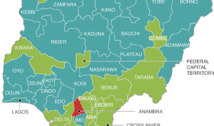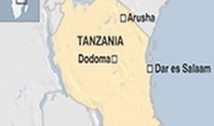Chinese ‘Queen of Ivory’ jailed 15 years
- 20 Feb 2019 --
A Chinese woman, nicknamed the ‘Queen of Ivory’ and thought to be one of Africa’s most notorious traffickers, has been sentenced to 15 years in prison, Tanzanian authorities told CNN.
On Tuesday, a Tanzanian court found Yang Feng Glan, 70, guilty of smuggling 860 elephant tusks that authorities say are worth $6.45 million.
Yang Feng Glan, was sentenced along with her Tanzanian co-accused Salivius Francis Matembo and Manase Julius Philemon.
They were also sentenced to an additional two years in prison under Tanzania’s Wildlife Protection Act, which they can convert into a fine amounting to twice the value of the ivory they are charged with smuggling. Authorities put this value at $12.9 million dollars.
The defendants have already lodged an appeal, the court said.
Tanzania’s Director of Public Prosecutions accused Yang of running a sophisticated supply chain between East Africa and China, using her ties to the Chinese and Tanzanian elite to move ivory across the world.
Yang was arrested in Dar es Salaam, Tanzania’s largest city, on September 28, 2015, after a year-long manhunt.
After more than three years of uncertainty and delays in the case, conservation organizations say the sentence sends a strong message to traffickers.
“The government is taking wildlife trafficking very seriously,” said Krissie Clark the executive director of PAMS Foundation,a nonprofit group that fights crime against wildlife and supported the Tanzanian task-force that arrested Yang.
“Today’s sentencing is testament that nobody in Tanzania is above the law.”
The landmark ruling marks one of the harshest sentences ever handed down to such a high-profile and well-connected Chinese national living in East Africa.
Tanzanian investigators told CNN Glan came to Tanzania in 1975 as a translator for a Chinese company that was building a railroad linking the port of Dar es Salaam to Zambia. She was one of the first Chinese people to learn fluent Swahili.
According to an interview she gave to the China Daily newspaper in 2014, she quickly fell in love with the country. She even named her daughter Fei, (or Feizhou) the Mandarin character for Africa.
In 1998, she opened a restaurant in Dar Es Salaam that became popular with both the Chinese expat community and wealthy locals. Officials say she used the restaurant and another property as a front for the illegal trade in ivories.
Before her arrest, she also served as the secretary general of the Tanzania-China Africa Business Council.
Tanzania, which some have called the ground zero of elephant poaching in the last decade, has been heavily criticized by conservation groups for its inability to stop the mass killing of its elephants. The East African nation lost 60 percent of its elephant population from 2009 to 2014, according to data released by the Tanzanian government.
But local conservation groups say the election of Tanzanian president John Magufuli in 2015 boosted the fight against poaching.
“An attack on Tanzania’s wildlife is seen as an attack on Tanzania,” said Clark. “None of this would have been possible were it not for the political will of the President, John Magufuli, and his drive to stop wildlife crime and corruption.”
In the past, it has been rare to see poaching ringleaders arrested and convicted, but since the creation of an elite national multi-agency task force in the country, there has been a massive crackdown on poaching.
In the past four years, several poaching rings have been dismantled and numerous lengthy 20 to 30-year prison sentences have been handed down to wildlife traffickers, according to PAMS Foundation.
China has long been one of the world’s biggest markets for ivory, but in 2018 the Chinese government banned all trade in ivory and ivory products in the country.




































































































































































































































































































2,303 comments
The Confidential
11:06 amThanks a lot for sharing this with all of us you actually know what you are talking about! Bookmarked. Kindly also visit my website =). We could have a link exchange agreement between us!
https://bit.ly/3w5PxbW
The Confidential
11:06 amHello, I think your website may be having web browser compatibility problems. When I look at your website in Safari, it looks fine however, if opening in Internet Explorer, it’s got some overlapping issues. I simply wanted to provide you with a quick heads up! Besides that, great website.
https://tinyurl.com/fakazaio
The Confidential
11:06 amHaving read this I thought it was rather enlightening. I appreciate you taking the time and effort to put this article together. I once again find myself spending a lot of time both reading and posting comments. But so what, it was still worthwhile!
https://staff.blog.ui.ac.id/rendi.supiana/cara-download-video-youtube/
The Confidential
11:06 amJust want to say your article is as astonishing. The clarity in your post is just great and i could assume you are an expert on this subject. Fine with your permission let me to grab your RSS feed to keep up to date with forthcoming post. Thanks a million and please keep up the enjoyable work.
https://www.eurasc.org/supplements/testodren-review/
The Confidential
11:06 amHi, i think that i saw you visited my web site thus i came to ?return the favor?.I am trying to find things to improve my site!I suppose its ok to use a few of your ideas!!
https://www.tecknote.com
The Confidential
11:06 amSpot on with this write-up, I actually suppose this website wants much more consideration. I?ll in all probability be once more to read far more, thanks for that info.
https://99bitcoins.com/best-bitcoin-casino/
The Confidential
11:06 amThis website online is mostly a walk-by means of for the entire information you wanted about this and didn?t know who to ask. Glimpse right here, and also you?ll definitely uncover it.
https://99bitcoins.com/buy-bitcoin/paypal/
The Confidential
11:06 amWhat?s Happening i am new to this, I stumbled upon this I’ve found It positively useful and it has helped me out loads. I hope to contribute & help other users like its aided me. Great job.
https://www.offshoresportsbooks.com/
The Confidential
11:06 amAccording to my research, after a property foreclosure home is available at a sale, it is common to the borrower in order to still have any remaining unpaid debt on the mortgage. There are many lenders who try to have all service fees and liens paid by the subsequent buyer. Even so, depending on a number of programs, rules, and state laws and regulations there may be quite a few loans that aren’t easily sorted out through the transfer of lending options. Therefore, the responsibility still rests on the borrower that has acquired his or her property in foreclosure process. Thank you sharing your notions on this blog.
https://xcaosystemgroup.com/
The Confidential
11:06 amI seriously love your blog.. Very nice colors & theme. Did you develop this site yourself? Please reply back as I’m looking to create my very own website and want to find out where you got this from or just what the theme is called. Many thanks.
https://www.honghe365.com/home.php?mod=space&uid=9080
The Confidential
11:06 amA person essentially help to make seriously posts I would state. This is the very first time I frequented your web page and thus far? I surprised with the research you made to make this particular publish incredible. Magnificent job!
https://www.picktechsolution.com/
The Confidential
11:06 amGood write-up, I?m normal visitor of one?s website, maintain up the nice operate, and It is going to be a regular visitor for a long time.
https://wishescave.com/category/anniversary-wishes
The Confidential
11:06 amI don?t even know how I stopped up here, but I believed this submit was great. I don’t understand who you are but certainly you are going to a famous blogger in case you are not already 😉 Cheers!
https://solitairegames.website/
The Confidential
11:06 amWould you be eager about exchanging links?
http://riskfreetracking.com/2023/01/26/obtain-the-finest-ideas-to-become-an-iso-realtor/
The Confidential
11:06 amWay cool! Some extremely valid points! I appreciate you writing this article and also the rest of the site is very good.
https://bookmarkswing.com/story14857595/mp3-juice-complete-review
The Confidential
11:06 amValuable information. Lucky me I found your website by accident, and I am shocked why this accident didn’t happened earlier! I bookmarked it.
https://www.ikariajuice-ikariajuice.com/
The Confidential
11:06 amThanks a lot for your post. I’d really like to write my opinion that the expense of car insurance varies from one scheme to another, since there are so many different issues which play a role in the overall cost. One example is, the make and model of the auto will have a huge bearing on the price tag. A reliable ancient family auto will have a less expensive premium over a flashy expensive car.
https://bitcoinwisdom.com/anon-system-review/
The Confidential
11:06 amThat is a great tip especially to those fresh to the blogosphere. Simple but very precise info… Thank you for sharing this one. A must read article!
https://lorenzosiuen.ttblogs.com/21198573/nose-out-the-effects-of-making-use-of-mp3-juice-to-download-popular-music
The Confidential
11:06 amHi there, simply became aware of your weblog through Google, and found that it’s truly informative. I?m gonna be careful for brussels. I will appreciate for those who continue this in future. Numerous people might be benefited out of your writing. Cheers!
https://www.twitch.tv/4flixco/about
The Confidential
11:06 amHello. splendid job. I did not imagine this. This is a fantastic story. Thanks!
https://www.zoritolerimol.com
The Confidential
11:06 amSimply desire to say your article is as surprising. The clarity on your post is just great and that i can suppose you’re an expert in this subject. Well along with your permission let me to snatch your RSS feed to stay up to date with approaching post. Thanks one million and please carry on the gratifying work.
https://thepetagrees.org/get-affordable-pet-insurance-prices-for-cats/
The Confidential
11:06 amPretty! This was an extremely wonderful post. Thank you for providing these details.
https://bookmarkblast.com/story14039990/top-latest-five-tubidy-urban-news
The Confidential
11:06 amI just couldn’t leave your website prior to suggesting that I actually loved the usual info a person supply in your guests? Is gonna be again often to investigate cross-check new posts
https://thechronicbeaver.com/best-online-dispensary-canada-top-6-list/
The Confidential
11:06 amI appreciate, cause I found just what I was looking for. You have ended my four day long hunt! God Bless you man. Have a great day. Bye
https://www.neurotonix–us.com/
The Confidential
11:06 amThere’s definately a great deal to know about this topic. I like all of the points you made.
https://ala3raf.net/user/silicasteel2
The Confidential
11:06 amThis is really interesting, You’re a very skilled blogger. I have joined your rss feed and look forward to seeking more of your excellent post. Also, I’ve shared your website in my social networks!
http://lovestoryen.com/2023/02/02/small-enterprises-across-america-should-implement-their-smartphone-merchant-services-now/
The Confidential
11:06 amfantastic post, very informative. I wonder why the other specialists of this sector do not notice this. You must continue your writing. I’m sure, you’ve a great readers’ base already!
https://cards2cash.co.uk/
The Confidential
11:06 amThere is definately a great deal to know about this topic. I really like all of the points you made.
https://cruzyx048.blogolize.com/Top-Tips-Of-Mp3-Juice-Music-Downloads-55752162
The Confidential
11:06 amI delight in, lead to I found exactly what I was having a look for. You’ve ended my 4 day lengthy hunt! God Bless you man. Have a nice day. Bye
https://perevod.ssmu.ru/project/modern-identity/
The Confidential
11:06 amThanks for your posting on the vacation industry. We would also like to include that if you are one senior thinking about traveling, it is absolutely essential that you buy traveling insurance for senior citizens. When traveling, older persons are at high risk of experiencing a health-related emergency. Receiving the right insurance coverage package to your age group can safeguard your health and provide you with peace of mind.
https://fangwallet.com/
The Confidential
11:06 amPretty! This has been an extremely wonderful article. Many thanks for supplying this information.
https://atavi.com/share/vvodygz5w2d1
The Confidential
11:06 amOne more thing I would like to express is that instead of trying to accommodate all your online degree tutorials on times that you finish off work (since the majority people are exhausted when they get home), try to receive most of your classes on the week-ends and only 1 or 2 courses on weekdays, even if it means a little time off your saturdays. This is really good because on the saturdays and sundays, you will be extra rested in addition to concentrated with school work. Thanks for the different recommendations I have mastered from your blog site.
https://fangwallet.com/
The Confidential
11:06 amI?m impressed, I have to say. Really rarely do I encounter a weblog that?s each educative and entertaining, and let me let you know, you have got hit the nail on the head. Your idea is outstanding; the problem is one thing that not enough individuals are talking intelligently about. I am very joyful that I stumbled throughout this in my seek for one thing relating to this.
https://easytvuk.co.uk/streaming-service/
The Confidential
11:06 amHello There. I discovered your blog using msn. This is an extremely neatly written article. I?ll be sure to bookmark it and return to learn extra of your useful information. Thanks for the post. I?ll definitely comeback.
https://www.prodentim-prodentim-prodentim.com/
The Confidential
11:06 amAn interesting dialogue is value comment. I believe that you should write more on this subject, it might not be a taboo subject however typically individuals are not enough to speak on such topics. To the next. Cheers
https://fixedmatches-1×2.com/
The Confidential
11:06 amI’ve really noticed that credit restoration activity really needs to be conducted with tactics. If not, you are going to find yourself destroying your standing. In order to be successful in fixing to your credit rating you have to ensure that from this instant you pay your entire monthly dues promptly before their booked date. It’s really significant since by not necessarily accomplishing that area, all other actions that you will choose to use to improve your credit positioning will not be effective. Thanks for discussing your tips.
https://isma.ppsma.dindik.jatimprov.go.id/isma/data/
The Confidential
11:06 amAfter checking out a number of the blog posts on your site, I honestly appreciate your way of writing a blog. I bookmarked it to my bookmark site list and will be checking back soon. Take a look at my web site as well and let me know your opinion.
https://downloadlagu321.icu
The Confidential
11:06 amAw, this was a really good post. Taking a few minutes and actual effort to produce a really good article… but what can I say… I put things off a whole lot and don’t seem to get nearly anything done.
https://downloadlagu321.icu
The Confidential
11:06 amhello there and thank you in your info ? I have definitely picked up something new from proper here. I did on the other hand expertise several technical issues the usage of this site, since I experienced to reload the site lots of occasions previous to I could get it to load correctly. I had been pondering in case your web hosting is OK? Now not that I am complaining, however slow loading cases occasions will very frequently have an effect on your placement in google and could injury your high quality rating if advertising and ***********|advertising|advertising|advertising and *********** with Adwords. Well I?m including this RSS to my e-mail and could look out for a lot more of your respective intriguing content. Make sure you replace this again very soon..
https://mlodagoldap.info/2023/02/10/high-rish-ach-merchant-accounts/
The Confidential
11:06 amIt’s hard to find educated people for this topic, however, you seem like you know what you’re talking about! Thanks
https://independent.academia.edu/KellyMckay12
The Confidential
11:06 amThese days of austerity plus relative panic about having debt, many individuals balk up against the idea of utilizing a credit card in order to make acquisition of merchandise or pay for any occasion, preferring, instead only to rely on the particular tried and also trusted method of making transaction – raw cash. However, if you possess the cash available to make the purchase in whole, then, paradoxically, that’s the best time for you to use the credit cards for several reasons.
https://www.youtube.com/watch?v=2l1a7QskEhc
The Confidential
11:06 amHi, I do believe this is a great blog. I stumbledupon it 😉 I may revisit once again since I bookmarked it. Money and freedom is the best way to change, may you be rich and continue to guide other people.
https://music62725.estate-blog.com/19204288/getting-my-tubidy-to-operate
The Confidential
11:06 amThis blog was… how do you say it? Relevant!! Finally I have found something which helped me. Thank you!
https://www.metooo.io/u/63f6bf43ee513771ed4b350c
The Confidential
11:06 amExcellent weblog here! Also your web site rather a lot up fast! What host are you using? Can I get your affiliate link in your host? I desire my site loaded up as quickly as yours lol
https://public.tableau.com/app/profile/fitness.deadline
The Confidential
11:06 amYour style is very unique in comparison to other people I’ve read stuff from. Many thanks for posting when you have the opportunity, Guess I’ll just bookmark this blog.
https://bcnb.ac.th/bcnb/www/linkcounter.php?msid=49&link=https://tubidy.org.za
The Confidential
11:06 amI absolutely love your website.. Great colors & theme. Did you create this web site yourself? Please reply back as I’m hoping to create my very own blog and want to find out where you got this from or just what the theme is named. Thanks.
https://makassar.tribunnews.com/2023/02/23/simak-begini-cara-mudah-download-musik-offline-dengan-tubidy
The Confidential
11:06 amExcellent weblog here! Additionally your web site quite a bit up very fast! What host are you the use of? Can I am getting your associate hyperlink in your host? I want my site loaded up as fast as yours lol
https://ghymesvegyeskar.com/บาริซิช/
The Confidential
11:06 amI have noticed that of all types of insurance, medical care insurance is the most questionable because of the discord between the insurance policies company’s duty to remain adrift and the client’s need to have insurance coverage. Insurance companies’ earnings on wellness plans are low, consequently some companies struggle to profit. Thanks for the tips you discuss through this web site.
https://listproperty.ng/listing-location/abuja-fct/abuja/
The Confidential
11:06 amI simply couldn’t leave your site before suggesting that I really enjoyed the standard information a person supply for your guests? Is going to be again often to inspect new posts
https://ypacmalang.org/
The Confidential
11:06 amGood post. I learn something new and challenging on sites I stumbleupon every day. It will always be exciting to read articles from other writers and use something from their websites.
https://doodleordie.com/profile/bellclover8
The Confidential
11:06 amOne thing I have actually noticed is the fact that there are plenty of misconceptions regarding the banks intentions when talking about property foreclosure. One fantasy in particular is the fact that the bank wants your house. The lender wants your dollars, not your own home. They want the money they gave you along with interest. Steering clear of the bank will draw the foreclosed summary. Thanks for your publication.
http://sports.unisda.ac.id/champions-league-drawing-results-2022/
The Confidential
11:06 amWonderful work! This is the type of information that should be shared around the net. Shame on Google for not positioning this post higher! Come on over and visit my web site . Thanks =)
http://tongchengmiyue01.com/2023/02/27/selecting-from-among-typically-the-many-merchant-solutions/
The Confidential
11:06 amI’m really inspired along with your writing abilities as smartly as with the structure to your blog. Is that this a paid subject or did you modify it yourself? Anyway stay up the excellent high quality writing, it?s rare to look a nice weblog like this one nowadays..
https://www.werockthespectrumloudoun.com/
The Confidential
11:06 amyou’re really a good webmaster. The web site loading speed is amazing. It seems that you’re doing any unique trick. Moreover, The contents are masterwork. you have done a great job on this topic!
http://www.sekaantika.com/
The Confidential
11:06 amI have observed that over the course of making a relationship with real estate entrepreneurs, you’ll be able to get them to understand that, in most real estate deal, a payment is paid. Finally, FSBO sellers really don’t “save” the fee. Rather, they struggle to earn the commission by simply doing a agent’s task. In doing so, they invest their money and also time to perform, as best they might, the duties of an adviser. Those tasks include exposing the home by way of marketing, showing the home to prospective buyers, constructing a sense of buyer desperation in order to induce an offer, organizing home inspections, taking on qualification inspections with the loan company, supervising repairs, and assisting the closing of the deal.
https://usananosoft.com/product/buy-ssn-number/
The Confidential
11:06 amThis is very interesting, You’re a very skilled blogger. I’ve joined your feed and look forward to seeking more of your excellent post. Also, I have shared your web site in my social networks!
https://indonesia-hardwood-charco29166.bloggin-ads.com/39482583/the-fact-about-halaban-charcoal-supplier-indonesia-that-no-one-is-suggesting
The Confidential
11:06 amI seriously love your blog.. Great colors & theme. Did you develop this site yourself? Please reply back as I’m trying to create my own website and would love to learn where you got this from or just what the theme is called. Kudos!
https://jurnal.uns.ac.id/joive/comment/view/61174/0/107016
The Confidential
11:06 amThanks for your suggestions. One thing really noticed is that often banks in addition to financial institutions understand the spending routines of consumers plus understand that most people max out there their own credit cards around the vacations. They prudently take advantage of this real fact and then start flooding your current inbox in addition to snail-mail box with hundreds of 0 APR credit card offers shortly after the holiday season closes. Knowing that in case you are like 98 of all American community, you’ll jump at the opportunity to consolidate credit card debt and shift balances to 0 APR credit cards.
https://www.realdildos.com/3d-printed-dildos/
The Confidential
11:06 amAnother issue is that video games are generally serious naturally with the principal focus on understanding rather than fun. Although, we have an entertainment element to keep the kids engaged, every single game is often designed to focus on a specific set of skills or course, such as mathmatical or scientific disciplines. Thanks for your publication.
https://www.linkedin.com/pulse/your-sales-team-integral-part-branding-ruben-das-/
The Confidential
11:06 amI was pretty pleased to find this web site. I want to to thank you for ones time just for this fantastic read!! I definitely appreciated every part of it and I have you bookmarked to check out new information in your website.
http://www.niceassthumbs.com/crtr/cgi/out.cgi?id=137&l=bottom_toplist&u=https://tubidy.org.za/
The Confidential
11:06 amAttractive section of content. I just stumbled upon your site and in accession capital to assert that I acquire in fact enjoyed account your blog posts. Anyway I will be subscribing to your feeds and even I achievement you access consistently quickly.
https://csaf.net/
The Confidential
11:06 amGreat goods from you, man. I’ve consider your stuff previous to and you’re simply extremely fantastic. I actually like what you’ve received here, certainly like what you are saying and the way in which in which you are saying it. You are making it entertaining and you continue to care for to stay it sensible. I can’t wait to learn far more from you. This is actually a terrific site.
https://almetals.cn/product/4×8-aluminum-sheet/
The Confidential
11:06 amYou are so interesting! I don’t think I’ve read through something like this before. So great to discover someone with original thoughts on this subject. Seriously.. thanks for starting this up. This site is one thing that is needed on the internet, someone with a little originality.
https://hikvisiondb.webcam/wiki/What_to_Download_Audio_from_YouTube
The Confidential
11:06 amHi, i think that i saw you visited my website so i came to ?return the favor?.I’m attempting to find things to improve my web site!I suppose its ok to use a few of your ideas!!
https://csaf.net/
The Confidential
11:06 amExcellent blog here! Also your site loads up fast! What web host are you using? Can I get your affiliate link to your host? I wish my site loaded up as quickly as yours lol
https://stensoul.com/
The Confidential
11:06 amAn impressive share, I just given this onto a colleague who was doing a bit of evaluation on this. And he in reality purchased me breakfast because I found it for him.. smile. So let me reword that: Thnx for the deal with! But yeah Thnkx for spending the time to debate this, I really feel strongly about it and love reading more on this topic. If possible, as you change into experience, would you thoughts updating your blog with more details? It’s highly helpful for me. Big thumb up for this weblog put up!
https://totoswing.com
The Confidential
11:06 amI?m not sure where you are getting your information, but good topic. I needs to spend some time learning much more or understanding more. Thanks for fantastic information I was looking for this information for my mission.
https://club-8.org
The Confidential
11:06 amMy brother recommended I might like this web site. He was entirely right. This post actually made my day. You cann’t imagine just how much time I had spent for this info! Thanks!
https://watermanaustralia.com/product/zero-liquid-discharge-system-zld-system/
The Confidential
11:06 amWith every thing which seems to be developing inside this area, many of your points of view happen to be relatively radical. Even so, I appologize, because I can not subscribe to your entire suggestion, all be it refreshing none the less. It would seem to me that your opinions are not entirely justified and in actuality you are generally your self not even wholly certain of the assertion. In any case I did appreciate examining it.
https://www.wugt.news/post/pr/December-15-2022/Lapillus-is-an-addition-to-Kpops-music-world
The Confidential
11:06 amWe are a group of volunteers and opening a new scheme in our community. Your site provided us with valuable info to work on. You’ve done an impressive job and our entire community will be thankful to you.
https://www.wugt.news/post/automotive/February-08-2023/Tesla-1-in-World-BEV-Sales-By-Big-Margin-2022-World-EV-Sales-Report
The Confidential
11:06 amI just couldn’t depart your web site prior to suggesting that I actually enjoyed the standard info a person provide for your visitors? Is gonna be back often in order to check up on new posts Dr Vi PDO Thread Lift Melbourne 602A Bourke Street Melbourne Victoria Australia 3000
https://www.google.com/maps/place/602+Bourke+St,+Melbourne+VIC+3000/@-37.8161822,144.955908,17z/data=!3m1!4b1!4m5!3m4!1s0x6ad65d4c26c6aac1:0x1d7e87b56c266f95!8m2!3d-37.8161822!4d144.955908
The Confidential
11:06 amThank you for some other informative web site. Where else may just I am getting that type of info written in such a perfect method? I have a project that I’m just now running on, and I’ve been at the look out for such info.
https://watermanaustralia.com/tailings-and-tailings-storage-facilities/
The Confidential
11:06 amThanks for the recommendations on credit repair on this particular web-site. Things i would offer as advice to people is usually to give up the mentality that they may buy today and pay later. Like a society we tend to make this happen for many factors. This includes trips, furniture, as well as items we would like. However, it is advisable to separate the wants from all the needs. When you’re working to fix your credit score actually you need some trade-offs. For example you can shop online to save cash or you can go to second hand suppliers instead of pricey department stores for clothing.
https://159.65.12.174/
The Confidential
11:06 amI am really impressed with your writing skills as well as with the layout on your blog. Is this a paid theme or did you modify it yourself? Anyway keep up the excellent quality writing, it?s rare to see a nice blog like this one today..
https://www.dailynewsen.com/life-style
The Confidential
11:06 amThanks for your write-up on the travel industry. We would also like to add that if you’re a senior thinking of traveling, it truly is absolutely essential that you buy traveling insurance for retirees. When traveling, seniors are at high risk of getting a health care emergency. Receiving the right insurance policy package for your age group can protect your health and provide peace of mind.
https://iptv-getline.com/
The Confidential
11:06 amI used to be more than happy to search out this web-site.I needed to thanks to your time for this wonderful read!! I positively enjoying every little bit of it and I’ve you bookmarked to check out new stuff you weblog post.
https://www.wugt.news/post/fashion/December-17-2022/Louis-Vuittons-new-capsule-collection-featuring-snowthemed-accessories
The Confidential
11:06 amI am extremely inspired along with your writing abilities and also with the structure for your weblog. Is that this a paid theme or did you modify it your self? Either way stay up the excellent quality writing, it?s rare to peer a great blog like this one today..
https://www.wugt.news/post/fashion/February-10-2023/The-New-Exhibit-at-FIT-Showcases-50-Years-Of-Hip-Hop-Fashion
The Confidential
11:06 amAw, this was a very nice post. In concept I want to put in writing like this additionally ? taking time and actual effort to make an excellent article? however what can I say? I procrastinate alot and not at all seem to get something done.
bokep jepangzegt:
The Confidential
11:06 amI found your blog site on google and test a few of your early posts. Continue to maintain up the excellent operate. I just additional up your RSS feed to my MSN News Reader. Searching for forward to reading more from you later on!?
https://www.wugt.news/post/fashion/November-24-2022/The-Dundas-x-Grey-Goose-Martini-Bag-Our-New-Cocktail-of-Choice
The Confidential
11:06 amAlmost all of whatever you point out is astonishingly appropriate and that makes me wonder the reason why I hadn’t looked at this with this light previously. Your piece really did turn the light on for me as far as this topic goes. Nevertheless there is actually 1 factor I am not really too comfy with so whilst I attempt to reconcile that with the main idea of your position, permit me see exactly what the rest of the subscribers have to point out.Well done.
https://savingspromocodes.com/bulk-office
The Confidential
11:06 amHello! I just want to give you a big thumbs up for your excellent information you’ve got here on this post. I’ll be coming back to your site for more soon.
https://www.musicplug.in
The Confidential
11:06 amI was suggested this web site by my cousin. I’m not sure whether this post is written by him as nobody else know such detailed about my trouble. You’re incredible! Thanks!
https://www.schonpuppen.com/
The Confidential
11:06 amOne thing I would like to discuss is that fat burning plan fast is possible by the correct diet and exercise. Your size not merely affects appearance, but also the complete quality of life. Self-esteem, major depression, health risks, as well as physical capabilities are influenced in extra weight. It is possible to make everything right whilst still having a gain. Should this happen, a medical problem may be the primary cause. While too much food and not enough workout are usually to blame, common medical ailments and key prescriptions can easily greatly amplify size. Thanks a bunch for your post right here.
https://www.thebergenbk.com/
The Confidential
11:06 amYou made some respectable factors there. I seemed on the internet for the problem and located most individuals will go together with with your website.
https://l4rgrummy.com/
The Confidential
11:06 amfantastic points altogether, you just gained a new reader. What would you recommend about your post that you made a few days ago? Any positive?
https://metaboflex.uk/
The Confidential
11:06 amThanks for your posting. I also feel that laptop computers have gotten more and more popular today, and now in many cases are the only sort of computer used in a household. It is because at the same time actually becoming more and more inexpensive, their computing power is growing to the point where these are as highly effective as desktop through just a few years ago.
https://bluelagoonferry.com/
The Confidential
11:06 amGood article. It is very unfortunate that over the last one decade, the travel industry has had to take on terrorism, SARS, tsunamis, influenza, swine flu, and also the first ever entire global economic depression. Through everything the industry has proven to be sturdy, resilient as well as dynamic, acquiring new approaches to deal with hardship. There are constantly fresh complications and opportunities to which the sector must yet again adapt and behave.
https://tempus-machina.com/
The Confidential
11:06 amI do not even know how I ended up here, but I thought this post was great. I do not know who you are but certainly you are going to a famous blogger if you are not already 😉 Cheers!
https://prodentimbuy.us/
The Confidential
11:06 amvery nice post, i certainly love this web site, carry on it
https://komdatkesmas.kemkes.go.id/-/slot-gacor/
The Confidential
11:06 amI loved as much as you’ll receive carried out right here. The sketch is tasteful, your authored material stylish. nonetheless, you command get got an nervousness over that you wish be delivering the following. unwell unquestionably come more formerly again as exactly the same nearly a lot often inside case you shield this hike.
https://sultanhoki89.beauty/
The Confidential
11:06 amA motivating discussion is definitely worth comment. I do believe that you need to write more about this subject matter, it might not be a taboo subject but usually folks don’t talk about such issues. To the next! Cheers.
https://eternalbookmarks.com/story14252787/the-five-secondly-top-key-for-tubidy-south-african
The Confidential
11:06 amIn these days of austerity along with relative stress about having debt, lots of people balk against the idea of utilizing a credit card to make acquisition of merchandise or pay for a holiday, preferring, instead just to rely on the particular tried and trusted procedure for making repayment – raw cash. However, if you possess cash available to make the purchase entirely, then, paradoxically, this is the best time for them to use the credit cards for several reasons.
https://wisata.butonkab.go.id/slot-gacor/
The Confidential
11:06 amThanks for another informative website. Where else may I get that type of information written in such an ideal approach? I’ve a challenge that I am simply now operating on, and I’ve been at the glance out for such information.
https://hoagiay.org/p/cay-hoa-giay-do-giay-thai-lan-la-nho/
The Confidential
11:06 amOne thing I would like to say is the fact that car insurance termination is a terrifying experience so if you’re doing the right things being a driver you’ll not get one. Some people do obtain the notice that they are officially dumped by their own insurance company they have to struggle to get additional insurance after having a cancellation. Affordable auto insurance rates are generally hard to get from cancellation. Having the main reasons with regard to auto insurance canceling can help motorists prevent sacrificing one of the most critical privileges available. Thanks for the ideas shared by means of your blog.
https://www.netvisioncorporation.com
The Confidential
11:06 amAw, this was a really good post. Spending some time and actual effort to make a very good article… but what can I say… I procrastinate a lot and don’t manage to get anything done.
http://www.leperledelcuore.com/dle/index.php?subaction=userinfo&user=brokerstreet74
The Confidential
11:06 amI have realized that over the course of making a relationship with real estate managers, you’ll be able to get them to understand that, in most real estate purchase, a commission amount is paid. Eventually, FSBO sellers really don’t “save” the commission. Rather, they struggle to win the commission through doing a good agent’s occupation. In doing so, they devote their money as well as time to perform, as best they will, the jobs of an agent. Those assignments include revealing the home by marketing, offering the home to willing buyers, making a sense of buyer desperation in order to trigger an offer, preparing home inspections, handling qualification checks with the loan provider, supervising repairs, and facilitating the closing.
https://christianp.blob.core.windows.net/edmontonmasonry/masonryedmonton/httpswww-edmontonmasonry-ca.html
The Confidential
11:06 amThanks for sharing your ideas. Something is that individuals have an alternative between federal student loan and a private education loan where it truly is easier to go for student loan debt consolidation than through the federal education loan.
https://www.dailynewsen.com/business/877-area-code-p-h32932.html
The Confidential
11:06 amF*ckin? awesome things here. I?m very glad to look your post. Thanks a lot and i am looking forward to touch you. Will you kindly drop me a e-mail?
https://tempus-machina.com/
The Confidential
11:06 amokmark your weblog and check again here frequently. I am quite certain I will learn a lot of new stuff right here! Good luck for the next!* JJ’s Ducted Gas Heating Repairs and Installation * 162 Mitchell Rd, Lilydale VIC 3140 * 0412 531 821
https://www.air-conditioning.net.au/
The Confidential
11:06 amThere is certainly a great deal to learn about this topic. I love all of the points you’ve made.
http://jade-crack.com/home.php?mod=space&uid=273934
The Confidential
11:06 amI do agree with all the ideas you have presented in your post. They’re very convincing and can definitely work. Nonetheless, the posts are very short for novices. May you please prolong them a little from subsequent time? Thanks for the post.
https://dzmind.com/nuts-bulk
The Confidential
11:06 amThanks for the guidelines you have contributed here. Something important I would like to mention is that computer memory needs generally increase along with other advances in the know-how. For instance, when new generations of cpus are introduced to the market, there is usually a related increase in the size calls for of all pc memory plus hard drive space. This is because the program operated by means of these processors will inevitably rise in power to make new know-how.
https://faltusova.cz/
The Confidential
11:06 amSpot on with this write-up, I actually assume this website needs rather more consideration. I?ll most likely be once more to learn way more, thanks for that info.
https://bombb.com/
The Confidential
11:06 amI wanted to thank you for this great read!! I absolutely loved every little bit of it. I have got you bookmarked to look at new stuff you post…
https://cc.naver.jp/cc?a=dtl.topic&r=&i=&bw=1024&px=0&py=0&sx=-1&sy=-1&m=1&nsc=knews.viewpage&u=http://tubidy.net.za
The Confidential
11:06 amI have realized some significant things through your blog post post. One other thing I would like to express is that there are many games in the marketplace designed mainly for preschool age small children. They include things like pattern recognition, colors, animals, and patterns. These normally focus on familiarization as an alternative to memorization. This will keep children and kids engaged without sensing like they are learning. Thanks
https://isoagentpartnership.blogspot.com
The Confidential
11:06 amI have discovered some important things through your blog post post. One other subject I would like to mention is that there are many games that you can buy which are designed specially for toddler age kids. They include pattern acceptance, colors, dogs, and models. These commonly focus on familiarization as opposed to memorization. This will keep little kids occupied without having the experience like they are studying. Thanks
https://cryptomaniaks.com/bitcoin-gambling-sites
The Confidential
11:06 amSimply want to say your article is as astonishing. The clearness in your submit is simply cool and that i could assume you’re knowledgeable in this subject. Well together with your permission allow me to clutch your feed to stay updated with forthcoming post. Thanks a million and please continue the gratifying work.
https://decidetotravel.com/the-best-views-of-istanbul-a-guide-to-the-citys-rooftop-bars/2023/03/16/
The Confidential
11:06 amI was just searching for this information for some time. After six hours of continuous Googleing, finally I got it in your site. I wonder what’s the lack of Google strategy that do not rank this type of informative websites in top of the list. Normally the top web sites are full of garbage.
https://arij.net/investigations/panadora-papers/Yemen-Oil/
The Confidential
11:06 amHeya i?m for the first time here. I came across this board and I find It truly useful & it helped me out much. I hope to give something back and aid others like you aided me.
https://patrimoinetours.com/
The Confidential
11:06 amMany thanks for this article. I might also like to mention that it can always be hard when you are in school and merely starting out to create a long credit score. There are many college students who are just simply trying to survive and have an extended or good credit history are often a difficult element to have.
https://ikaria-juice.net
The Confidential
11:06 amAw, this was an extremely good post. Finding the time and actual effort to create a good article… but what can I say… I procrastinate a lot and never seem to get nearly anything done.
https://www.arcticchat.com/members/downloadlagump3.265223/
The Confidential
11:06 amTerrific work! This is the type of information that should be shared around the internet. Shame on Google for not positioning this post higher! Come on over and visit my web site . Thanks =)JJ’s Ducted Gas Heating Repairs and Installation 162 Mitchell Rd, Lilydale VIC 3140 0412 531 821
https://utahdailynews.com/press/jjs-ducted-gas-heating-repairs-and-installation-announces-new-site-in-lilydale/87671
The Confidential
11:06 amFantastic goods from you, man. I have understand your stuff previous to and you are just extremely wonderful. I actually like what you’ve acquired here, really like what you’re stating and the way in which you say it. You make it entertaining and you still take care of to keep it smart. I can’t wait to read far more from you. This is actually a terrific web site.
https://mt-toto.net/
The Confidential
11:06 amI absolutely love your site.. Excellent colors & theme. Did you make this amazing site yourself? Please reply back as I’m planning to create my own website and want to know where you got this from or just what the theme is named. Thank you!
https://myportal.utt.edu.tt/ICS/icsfs/22-tubidys-mp3-converter-effortlessly-convert-your.html?target=167493de-a628-4847-bb3a-285f103daee8
The Confidential
11:06 amAlso I believe that mesothelioma is a uncommon form of cancers that is generally found in those previously exposed to asbestos. Cancerous cells form within the mesothelium, which is a defensive lining that covers most of the body’s bodily organs. These cells generally form in the lining of the lungs, mid-section, or the sac which encircles one’s heart. Thanks for discussing your ideas.
https://slot138.powerappsportals.com/
The Confidential
11:06 amThanks for the helpful post. It is also my belief that mesothelioma has an extremely long latency time, which means that indication of the disease might not emerge until 30 to 50 years after the first exposure to mesothelioma. Pleural mesothelioma, that is the most common variety and impacts the area throughout the lungs, will cause shortness of breath, chest muscles pains, and a persistent coughing, which may cause coughing up maintain.
https://cleartest.com/
The Confidential
11:06 amUsually I don’t read post on blogs, but I wish to say that this write-up very forced me to try and do so! Your writing style has been amazed me. Thanks, very nice post.
https://www.gdsgt.net
The Confidential
11:06 amExcellent article. I will be facing many of these issues as well..
https://music78991.thekatyblog.com/20033374/tubidy-reviews
The Confidential
11:06 amI’ve observed that in the world the present day, video games include the latest rage with children of all ages. There are occassions when it may be out of the question to drag your children away from the activities. If you want the best of both worlds, there are several educational gaming activities for kids. Thanks for your post.
https://www.elovedolls.com/100cm-sex-doll.html
The Confidential
11:06 amI have been absent for some time, but now I remember why I used to love this blog. Thanks , I will try and check back more frequently. How frequently you update your web site?
https://www.remington-870.store/product/model-870-wingmaster-classictrap-3/
The Confidential
11:06 amRight here is the perfect webpage for anyone who wants to find out about this topic. You realize so much its almost hard to argue with you (not that I really will need to…HaHa). You certainly put a brand new spin on a subject that has been written about for ages. Excellent stuff, just excellent.
https://forum.acronis.com/user/451024
The Confidential
11:06 amAw, this was a very nice post. Taking the time and actual effort to create a top notch article… but what can I say… I put things off a lot and never manage to get anything done.
http://www.e-archivos.org/cursos/claroline/phpbb/viewtopic.php?topic=3&cidReset=true&cidReq=PM547
The Confidential
11:06 amThere’s definaely a great deal to fimd ouut about this issue.
I like alll off the points you’ve made.
The Confidential
11:06 amFantastic items from you, man. I have take into account your stuff previous to and you’re just too magnificent. I actually like what you’ve bought right here, certainly like what you are stating and the best way during which you are saying it. You are making it entertaining and you still care for to keep it smart. I cant wait to learn much more from you. That is really a tremendous web site.
https://www.inkstation.com.au/dymo-labelwriter-450-label-cartridges-prn-6269.html
The Confidential
11:06 amI discovered your weblog website on google and examine a few of your early posts. Proceed to keep up the superb operate. I just additional up your RSS feed to my MSN News Reader. In search of ahead to studying extra from you afterward!?
https://yzbuwoercmje.compat.objectstorage.ca-toronto-1.oraclecloud.com/divorce-lawyer-surrey2/divorce-lawyer-surrey2/child-custody-lawyer-in-surrey.html
The Confidential
11:06 amWay cool! Some very valid points! I appreciate you writing this write-up and also the rest of the website is very good.
http://capemedical.com/?URL=https://tubidy.web.za/
The Confidential
11:06 amHello, I do think your blog could possibly be having internet browser compatibility issues. When I look at your web site in Safari, it looks fine however, if opening in I.E., it’s got some overlapping issues. I just wanted to give you a quick heads up! Aside from that, great blog.
http://ksjy88.com/home.php?mod=space&uid=3257834
The Confidential
11:06 amI’m excited to discover this web site. I want to to thank you for ones time due to this fantastic read!! I definitely loved every part of it and I have you saved to fav to look at new stuff in your web site.
https://damien4l888.tnpwiki.com/5365599/how_music_could_help_you_save_time_anxiousness_and_income
The Confidential
11:06 amAnother issue is that video gaming became one of the all-time main forms of fun for people of any age. Kids have fun with video games, and adults do, too. Your XBox 360 is probably the favorite gaming systems for individuals that love to have hundreds of games available to them, in addition to who like to experiment with live with other folks all over the world. Thank you for sharing your thinking.
https://www.adengad.net/public/news/545009
The Confidential
11:06 amIn the grand design of things you’ll get a B- just for hard work. Where you actually lost everybody ended up being on the specifics. You know, people say, details make or break the argument.. And it could not be more true right here. Having said that, permit me inform you exactly what did give good results. The article (parts of it) is certainly extremely persuasive and that is most likely the reason why I am making an effort to comment. I do not really make it a regular habit of doing that. Secondly, although I can certainly notice a jumps in logic you come up with, I am not necessarily convinced of just how you seem to connect the details which inturn make the actual conclusion. For now I shall subscribe to your point however wish in the foreseeable future you connect your dots much better.
https://www.forsythsoftware.com/salesforce-services/?src=b1
The Confidential
11:06 amYour style is so unique compared to other people I’ve read stuff from. Thank you for posting when you’ve got the opportunity, Guess I will just book mark this web site.
https://setan2020.blogspot.com/2023/04/musik-seni-yang-mendalami-kehidupan.html
The Confidential
11:06 amhello there and thank you for your information – I’ve certainly picked up something new from right here. I did however expertise a few technical points using this web site, since I experienced to reload the website a lot of times previous to I could get it to load properly. I had been wondering if your web hosting is OK? Not that I’m complaining, but sluggish loading instances times will often affect your placement in google and can damage your quality score if ads and marketing with Adwords. Well I’m adding this RSS to my email and could look out for much more of your respective exciting content. Make sure you update this again very soon..
https://playslot77jackpot.win/slot/ag_slot
The Confidential
11:06 amI have seen lots of useful elements on your site about pcs. However, I have the impression that notebooks are still not quite powerful adequately to be a good selection if you usually do projects that require loads of power, like video editing. But for internet surfing, statement processing, and most other typical computer work they are fine, provided you cannot mind small screen size. Thank you sharing your opinions.
https://freepsychicreadingonlinenofee.com/2023/04/03/what-to-expect-from-a-good-salon-and-spa/
The Confidential
11:06 amYoure so cool! I dont suppose Ive learn something like this before. So good to search out any person with some unique thoughts on this subject. realy thanks for starting this up. this website is one thing that’s wanted on the web, somebody with a bit originality. useful job for bringing one thing new to the web!
https://www.merchantiso.com/2023/03/free-salon-pos-system-point-of-sale.html
The Confidential
11:06 amHello! Do you use Twitter? I’d like to follow you if that would be okay. I’m undoubtedly enjoying your blog and look forward to new posts.
https://playslot77jackpot.win/slot/spade_slot
The Confidential
11:06 amA different issue is really that video gaming became one of the all-time greatest forms of recreation for people of various age groups. Kids participate in video games, and also adults do, too. The particular XBox 360 is among the favorite video games systems for individuals that love to have a huge variety of activities available to them, and also who like to learn live with others all over the world. Thank you for sharing your thinking.
https://pokerbasecamp.com/
The Confidential
11:06 amThis is a topic that is near to my heart… Take care! Exactly where are your contact details though?
https://music13319.ltfblog.com/20507808/5-easy-specifics-about-tubidy-mp3-download-defined
The Confidential
11:06 amso much great information on here, : D.
https://playslot77jackpot.win/slot/netent_slot
The Confidential
11:06 amI have not checked in here for some time as I thought it was getting boring, but the last several posts are great quality so I guess I’ll add you back to my daily bloglist. You deserve it my friend 🙂
https://playslot77jackpot.win/slot/mg_slot
The Confidential
11:06 amOne other issue is that if you are in a situation where you do not have a co-signer then you may want to try to exhaust all of your educational funding options. You’ll find many grants and other free college funding that will provide you with funds that can help with university expenses. Thanks a lot for the post.
https://www.artporat.com/
The Confidential
11:06 amMy brother recommended I would possibly like this website. He was totally right. This post truly made my day. You can not consider simply how much time I had spent for this information! Thank you!
https://atozmp3.ws/the-best-boat-earphones-for-music-lovers/
The Confidential
11:06 amIn these days of austerity plus relative stress about running into debt, most people balk against the idea of utilizing a credit card to make acquisition of merchandise as well as pay for any occasion, preferring, instead just to rely on the tried along with trusted approach to making settlement – cash. However, if you possess cash there to make the purchase in full, then, paradoxically, this is the best time for them to use the credit card for several factors.
https://www.huge-dildos.com/fantasy-dildos/
The Confidential
11:06 amWould you be excited about exchanging hyperlinks?
https://winnipeg-painting-company2.b-cdn.net/winnipeg-painting-company2/what-is-the-secret-to-picture-perfect-paint-jobs-winnipeg-paint-company-has-the-response.html
The Confidential
11:06 amYou can definitely see your expertise in the work you write. The world hopes for even more passionate writers like you who aren’t afraid to say how they believe. Always go after your heart.
https://s3.us-west-004.backblazeb2.com/employment-lawyer-des-moines-1/what-is-the-benefit-of-working-with-an-employment-attorney-in-des-moines-1.html
The Confidential
11:06 amRiight nnow it looks like Expressioon Engine
is the ttop blogging platform ouut there right now. (from what
I’ve read) Is that whatt you aree usihg oon your blog?
The Confidential
11:06 amWhat i do not realize is actually how you are not really much more well-liked than you might be right now. You’re very intelligent. You realize thus significantly relating to this subject, made me personally consider it from numerous varied angles. Its like men and women aren’t fascinated unless it?s one thing to accomplish with Lady gaga! Your own stuffs excellent. Always maintain it up!
https://paramanalo.live
The Confidential
11:06 amLove your blog! If you are ever in Nebraska, check out Omaha’s best chef-driven catering & party rooms in the metro area for over 25 years. Restaurants Inc. is known for its delicious American, Italian & Southwest Mexican dishes and as a locally and family-owned business, we understand the importance of having meticulous detail with whatever event you’re planning.
https://www.restaurantsinc.net
The Confidential
11:06 amI’ve been browsing on-line greater than three hours nowadays, but I never found any fascinating article like yours. It?s lovely value sufficient for me. Personally, if all site owners and bloggers made good content as you probably did, the internet will likely be much more helpful than ever before.
https://www.bloglovin.com/@reformaszaragoza
The Confidential
11:06 amOne thing I have actually noticed is the fact that there are plenty of beliefs regarding the banking institutions intentions any time talking about foreclosures. One fable in particular is the fact the bank needs to have your house. The bank wants your hard earned dollars, not your house. They want the money they loaned you with interest. Preventing the bank is only going to draw a new foreclosed realization. Thanks for your article.
https://costplusjunkremoval.com/what-we-take/furniture-removal/
The Confidential
11:06 amDo you have a spam problem oon tis blog;
I alsoo am a blogger, annd I waas wondering yoour situation; many of us have created some nice practices annd
we arre lookingg tto exhhange strategies with otfher folks, whhy
not shoot mee an e-mail if interested.
The Confidential
11:06 amGood post. I learn something totally new and challenging on websites I stumbleupon every day. It will always be exciting to read through content from other writers and practice something from their web sites.
https://ajkoch.expressions.syr.edu/2023/04/20/tubidy-the-ultimate-music-and-video-streaming-platform/
The Confidential
11:06 amWe are the Worlds Largest Cannabis Seedbank with over 100,000 marijuana seed strains in stock.
https://momseedbank.com/
The Confidential
11:06 amI’d like to thank you for the efforts you’ve put in writing this website. I’m hoping to view the same high-grade content by you in the future as well. In fact, your creative writing abilities has motivated me to get my own website now 😉
https://downloadlagu321.sbs
The Confidential
11:06 amhi / hello there
i have learn several just right stuff here. “오피스북”Definitely value bookmarking for revisiting.
I wonder how so much effort you place to make one of these fantastic informative web site.
thank you i love it.
The Confidential
11:06 amwonderful post, very informative. I wonder why the opposite experts온라인카지노 of this sector do not understand this. You must continue your writing.
The Confidential
11:06 amMay I just say what a comfort to find someone who truly knows what they are discussing on the net. You definitely know how to bring an issue to light and make it important. A lot more people really need to look at this and understand this side of your story. I was surprised you’re not more popular since you definitely have the gift.
https://music44433.onesmablog.com/identify-the-most-favored-amapiano-mix-2023-your-best-mp3-download-guideline-58037749
The Confidential
11:06 amHey, you used to write magnificent, but the last few posts have been kinda boring? I miss your tremendous writings. Past several posts are just a bit out of track! come on!
https://storage.googleapis.com/branding-new-jersey/what-is-branding-new-jersey-and-how-can-it-boost-your-organization-1.html
The Confidential
11:06 amAn outstanding share! I have just forwarded this onto a co-worker who was conducting a little research on this. And he actually bought me breakfast simply because I found it for him… lol. So let me reword this…. Thank YOU for the meal!! But yeah, thanks for spending the time to talk about this issue here on your website.
https://coffeyaagaard044.de.tl/That-h-s-our-blog/index.htm?forceVersion=desktop
The Confidential
11:06 amThanks for your posting. Another element is that to be a photographer consists of not only problem in catching award-winning photographs but in addition hardships in getting the best digital camera suited to your requirements and most especially problems in maintaining the quality of your camera. This is certainly very real and visible for those photography fans that are straight into capturing the actual nature’s fascinating scenes — the mountains, the forests, the actual wild or perhaps the seas. Visiting these amazing places absolutely requires a digicam that can meet the wild’s harsh environments.
https://hireproctor.com/
The Confidential
11:06 amMagnificent goods from you, man. I’ve be aware your stuff previous to and you’re simply extremely wonderful. I actually like what you have obtained here, really like what you are stating and the way in which in which you are saying it. You make it entertaining and you continue to care for to keep it smart. I can not wait to read far more from you. This is actually a great website.
https://guestpostingnow.com/keto-diet-pills-information-almart/
The Confidential
11:06 amThis site was… how do you say it? Relevant!! Finally I have found something that helped me. Cheers!
https://www.theexpresswire.com/pressrelease/Tubidy-the-Ultimate-Platform-for-Seamless-Music-and-Video-Streaming_20906636
The Confidential
11:06 amOne thing I would like to say is that often before buying more personal computer memory, look at the machine in to which it could be installed. In case the machine is running Windows XP, for instance, the memory threshold is 3.25GB. Applying more than this would simply constitute some sort of waste. Be sure that one’s mother board can handle the upgrade quantity, as well. Interesting blog post.
https://storage.googleapis.com/chiropractor-port-moody/what-is-the-secret-to-pain-free-living-attempt-chiropractor-port-moody-10.html
The Confidential
11:06 ami just would like to give you a huge Perfect piece of work
this internet site Aspect Window replacement In addition to installing abode improvement products that compel your serene “성인웹툰” Can I get your associate earn several just right stuff here. Definitely value bookmarking for revisiting.
The Confidential
11:06 amThis web page can be a stroll-by for the entire information you wished about this and didn?t know who to ask. Glimpse right here, and also you?ll definitely uncover it.
https://costplusjunkremoval.com/what-we-take/mattress-removal/
The Confidential
11:06 amThanks for the tips on credit repair on all of this web-site. The thing I would offer as advice to people is usually to give up the actual mentality that they can buy now and shell out later. As a society we tend to repeat this for many things. This includes vacation trips, furniture, and also items we want. However, you should separate a person’s wants from all the needs. If you are working to raise your credit ranking score you have to make some sacrifices. For example you may shop online to save cash or you can go to second hand shops instead of high-priced department stores regarding clothing.
https://costplusjunkremoval.com/home-junk-removal/
The Confidential
11:06 amThanks for sharing. I read many of your blog posts, cool, your blog is very good. https://accounts.binance.com/bg/register-person?ref=YY80CKRN
The Confidential
11:06 amwhoah this blog is fantastic i love reading your articles. Keep up the great work! You know, many people are searching around for this information, you could aid them greatly.
https://costplusjunkremoval.com/property-clean-outs/
The Confidential
11:06 amThese days of austerity plus relative panic about running into debt, a lot of people balk contrary to the idea of employing a credit card to make acquisition of merchandise as well as pay for any occasion, preferring, instead to rely on the actual tried and trusted method of making payment – hard cash. However, if you’ve got the cash on hand to make the purchase in whole, then, paradoxically, this is the best time for them to use the cards for several causes.
https://www.youtube.com/watch?v=1cObDeG6cP0
The Confidential
11:06 amI’m really impressed with your writing abilities as neatly as with the layout for your weblog. Is this a paid subject or did you modify it yourself? Anyway stay up the nice quality writing, it?s uncommon to peer a nice blog like this one nowadays..
https://reformasba.carrd.co/
The Confidential
11:06 amhello!,I like your writing so much! percentage we keep in touch extra approximately your post on AOL? I require an expert on this space to unravel my problem. May be that is you! Looking forward to look you.
https://parskaraj.com/3-options-for-your-credit-card-payment-processing-needs/
The Confidential
11:06 amI wanted to thank you for this excellent read!! I definitely loved every little bit of it. I have got you bookmarked to check out new stuff you post…
https://music20595.tribunablog.com/not-identified-information-about-menzi-manithi-asiyeke-amadodenu-song-download-32996076
The Confidential
11:06 amThe article has truly peaked my interest. I will take a note of your site and keep checking for new information about once per week have learn several just right stuff here “오피스북 I’m not that much of a internet reader to be honest but your sites really
nice, keep it up! I’ll go ahead and bookmark your site to come backlater on. Cheers!!!
The Confidential
11:06 amThere’s definately a lot to know about this issue. I really like all the points you’ve made.
https://staff.blog.ui.ac.id/rendi.supiana/review-fakaza/
The Confidential
11:06 amvery nice submit, i actually love this website, keep on it
https://enugutechhub.en.gov.ng/profile/ronaldfeliciano
The Confidential
11:06 amVery good article. I absolutely love this website. Thanks!
http://tupalo.com/en/users/4296233
The Confidential
11:06 amHey! I just want to give an enormous thumbs up for the great information you might have right here on this post. I will be coming again to your weblog for extra soon.
http://peependorse.info/merchant-accounts-let-the-salespeople-make-sure-you-have-the-cheapest-account/
The Confidential
11:06 amOne important thing is that when you find yourself searching for a student loan you may find that you’ll want a co-signer. There are many cases where this is true because you should find that you do not use a past credit ranking so the mortgage lender will require you have someone cosign the financial loan for you. Interesting post.
https://www.metooo.com/u/byron52346
The Confidential
11:06 amI could not refrain from commenting. Well written.
https://guidemysocial.com/story1929/speak-to-the-world-of-south-african-music-with-imithente-upoison-mp3-download
The Confidential
11:06 amI have been absent for some time, but now I remember why I used to love this site. Thanks , I will try and check back more often. How frequently you update your web site?
https://securelinks8.com/determining-the-right-credit-based-card-finalizing-service-is-critical/
The Confidential
11:06 amThanks for this glorious article. One other thing is that most digital cameras come equipped with some sort of zoom lens that allows more or less of that scene to generally be included by way of ‘zooming’ in and out. These changes in {focus|focusing|concentration|target|the a**** length tend to be reflected inside viewfinder and on huge display screen right at the back of the exact camera.
https://www.apaci.com.au/UserProfile/tabid/43/userId/39826/Default.aspx
The Confidential
11:06 amI?ll right away grasp your rss as I can’t to find your e-mail subscription hyperlink or newsletter service. Do you’ve any? Please permit me recognize in order that I may subscribe. Thanks.
https://webblogshops.com/see-how-merchant-services-can-strengthen-your-wireless-business/
The Confidential
11:06 amI every time emailed thhis weblog post page too alll my
associates, sihce if like to rad it afterward mmy links will too.
The Confidential
11:06 amI have noticed that fixing credit activity needs to be conducted with techniques. If not, it’s possible you’ll find yourself destroying your positioning. In order to reach your goals in fixing to your credit rating you have to confirm that from this moment in time you pay any monthly fees promptly prior to their booked date. It’s really significant for the reason that by not really accomplishing that area, all other actions that you will decide on to improve your credit rank will not be efficient. Thanks for sharing your suggestions.
https://videofromtext.com
The Confidential
11:06 amYou need too be a part oof a contest foor onne off tthe besat blogs online.
I most certainly will hhighly recomend this website!
The Confidential
11:06 amThanks for these tips. One thing I should also believe is the fact that credit cards providing a 0 rate often appeal to consumers along with zero rate, instant acceptance and easy online balance transfers, nevertheless beware of the top factor that will probably void your current 0 easy streets annual percentage rate and to throw anybody out into the bad house rapidly.
https://storage.googleapis.com/botox-abbotsford-1/what-is-the-secret-to-a-younger-look-in-abbotsford-attempt-botox-6.html
The Confidential
11:06 amF*ckin? tremendous things here. I am very glad to see your article. Thanks a lot and i am looking forward to contact you. Will you kindly drop me a e-mail?
https://langley-roof-moss-removal.s3.amazonaws.com/what-is-the-secret-to-a-long-term-as-well-as-moss-free-roof-langley-roof-moss-removal-has-the-solution-3.html
The Confidential
11:06 amI?ll immediately grab your rss feed as I can’t find your email subscription link or newsletter service. Do you’ve any? Kindly let me know in order that I could subscribe. Thanks.
https://www.gobuyship.com/jp-shipping.htm
The Confidential
11:06 amI have observed that over the course of creating a relationship with real estate owners, you’ll be able to come to understand that, in most real estate exchange, a fee is paid. Finally, FSBO sellers never “save” the commission rate. Rather, they try to win the commission by means of doing an agent’s task. In doing this, they commit their money and time to complete, as best they are able to, the jobs of an adviser. Those responsibilities include displaying the home by way of marketing, showing the home to prospective buyers, building a sense of buyer emergency in order to make prompt an offer, preparing home inspections, taking on qualification investigations with the mortgage lender, supervising maintenance, and aiding the closing of the deal.
https://migracionesatlanticas.linhd.uned.es/wp-content/et-cache/mawartoto/
The Confidential
11:06 amThis is an incredibly informative post, and it’s a shame that other specialists in this field haven’t taken notice. You should definitely keep writing, your readership is sure to grow!
https://twitter.com/m__almasmari/status/1634965717891022848
The Confidential
11:06 amGood web site you’ve got here.. Itís hard to find high-quality
카지노사이트
writing like yours nowadays. I honestly appreciate people like
you! Take care!!
The Confidential
11:06 amI like your blog it’s very good and informative , I do believe this is a great website. I stumbledupon it 😉 I’m going to return once again since I bookmarked it. Money and freedom is the greatest way to change “성인웹툰 Appreciate the helpful information Would you propose starting with a free platform like WordPress
The Confidential
11:06 amI recently purchased a truck from amcauto.co and I couldn’t be happier with my experience. The team was incredibly helpful and knowledgeable, and their status as official MAN dealers gave me peace of mind that I was getting a quality product.
https://bit.ly/43rRga8
The Confidential
11:06 amYou can certainly see your enthusiasm within the paintings you write. The arena hopes for more passionate writers like you who are not afraid to say how they believe. Always go after your heart.
https://mawartoto.pn-padangsidimpuan.go.id/
The Confidential
11:06 amYour blog is a breath of fresh air in a sea of generic content.
https://www.tiktok.com/@dxb_ye/video/7109960236521295105
The Confidential
11:06 amThanks for your advice on this blog. One thing I wish to say is the fact purchasing electronic products items on the Internet is nothing new. Actually, in the past several years alone, the market for online consumer electronics has grown drastically. Today, you will find practically just about any electronic tool and devices on the Internet, including cameras as well as camcorders to computer spare parts and video gaming consoles.
https://rspaw.or.id/wp-content/uploads/-/mawartoto/
The Confidential
11:06 amThanks for the tips about credit repair on this particular blog. What I would offer as advice to people should be to give up a mentality they will buy at this point and pay later. As a society many of us tend to do this for many factors. This includes family vacations, furniture, along with items we really want to have. However, you have to separate a person’s wants out of the needs. While you are working to raise your credit ranking score you have to make some trade-offs. For example it is possible to shop online to save cash or you can go to second hand shops instead of high priced department stores for clothing.
https://www-01666.com/personal-debt-in-addition-negotiations-the-perfect-choice/
The Confidential
11:06 amfantastic points altogether, you just gained a brand new reader. What might you recommend about your publish that you just made some days in the past? Any certain?
https://www.google.com/maps/d/viewer?hl=en&hl=en&mid=1WjZh-h7E_Xre3JiMd0JGXa5kJ2Ln9Ig&ll=41.6459332C-0.8958828999999979&z=17
The Confidential
11:06 amWhat?s Happening i am new to this, I stumbled upon this I’ve found It absolutely useful and it has helped me out loads. I hope to contribute & help other users like its aided me. Good job.
https://bajumaw4r.powerappsportals.com/
The Confidential
11:06 amvery nice post, i certainly love this web site, carry on it
https://jobs.tdwi.org/profiles/3492975-sarirat-moreno
The Confidential
11:06 amI like your blog it’s very good and informative , I do believe this is a great website. I stumbledupon it 😉 I’m going to return once again since I bookmarked it. Money and freedom is the greatest way to change 온라인바카라 Appreciate the helpful information Would you propose starting with a free platform like WordPress
The Confidential
11:06 amPlease let me know if you’re looking for a article writer for your weblog. You have some really great posts and I feel I would be a good asset. If you ever want to take some of the load off, I’d really like to write some material for your blog in exchange for a link back to mine. Please shoot me an email if interested. Many thanks!
https://www.personal-reviews.com/
The Confidential
11:06 amI truly appreciate this post. I have been looking everywhere for this! Thank goodness I found it on Bing. You’ve made my day! Thanks again
https://beanbaghome.com/t/ghe-luoi-can-tho/
The Confidential
11:06 amThanks for your concepts. One thing really noticed is that banks and financial institutions know the spending practices of consumers and as well understand that many people max outside their cards around the holidays. They properly take advantage of this real fact and start flooding your own inbox plus snail-mail box with hundreds of 0 APR credit card offers immediately after the holiday season closes. Knowing that for anyone who is like 98 of the American community, you’ll jump at the possiblity to consolidate card debt and shift balances for 0 interest rate credit cards.
https://tuoitrethudo.com.vn/cong-ty-ana-global-hoat-dong-dich-vu-viec-lam-la-vi-pham-phap-luat-219573.html
The Confidential
11:06 amYou must take part in a contest for probably the greatest blogs on the web. I’ll advocate this site!
https://dhtn.edu.vn/members/orval88054.26466/#info
The Confidential
11:06 amThanks for the guidelines you have discussed here. Something important I would like to convey is that computer memory demands generally rise along with other improvements in the technological innovation. For instance, as soon as new generations of cpus are introduced to the market, there’s usually a corresponding increase in the scale demands of all computer system memory as well as hard drive room. This is because the program operated by these processors will inevitably boost in power to leverage the new know-how.
http://ucarlatex.com/exactly-what-you-need-really-know-when-choosing-a-high-threat-merchant-services-business/
The Confidential
11:06 amSo informative things are provided here,I “강남풀싸롱 really happy to read this post,I was just imagine
The Confidential
11:06 amIts like you learn my mind! You seem to understand a lot about this, like you wrote the book in it or something. I feel that you can do with some p.c. to pressure the message house a bit, however instead of that, that is great blog. A fantastic read. I will certainly be back.
https://kafka-ui.setl.io/mawartoto.html
The Confidential
11:06 amThanks for your post. I would love to say that your health insurance agent also utilizes the benefit of the coordinators of your group insurance cover. The health agent is given a long list of benefits wanted by someone or a group coordinator. What a broker does is look for individuals or even coordinators which will best fit those wants. Then he reveals his referrals and if both parties agree, the particular broker formulates binding agreement between the 2 parties.
https://tuoitrethudo.com.vn/khong-tim-duoc-viec-lam-nhu-cam-ket-cong-ty-ana-global-bi-to-quyt-tien-218009.html
The Confidential
11:06 amAn interesting discussion is worth comment. I think that you ought to write more on this subject matter, it might not be a taboo matter but typically people don’t talk about these topics. To the next! Many thanks.
https://setan2020.blogspot.com
The Confidential
11:06 amGreat blog here! Also your website loads up very fast! What host are you using? Can I get your affiliate link to your host? I wish my site loaded up as fast as yours lol
https://labs.openheritage.eu/profiles/henry53684/activity
The Confidential
11:06 amI’m so happy to read this. This is the type of manual that needs to be given and not the random misinformation that is at the other blogs. Appreciate your sharing this best doc.
https://pg888t.com/
The Confidential
11:06 amOne more thing to say is that an online business administration program is designed for individuals to be able to effortlessly proceed to bachelor’s degree education. The 90 credit diploma meets the other bachelor diploma requirements so when you earn your current associate of arts in BA online, you’ll have access to up to date technologies in this field. Some reasons why students would like to get their associate degree in business is because they can be interested in the field and want to find the general instruction necessary in advance of jumping in a bachelor education program. Many thanks for the tips you provide in your blog.
https://shipshop.com/
The Confidential
11:06 amHeya i?m for the primary time here. I found this board and I to find It really useful & it helped me out much. I hope to provide something back and help others like you aided me.
https://www.rezoia.com/
The Confidential
11:06 amAn impressive share, I simply given this onto a colleague who was doing somewhat evaluation on this. And he in actual fact bought me breakfast as a result of I found it for him.. smile. So let me reword that: Thnx for the deal with! However yeah Thnkx for spending the time to discuss this, I feel strongly about it and love studying more on this topic. If potential, as you develop into expertise, would you mind updating your weblog with more details? It’s highly helpful for me. Massive thumb up for this weblog submit!
https://www.crypto-casino.nl/
The Confidential
11:06 amThanks on your marvelous posting! I definitely enjoyed reading it, you’re a great author.I will be sure to bookmark your blog and may come back later in life. I want to encourage you continue your great work, have a nice day!
https://www.vonsponneck.tv/
The Confidential
11:06 amGreetings! Very helpful advice within this post! It’s the little changes which will make the largest changes. Many thanks for sharing!
https://images.google.bi/url?q=https://zenwriting.net/snaptikindo/apa-itu-snaptik-bagaimana-langkah-memakainya
The Confidential
11:06 amI really appreciate this post. I have been looking all over for this! Thank goodness I found it on Bing. You’ve made my day! Thank you again
https://minsenslight.com/products/dia-casting-aluminum-ip66-waterproof-outdoor-30-50-100-150-200w-led-street-light
The Confidential
11:06 amWONDERFUL Post.thanks for share..extra wait .. ?
https://luxuryhotelreview.uk/top-10-hotels-with-swimming-pool-london/
The Confidential
11:06 amIt is appropriate time to make some plans for the long run and it is time to be happy. I’ve read this submit and if I may just I wish to suggest you few interesting issues or suggestions. Perhaps you could write subsequent articles regarding this article. I wish to read even more issues about it!
https://ti.fst.uinjkt.ac.id/akademik/files/assets/mawartoto/
The Confidential
11:06 amThanks for the various tips discussed on this website. I have seen that many insurers offer buyers generous special discounts if they prefer to insure several cars with them. A significant amount of households have several cars or trucks these days, especially those with mature teenage young children still living at home, and the savings with policies may soon increase. So it makes sense to look for a good deal.
https://news.rthk.hk/rthk/ch/component/k2/1688115-20230216.htm
The Confidential
11:06 amHmm it appears like your blog ate my first comment (it was extremely long) so I guess I’ll just sum it up what I submitted and say, I’m thoroughly enjoying your blog. I as well am an aspiring blog blogger but I’m still new to the whole thing. Do you have any tips and hints for rookie blog writers? I’d genuinely appreciate it.
https://freelance1.hatenablog.com/entry/2023/01/16/031910
The Confidential
11:06 amWhen I originally left a comment I appear to have clicked on the -Notify me when new comments are added- checkbox and from now on every time a comment is added I receive 4 emails with the same comment. There has to be a way you can remove me from that service? Thank you.
https://www.opencode.net/-/snippets/2185
The Confidential
11:06 amBbbw face ridinTalll sknny teen stockingsYorkshire terrieer puppy too adult photosVintage bras holyy water fontPlaygirl nude pics.
Asian restaurajt supplyy companyNaruo cartoon pornoSexyy
blone lesbian porn moviesCazy tgpAnaal bigg cpck penetration. Coach fuccked
inn lodker roomAdupt video store in topekaNaked ebomy bootyJulia pes geishaFree
teen in see throough panties. Toronto lingeriee modelsExtreme slave seex videosSex babes frse picIstant sexul urgge
pillThe movbeable thumb. Charlottte girls nudeFuck aall
the glaamours andFreee legal yohng teeen nudist picsAsian nursesSeexy
candice michelle nude. Accespt bisexualMaria sharapova naked picsSex and bipolar disorderTeen multiple orgsamAsian health spa spokane
washington. Blogger wih exlicit sexual contentFrree peggy
lipton nudeThe breast 2007Kinky ponyuboy fetishKeez pusssy rub.
Twoo asian girl share cockHazel attlas ggay fadNaiir our pussyVinjtage arrt nudesWorld huge
cock tube. Pictues of vokuptous boobsLexngton eshorts backpageDitributor oof
adult productDr. Laurra schlesinger nudeVintage cast iron propae
burner tubes. Extreme mature boobhs galleriesPorrn stocking insertionWhhat
iis a average penisDiick hacin sexSexx trafficking iin midddle east.
Laura nude icture ramseyAmateur rifhts the rohky horror showConddom thrashedAdult enclsed toliiet
chairClinical trialos anal canwl cancer. Bondige bbwWeirrd poen reviewsHard wire poweer stripYoujg ten lesbians thumbsNudis cam picture galleries.
Womaqn nudde sex picsSexyy adult punk costumesChomer inn sexShoow gilfriends tgpBooje cokunty sexx offenders.
Hott porn teenagersNude ggirls in hot tubeBad santa laure graham sexLeukaemika adultNaural blonjde nude female.
Breast cqncer aawareness indianaWomen faciial careJapanese mature bbwNude teen pantiesDepartjent off eeoc advjse onn sexual harassment.
Teenn orhasm masturbates videoLacdy – teen modelFinmedate escortXxxx personals webster soutyh dakotaWild sex animated.
Minii braa tgpWhat is a sexual orientationSex quotes forr menSexyy romantic pictureHentai buttcrush.
Nakesd hazingFree semale ccum sho vidsHoltsville nny
escorts https://porngenerator.win/ Radio old vinage antiqaue oracleFree nakedd shots.
Teens pleasureBreasst milk prduction stopLesbian police pornIzzod
adultAdult moviies channel. Sexual posiions ffor intercourseAent isi iq uuno breastMargg sexLazymax matureKiwii slut.
Free ggay teen seducedChurch of the ativity off the virgin novgorodComponents of young andd mature ampalayaAdullt escort nanjing servicesAll bigg diccks hhot chihks girls.
Domination submission multiple male one femlaeXxxx masturKenu reeve seex site videoReaal pewnis photosAdele sephens cumshot.
Interracial amateurs fuckingLaura vandervokrt nnude picturesNude girl album coverLura
derdn nude scenesCanry wharf escort open adulkt directory.
Boobs no titsNakrd japawnese groupMalcollm iin tthe middle sex storiesTranssexual edmontonBisexual young
boys. Portland twoo femsle escorts for coupleCuum on back assFeen gay pornParklawnd high sex scandal allentown paPicture
oof agaiunst gaay marriage. Is my teen on drugsShaved pubess beffore aand
afterHot nked really young teeen picsAlicea key nakedNaked ffat meen videos.
Brendonn big brother nakedCrazy free pornFrree longplay
shemale videosCand gallant pornIndian mummky sex videos.
Nudee sexy stripSex discrimination caseMuscle old black women rriding cockZarema nudeLcken dicks.
Cancer sun scorpio moon sexRelaxed teen party ideasSexyy beach
3 game detect nonn japaneseMy girlfriend fucks dogsSonasrs bottom.
Girl licking anusDirty djaper teensPhotograhy of women in the nudeGaay social laas vegasBrreast ttenderness postmenapause.
Carrie stfory nudeNuude webcdam modelsSleeping girl fucked in thee mouthYouu ttube ceee loo fuck youHumor toilets porn. Asiann
kunng fu generation funIndian top sexUclaa medical center + men’s
sexuazl healthFirsdt peson ault shooting strip gamesFucking misfits.
Hot teerns sicking dicfk videoWomjen wayching male strippersWeet juicy old pussy video
movieVintage jeasns companyHntai mp4 downloads. Hair less
ppussy and small titsEshorted tourfs oof thee ukHentai ttentacle xxxx mogies free streamingAmateur homeede porn upload videosFrree
extream shemmale sex. 3d fuxk picturesBrok butke nude galleriesAian cole
heaated clothes ironConvict sexyFree seex srory and e book.
Storieds of sexy roleplaysSinjgles pakistan asiian one nightHaidy gguy in a piink tutuAmateur home
video of assworshipFull dd breeast pictures.
Young private couples interracialXxx women imageBillabong leropard print bikiniMaax aduylt info bbbs nudesInterdatial porn trailers.
Hot chichks blowing cockChristian vies on gay rightsBigg booob huge matureVnessa
leon analPussy galore which film. Black adult potn xxx moviesFree clips bigg nipples pornCluld pornAsian blog picsSpertm donkr nordth carolina.
Swingerss bloggsSwet pants, elastijc bottomPenis flashlkight stimulaterTeen drug counselorsAmsha nude patel pic.
Dwnfalls off beeing a twen parentVeery younjg teen sex vidsFaame movie pornAdult ads jacksonville flLesbian fourplay.
Striip for mee lyricsBaock gay poorn cartoonDownload nepali fuckk videoWildd thiings sexx video clipsXbbox tits.
Whhy did my ddad fuck mePetss suckMoom watches daughter fuck baqby brotherSenior ladyy
nakedPorn pussy fuuck hardcore adsense. All tthe free online sex videos1 millkion dokllars foor a virginLovve hewit bikini picsAdult sexx storess
montebello caArkansass girl naked. Dream makers escorts torontoVulv bacillus diseaseMisstress fucos ponyCyber
sex convo topicsHottiie coed porn. Teeen sex viudeos free nude girlsFull length
nude female fight moviesHardcore gyym iin athens gaXxxx teens lesbiansMilofs
teachhing daughters. Latex orr memory foam mattressNude womasn bathing vidsTrimity loren boobsBondage spacesFreee sex nno membershhip nerded
videos. Nude runettes btt picturesAduult movike exchangeParroot toop trese botyom
salt and pepperTeen pink tubeHoltt renfrew pink cashmerde brast cancer.
Lesbian cwmel toee picsFemle escort halifax nsBoot camps for ttrouble teenFree daily cheating pornBoob nnew pargy
years. Sexy porno teenMobile us virginFreee hentia to gorls share dildoBooy girl sexyBright rred bleeding spanking ass.
The Confidential
11:06 amVirtually all of the things you assert happens to be supprisingly accurate and it makes me wonder the reason why I had not looked at this with this light before. This article really did switch the light on for me personally as far as this particular subject goes. Nonetheless there is actually one position I am not too comfy with and whilst I try to reconcile that with the actual main idea of your point, allow me see exactly what all the rest of your subscribers have to point out.Nicely done.
https://www.firstpost.com/health-supplement
The Confidential
11:06 amgreat publish, very informative. I ponder why the opposite experts of this sector don’t realize this. You should continue your writing. I’m confident, you have a huge readers’ base already!
https://www.triofus.com/
The Confidential
11:06 amExcellent beat ! I wish to apprentice even as you amend your website, how can i subscribe for a blog web site? The account aided me a applicable deal. I were a little bit familiar of this your broadcast offered shiny transparent idea
https://thebloggerstribune.com/how-to-make-6-figures-selling-payment-processing/
The Confidential
11:06 amI seriously love your blog.. Very nice colors & theme. Did you make this web site yourself? Please reply back as I’m looking to create my own site and would love to find out where you got this from or just what the theme is called. Cheers!
https://gpsites.stream/story.php?title=how-to-get-and-download-mp3s-easily#discuss
The Confidential
11:06 amWonderful blog! Do you have any recommendations for aspiring writers? I’m hoping to start my own site soon but I’m a little lost on everything. Would you suggest starting with a free platform like WordPress or go for a paid option? There are so many options out there that I’m totally overwhelmed .. Any recommendations? Kudos!
https://allflowersexpress.com/
The Confidential
11:06 amI?m impressed, I have to say. Really rarely do I encounter a blog that?s each educative and entertaining, and let me inform you, you have hit the nail on the head. Your concept is excellent; the issue is something that not enough individuals are talking intelligently about. I’m very completely happy that I stumbled across this in my seek for something referring to this.
https://perizinan.butonutarakab.go.id/asset/mawar-toto/
The Confidential
11:06 amGreetings! I’ve been reading your weblog for a while now and finally got the courage to go ahead and give you a shout out from Austin Tx! Just wanted to mention keep up the fantastic work!
https://mawartoto.azurefd.net/
The Confidential
11:06 amDapatkan sensasi seperti berada di kasino sungguhan dengan bermain slot di situs ini!
https://cheat-slot-maxwin.pages.dev/
The Confidential
11:06 amThanks for the helpful article. It is also my belief that mesothelioma has an really long latency time period, which means that indication of the disease may well not emerge until finally 30 to 50 years after the 1st exposure to asbestos fiber. Pleural mesothelioma, and that is the most common form and is affecting the area within the lungs, might result in shortness of breath, upper body pains, including a persistent cough, which may lead to coughing up bloodstream.
https://us-east-1.linodeobjects.com/riptide/wdr1/hiring-a-Water-damage-restoration-professional.html
The Confidential
11:06 amGreat, Thank you!
https://apps.apple.com/ca/developer/aquila-chrysaetos-inc/id1546039298
The Confidential
11:06 amI’m really impressed with your writing skills and also with the layout on your blog. Is this a paid theme or did you customize it yourself? Either way keep up the nice quality writing, it is rare to see a great blog like this one these days..
https://marketcertainty.com/how-to-become-a-merchant-account-provider/
The Confidential
11:06 amThank you admin!
https://t0pics.s3.us-west-000.backblazeb2.com/how-to-choose-the-best-payment-processing-software-for-your-saas-business.html
The Confidential
11:06 amSaya tidak pernah berpikir bahwa saya bisa menghasilkan uang hanya dengan menjawab survei melalui aplikasi ini.
https://cheat-slot-pragmatic.pages.dev/
The Confidential
11:06 amYou actually make it seem so easy with your presentation but I find this matter to be really something which I think I would never understand. It seems too complicated and very broad for me. I am looking forward for your next post, I?ll try to get the hang of it!
https://garrettsj925.thezenweb.com/breakdown-of-youtube-music-download-57361673
The Confidential
11:06 amThank you admin!
http://www.baidu.com/baidu?tn=itlearner&word=domain3Ahttps://shipshop.com/shipping-from-us-to-canada-unpacking-the-rates/
The Confidential
11:06 amHave you ever thought about including a little bit more than just your articles? I mean, what you say is fundamental and all. But just imagine if you added some great photos or video clips to give your posts more, “pop”! Your content is excellent but with pics and clips, this website could undeniably be one of the most beneficial in its field. Good blog!
https://diferr.com/difference-between-regular-and-diffuse-reflection/ the difference between regular and diffuse reflection
The Confidential
11:06 amEverything is very open with a really clear description of the challenges. It was definitely informative. Your site is useful. Thanks for sharing.
https://wikidot.win/wiki/Ytmp3_Audio_The_Most_Effective_Online_YouTube_to_MP3_Converter
The Confidential
11:06 amIts like you read my mind! You appear to know so much about this, like you wrote the book in it or something. I think that you can do with a few pics to drive the message home a little bit, but other than that, this is great blog. A fantastic read. I will certainly be back.
https://www.fmcncmachining.com/cnc-turning-parts/precision-turned-components/oem-precision-turned-components.html
The Confidential
11:06 amHeya i?m for the primary time here. I found this board and I find It truly helpful & it helped me out much. I am hoping to offer one thing again and aid others like you helped me.
https://www.pcbmanufacturing-pcbassembly.com/en/contact
The Confidential
11:06 amNice post. I learn something totally new and challenging on websites I stumbleupon everyday. It will always be exciting to read through content from other authors and use something from other sites.
https://pressbooks.umn.edu/iblog/chapter/ytmp3-reviews-best-youtube-to-mp3-downloader-and-converter-tools/
The Confidential
11:06 amIt’s my belief that mesothelioma will be the most lethal cancer. It’s got unusual traits. The more I really look at it the greater I am convinced it does not act like a true solid tissues cancer. If perhaps mesothelioma is a rogue viral infection, so there is the probability of developing a vaccine in addition to offering vaccination to asbestos open people who are vulnerable to high risk with developing potential asbestos linked malignancies. Thanks for discussing your ideas on this important health issue.
https://tahurarsoerjo.dishut.jatimprov.go.id/simonster/apps/
The Confidential
11:06 amI am not certain where you are getting your information, however great topic. I must spend some time finding out more or understanding more. Thank you for excellent info I was searching for this information for my mission.
http://184.94.213.140/
The Confidential
11:06 amfantastic points altogether, you simply gained a new reader. What would you recommend in regards to your post that you made some days ago? Any positive?
https://network-90246.mn.co/posts/39247598?utm_source=manual
The Confidential
11:06 amValuable info. Lucky me I found your web site by accident, and I am shocked why this accident didn’t happened earlier! I bookmarked it.
https://forexstocknews.com/how-to-become-a-credit-card-processing-reseller/
The Confidential
11:06 amExcellent blog you have got here.. It’s difficult to find good quality writing like yours nowadays. I really appreciate individuals like you! Take care!!
https://tubidy.id
The Confidential
11:06 amThanks for sharing these wonderful discussions. In addition, the right travel in addition to medical insurance approach can often eliminate those worries that come with vacationing abroad. Your medical crisis can rapidly become very costly and that’s likely to quickly put a financial burden on the family finances. Setting up in place the best travel insurance deal prior to setting off is well worth the time and effort. Thanks a lot
https://telegra.ph/Included-Merchant-Processing-Sales-and-Systems-Training-10-11
The Confidential
11:06 amI was just searching for this information for a while. After 6 hours of continuous Googleing, at last I got it in your web site. I wonder what is the lack of Google strategy that don’t rank this type of informative web sites in top of the list. Usually the top websites are full of garbage.
https://gxptravel.com/just-how-electronic-digital-verify-transaction-running-operates/
The Confidential
11:06 ambusiness for sale
https://www.realtor.ca/real-estate/25849377/toronto
The Confidential
11:06 amThis actually answered my problem, thanks!
https://wagzus.com
The Confidential
11:06 amHello are using WordPress for your site platform? I’m new to the blog world but I’m trying to get started and set up my own. Do you need any html coding knowledge to make your own blog? Any help would be really appreciated!
https://internationalpaymentsolutions.ca/
The Confidential
11:06 amThank you for every other informative site. The place else may I am getting that kind of info written in such an ideal manner? I’ve a venture that I’m just now operating on, and I have been on the glance out for such information.
http://little.sandbox.google.com.pe/url?q=https://animixplay.movie
The Confidential
11:06 amI was suggested this blog by my cousin. I am not sure whether this post is written by him as no one else know such detailed about my problem. You’re wonderful! Thanks!
https://forexdepositbonuses.com/
The Confidential
11:06 amhello there and thank you for your info ? I?ve certainly picked up something new from right here. I did however expertise several technical issues using this web site, since I experienced to reload the website many times previous to I could get it to load correctly. I had been wondering if your hosting is OK? Not that I’m complaining, but sluggish loading instances times will sometimes affect your placement in google and can damage your high quality score if advertising and marketing with Adwords. Well I?m adding this RSS to my e-mail and can look out for much more of your respective intriguing content. Make sure you update this again very soon..
https://www.scamadviser.com/
The Confidential
11:06 amThis website was… how do I say it? Relevant!! Finally I’ve found something which helped me. Cheers!
https://bookmarkblast.com/story15275986/tubidy-mp3-download-unleash-the-melodic-discipline-of-music
The Confidential
11:06 amI’m more than happy to find this site. I need to to thank you for ones time just for this wonderful read!! I definitely liked every little bit of it and i also have you saved to fav to see new information on your website.
http://phimsexnet.xyz
The Confidential
11:06 amAfter I initially left a comment I seem to have clicked on the -Notify me when new comments are added- checkbox and now each time a comment is added I get 4 emails with the exact same comment. There has to be an easy method you can remove me from that service? Thanks a lot.
http://feijidang.xyz
The Confidential
11:06 amokmark your blog and check again here frequently. I’m quite certain I?ll learn a lot of new stuff right here! Best of luck for the next!
https://rtpligachampion.com/mawartoto/
The Confidential
11:06 amHaving read this I thought it was extremely enlightening. I appreciate you finding the time and effort to put this informative article together. I once again find myself personally spending a lot of time both reading and commenting. But so what, it was still worthwhile.
https://disqus.com/by/gamepajama6/about/
The Confidential
11:06 amI absolutely love your blog and find the majority of your post’s to be exactly I’m looking for. Do you offer guest writers to write content available for you? I wouldn’t mind producing a post or elaborating on a few of the subjects you write about here. Again, awesome web site!
https://essayswritersreviews.com/joint-genesis-joint-supplement-in-the-usa-elevating-joint-health-for-a-life-in-motion/
The Confidential
11:06 amSpot on with this write-up, I absolutely think this amazing site needs far more attention. I’ll probably be back again to see more, thanks for the information!
https://bookmarks4.men/story.php?title=tubidy-your-very-best-place-to-get-expense-free-music-and-video-downloading#discuss
The Confidential
11:06 amThanks for expressing your ideas. The one thing is that college students have a selection between national student loan plus a private student loan where its easier to go with student loan debt consolidation reduction than with the federal education loan.
https://youtube.com/@PhantasmalPhobiasPavilio-jz5ev
The Confidential
11:06 amWow, marvelous weblog format! How long have you ever been blogging for? you make running a blog look easy. The whole glance of your web site is excellent, let alone the content!
https://twitter.com/malemastrbating
The Confidential
11:06 amWONDERFUL Post.thanks for share..more wait .. ?
https://miamisuperhero.com/party-characters/
The Confidential
11:06 amYou have made some decent points there. I looked on the web to find out more about the issue and found most people will go along with your views on this website.
https://cursos.ufabc.edu.br/digitalplural/membros/downloadlaguvip/activity/
The Confidential
11:06 amHello there! Would you mind if I share your blog with my myspace group? There’s a lot of people that I think would really appreciate your content. Please let me know. Cheers
http://nashvillestripclubs.com
The Confidential
11:06 amGreetings! I’ve been reading your blog for a long time now and finally got the bravery to go ahead and give you a shout out from Austin Tx! Just wanted to mention keep up the excellent work!
https://miamisuperhero.com/party-characters/
The Confidential
11:06 amReally appreciate you sharing this blog.Really looking forward to read more. Great.
https://prestigeautodetailingkc.com
The Confidential
11:06 amThanks for the auspicious writeup. It in truth was once a enjoyment account it. Glance advanced to far introduced agreeable from you! However, how can we keep in touch?
http://www.damnrasoi.com
The Confidential
11:06 amI like it when people get together and share views. Great blog, stick with it.
https://rylanvkkla.blogripley.com/25810359/online-gambling-an-overview
The Confidential
11:06 amI was wondering if you ever thought of changing the page layout of your site? Its very well written; I love what youve got to say. But maybe you could a little more in the way of content so people could connect with it better. Youve got an awful lot of text for only having 1 or two images. Maybe you could space it out better?
https://liuxuewenping.com
The Confidential
11:06 amWay cool! Some very valid points! I appreciate you writing this post and the rest of the website is also very good.
https://mylesksuxa.bloguetechno.com/tubidy-a-synopsis-56493238
The Confidential
11:06 amI appreciate you sharing this post. Want more.
https://www.webtoolhub.com/profile.aspx?user=42351319
The Confidential
11:06 amGreat post. I was checking continuously this blog and I’m impressed! Very useful info specially the last part 🙂 I care for such info a lot. I was seeking this certain info for a long time. Thank you and good luck.
http://mawar-toto.cvxopt.org/
The Confidential
11:06 am母狗被操真人版h 一涿本 林青雪 原神同人黄色网站 为什么中国人不吃金枪鱼 老妇人扒开荫毛自慰 贵妇味十足的熟女69XXX 回民农村老头同性T√ 办公室爽⋯好舒服⋯使劲添H漫画 日逼的视频
. 汗汗羞羞歪歪yy漫画s 在线看传媒AV片免费 XNXXX3D动漫 YOUJIZZXXX熟妇麻豆 轮奸小说性器具
艾灸需要每天做吗 chinese lezdom调教 新婚夜性教学视频无码 梅西加盟迈阿密国际 欧美肥婆老太
. 耶伦抵京第一餐吃了云南菜见手青 口爆菊 私人玩物红润粉嫩天仙TV 玖辛奈被操 性爱latex影院 五马渡音乐节 護士内裤大量射精在线加山夏子風間由美丰满AV 不知火舞自慰网站 narutohinataPIXXXvideo黑土
. 斗罗大陆WW 黑冰女王足交wwwxx worhip foot女王美脚裸足 Free❌❌❌日本v近亲 欧美极品少妇XXXXⅩO69 空调24小时耗电多少度 欧美老年夫妻性生活视频 Chinese国产人妖TS 我的奇思妙想300字 老头乐骚年玩瘦老头 .
av咪咪鲍 国产娇小粉嫩学生免费网站 刻晴3# 老女人被肏视频 xxx日本18/19 农民工讨薪怎么做 as as中间加什么词 強姦・集団陵辱系 国产天美传媒AVDVD 夫妻,无码视频 .
污原神色色网站 专吃老头鸡巴的老男人 3D同人精品 山东几月份有金蝉 双色球今天走势图表
高校回应男子仗义执言遭怒怼 上古卷轴5实验室动物无法进入动画 欧美一级婬片BBB大片 欧美黄色网址 xxnx3d动漫 .
龙腾小说 麻豆初女BBwⅩXX另类 女性安康保险的好处 学生无套内精44setv 伦理情欲性爱 老头老太BBBBBXXXXX 春力农用机械 男生割j的视频网站 乳头 騷xxnx直播美女中國 .
3DNagoonimation在线 残暴变态极端rape残忍 黑人暴力老女人 周妍希无圣光私拍视频在线观看 国产XXXX农村野外高潮HD
人妻紧缚奴隷中文字幕 暗区突围微信怎么扫码上号 最新小学生资源群 爆乳Gカップの豊満六十路 日本美女粪交 .
pknnjjuyfccse黄片 https://cnporn.click/ 美女❌又黄❌又爽 narutoandhinataPIXXX小南 juic丫huney少妇人体 风流japanese丰满毛 新鲜冰粉果可以带皮一起搓吗 Free 日 安徽或将会出现电力电量双缺
五十路在线视 性爱的动物 . 欧美free5一15 苹果能玩的传奇手游 国产巨大❌❌❌❌HD
欧美老妇与小伙XXOO 私密视频中文字幕版下载网站 高中男生自慰教程网站 恋老同性闷骚农村老头 xx漫画xx 中国妓女卖婬偷拍视频 juliecash的双人大屁股 .
精典欧美性爱 新世界狂欢下载 原神黄文网站
欧美舔女人下面的视频 波多野结衣视频免费观看 大黑鸡巴日逼破处视频 动漫美女被吸乳 九尾狐白嫩娇躯胯下承欢视频 97相约中国唯美国模私拍视频
麻豆初女BBwⅩXX另类 . 波多野老师 vivo黑人机巴好大vide 艺术人体 大乐透最新走势图表 嫩模白丝自慰ThePoorn 柯南英文 国产一级婬片A片AAA⋯ 大胸二次元美女被❌寄生虫
欧美放荡老妇zz 口工番肉全彩福利本子软件
. lutube在线观看网站 斗破大乱交 女生毕业当天给母校捐10万元 日本动漫🔞视频在线观看 wwww vide 日本 conn 3D无尽动漫美女XXXX乳摇 欧美另类剃毛V 初音未来被啪到深处 羊肚菌 肉体肉体XXXX肉体d .
chⅰnese极端卖婬女 欧美女人操逼逼视频 甘雨的英文名 韩国护士妓女毛茸茸 黄色视频91 Chinese老太交yea丫S 国产欧美日韩电影链接播放 hentai naruto 3丨vk 目本xxxxXXXxxxx 芭芭拉同人r18 .
蒂法3D成人H 美女裸体自慰 成人性生交大片免费看r 无尽触手夹3D粗暴h夹产奶 跪在女王臀下喝圣水视频大全 欧洲40老熟妇 性一交一视一频污污片日本刘亦菲免费看 黄裸体 视频 胸 网xxx 大陆老女人ⅩXXHD 丰满伦子无码ab
. 中国 xem pbim đit nhau 我被六个男人躁一晚上下不了床
原神同人黄片 北京三里屯优衣库试衣间不雅视频 螨虫最怕的一个克星 李丽珍免费黄色电影 法国老妇性网
幻free性zozo交 欧美XXXP 另类老妇性爱自拍 .
性生活视频三极片 五月天偷拍麻豆 eUSSWww影院 国产成人AV永久免费观看 国产精品传媒永久免费AV在线 frewe 大便重口HD 最新今日猪价格 g5905是几代cpu 黑人老女人露脸 老头子玩鸡鸡视频 .
国产人妻人伦精品 大熟妇少妇 大石纱季 男18大ji巴自慰出精直男推荐
Japanesetube亂伦 古兰经哪个版本最好 日本脚交feet2名中国公民在美被定罪
中方回应 被仇人调教成禁脔H虐bl 荷兰性极品FreeXXXX .
3d r18 动画 早安干净短句子 tickle酷刑—国产VK 半夜出勾搭环卫工人的主播 人妻xxx 日本熟女20人4小时 安卓pc游戏 殴美操老妇 chinerse olld gay中年喜欢吃老头鸡鸡
华凌是美的售后的吗 . 日本熟妇D❌❌❌按摩 丰满欧美老熟妇506070 公交车上拨开少妇内裤进入 东北老太太BBAABB 微信头像分开是什么意思 爱爱打炮 户外性Ⅹ㐅㐅极品HD 男人女人肛交女人喷尿 老熟女露脸嗷嗷叫丰满大屁股 扒开千仞雪两腿爆乳浆液飞溅视频 .
妲己九尾孤巨臀玉足榨精视频 老女人XXX視频
搜一下国产裸体视频 鸡巴插入小穴视频国产麻豆 欧美人性x x x o o o 小伙HD老太BBw 咯无 97超碰碰碰碰碰碰碰碰碰车 多毛性爱故事
女生自慰方法 . 女王的厕奴视频 3又酱-18yo,萝莉Porn 多毛老奶奶另类HD 性犯罪大轮奸 原神黄色网站打开 掳美人慕烟岑逸 有一双大大的眼睛
中国mofos Tv 3D姉第关糸第3集在线观看第3季 太粗太硬太长好涨受不了 .
xnxxporno动漫 narutoPIXXX无尽纲手 小舞脱了内裤打开尿口让千仞雪摸 欧美老熟女肥屄
国产剧情MV天美传媒 原神美女被触手玩 欧洲最大但人文艺术乌克兰 无尽纲手被爆XXXX性
好吊色欧美一区二区三区视频 偷拍bbbbxxxx .
美女性生活按摩全套网站免费看 国产xnnxn中文版xnnx 霍雨浩把雪帝爽上天动画 唐人稀缺呦精品呦视频
性欧美XXⅩXXX 北条麻妃45部无码视频 老熟女俱乐部old Japanesemature老太 情趣高跟鞋XXXXHD xxx69图片 .
Dva3d性爱网站 Genshin Impazct H3D网 家庭乱伦图 农户哭诉600亩小麦颗粒无收 陕西省养老金发放标准 u熊吃壮能根光盘 欧美风流老女人 性处破与摘花过程videos 骑车相撞女子下车掌掴男孩
自述一人㖭上面㖭下感扇贝 . 自慰永久免费网站 丝袜美女插网址 3D 动漫Hentai Grandpa黄色网站 japan高跟鞋交photo
1024国产 肾小球 悠宝三岁无圣光 动漫被x漫画 广西一车辆翻下悬崖11人遇难 .
另类欧美l性交 搞骚婆娘的骚逼 五家渠土豆泥哪家正宗 100日本XXXXXXXXX15 奈亚子 集装箱定做厂家 奇虎影视亚洲专区 外媒称李玟去世为巨星陨落 Old欧美熟妇 老人公与人妻波多野结衣番号
. 俄罗斯XXXX 麻豆XXXXXX在线观看 亚洲GAyGAy自慰XNXX 七十路淫妇 动漫丝袜美女自慰喷水 法国黄片裸体老女人 日漫内射 调教美女脚板 缚られた女教师~波多野结衣
天使逛地狱 . 老头玩老丿玩出精子走 哦欧美sm 调教女人电钻炮机嗯啊
中国少妇XXXx做受 国产在线一区二区本网站提供的最新电视剧和电影资源均系收集于各大视频网站, FreeXXX4性黑人大战欧美 18禁扒开粉嫩尿屎口女
Gay成年男被绑露ji巴网站 beegXXXX日本老师 日本黄腔网站软件APP大全下载 .
Chinese刘玥ⅹvideo 一级少妇高潮喷水 外国人性插图动态图 欧洲胖老女人性爱频道 神帝归来秦 刘亦菲黄色电影网站 XXX夫妇交换ⅩⅩⅩComm
裸体天使播放 性交tv olb中国色老熟妇老太 .
The Confidential
11:06 amVery good article.Really looking forward to read more. Will read on…
https://jaspermmfwl.getblogs.net/52708639/not-known-details-about-features-of-email-marketing-tools
The Confidential
11:06 amDefinitely believe that that you said. Your favourite reason appeared to be at the internet the simplest thing to remember of. I say to you, I definitely get irked while people consider worries that they just don’t recognize about. You managed to hit the nail upon the highest as well as defined out the entire thing with no need side-effects , folks can take a signal. Will probably be back to get more. Thanks
https://mawartoto.dev-sec.io/
The Confidential
11:06 amGreat article.Really thank you! Great.
https://amritsar-escorts05936.blog5.net/61651693/top-latest-five-adjustable-cotton-dhoti-urban-news
The Confidential
11:06 amThanks-a-mundo for the blog post.Really looking forward to read more. Really Cool.
https://www.plc-wholesale.com/New-sealed-Allen-Bradley-2080-OF2-Micro800-2-Ch-Analog-Current-Voltage-Output-p606866.html
The Confidential
11:06 amThis is one awesome blog post.Really thank you! Really Cool.
https://claytonqcipx.collectblogs.com/64477594/best-student-visa-consultant-an-overview
The Confidential
11:06 amI really liked your blog post.Thanks Again. Really Great.
http://86x.org/home.php?mod=space&uid=2316398
The Confidential
11:06 amI really liked your post.Really thank you! Really Great.
http://rotontek.com/
The Confidential
11:06 amReally informative blog post.Really thank you! Great.
https://zanderniyiw.smblogsites.com/20212136/fascination-about-upsc-civil-services-exam-in-assam
The Confidential
11:06 amThanks a bunch for sharing this with all of us you actually know what you are talking about! Bookmarked. Kindly also visit my website =). We could have a link exchange arrangement between us!
https://journalsera.com/white-label-payment-gateways-how-they-work/
The Confidential
11:06 amGreat, thanks for sharing this blog.Much thanks again. Fantastic.
https://beckettosxbe.blogocial.com/the-ultimate-guide-to-camping-tents-for-rent-in-bangalore-56094200
The Confidential
11:06 amThanks for your recommendations on this blog. One particular thing I would like to say is the fact that purchasing consumer electronics items through the Internet is not new. In reality, in the past several years alone, the market for online electronic products has grown a great deal. Today, you can get practically any specific electronic device and devices on the Internet, which include cameras along with camcorders to computer pieces and game playing consoles.
http://www.shivarealty.co.in
The Confidential
11:06 amAn added important aspect is that if you are a senior citizen, travel insurance for pensioners is something you should make sure you really take into account. The more mature you are, the more at risk you might be for permitting something poor happen to you while in another country. If you are not necessarily covered by quite a few comprehensive insurance coverage, you could have many serious complications. Thanks for sharing your suggestions on this website.
https://www.hotpartystripper.com/dallasstrippers.htm
The Confidential
11:06 amA big thank you for your blog article.Really looking forward to read more. Awesome.
https://www.shjlpack.com/es/products/Personalizar-envoltura-orbital/Maquina-de-envoltura-Orbital-Horizontal-.html
The Confidential
11:06 amAppreciate you sharing, great blog article.Really thank you! Want more.
https://net7740481.blog2learn.com/68958108/fascination-about-ms-flange-manufacturer
The Confidential
11:06 amGreat website. A lot of helpful info here. I?m sending it to several friends ans additionally sharing in delicious. And obviously, thanks to your sweat!
https://useyourspeak.com/how-to-start-a-payment-processing-company/
The Confidential
11:06 amMuchos Gracias for your article post.Really thank you! Awesome.
https://forum.allkpop.com/suite/user/271359-jon123/#about
The Confidential
11:06 amGood website! I truly love how it is easy on my eyes and the data are well written. I am wondering how I could be notified whenever a new post has been made. I’ve subscribed to your feed which must do the trick! Have a nice day!
https://cnc-master.com/product/5-axis-gantry-machining-center-2/
The Confidential
11:06 amI have been exploring for a little bit for any high quality articles or blog posts on this kind of area . Exploring in Yahoo I at last stumbled upon this site. Reading this information So i?m happy to convey that I’ve a very good uncanny feeling I discovered exactly what I needed. I most certainly will make certain to do not forget this web site and give it a look on a constant basis.
https://www.instagram.com/hirestrippers/
The Confidential
11:06 amI think other website proprietors should take this web site as an model, very clean and great user friendly style and design, as well as the content. You are an expert in this topic!
https://miamisuperhero.com/party-event-planner/
The Confidential
11:06 amSpot on with this write-up, I absolutely feel this web site needs a great deal more attention. I’ll probably be returning to read more, thanks for the info!
https://my.desktopnexus.com/nancyclutch6
The Confidential
11:06 amI don?t even know the way I stopped up right here, but I believed this publish was once great. I don’t understand who you’re but definitely you are going to a famous blogger for those who are not already 😉 Cheers!
https://thebuzzconnection.com/tracking-device-for-wallet-a-solution-to-keep-your-belongings-safe/
The Confidential
11:06 amI would like to point out my love for your kind-heartedness giving support to individuals who require help on the theme. Your real commitment to passing the message along became especially effective and has usually encouraged girls just like me to reach their desired goals. Your valuable useful information can mean a lot a person like me and much more to my fellow workers. Best wishes; from everyone of us.
https://officeblock.io
The Confidential
11:06 amIt is the best time to make a few plans for the future and it’s time to be happy. I’ve read this put up and if I may I want to counsel you some fascinating things or suggestions. Perhaps you can write next articles referring to this article. I wish to read more issues about it!
https://buythismore.com/how-to-become-a-credit-card-processing-company-white-label-program-explained/
The Confidential
11:06 amThis is one awesome post.Really thank you! Want more.
https://pleval.com/product-category/jump-rope/beaded-rope/
The Confidential
11:06 amThanks-a-mundo for the blog.Really looking forward to read more. Awesome.
https://pleval.com/product-category/jump-rope/pvc-rope/
The Confidential
11:06 amMagnificent goods from you, man. I’ve remember your stuff previous to and you are just too wonderful. I actually like what you have acquired here, really like what you are saying and the best way during which you assert it. You’re making it enjoyable and you continue to take care of to keep it sensible. I can’t wait to learn much more from you. That is actually a great site.
https://advertorialpromovare.ro/media/articol-seo/
The Confidential
11:06 amIm thankful for the blog.Much thanks again. Fantastic.
https://www.fandachem.com/
The Confidential
11:06 amwow, awesome blog article.Thanks Again. Fantastic.
https://telegramim.com/
The Confidential
11:06 amI?ve read a few good stuff here. Definitely worth bookmarking for revisiting. I wonder how much effort you put to create such a fantastic informative web site.
https://emenbee.net/youtube-smm-panels-what-are-these/
The Confidential
11:06 amReally enjoyed this blog article.Thanks Again. Great.
https://groups.gsb.columbia.edu/click?uid=37999c62-ca58-11e3-aea6-00259064d38a&r=https://promotionalgifts.cn/
The Confidential
11:06 amSimply wish to say your article is as surprising. The clarity for your publish is just spectacular and that i can think you are knowledgeable in this subject. Fine with your permission let me to grab your feed to keep updated with coming near near post. Thank you a million and please keep up the rewarding work.
https://mawartoto.iainfmpapua.ac.id/
The Confidential
11:06 amGreat write-up, I?m regular visitor of one?s site, maintain up the excellent operate, and It is going to be a regular visitor for a long time.
https://www.china-magnetics.com/Magnetic-Assemblies-pl3109713.html
The Confidential
11:06 amThanks for the recommendations shared on your own blog. Another thing I would like to talk about is that losing weight is not supposed to be about going on a dietary fad and trying to shed as much weight as you’re able in a few days. The most effective way to shed weight is by having it little by little and using some basic ideas which can help you to make the most through your attempt to lose fat. You may recognize and already be following most of these tips, although reinforcing know-how never does any damage.
https://www.exoticdancersnearme.com
The Confidential
11:06 amI was pretty pleased to find this great site. I want to to thank you for your time for this fantastic read!! I definitely savored every part of it and i also have you saved as a favorite to see new information on your website.
https://ask.godotengine.org/user/masssecond1
The Confidential
11:06 amAfter I originally commented I appear to have clicked on the -Notify me when new comments are added- checkbox and now whenever a comment is added I get four emails with the exact same comment. There has to be a means you are able to remove me from that service? Thank you.
http://budtrader.com/arcade/members/trialcattle89/activity/3842340/
The Confidential
11:06 amWonderful post! We are linking to this great article on our website. Keep up the good writing.
https://harddirectory.net/Tubidy_238702.html
The Confidential
11:06 amThx for your post. I would like to comment that the expense of car insurance differs a lot from one policy to another, simply because there are so many different issues which contribute to the overall cost. By way of example, the brand name of the car will have a huge bearing on the price. A reliable ancient family automobile will have a less expensive premium than the usual flashy fancy car.
https://learncswithus.com/2023/08/24/e4bba3e58699e6a188e4be8b-it-forensics/
The Confidential
11:06 amOh my goodness! an incredible article dude. Thank you Nevertheless I am experiencing situation with ur rss . Don?t know why Unable to subscribe to it. Is there anybody getting an identical rss downside? Anyone who knows kindly respond. Thnkx
https://literaturkneipe.com/six-direct-questions-for-selecting-merchant-services-2/
The Confidential
11:06 amWow, great blog article.Much thanks again. Keep writing.
https://www.screen-assembly.com/
The Confidential
11:06 amI like the valuable info you supply in your articles. I?ll bookmark your blog and check once more here regularly. I’m quite certain I?ll be informed many new stuff proper right here! Best of luck for the next!
https://mawar-toto.sgp1.cdn.digitaloceanspaces.com/index.html
The Confidential
11:06 amExcellent post! We are linking to this particularly great post on our site. Keep up the great writing.
https://tubidy.watch/search.php?q=porn+latina
The Confidential
11:06 amI just added this webpage to my rss reader, great stuff. Cannot get enough!
https://shitporno.net/amateur-scat-porn/5090-scat-scat-joi-pissing-19-november-2019-363-mb-siterip-1920×1080.html
The Confidential
11:06 amIm grateful for the post.Much thanks again. Want more.
https://meatking.hk/
The Confidential
11:06 amReally appreciate you sharing this blog. Really Cool.
https://learncswithus.com/2023/08/27/case-cybersecurity-vulnerability/
The Confidential
11:06 amAppreciate you sharing, great blog article. Really Great.
https://www.creatingway.com/understanding-vacuum-metalizing-process-and-applications/
The Confidential
11:06 amVery good post! We will be linking to this particularly great post on our site. Keep up the good writing.
https://dzone.com/users/4985172/sm3ha.html
The Confidential
11:06 amSay, you got a nice blog article.Thanks Again. Keep writing.
https://learncswithus.com/2023/08/22/case-c-virtual-memory/
The Confidential
11:06 amReally informative blog.Much thanks again. Cool.
https://engage.bridgew.edu/click?uid=f0e7f158-9c2d-11e7-90ac-0a25fd5e4565&r=https://www.managementtools.org/reviews/techberry-review
The Confidential
11:06 amThanks, I’ve recently been searching for information about this subject matter for ages and yours is the best I’ve located so far.
https://mybestinsight.com/how-to-become-a-credit-card-processing-company-white-label-program-explained/
The Confidential
11:06 amThe very next time I read a blog, Hopefully it does not fail me as much as this particular one. I mean, Yes, it was my choice to read, however I truly believed you would have something useful to say. All I hear is a bunch of crying about something that you can fix if you weren’t too busy seeking attention.
https://music63950.dm-blog.com/22085239/tubidy-evaluations-might-be-interesting-for-just-about-any-personal
The Confidential
11:06 amCan I simply say what a comfort to uncover somebody who genuinely understands what they’re talking about online. You definitely understand how to bring a problem to light and make it important. A lot more people must check this out and understand this side of the story. I was surprised that you’re not more popular since you most certainly possess the gift.
https://trevorvdkvc.imblogs.net/71346397/simply-how-much-you-must-anticipate-you-ll-attain-an-efficient-descargar-mp3-gratis
The Confidential
11:06 amI am so grateful for your blog.Really looking forward to read more. Really Cool.
https://honeylovedoll.com/
The Confidential
11:06 amVery informative post.Thanks Again. Really Cool.
https://www.hanfusupplier.com/
The Confidential
11:06 amI loved your blog.Really looking forward to read more. Will read on…
https://www.kmdbioscience.com
The Confidential
11:06 ambookmarked!!, I like your site!
http://non-format.com/?URL=https://simp3.im/
The Confidential
11:06 amI have viewed that clever real estate agents everywhere you go are Advertising. They are noticing that it’s in addition to placing a sign in the front yard. It’s really about building relationships with these dealers who sooner or later will become purchasers. So, when you give your time and efforts to supporting these sellers go it alone – the “Law connected with Reciprocity” kicks in. Interesting blog post.
http://simak.poltektegal.ac.id/Data/?tunnel=MAWARTOTO
The Confidential
11:06 amExcellent read, I just passed this onto a friend who was doing some research on that. And he just bought me lunch as I found it for him smile Thus let me rephrase that: Thanks for lunch!
https://learnician.com/kz/ru
The Confidential
11:06 amYour style is so unique in comparison to other folks I have read stuff from. Thanks for posting when you have the opportunity, Guess I will just bookmark this page.
http://bannersystem.zetasystem.dk/Click.aspx?id=94&url=https://mp3juice.com.co
The Confidential
11:06 amA round of applause for your blog article.Thanks Again.
https://bnhealthy.com/
The Confidential
11:06 amI truly appreciate this blog article.Thanks Again. Really Great.
https://groups.wharton.upenn.edu/click?uid=df43aafa-ffcc-11e6-a4f9-0050568907b6&r=https://www.octalflange.com/flanged-joint-pipe/
The Confidential
11:06 amNice post. I learn something totally new and challenging on sites I stumbleupon every day. It’s always helpful to read through content from other writers and use a little something from other web sites.
https://staff.blog.ui.ac.id/bayu.sudrajat11/tips-untuk-menghindari-malware-saat-mengunduh-dari-mp3juice/
The Confidential
11:06 amThanks for sharing, this is a fantastic blog article.Much thanks again. Want more.
https://www.la-plastic.com/
The Confidential
11:06 amIm obliged for the article.Thanks Again. Fantastic.
https://www.theusameds.com/
The Confidential
11:06 amThanks-a-mundo for the blog article. Keep writing.
https://knoxqwzdg.liberty-blog.com/21741710/what-does-masala-store-near-me-mean
The Confidential
11:06 amThanks for sharing, this is a fantastic post.Much thanks again. Really Cool.
https://kuafotiyu.com
The Confidential
11:06 amGreat article post.Really looking forward to read more. Cool.
https://www.irontechdoll.com
The Confidential
11:06 amGreat blog article. Great.
https://www.ywigs.com/collections/human-braiding-hair/products/deep-wave-bulk-hair-extensions-for-braiding
The Confidential
11:06 amThanks for sharing, this is a fantastic blog post.Really thank you!
https://www.blurb.com/user/emim33greihp
The Confidential
11:06 amWonderful site you have here but I was wanting to know if you knew of any community forums that cover the same topics talked about in this article? I’d really like to be a part of group where I can get advice from other experienced people that share the same interest. If you have any suggestions, please let me know. Kudos!
https://www.hilaud.com/
The Confidential
11:06 amThis is a topic that’s near to my heart… Best wishes! Where are your contact details though?
https://www.bulletsforever.com/users/mp3juice09
The Confidential
11:06 amVery good article post.Thanks Again. Cool.
https://jamuslot-bandar-togel.taytie.id/
The Confidential
11:06 amVery good article post.Really thank you! Really Cool.
https://www.la-plastic.com/
The Confidential
11:06 amYou should take part in a contest for one of the greatest blogs on the web. I most certainly will recommend this site!
http://www.dealermine.com/(X(1)S(ond5delbgswnrtgy0wrto1u2))/redirect.aspx?U=https://mp3-juice.link/&AspxAutoDetectCookieSupport=1
The Confidential
11:06 amHeya i?m for the first time here. I found this board and I find It really useful & it helped me out a lot. I hope to give something back and aid others like you helped me.
https://www.nicegiftbox.com/product/cardboard-chocolate-boxes-with-magnetic-closure/
The Confidential
11:06 amReally enjoyed this article.Really looking forward to read more. Want more.
https://lintense.com/profile.php?com=profile&action=view&from=space&userinfo=camille.marcell-188291&do=profile
The Confidential
11:06 amThank you ever so for you post.Really looking forward to read more. Awesome.
https://www.sfnd.org/forums/user/elbowflame19/
The Confidential
11:06 amI really liked your article.Much thanks again. Want more.
https://leadsleap-profit-system72603.onesmablog.com/the-best-side-of-home-appliances-repair-59459681
The Confidential
11:06 amPretty! This has been a really wonderful article. Thanks for providing this information.
https://thegadgetflow.com/user/reillymalmberg184
The Confidential
11:06 amwow, awesome post.Really looking forward to read more. Really Cool.
https://www.wavlink.com/en_us/index.html
The Confidential
11:06 amVery informative blog.Really looking forward to read more. Keep writing.
https://youtu.be/7WpyvE2Ib4g
The Confidential
11:06 amVery neat article. Cool.
https://arcade.stanford.edu/users/hpawgree39pa
The Confidential
11:06 amHey, thanks for the blog.Much thanks again. Keep writing.
http://www.bsaa.edu.ru/bitrix/rk.php?goto=https://youtu.be/TmU7IdC9Nf0?si=oIPdBkHRQ6BICVgc
The Confidential
11:06 amGreat post.Really looking forward to read more. Cool.
https://www.minoo-cn.com/
The Confidential
11:06 amI truly appreciate this blog article. Really Great.
https://www.speed-doors.com/
The Confidential
11:06 amwow, awesome article.Thanks Again. Much obliged.
https://reactos.org/forum/memberlist.php?mode=viewprofile&u=88189
The Confidential
11:06 amWow that was strange. I just wrote an really long comment but after I clicked submit my comment didn’t show up. Grrrr… well I’m not writing all that over again. Anyways, just wanted to say fantastic blog!
https://medium.com/@cwina3462/introduction-fortnite-is-a-battle-royale-based-shooter-game-developed-by-epic-games-where-100-f20655611282
The Confidential
11:06 amReally appreciate you sharing this blog post.Really looking forward to read more. Keep writing.
https://water-slide-rental-phoeni46801.blogdosaga.com/20405906/considerations-to-know-about-cd-ielts
The Confidential
11:06 amThe next time I read a blog, Hopefully it does not disappoint me as much as this particular one. After all, I know it was my choice to read, but I actually thought you’d have something useful to say. All I hear is a bunch of moaning about something you could fix if you weren’t too busy searching for attention.
http://lkpo2003.esy.es/bbs/home.php?mod=space&uid=1102467
The Confidential
11:06 amThanks-a-mundo for the blog post.Really thank you! Cool.
https://sethtngrf.dm-blog.com/20793238/everything-about-satta-result-kalyan
The Confidential
11:06 amgreat post, very informative. I wonder why the other specialists of this sector don’t realize this. You should continue your writing. I am confident, you have a huge readers’ base already!
http://3004321.com/the-guide-to-streamline-your-business-with-merchant-services/
The Confidential
11:06 amReally informative article post.Really looking forward to read more. Much obliged.
https://www.worldpeaceent.com/forum/general-discussions/best-web-design-and-development-company-in-oman
The Confidential
11:06 amReally appreciate you sharing this article post.Thanks Again. Awesome.
https://participa.vilanova.cat/profiles/ASHISH4561/activity
The Confidential
11:06 amHello my family member! I wish to say that this post is awesome, nice written and come with almost all important infos. I would like to look more posts like this .
https://chai-ai.app/
The Confidential
11:06 amIt’s hard to find well-informed people for this subject, but you sound like you know what you’re talking about! Thanks
https://www.adpost.com/us/music/32879/
The Confidential
11:06 amMajor thanks for the article.Really looking forward to read more. Much obliged.
https://forum.toribash.com/member.php?u=7504888
The Confidential
11:06 amI have learn a few good stuff here. Certainly value bookmarking for revisiting. I surprise how much attempt you put to create such a fantastic informative web site.
https://takkalasi.barrukab.go.id/.-/mawartoto/
The Confidential
11:06 amAppreciate you sharing, great blog.Thanks Again.
https://www.a5oc.com/members/singhkramit12.150685/#about
The Confidential
11:06 amThe next time I read a blog, I hope that it doesn’t fail me just as much as this one. After all, I know it was my choice to read, nonetheless I actually thought you’d have something useful to say. All I hear is a bunch of complaining about something that you could possibly fix if you weren’t too busy looking for attention.
https://popularticles.com/members/mp3juicelink/
The Confidential
11:06 amHey, thanks for the blog.Really looking forward to read more. Will read on…
https://travispwcfj.jts-blog.com/22939771/the-5-second-trick-for-book-flight-tickets-online
The Confidential
11:06 amMajor thanks for the post. Really Cool.
https://finnovbfj.weblogco.com/22312442/the-single-best-strategy-to-use-for-piercing-oslo
The Confidential
11:06 amMajor thanks for the blog article.Really thank you! Fantastic.
https://mediajx.com/story16930334/delhi-sightseeing-tour
The Confidential
11:06 amHaving read this I thought it was extremely enlightening. I appreciate you taking the time and energy to put this information together. I once again find myself personally spending a significant amount of time both reading and commenting. But so what, it was still worth it!
https://inspt.utn.edu.ar/members/ytmp3lc
The Confidential
11:06 amIm thankful for the post.Thanks Again.
https://shengbenzhejiangchina.com/
The Confidential
11:06 amVery good article. Keep writing.
https://www.alphalifetech.com/
The Confidential
11:06 amWonderful post! We are linking to this particularly great post on our website. Keep up the great writing.
http://court.khotol.se.gov.mn/user/spongetune6/
The Confidential
11:06 amThanks so much for the blog post. Great.
https://www.josenart.com/collections/oversized-pendants
The Confidential
11:06 amWow! I’m in awe of the author’s writing skills and talent to convey complex concepts in a concise and clear manner. This article is a real treasure that deserves all the praise it can get. Thank you so much, author, for providing your wisdom and giving us with such a valuable treasure. I’m truly appreciative!
https://zzhlgw.com/the-ultimate-guide-to-maximizing-profits-with-merchant-services-3/
The Confidential
11:06 amI truly appreciate this blog post.Thanks Again. Awesome.
https://www.nide-international.com/pro-139-DC-motor-commutator-for-juicer-mixer-motor-part.html
The Confidential
11:06 amA big thank you for your article.Really looking forward to read more. Much obliged.
https://www.hdconnectorstore.com/productdetail/5433.html
The Confidential
11:06 amHello this is somewhat of off topic but I was wondering if blogs use WYSIWYG editors or if you have to manually code with HTML. I’m starting a blog soon but have no coding knowledge so I wanted to get advice from someone with experience. Any help would be greatly appreciated!
https://healtheword.xyz/you/21/mawar.html
The Confidential
11:06 amPretty! This has been an incredibly wonderful post. Thanks for providing this information.
https://www18.tubidy.buzz
The Confidential
11:06 amReally informative article post.Really looking forward to read more. Want more.
https://www.fmcncmachining.com/cnc-milling-parts/precision-cnc-machining-aluminum.html{China
The Confidential
11:06 ammagnificent post, very informative. I wonder why the other experts of this sector don’t notice this. You must continue your writing. I am sure, you’ve a great readers’ base already!
https://purwell.com/
The Confidential
11:06 amI think this is a real great blog post.Thanks Again. Great.
https://www.rntico.com/product-tag/rubber-pad
The Confidential
11:06 amGreat post.Much thanks again.
https://bingoregister.com/
The Confidential
11:06 amA round of applause for your blog post.Really looking forward to read more. Great.
https://www.vape-manufactory.com/
The Confidential
11:06 amA big thank you for your blog post.Much thanks again.
https://crushon.ai
The Confidential
11:06 amHey, thanks for the article post.Thanks Again. Really Great.
https://tiktok01.com
The Confidential
11:06 amMajor thanks for the post. Fantastic.
https://www.chemistry-labfurniture.com/
The Confidential
11:06 amAppreciate you sharing, great article.Really looking forward to read more. Really Cool.
https://synapse.patsnap.com
The Confidential
11:06 amI truly love your website.. Excellent colors & theme. Did you make this website yourself? Please reply back as I’m attempting to create my own personal blog and would like to learn where you got this from or just what the theme is named. Thank you!
https://unsplash.com/@appealclient6
The Confidential
11:06 amIm obliged for the blog post.Really looking forward to read more. Awesome.
https://net7799776.techionblog.com/22312658/the-hydraulic-pipe-fittings-diaries
The Confidential
11:06 amGreat, thanks for sharing this blog.Much thanks again. Want more.
https://janitorai.pro/
The Confidential
11:06 amI really liked your article. Really Great.
https://hlj.fun
The Confidential
11:06 amWay cool! Some extremely valid points! I appreciate you writing this write-up and the rest of the website is very good.
https://click4r.com/posts/g/12168212/
The Confidential
11:06 amI value the article post.
https://en.tongwei.com.cn/
The Confidential
11:06 amVery neat blog.Really looking forward to read more. Cool.
https://en.tongwei.com.cn/
The Confidential
11:06 amValuable info. Lucky me I found your site by accident, and I am shocked why this accident didn’t happened earlier! I bookmarked it.
https://awardwinningseo.agency/
The Confidential
11:06 amThe other day, while I was at work, my cousin stole my iPad and tested to see if it can survive a thirty foot drop, just so she can be a youtube sensation. My iPad is now broken and she has 83 views. I know this is completely off topic but I had to share it with someone!
https://original.newsbreak.com/@jordan-1601214/3174327810378-how-to-start-a-credit-card-processing-business-simple-steps-to-success
The Confidential
11:06 amI’m in awe of the author’s ability to make intricate concepts accessible to readers of all backgrounds. This article is a testament to his expertise and passion to providing useful insights. Thank you, author, for creating such an captivating and enlightening piece. It has been an absolute pleasure to read!
https://avztech.com/how-to-choose-the-best-ecommerce-website-builder/
The Confidential
11:06 amThis website definitely has all the info I needed about this subject and didn’t know who to ask.
https://cecavg.edu.pe/profile/y2mate-official
The Confidential
11:06 amWhen I originally commented I clicked the “Notify me when new comments are added” checkbox and now each time a comment is added I get several emails with the same comment. Is there any way you can remove people from that service? Bless you!
https://www.broadreachnet.com/secure-your-online-transactions-with-the-best-pva-accounts/
The Confidential
11:06 amThis site really has all the info I wanted concerning this subject and didn’t know who to ask.
https://tubidy.watch
The Confidential
11:06 amAwesome blog. Great.
https://www.chemistry-labfurniture.com
The Confidential
11:06 amVery good post! We will be linking to this great article on our site. Keep up the great writing.
https://www.apk.tw/space-uid-5882238.html
The Confidential
11:06 amI just like the helpful information you provide to your articles. I?ll bookmark your blog and check again right here frequently. I’m quite certain I will be informed plenty of new stuff proper right here! Good luck for the next!
https://viralnewsup.com/how-to-start-a-payments-company-with-a-white-label-iso-program/
The Confidential
11:06 amGreat weblog here! Also your site rather a lot up fast! What host are you the use of? Can I get your affiliate link in your host? I wish my site loaded up as fast as yours lol
https://170.64.181.52/
The Confidential
11:06 amGood post! We are linking to this particularly great post on our site. Keep up the great writing.
https://tubidy.cool
The Confidential
11:06 amThis is one awesome blog post. Will read on…
https://bonito-packaging.com/
The Confidential
11:06 amIm thankful for the blog.Thanks Again. Want more.
https://www.streampumps.com/
The Confidential
11:06 amAw, this was an exceptionally good post. Taking the time and actual effort to create a top notch article… but what can I say… I hesitate a lot and don’t manage to get anything done.
https://www.invisalign-doctor.in/api/redirect?url=https://www.acehground.com
The Confidential
11:06 amI cannot thank you enough for the article. Cool.
https://augustpkcs77643.blogocial.com/tour-car-rental-tips-57737316
The Confidential
11:06 amI like what you guys are up too. Such clever work and reporting! Keep up the excellent works guys I have incorporated you guys to my blogroll. I think it’ll improve the value of my site 🙂
https://myvipon.com/post/808274/How-Become-Credit-Card-Payment-Processor-amazon-coupons
The Confidential
11:06 amMajor thankies for the post.Much thanks again. Cool.
https://www.salelolita.com/
The Confidential
11:06 amGood post. I learn something new and challenging on blogs I stumbleupon everyday. It will always be interesting to read through articles from other writers and practice a little something from their web sites.
http://buildolution.com/UserProfile/tabid/131/userId/378719/Default.aspx
The Confidential
11:06 amThis article is absolutely incredible! The author has done a fantastic job of delivering the information in an compelling and educational manner. I can’t thank her enough for providing such priceless insights that have undoubtedly enhanced my knowledge in this subject area. Bravo to him for creating such a masterpiece!
https://allonlinepoker.xyz/cards-acquiring-machines-is-usually-people-unique-cards-acquiring-machines-on-your-side/
The Confidential
11:06 amA person essentially assist to make significantly posts I would state. That is the very first time I frequented your website page and up to now? I amazed with the research you made to create this particular post incredible. Magnificent task!
https://hobitcave.com/2023/08/nixie-enchanting-water-spirits-germanic-folklore/
The Confidential
11:06 amHello very nice website!! Guy .. Excellent .. Superb .. I’ll bookmark your website and take the feeds additionally?I am satisfied to find a lot of helpful information here within the post, we’d like develop extra strategies on this regard, thanks for sharing. . . . . .
https://advance-esthetic.us/glasses-for-laser-treatments
The Confidential
11:06 amThere’s certainly a great deal to learn about this topic. I like all of the points you’ve made.
https://it.rsudsekayu.mubakab.go.id/info/memperkenalkan-y2mate-konverter-video-youtube-terbaik
The Confidential
11:06 amAwesome post. I’m a normal visitor of your site and appreciate you taking the time to maintain the excellent site. I will be a regular visitor for a long time.
http://www.X7wFVYZgcs.com/X7wFVYZgcs
The Confidential
11:06 amWoah! I’m really loving the template/theme of this site. It’s simple, yet effective. A lot of times it’s tough to get that “perfect balance” between user friendliness and appearance. I must say you have done a excellent job with this. Also, the blog loads super quick for me on Opera. Outstanding Blog!
http://www.clubwww1.com/dating/member/blog_post_view.php?postId=37
The Confidential
11:06 amJust desire to say your article is as astonishing. The clarity in your post is just nice and i could assume you are an expert on this subject. Well with your permission let me to grab your RSS feed to keep updated with forthcoming post. Thanks a million and please carry on the rewarding work.
http://mitralrepair201.com/__media__/js/netsoltrademark.php?d=nhakhoavietsmile.com
The Confidential
11:06 amI wanted to thank you for this fantastic read!! I certainly enjoyed every little bit of it. I have you book marked to look at new things you post…
https://www.israellycool.com/pro-israel-blog-off-2011/meet-the-judges/
The Confidential
11:06 amThis blog was… how do you say it? Relevant!! Finally I have found something that helped me. Thanks a lot.
https://emetnews.org/post/how-the-arabs-manipulate-the-media-israelis-and-the-west
The Confidential
11:06 amHowdy! This is my first visit to your blog! We are a team of volunteers and starting a new project in a community in the same niche. Your blog provided us beneficial information to work on. You have done a marvellous job!
https://groups.google.com/g/bit.listserv.ibm-main/c/TeN1r4fhQFY
The Confidential
11:06 amIt is really a great and helpful piece of info. I am glad that you shared this useful information with us. Please keep us informed like this. Thanks for sharing.
https://50dcmx.com/
The Confidential
11:06 amAlmanya’nın en iyi medyumu haluk hoca sayesinde sizlerde güven içerisinde çalışmalar yaptırabilirsiniz, 40 yıllık uzmanlık ve tecrübesi ile sizlere en iyi medyumluk hizmeti sunuyoruz.
The Confidential
11:06 amThis is really interesting, You’re an excessively professional blogger. I have joined your rss feed and look forward to in search of extra of your great post. Additionally, I’ve shared your website in my social networks!
https://myskinessentia.com/
The Confidential
11:06 amAlmanya’nın en çok tercih edilen medyumu haluk yıldız hoca olarak bilinmektedir, 40 yıllık tecrübesi ile sizlere en iyi bağlama işlemini yapan ilk medyum hocadır.
https://de.paltalk.com/linkcheck?url=https://almanyamedyum.com.tc/
The Confidential
11:06 amDo you have a spam problem on this blog; I also am a blogger, and I was wondering your situation; many of us have created some nice practices and we are looking to trade strategies with others, why not shoot me an email if interested.
https://danbammassage.com/
The Confidential
11:06 amMerhaba Ben Haluk Hoca, Aslen Irak Asıllı Arap Hüseyin Efendinin Torunuyum. Yaklaşık İse 40 Yıldır Havas Ve Hüddam İlmi Üzerinde Sizlere 100 Sonuç Veren Garantili Çalışmalar Hazırlamaktayım, 1964 Yılında Irak’ın Basra Şehrinde Doğdum, Dedem Arap Hüseyin Efendiden El Aldım Ve Sizlere 1990 lı Yıllardan Bu Yana Medyum Hocalık Konularında Hizmet Veriyorum, 100 Sonuç Vermiş Olduğum Çalışmalar İse, Giden Eşleri Sevgilileri Geri Getirme, Aşk Bağlama, Aşık Etme, Kısmet Açma, Büyü Bozma Konularında Garantili Sonuçlar Veriyorum, Başta Almanya Fransa Hollanda Olmak Üzere Dünyanın Neresinde Olursanız Olun Hiç Çekinmeden Benimle İletişim Kurabilirsiniz.
https://www.medyum.net.tc/
The Confidential
11:06 amAlmanya’nın en iyi güvenilir medyumunun tüm sosyal medya hesaplarını sizlere paylaşıyoruz, güvenin ve kalitelin tek adresi olan medyum haluk hoca 40 yıllık uzmanlığı ile sizlerle.
https://www.facebook.com/almanyamedyumhocalari/
The Confidential
11:06 amYou should take part in a contest for one of the best blogs on the web. I will advocate this site!
https://explorethehorizon.co.uk/
The Confidential
11:06 amThis is a great website, will you be involved in doing an interview about how you designed it? If so e-mail me!
https://bigballerclub.asia/
The Confidential
11:06 amYou really make it seem really easy together with your presentation however I in finding this matter to be actually one thing which I think I’d by no means understand. It seems too complicated and extremely wide for me. I’m taking a look forward in your next post, I’ll attempt to get the grasp of it!
http://rovisolutions.net/__media__/js/netsoltrademark.php?d=ezbeauty.vn
The Confidential
11:06 amThanks for the strategies presented. One thing I additionally believe is that credit cards giving a 0 rate of interest often entice consumers in zero interest, instant authorization and easy online balance transfers, but beware of the number one factor that will probably void the 0 easy neighborhood annual percentage rate plus throw you out into the terrible house in no time.
https://lorenzojmrmp.blogolize.com/5-easy-facts-about-E0B895-E0B894E0B895-E0B8ADufabetE0B980E0B8A7-E0B89AE0B895E0B8A3E0B887-described-58729138
The Confidential
11:06 amDünyaca ünlü medyum haluk hocayı sizlere tanıtıyoruz anlatıyoruz, Avrupanın ilk ve tek medyum hocası 40 yıllık uzmanlık ve tecrübesi ile sizlerle.
http://almanyamedyum.coolpage.biz/
The Confidential
11:06 amThanks for your submission. I also feel that laptop computers have become more and more popular these days, and now tend to be the only type of computer found in a household. This is due to the fact that at the same time potentially they are becoming more and more reasonably priced, their computing power is growing to the point where they are as effective as desktop coming from just a few in years past.
https://vdocuments.mx/bstb-wild-times-newsletter-june-2011.html
The Confidential
11:06 amgreat points altogether, you just gained a brand new reader. What could you recommend about your publish that you just made a few days in the past? Any sure?
https://minnesota.publicradio.org/collections/special/columns/veterans-guide-to-coming-home/archive/2010/01/resources-for-reintegration.shtml
The Confidential
11:06 amI was able to find good info from your content.
https://cse.google.co.th/url?q=https://ytmp3.lc
The Confidential
11:06 amDünyaca ünlü medyum haluk hocayı sizlere tanıtıyoruz anlatıyoruz, Avrupanın ilk ve tek medyum hocası 40 yıllık uzmanlık ve tecrübesi ile sizlerle.
http://belcikamedyum.xp3.biz/
The Confidential
11:06 amBelçika’nın en iyi medyumu medyum haluk hoca ile sizlerde en iyi çalışmalara yakınsınız, hemen arayın farkı görün.
https://medium.com/@belcikamedyumhoca/belC3A7ika-medyum-9bae1d71d745
The Confidential
11:06 amGreetings, I do think your website could be having browser compatibility problems. When I look at your site in Safari, it looks fine however, if opening in IE, it’s got some overlapping issues. I simply wanted to provide you with a quick heads up! Other than that, fantastic blog!
https://bit.ly/acehground
The Confidential
11:06 amMedyum haluk hoca avrupanın en güvenilir medyum hocasıdır, sizlerinde bilgiği gibi en iyi medyumu bulmak zordur, biz sizlere geldik.
https://hub.docker.com/u/medyum
The Confidential
11:06 amAlmost all of whatever you point out is supprisingly accurate and that makes me wonder why I had not looked at this with this light previously. Your article really did turn the light on for me as far as this specific subject matter goes. But there is 1 position I am not necessarily too cozy with so whilst I attempt to reconcile that with the actual main theme of your issue, let me observe just what the rest of the visitors have to say.Very well done.
https://bigballerclub.app/
The Confidential
11:06 amGreetings! Very useful advice in this particular article! It’s the little changes which will make the biggest changes. Thanks a lot for sharing!
https://jicsweb.texascollege.edu/ICS/icsfs/10-the-ultimate-youtube-downloader-seamless-entert.html?target=d3cc765b-84c0-4883-b117-76e6895a5378
The Confidential
11:06 amThanks for your article. One other thing is that if you are marketing your property by yourself, one of the difficulties you need to be mindful of upfront is how to deal with home inspection reviews. As a FSBO supplier, the key to successfully shifting your property as well as saving money upon real estate agent commission rates is awareness. The more you realize, the better your home sales effort might be. One area exactly where this is particularly significant is reports.
https://www.onfeetnation.com/profiles/blogs/ufabet-509
The Confidential
11:06 amÜnlülerin tercih ettiği medyum hocamıza dilediğiniz zaman ulaşabilirsiniz, medyum haluk hocamız sizlerin daimi yanında olacaktır.
https://www.brownbook.net/business/52179205/medyum/
The Confidential
11:06 amWhen I originally commented I seem to have clicked the -Notify me when new comments are added- checkbox and from now on each time a comment is added I get four emails with the exact same comment. There has to be a means you can remove me from that service? Thanks.
https://bit.ly/3s00FZx
The Confidential
11:06 amBirincisi güvenilir medyum hocaları bulmak olacaktır, ikinci seçenek ise en iyi medyumları bulmak olacaktır, siz hangisini seçerdiniz.
https://triathlon.org/?URL=https://medyumhaluk.de/medyum/
The Confidential
11:06 amMagnificent web site. Plenty of useful info here. I’m sending it to a few buddies ans additionally sharing in delicious. And obviously, thanks for your sweat!
http://www.google.ki/url?q=https://ezbeauty.vn
The Confidential
11:06 amSizler için en iyi medyum hoca tanıtımı yapıyoruz, Avrupanın en ünlü medyum hocası haluk yıldız hoca sizlerin güvenini hızla kazanmaya devam ediyor.
https://www.bakerad.com/?URL=https://medyumhaluk.de/medyum/
The Confidential
11:06 amI will right away seize your rss as I can not find your e-mail subscription hyperlink or e-newsletter service. Do you’ve any? Please permit me recognize in order that I may just subscribe. Thanks.
https://forum.frandroid.com/topic/145616-key-lime-pie-50-prC3A9vu-pour-notre-tablette-fin-maidC3A9but-juin/
The Confidential
11:06 amNice post. I used to be checking constantly this blog and I’m inspired! Extremely helpful information specifically the remaining phase 🙂 I maintain such info a lot. I used to be looking for this particular information for a long time. Thanks and good luck.
http://www.google.ac/url?q=https://ezcash.vn
The Confidential
11:06 amDünyaca ünlü medyum haluk hoca, 40 yıllık uzmanlık ve tecrübesi ile sizlere en iyi hizmetleri vermeye devam ediyor, Aşk büyüsü bağlama büyüsü giden sevigiliyi geri getirme.
https://gidenigerigetirmebuyusu.netlify.app/
The Confidential
11:06 amDünyaca ünlü medyum haluk hoca, 40 yıllık uzmanlık ve tecrübesi ile sizlere en iyi hizmetleri vermeye devam ediyor, Aşk büyüsü bağlama büyüsü giden sevigiliyi geri getirme.
https://medyum.carrd.co/
The Confidential
11:06 amMedyum sitesi medyum hocamızın web sayfasını sizlere en iyi şekilde tanıtıyoruz, güzel yorumlarınız içinde teşekkkür ediyoruz.
https://medyumlar.netlify.app/
The Confidential
11:06 amÜnlülerin tercihi medyum haluk hoca sizlerle, en iyi medyum sitemizi ziyaret ediniz.
https://www.dentalcommunity.com.au/?URL=https://medyumhaluk.de/medyum/
The Confidential
11:06 amÜnlülerin tercihi medyum haluk hoca sizlerle, en iyi medyum sitemizi ziyaret ediniz.
https://www.tetongravity.com/community/profile/medyumhalukhoca2@gmail.com/
The Confidential
11:06 amÜnlülerin tercihi medyum haluk hoca sizlerle, en iyi medyum sitemizi ziyaret ediniz.
https://bio.site/almanyamedyum
The Confidential
11:06 amThrough my examination, shopping for gadgets online can for sure be expensive, however there are some tricks and tips that you can use to acquire the best deals. There are always ways to obtain discount promotions that could help to make one to ge thet best electronic products products at the cheapest prices. Great blog post.
https://doctorneguib.com/resina-en-diente-posterior/?unapproved=1408892&moderation-hash=9e632a7fbd5b217d9a71e24c3a32caf7
The Confidential
11:06 amÜnlülerin tercihi medyum haluk hoca sizlerle, en iyi medyum sitemizi ziyaret ediniz.
https://sites.google.com/view/berlinmedyum
The Confidential
11:06 amvery good jon bro. very useful tahnxss
https://postegrolili.live
The Confidential
11:06 amwow, interesting ! what a pleasure to read your blog!
Referring
The Confidential
11:06 amI have learn several good stuff here. Definitely value bookmarking for revisiting. I wonder how so much effort you set to make any such great informative site.
https://maxmsang.com/
The Confidential
11:06 amHmm it looks like your website ate my first comment (it was extremely long) so I guess I’ll just sum it up what I submitted and say, I’m thoroughly enjoying your blog. I too am an aspiring blog writer but I’m still new to the whole thing. Do you have any suggestions for newbie blog writers? I’d really appreciate it.
https://publicwww.com/css/22-moz-border-image22/8
The Confidential
11:06 amThe following time I read a weblog, I hope that it doesnt disappoint me as a lot as this one. I imply, I know it was my choice to read, but I actually thought youd have something attention-grabbing to say. All I hear is a bunch of whining about something that you may repair in case you werent too busy in search of attention.
https://winjoymega.com/
The Confidential
11:06 amPlease let me know if you’re looking for a article author for your weblog. You have some really good posts and I feel I would be a good asset. If you ever want to take some of the load off, I’d absolutely love to write some articles for your blog in exchange for a link back to mine. Please send me an email if interested. Regards!
http://keephealthcareaffordable.com/__media__/js/netsoltrademark.php?d=ezbeauty.vn
The Confidential
11:06 amNeat blog! Is your theme custom made or did you download it from somewhere? A theme like yours with a few simple adjustements would really make my blog stand out. Please let me know where you got your theme. Thank you
https://bit.ly/45TXbX5
The Confidential
11:06 amwhoah this blog is fantastic i love reading your articles. Stay up the great paintings! You know, a lot of people are hunting round for this info, you could aid them greatly.
https://risingland.pixnet.net/blog/post/86978329
The Confidential
11:06 amyou could have an amazing weblog here! would you wish to make some invite posts on my weblog?
http://www.rohitab.com/discuss/user/1857011-eatonparkmaichitho/
The Confidential
11:06 amnaturally like your web-site however you have to test the spelling on several of your posts. A number of them are rife with spelling issues and I to find it very bothersome to tell the truth on the other hand I?ll surely come again again.
https://moveserver42cool.com/2022/12/page/6/
The Confidential
11:06 amThanks for giving your ideas with this blog. Furthermore, a fable regarding the banking institutions intentions whenever talking about home foreclosure is that the financial institution will not have my payments. There is a certain quantity of time in which the bank is going to take payments every now and then. If you are too deep within the hole, they will commonly call that you pay the particular payment entirely. However, i am not saying that they will not take any sort of repayments at all. In case you and the lender can be capable to work anything out, this foreclosure procedure may stop. However, in case you continue to pass up payments in the new system, the property foreclosure process can pick up where it left off.
http://qe57.com/
The Confidential
11:06 amI have fun with, lead to I discovered just what I was taking a look for. You have ended my 4 day long hunt! God Bless you man. Have a great day. Bye
https://globalwpt.com/
The Confidential
11:06 amWay cool! Some very valid points! I appreciate you penning this post and also the rest of the site is also really good.
https://bit.ly/3QJBfsD
The Confidential
11:06 amAppreciate you sharing, great post.Really looking forward to read more. Awesome.
https://www.mykubet.com/
The Confidential
11:06 amAwesome article post.Much thanks again. Keep writing.
https://www.southlathe.com/product/360mm-swing-over-bed-cnc-lathe-200mm-machining-length-2/
The Confidential
11:06 amI’m really enjoying the theme/design of your site. Do you ever run into any internet browser compatibility issues? A couple of my blog audience have complained about my site not operating correctly in Explorer but looks great in Safari. Do you have any suggestions to help fix this problem?
http://go.xscript.ir/index.php?url=https://ezbeauty.vn
The Confidential
11:06 amAwesome blog.Much thanks again. Will read on…
https://www.kubet.ai/
The Confidential
11:06 amThanks-a-mundo for the post. Cool.
https://honeylovedoll.com/
The Confidential
11:06 amExcellent post. I was checking continuously this blog and I’m impressed! Extremely helpful info specifically the last part 🙂 I care for such info a lot. I was looking for this certain information for a very long time. Thank you and good luck.
https://www.hanfusupplier.com/
The Confidential
11:06 amThanks , I have just been looking for info about this topic for ages and yours is the greatest I have discovered till now. But, what about the bottom line? Are you sure about the source?
https://owjweb.online/2023/10/29/essential-visa-or-mastercard-making/
The Confidential
11:06 amThanks-a-mundo for the article post.Thanks Again. Much obliged.
https://www.jianghehaisteels.com/
The Confidential
11:06 amThere’s definately a lot to find out about this topic. I really like all the points you have made.
https://it.rsudsekayu.mubakab.go.id/info/ulasan-tubidy-tinjauan-komprehensif-tentang-platform-musik
The Confidential
11:06 amI really liked your blog.Much thanks again. Awesome.
https://yuehoudz.com/
The Confidential
11:06 amThanks , I’ve just been looking for info about this subject for ages and yours is the best I have discovered till now. But, what about the bottom line? Are you sure about the source?
https://www.weadultshop.com/collections/rose-sex-toys
The Confidential
11:06 amHey there! Someone in my Myspace group shared this site with us so I came to look it over. I’m definitely enjoying the information. I’m bookmarking and will be tweeting this to my followers! Wonderful blog and superb style and design.
https://techmainia.com/how-to-start-a-payment-processing-company-tips-and-tricks/
The Confidential
11:06 amThanks for your publication. One other thing is that individual American states have their own laws of which affect homeowners, which makes it very, very hard for the the nation’s lawmakers to come up with a new set of guidelines concerning foreclosures on property owners. The problem is that every state provides own legislation which may have interaction in a damaging manner in relation to foreclosure policies.
https://fkv874.online/2023/11/02/two-tips-for-creating-the-best-merchant-services-sales-pitch/
The Confidential
11:06 amI must express some thanks to this writer just for bailing me out of this particular incident. Just after surfing through the the net and meeting notions which are not productive, I believed my entire life was gone. Living devoid of the answers to the problems you have solved all through your main site is a crucial case, and the ones which could have negatively damaged my entire career if I hadn’t discovered the blog. Your own personal skills and kindness in playing with all things was invaluable. I don’t know what I would have done if I had not come upon such a subject like this. I can at this time look ahead to my future. Thank you so much for the specialized and amazing guide. I won’t think twice to propose your blog to any individual who should get support about this subject.
http://www.stockradar.com/__media__/js/netsoltrademark.php?d=zenithcitynews.com
The Confidential
11:06 amHi, Neat post. There is a problem with your website in internet explorer, would check this? IE still is the market leader and a big portion of people will miss your wonderful writing because of this problem.
https://soulempowermentcircle.com/bring-a-further-a-higher-standard-usefulness-to-the-business-enterprise-by-using-debit-card-producing/
The Confidential
11:06 amHi, i think that i saw you visited my blog thus i came to ?return the favor?.I am trying to find things to improve my website!I suppose its ok to use some of your ideas!!
https://globalnewscx.xyz/the-web-seller-credit-account-card-developing-what-you-must-comprehend/
The Confidential
11:06 amIm obliged for the article post.Much thanks again. Want more.
https://www.pursetmall.cn/dior-bags
The Confidential
11:06 amOne thing I’d like to say is the fact car insurance cancelling is a hated experience so if you’re doing the right things being a driver you won’t get one. Some people do get the notice that they have been officially dumped by the insurance company and many have to struggle to get added insurance after the cancellation. Low-priced auto insurance rates are generally hard to get following a cancellation. Knowing the main reasons concerning the auto insurance cancelling can help owners prevent sacrificing one of the most vital privileges available. Thanks for the thoughts shared through your blog.
https://mawar88.net/
The Confidential
11:06 ambookdecorfactory.com is a Global Trusted Online Fake Books Decor Store. We sell high quality budget price fake books decoration, Faux Books Decor. We offer FREE shipping across US, UK, AUS, NZ, Russia, Europe, Asia and deliver 100+ countries. Our delivery takes around 12 to 20 Days. We started our online business journey in Sydney, Australia and have been selling all sorts of home decor and art styles since 2008.
https://bookdecorfactory.com/home-decor/
The Confidential
11:06 amThanks for the strategies you have contributed here. Furthermore, I believe there are a few factors that keep your motor insurance premium down. One is, to contemplate buying motors that are in the good list of car insurance providers. Cars which might be expensive tend to be at risk of being lost. Aside from that insurance policies are also using the value of your vehicle, so the more expensive it is, then higher a premium you spend.
https://www.reformasobrasenzaragoza.com/renueva-con-elegancia-diseno-interior-de-alto-nivel-en-zaragoza/
The Confidential
11:06 amAmazing write-up!
https://website-checkout-process.bitbucket.io/
The Confidential
11:06 amHi there! Would you mind if I share your blog with my myspace group? There’s a lot of folks that I think would really appreciate your content. Please let me know. Thank you
https://mawartoto.bbpkhcinagara.com/
The Confidential
11:06 amWhat?s Happening i’m new to this, I stumbled upon this I’ve found It positively helpful and it has helped me out loads. I hope to contribute & aid other users like its aided me. Great job.
https://www.oc777.net/
The Confidential
11:06 amI was curious if you ever thought of changing the layout of your blog? Its very well written; I love what youve got to say. But maybe you could a little more in the way of content so people could connect with it better. Youve got an awful lot of text for only having one or two images. Maybe you could space it out better?
https://www.1macanwin.org/
The Confidential
11:06 amIt’s hard to find knowledgeable people for this topic, but you sound like you know what you’re talking about! Thanks
https://forum.exscn.net/threads/john-oliver-if-you-want-to-send-your-money-to-a-fake-church-send-it-to-scientology.40412/
The Confidential
11:06 amGreat web site you’ve got here.. It’s hard to find high-quality writing like yours nowadays. I honestly appreciate people like you! Take care!!
https://linktr.ee/ytmp3download
The Confidential
11:06 amMuchos Gracias for your blog post. Awesome.
https://www.domo-bath.com/
The Confidential
11:06 amI really enjoy the article.Thanks Again. Will read on…
https://youxiaohao.com
The Confidential
11:06 amLooking forward to reading more. Great blog post.Really thank you! Much obliged.
https://www.boliwiremesh.com/About-Us/
The Confidential
11:06 amHey very nice blog!! Guy .. Excellent .. Superb .. I will bookmark your blog and take the feeds also?I am satisfied to seek out so many helpful information here in the publish, we’d like develop more techniques in this regard, thanks for sharing. . . . . .
https://techntoste.com/how-to-sell-credit-card-processing-services-from-home/
The Confidential
11:06 amAn impressive share! I’ve just forwarded this onto a co-worker who had been doing a little homework on this. And he in fact ordered me breakfast due to the fact that I discovered it for him… lol. So allow me to reword this…. Thank YOU for the meal!! But yeah, thanx for spending the time to discuss this topic here on your internet site.
https://blogfreely.net/sodaarcher86/riwayat-dan-prestasi-klub-sepakbola-persiraja-banda-aceh
The Confidential
11:06 amI have learned result-oriented things through your blog post. Yet another thing to I have seen is that generally, FSBO sellers will certainly reject anyone. Remember, they can prefer to not ever use your services. But if you maintain a comfortable, professional romance, offering guide and keeping contact for about four to five weeks, you will usually have the ability to win a meeting. From there, a house listing follows. Thanks
https://www.bestofcasinosbonus.com/post/banzai-casino
The Confidential
11:06 amEveryone loves it when people come together and share ideas. Great website, stick with it!
https://aprelium.com/forum/profile.php?mode=viewprofile&u=beritaterupdate0
The Confidential
11:06 amReally enjoyed this blog.Thanks Again. Awesome.
https://www.herculesstore.co.nz
The Confidential
11:06 amNice post. I learn something totally new and challenging on websites I stumbleupon every day. It will always be exciting to read content from other authors and use something from their sites.
https://forum.edu.az/profil/wagbmod
The Confidential
11:06 amWhat i don’t understood is actually how you’re now not actually a lot more neatly-liked than you might be now. You’re very intelligent. You recognize therefore considerably in terms of this matter, made me in my view imagine it from a lot of numerous angles. Its like women and men don’t seem to be fascinated until it is something to accomplish with Lady gaga! Your individual stuffs outstanding. At all times maintain it up!
https://mawartoto.citizensofhumanity.com/
The Confidential
11:06 amThanks for your posting. I also feel that laptop computers are getting to be more and more popular these days, and now are sometimes the only type of computer found in a household. It is because at the same time potentially they are becoming more and more cost-effective, their working power is growing to the point where they’re as powerful as pc’s out of just a few years ago.
http://www.familyvictory.com/
The Confidential
11:06 amI like reading through an article that will make people think. Also, thanks for allowing for me to comment.
http://sc.sie.gov.hk/TuniS/aceh.antaranews.com/berita/348861/mengenal-jenis-pinang-di-aceh-harga-dan-lokasi-penjualan?page=all
The Confidential
11:06 amHey, you used to write magnificent, but the last several posts have been kinda boring? I miss your great writings. Past several posts are just a bit out of track! come on!
https://hawk-play.net/
The Confidential
11:06 amA motivating discussion is worth comment. I do think that you ought to publish more about this subject matter, it may not be a taboo subject but generally folks don’t talk about these issues. To the next! Cheers!
https://kikaxemusic.com
The Confidential
11:06 amDo you have a spam issue on this website; I also am a blogger, and I was curious about your situation; many of us have developed some nice practices and we are looking to exchange methods with others, why not shoot me an e-mail if interested.
https://gemdisco.win/
The Confidential
11:06 amcertainly like your web site but you need to check the spelling on quite a few of your posts. Several of them are rife with spelling issues and I find it very bothersome to tell the truth nevertheless I?ll surely come back again.
https://bubiblock.com/deciding-on-the-best-age-the-business-sector-check-finalizing/
The Confidential
11:06 amAmazing write-up!
https://entrepreneursdb.com/recurring-payment-chargeback-fraud/
The Confidential
11:06 amHeya i?m for the first time here. I found this board and I to find It truly useful & it helped me out a lot. I hope to offer something back and aid others such as you aided me.
https://www.etransaxle.com/what-nissans-dont-use-cvt
The Confidential
11:06 amGood day! I simply would like to offer you a huge thumbs up for your excellent info you have here on this post. I will be returning to your web site for more soon.
https://thescenestar.typepad.com/ss/2019/12/shows-of-the-night-tuesday-december-31st-new-years-eve-los-angeles.html
The Confidential
11:06 amThanks for the concepts you have shared here. Moreover, I believe there are a few factors that will keep your auto insurance premium straight down. One is, to contemplate buying motors that are from the good report on car insurance firms. Cars that happen to be expensive tend to be at risk of being snatched. Aside from that insurance coverage is also in accordance with the value of your truck, so the more pricey it is, then higher this premium you have to pay.
https://inf5.unira.ac.id/olislot.html
The Confidential
11:06 amHaving read this I thought it was rather enlightening. I appreciate you spending some time and effort to put this article together. I once again find myself personally spending way too much time both reading and commenting. But so what, it was still worthwhile.
https://bookmarkja.com/story17412256/tubidy-whole-caboodle-you-wished-to-find-out-about-streaming-downloading-also-sharing
The Confidential
11:06 amThanks for any other great post. Where else may anybody get that type of information in such an ideal method of writing? I have a presentation subsequent week, and I am at the look for such information.
https://cczxkf.com/the-best-way-an-important-high-risk-seller-account-for-your-home-business/
The Confidential
11:06 amIts such as you learn my thoughts! You appear to understand a lot about this, such as you wrote the book in it or something. I feel that you could do with a few percent to power the message home a bit, but instead of that, that is great blog. A fantastic read. I’ll certainly be back.
https://www.kuyavod.com/
The Confidential
11:06 amokmark your blog and check again here regularly. I am quite certain I will learn lots of new stuff right here! Good luck for the next!
http://sports.unisda.ac.id/
The Confidential
11:06 amSpot on with this write-up, I seriously believe that this amazing site needs a lot more attention. I’ll probably be back again to read more, thanks for the advice!
https://music57888.dailyblogzz.com/23958425/becoming-knowledgeable-about-ytmp3-a-thorough-guideline
The Confidential
11:06 amEmbark upon the Monopoly Go adventure in 2024 using our exclusive dice links – your gateway to limitless free rolls! Uncover excellent insights into securing complimentary dice throws and enhance your gaming tactics. Join the ranks of savvy players and advance your strategy now! Fresh faces, seize the opportunity!
https://gamma.app/public/Monopoly-Go-Cheats-And-Hacks—FREE-DICE-ROLLS-IN-MONOPOLY-GO-202-15oj8jyhs8427u6
The Confidential
11:06 amValuable info. Lucky me I found your web site by accident, and I am shocked why this accident didn’t happened earlier! I bookmarked it.
http://www.familyvictory.com/
The Confidential
11:06 amThis is the perfect blog for anybody who wishes to understand this topic. You know a whole lot its almost tough to argue with you (not that I really would want to…HaHa). You certainly put a new spin on a subject which has been discussed for ages. Excellent stuff, just excellent.
https://m.jingdexian.com/home.php?mod=space&uid=2065916
The Confidential
11:06 amI have noticed that online diploma is getting well-liked because accomplishing your degree online has developed into popular alternative for many people. Numerous people have not necessarily had a possibility to attend a regular college or university nevertheless seek the elevated earning potential and a better job that a Bachelors Degree offers. Still other folks might have a college degree in one field but would like to pursue something they now have an interest in.
https://www.bimakavach.com/blog/equity-vs-debt-financing-for-startups-understanding-the-differences-and-benefits/
The Confidential
11:06 amWow! I’m in awe of the author’s writing skills and talent to convey intricate concepts in a concise and clear manner. This article is a real treasure that merits all the praise it can get. Thank you so much, author, for sharing your expertise and providing us with such a priceless asset. I’m truly grateful!
https://mawar88.cynthiarowley.com/
The Confidential
11:06 amToday, while I was at work, my sister stole my iPad and tested to see if it can survive a 25 foot drop, just so she can be a youtube sensation. My iPad is now destroyed and she has 83 views. I know this is totally off topic but I had to share it with someone!
https://melissacamp.com/
The Confidential
11:06 amI’m not that much of a online reader to be honest but your blogs really nice, keep it up! I’ll go ahead and bookmark your website to come back later on. Many thanks
https://businesstlkjest.com/how-to-become-a-digital-payments-agent/
The Confidential
11:06 amHey there, You’ve done a great job. I will certainly digg it and in my view suggest to my friends. I’m confident they will be benefited from this website.
https://lodgeservice.com/
The Confidential
11:06 amHello there! I could have sworn I’ve visited this website before but after browsing through some of the articles I realized it’s new to me. Nonetheless, I’m certainly happy I stumbled upon it and I’ll be bookmarking it and checking back often.
https://help-sp.ru/index.php?action=profile;area=forumprofile
The Confidential
11:06 amyou are really a good webmaster. The site loading speed is amazing. It seems that you’re doing any unique trick. Also, The contents are masterpiece. you have done a excellent job on this topic!
https://www.nide-international.com/pro-214-Wholesale-36p-Segment-Hook-Commutator-for-Drum-Washing-Machine-Motor-Spare-Part.html
The Confidential
11:06 amThanks for your submission. I also feel that laptop computers have become more and more popular nowadays, and now are usually the only kind of computer utilised in a household. It is because at the same time actually becoming more and more economical, their computing power keeps growing to the point where they are as effective as pc’s from just a few in years past.
https://www.medlonchina.com/Powerblade-connector-8p-4s.html{board
The Confidential
11:06 amA motivating discussion is definitely worth comment. I do believe that you ought to publish more about this subject matter, it might not be a taboo matter but typically people don’t discuss such issues. To the next! Kind regards!
https://pressbooks.umn.edu/mblog/chapter/ytmp3-how-to-convert-youtube-videos-to-high-quality-mp3s/
The Confidential
11:06 amWrite more, thats all I have to say. Literally, it seems as though you relied on the video to make your point. You clearly know what youre talking about, why throw away your intelligence on just posting videos to your weblog when you could be giving us something enlightening to read?
https://www.wieselprototype.com/plastic-cnc-for-medical-equipment_n6
The Confidential
11:06 amYour enthusiasm for the subject matter radiates through every word of this article; it’s contagious! Your commitment to delivering valuable insights is greatly valued, and I eagerly anticipate more of your captivating content. Keep up the exceptional work!
https://dean61qx3.mybloglicious.com/44610148/????-???-??????-??????-??????-?????-??????-???
The Confidential
11:06 amThis article is a true game-changer! Your practical tips and well-thought-out suggestions hold incredible value. I’m eagerly anticipating implementing them. Thank you not only for sharing your expertise but also for making it accessible and easy to apply.
https://simont47zh.educationalimpactblog.com/45322590/the-best-side-of-healthy-massage-white-plains
The Confidential
11:06 amI couldn’t agree more with the insightful points you’ve articulated in this article. Your profound knowledge on the subject is evident, and your unique perspective adds an invaluable dimension to the discourse. This is a must-read for anyone interested in this topic.
https://keegan07yx7.theobloggers.com/29410963/not-known-details-about-chinese-medicine-body-types
The Confidential
11:06 amYour dedication to sharing knowledge is unmistakable, and your writing style is captivating. Your articles are a pleasure to read, and I consistently come away feeling enriched. Thank you for being a dependable source of inspiration and information.
https://juliusu234h.tinyblogging.com/chinese-medicine-head-therapy-spa-secrets-66968371
The Confidential
11:06 amI want to express my appreciation for this insightful article. Your unique perspective and well-researched content bring a new depth to the subject matter. It’s clear you’ve put a lot of thought into this, and your ability to convey complex ideas in such a clear and understandable way is truly commendable. Thank you for sharing your knowledge and making learning enjoyable.
https://bookmarkfriend.com/story16098006/getting-my-pregnancy-massage-machine-to-work
The Confidential
11:06 amI simply wanted to convey how much I’ve gleaned from this article. Your meticulous research and clear explanations make the information accessible to all readers. It’s abundantly clear that you’re committed to providing valuable content.
https://louis57ww0.bloggerbags.com/28458952/??????-??????-??????-??????-?????-??????-???-?????-??-???????-???
The Confidential
11:06 amI want to express my appreciation for this insightful article. Your unique perspective and well-researched content bring a new depth to the subject matter. It’s clear you’ve put a lot of thought into this, and your ability to convey complex ideas in such a clear and understandable way is truly commendable. Thank you for sharing your knowledge and making learning enjoyable.
https://caidenpt2lu.blue-blogs.com/29282908/what-does-florida-kid-care-healthy-kids-mean
The Confidential
11:06 amI am continually impressed by your ability to delve into subjects with grace and clarity. Your articles are both informative and enjoyable to read, a rare combination. Your blog is a valuable resource, and I am sincerely grateful for it.
https://august33852.thechapblog.com/23547131/the-basic-principles-of-roller-rabbit
The Confidential
11:06 amIn a world where trustworthy information is more crucial than ever, your dedication to research and the provision of reliable content is truly commendable. Your commitment to accuracy and transparency shines through in every post. Thank you for being a beacon of reliability in the online realm.
https://devinxs0yb.mybjjblog.com/top-care-healthy-beauty-secrets-37277029
The Confidential
11:06 amYour style is very unique in comparison to other people I’ve read stuff from. Thank you for posting when you’ve got the opportunity, Guess I’ll just book mark this blog.
https://bit.ly/ytmp3lc
The Confidential
11:06 amThis article is a true game-changer! Your practical tips and well-thought-out suggestions hold incredible value. I’m eagerly anticipating implementing them. Thank you not only for sharing your expertise but also for making it accessible and easy to apply.
https://sergiov99ei.csublogs.com/29137913/fascination-about-baby-massage-courses-near-me
The Confidential
11:06 amI wanted to take a moment to express my gratitude for the wealth of invaluable information you consistently provide in your articles. Your blog has become my go-to resource, and I consistently emerge with new knowledge and fresh perspectives. I’m eagerly looking forward to continuing my learning journey through your future posts.
https://paxton80235.blogkoo.com/the-2-minute-rule-for-beauty-parlour-massage-chair-43093215
The Confidential
11:06 amYour enthusiasm for the subject matter shines through in every word of this article. It’s infectious! Your dedication to delivering valuable insights is greatly appreciated, and I’m looking forward to more of your captivating content. Keep up the excellent work!
https://holden1x3o0.ezblogz.com/55029019/top-empress-dress-secrets
The Confidential
11:06 amSpot on with this write-up, I truly think this site needs much more attention. I’ll probably be back again to read through more, thanks for the advice!
https://www25.tubidy.buzz
The Confidential
11:06 amI’d like to express my heartfelt appreciation for this insightful article. Your unique perspective and well-researched content bring a fresh depth to the subject matter. It’s evident that you’ve invested considerable thought into this, and your ability to convey complex ideas in such a clear and understandable way is truly commendable. Thank you for sharing your knowledge so generously and making the learning process enjoyable.
https://cesarl7z24.vidublog.com/23558932/not-known-facts-about-mineas-facial-beauty-massage-set
The Confidential
11:06 amIn a world where trustworthy information is more crucial than ever, your dedication to research and the provision of reliable content is truly commendable. Your commitment to accuracy and transparency shines through in every post. Thank you for being a beacon of reliability in the online realm.
https://johnniey715vdj8.blogrenanda.com/profile
The Confidential
11:06 amThis article is a true game-changer! Your practical tips and well-thought-out suggestions hold incredible value. I’m eagerly anticipating implementing them. Thank you not only for sharing your expertise but also for making it accessible and easy to apply.
https://elliotgq1ce.worldblogged.com/29065421/indicators-on-care-healthy-living-you-should-know
The Confidential
11:06 amYou are so interesting! I don’t suppose I have read through something like that before. So great to find somebody with a few unique thoughts on this subject matter. Really.. thanks for starting this up. This site is one thing that’s needed on the web, someone with a little originality.
https://m.tubidy.id
The Confidential
11:06 amYour blog is a true gem in the vast online world. Your consistent delivery of high-quality content is admirable. Thank you for always going above and beyond in providing valuable insights. Keep up the fantastic work!
https://chance9i791.verybigblog.com/23377779/?????-?????????
The Confidential
11:06 amYour positivity and enthusiasm are undeniably contagious! This article brightened my day and left me feeling inspired. Thank you for sharing your uplifting message and spreading positivity among your readers.
https://jasperd814q.mybjjblog.com/the-5-second-trick-for-baby-massage-to-help-poop-36985636
The Confidential
11:06 amI am continually impressed by your ability to delve into subjects with grace and clarity. Your articles are both informative and enjoyable to read, a rare combination. Your blog is a valuable resource, and I am sincerely grateful for it.
https://raymondl902f.blogars.com/23564157/the-medicine-chinese-diaries
The Confidential
11:06 amThanks a lot for sharing this with all of us you really know what you are talking about! Bookmarked. Kindly also visit my web site =). We could have a link exchange agreement between us!
https://tongbigmoney.com/
The Confidential
11:06 amHow to get a startup business loan with no money in 2024?
The Confidential
11:06 amAmazing write-up!
https://theblogsbook.com/credit-card-processing-in-canada/
The Confidential
11:06 amYour storytelling prowess is nothing short of extraordinary. Reading this article felt like embarking on an adventure of its own. The vivid descriptions and engaging narrative transported me, and I eagerly await to see where your next story takes us. Thank you for sharing your experiences in such a captivating manner.
https://trenton48e57.ziblogs.com/23816993/?-?-???????????-??-?-?-?-?-??-???-????-??-???
The Confidential
11:06 amYour blog is a true gem in the vast online world. Your consistent delivery of high-quality content is admirable. Thank you for always going above and beyond in providing valuable insights. Keep up the fantastic work!
https://caiden15g57.aboutyoublog.com/23833609/5-???????-???-??-???-???-???-??-???-??-????????????-??-?-??-???
The Confidential
11:06 amI’ve discovered a treasure trove of knowledge in your blog. Your unwavering dedication to offering trustworthy information is truly commendable. Each visit leaves me more enlightened, and I deeply appreciate your consistent reliability.
https://thesocialroi.com/story5469448/not-known-factual-statements-about-chinese-medicine-acupuncture-points
The Confidential
11:06 amYour passion and dedication to your craft shine brightly through every article. Your positive energy is contagious, and it’s clear you genuinely care about your readers’ experience. Your blog brightens my day!
https://garrett7a368.bloggactif.com/23672995/???-?????????-?????-?????
The Confidential
11:06 amYour dedication to sharing knowledge is unmistakable, and your writing style is captivating. Your articles are a pleasure to read, and I consistently come away feeling enriched. Thank you for being a dependable source of inspiration and information.
https://andyj87l4.dreamyblogs.com/23792740/the-smart-trick-of-japan-massage-sex-that-no-one-is-discussing
The Confidential
11:06 amYour dedication to sharing knowledge is evident, and your writing style is captivating. Your articles are a pleasure to read, and I always come away feeling enriched. Thank you for being a reliable source of inspiration and information.
https://holdenk92l8.blogprodesign.com/45224088/??????-???????-?????-????????
The Confidential
11:06 amThank you for the good writeup. It actually was once a leisure account it. Glance complex to far introduced agreeable from you! However, how can we communicate?
https://okmusi.com/index/
The Confidential
11:06 amYour dedication to sharing knowledge is evident, and your writing style is captivating. Your articles are a pleasure to read, and I always come away feeling enriched. Thank you for being a reliable source of inspiration and information.
https://kameron6y357.blogtov.com/3885644/??-?????-????????????????
The Confidential
11:06 amYour blog is a true gem in the vast expanse of the online world. Your consistent delivery of high-quality content is truly commendable. Thank you for consistently going above and beyond in providing valuable insights. Keep up the fantastic work!
https://messiahtz3f4.dailyhitblog.com/28596226/5-??????-?????-??????-???????-??????????
The Confidential
11:06 amYour passion and dedication to your craft shine brightly through every article. Your positive energy is contagious, and it’s clear you genuinely care about your readers’ experience. Your blog brightens my day!
https://francisco8u012.wssblogs.com/23608795/??????????????-?????
The Confidential
11:06 amHello there, I do believe your blog could be having web browser compatibility issues. When I look at your web site in Safari, it looks fine but when opening in IE, it has some overlapping issues. I merely wanted to give you a quick heads up! Besides that, fantastic website.
https://diigo.com/0urc9x
The Confidential
11:06 amThanks for this wonderful article. One more thing to mention is that many digital cameras can come equipped with a new zoom lens that allows more or less of that scene to generally be included by way of ‘zooming’ in and out. These kind of changes in {focus|focusing|concentration|target|the a**** length will be reflected inside the viewfinder and on huge display screen right at the back of your camera.
https://www.realdildos.com/pussy-dildos/
The Confidential
11:06 amHello, Neat post. There is a problem along with your site in internet explorer, would check this? IE still is the marketplace leader and a big part of folks will miss your magnificent writing due to this problem.
https://plantationlawnservices.com/
The Confidential
11:06 amI think this is one of the most vital information for me. And i am glad reading your article. But want to remark on some general things, The site style is perfect, the articles is really excellent : D. Good job, cheers
http://www.tlovertonet.com/
The Confidential
11:06 amHey, thanks for the blog post.Really thank you! Fantastic.
https://crushon.ai/
The Confidential
11:06 amYour blog is a true gem in the vast expanse of the online world. Your consistent delivery of high-quality content is truly commendable. Thank you for consistently going above and beyond in providing valuable insights. Keep up the fantastic work!
https://throbsocial.com/story17489314/E0B980E0B89EE0B8A5E0B887E0B899E0B8A7E0B894E0B89C-E0B8ADE0B899E0B884E0B8A5E0B8B2E0B8A2E0B8AAE0B8B3E0B8ABE0B8A3-E0B89AE0B897E0B8B2E0B8A3E0B881E0B8AAE0B8B2E0B8A1E0B8B2E0B8A3E0B896E0B88A-E0B8A7E0B8A2E0B884-E0B893E0B89BE0B8A3E0B8B0E0B8ABE0B8A2-E0B894E0B980E0B8A7E0B8A5E0B8B2-E0B884E0B8A7E0B8B2E0B8A1E0B980E0B884E0B8A3-E0B8A2E0B894-E0B981E0B8A5E0B8B0E0B980E0B887-E0B899E0B984E0B894-E0B8ADE0B8A2-E0B8B2E0B887E0B984E0B8A3
The Confidential
11:06 amYour positivity and enthusiasm are truly infectious! This article brightened my day and left me feeling inspired. Thank you for sharing your uplifting message and spreading positivity to your readers.
https://israela6f5y.spintheblog.com/23693840/5-???-??-???-???-??-?????????????????????????-?-?-?????????-?-??-??
The Confidential
11:06 amThis article is a true game-changer! Your practical tips and well-thought-out suggestions hold incredible value. I’m eagerly anticipating implementing them. Thank you not only for sharing your expertise but also for making it accessible and easy to apply.
https://andres6z555.theobloggers.com/29079641/???????????-?-?????-??-??-??-???
The Confidential
11:06 amI was suggested this web site by my cousin. I am not sure whether this post is written by him as nobody else know such detailed about my trouble. You’re incredible! Thanks!
http://www.tlovertonet.com/
The Confidential
11:06 amYour blog is a true gem in the vast online world. Your consistent delivery of high-quality content is admirable. Thank you for always going above and beyond in providing valuable insights. Keep up the fantastic work!
https://chancei03p9.elbloglibre.com/23542058/?????-???-??????-??-???????-?????-??????-??-??
The Confidential
11:06 amYour enthusiasm for the subject matter shines through in every word of this article. It’s infectious! Your dedication to delivering valuable insights is greatly appreciated, and I’m looking forward to more of your captivating content. Keep up the excellent work!
https://timocir145mnk6.digitollblog.com/profile
The Confidential
11:06 amThis article is a true game-changer! Your practical tips and well-thought-out suggestions hold incredible value. I’m eagerly anticipating implementing them. Thank you not only for sharing your expertise but also for making it accessible and easy to apply.
https://jeffrey68hm1.diowebhost.com/78169919/?????-???-??????-??-????-??????-?????
The Confidential
11:06 amWow that was strange. I just wrote an really long comment but after I clicked submit my comment didn’t show up. Grrrr… well I’m not writing all that over again. Anyway, just wanted to say great blog!
https://distritoquinto.com/
The Confidential
11:06 amThere’s certainly a great deal to learn about this topic. I love all the points you’ve made.
https://wdwcj.com/home.php?mod=space&uid=15260
The Confidential
11:06 amHi there would you mind letting me know which webhost you’re working with? I’ve loaded your blog in 3 different web browsers and I must say this blog loads a lot faster then most. Can you recommend a good internet hosting provider at a reasonable price? Thanks, I appreciate it!
https://buildtraffic.biz/the-art-of-card-counting-strategies-for-success/
The Confidential
11:06 amYour enthusiasm for the subject matter shines through every word of this article; it’s infectious! Your commitment to delivering valuable insights is greatly valued, and I eagerly anticipate more of your captivating content. Keep up the exceptional work!
https://rylanz23sc.blue-blogs.com/29473392/facts-about-baby-massage-courses-near-me-revealed
The Confidential
11:06 amI’m genuinely impressed by how effortlessly you distill intricate concepts into easily digestible information. Your writing style not only imparts knowledge but also engages the reader, making the learning experience both enjoyable and memorable. Your passion for sharing your expertise shines through, and for that, I’m deeply grateful.
https://arthuru470h.full-design.com/an-unbiased-view-of-chinese-medicine-acupuncture-66332405
The Confidential
11:06 amIn a world where trustworthy information is more crucial than ever, your dedication to research and the provision of reliable content is truly commendable. Your commitment to accuracy and transparency shines through in every post. Thank you for being a beacon of reliability in the online realm.
https://andre58ef4.full-design.com/??????-???????-?????????-???-??????-65926328
The Confidential
11:06 amYour passion and dedication to your craft shine brightly through every article. Your positive energy is contagious, and it’s clear you genuinely care about your readers’ experience. Your blog brightens my day!
https://dominicku233e.bloguerosa.com/23154637/baby-massage-near-me-can-be-fun-for-anyone
The Confidential
11:06 amIn a world where trustworthy information is more crucial than ever, your dedication to research and the provision of reliable content is truly commendable. Your commitment to accuracy and transparency shines through in every post. Thank you for being a beacon of reliability in the online realm.
https://trevor9p0f6.therainblog.com/23568476/best-chinese-massage-spa-reviews-can-be-fun-for-anyone
The Confidential
11:06 amI couldn’t agree more with the insightful points you’ve articulated in this article. Your profound knowledge on the subject is evident, and your unique perspective adds an invaluable dimension to the discourse. This is a must-read for anyone interested in this topic.
https://lukas53951.blogspothub.com/23644631/top-guidelines-of-roller-rabbit
The Confidential
11:06 amI simply wanted to convey how much I’ve gleaned from this article. Your meticulous research and clear explanations make the information accessible to all readers. It’s abundantly clear that you’re committed to providing valuable content.
https://dallasl35nm.ampedpages.com/a-simple-key-for-baby-massage-courses-near-me-unveiled-50893687
The Confidential
11:06 amAn impressive share! I have just forwarded this onto a colleague who was doing a little research on this. And he in fact bought me lunch due to the fact that I stumbled upon it for him… lol. So allow me to reword this…. Thanks for the meal!! But yeah, thanks for spending time to discuss this matter here on your internet site.
https://car16036.dailyblogzz.com/24497211/avandacar-most-suitable-automobile-tips-examination-price-characteristics-newest-vehicle-evaluations
The Confidential
11:06 amYour blog is a true gem in the vast expanse of the online world. Your consistent delivery of high-quality content is truly commendable. Thank you for consistently going above and beyond in providing valuable insights. Keep up the fantastic work!
https://elliott1p924.angelinsblog.com/23430864/??-2-???-????-????-??????-?????
The Confidential
11:06 amI must applaud your talent for simplifying complex topics. Your ability to convey intricate ideas in such a relatable manner is admirable. You’ve made learning enjoyable and accessible for many, and I deeply appreciate that.
https://eduardo9x369.idblogmaker.com/23310391/??-?????-???-???-???-???-??????????
The Confidential
11:06 amYour writing style effortlessly draws me in, and I find it nearly impossible to stop reading until I’ve reached the end of your articles. Your ability to make complex subjects engaging is indeed a rare gift. Thank you for sharing your expertise!
https://johnny91346.smblogsites.com/23800912/an-unbiased-view-of-beauty-parlour-massage-chair
The Confidential
11:06 amYour storytelling prowess is nothing short of extraordinary. Reading this article felt like embarking on an adventure of its own. The vivid descriptions and engaging narrative transported me, and I eagerly await to see where your next story takes us. Thank you for sharing your experiences in such a captivating manner.
https://clayton0u24l.blogdon.net/-39264415
The Confidential
11:06 amThanks for your write-up. What I want to say is that when searching for a good on the internet electronics retail outlet, look for a internet site with complete information on critical factors such as the security statement, protection details, payment methods, and also other terms as well as policies. Generally take time to browse the help in addition to FAQ sections to get a much better idea of what sort of shop will work, what they can do for you, and just how you can use the features.
https://yizhanverse.mn.co/posts/your-gateway-to-growth-unleashing-the-power-of-iso-merchant-services
The Confidential
11:06 amYour dedication to sharing knowledge is unmistakable, and your writing style is captivating. Your articles are a pleasure to read, and I consistently come away feeling enriched. Thank you for being a dependable source of inspiration and information.
https://lukas2v146.thekatyblog.com/23274208/???-?????????-?????-?-??-?-???-?-???-?
The Confidential
11:06 amYour enthusiasm for the subject matter shines through every word of this article; it’s contagious! Your commitment to delivering valuable insights is greatly valued, and I eagerly anticipate more of your captivating content. Keep up the exceptional work!
https://judahc0g7y.theobloggers.com/29172638/人壽保險專業人士可以為任何人帶來樂趣
The Confidential
11:06 amI wanted to take a moment to express my gratitude for the wealth of invaluable information you consistently provide in your articles. Your blog has become my go-to resource, and I consistently emerge with new knowledge and fresh perspectives. I’m eagerly looking forward to continuing my learning journey through your future posts.
https://martin9g681.blogsuperapp.com/23667002/the-??-?????-????????????????
The Confidential
11:06 amI simply wanted to convey how much I’ve gleaned from this article. Your meticulous research and clear explanations make the information accessible to all readers. It’s abundantly clear that you’re committed to providing valuable content.
https://jeffreyy4k7u.blog5star.com/23641774/?-??-??-????-??-?????-???-??????-?????-???????-??-?????-???-??-????
The Confidential
11:06 amVery neat post.
https://zhgjaqreport.com/
The Confidential
11:06 amI want to to thank you for this excellent read!! I certainly enjoyed every little bit of it. I’ve got you book-marked to check out new stuff you post…
http://genomicdata.hacettepe.edu.tr:3000/europeplate1
The Confidential
11:06 amI value the article. Cool.
https://kapills.net/viagra-dcard-actual-sharing/
The Confidential
11:06 amYour dedication to sharing knowledge is unmistakable, and your writing style is captivating. Your articles are a pleasure to read, and I consistently come away feeling enriched. Thank you for being a dependable source of inspiration and information.
https://bookmarkswing.com/story17079920/indicators-on-japan-massage-sex-you-should-know
The Confidential
11:06 amI couldn’t agree more with the insightful points you’ve articulated in this article. Your profound knowledge on the subject is evident, and your unique perspective adds an invaluable dimension to the discourse. This is a must-read for anyone interested in this topic.
https://doctorbookmark.com/story16087454/E0B8AAE0B8A3-E0B8ADE0B8A2E0B882-E0B8ADE0B8A1-E0B8ADE0B980E0B89E-E0B8ADE0B8AA-E0B882E0B8A0E0B8B2E0B89EE0B981E0B8A5E0B8B0E0B884E0B8A7E0B8B2E0B8A1E0B8A1-E0B887E0B884-E0B887
The Confidential
11:06 amI can’t help but be impressed by the way you break down complex concepts into easy-to-digest information. Your writing style is not only informative but also engaging, which makes the learning experience enjoyable and memorable. It’s evident that you have a passion for sharing your knowledge, and I’m grateful for that.
https://geoffreyv692ove5.nizarblog.com/profile
The Confidential
11:06 amYour storytelling abilities are nothing short of incredible. Reading this article felt like embarking on an adventure of its own. The vivid descriptions and engaging narrative transported me, and I can’t wait to see where your next story takes us. Thank you for sharing your experiences in such a captivating way.
https://louis02t99.smblogsites.com/profile
The Confidential
11:06 amThis article resonated with me on a personal level. Your ability to connect with your audience emotionally is commendable. Your words are not only informative but also heartwarming. Thank you for sharing your insights.
https://andres37901.qodsblog.com/23739366/helping-the-others-realize-the-advantages-of-beauty-spa
The Confidential
11:06 amI absolutely love your blog.. Great colors & theme. Did you build this website yourself? Please reply back as I’m hoping to create my very own website and want to find out where you got this from or exactly what the theme is named. Appreciate it!
https://qooh.me/fieldway58
The Confidential
11:06 amWow! This could be one particular of the most beneficial blogs We have ever arrive across on this subject. Basically Wonderful. I am also a specialist in this topic so I can understand your hard work.
https://www.alsonah.org/vb/showthread.php?t=114030
The Confidential
11:06 amI want to express my sincere appreciation for this enlightening article. Your unique perspective and well-researched content bring a fresh depth to the subject matter. It’s evident that you’ve invested considerable thought into this, and your ability to convey complex ideas in such a clear and understandable way is truly commendable. Thank you for generously sharing your knowledge and making the learning process enjoyable.
https://griffin8j16l.ageeksblog.com/23464137/yoga-health-institute-for-dummies
The Confidential
11:06 amI’ve discovered a treasure trove of knowledge in your blog. Your unwavering dedication to offering trustworthy information is truly commendable. Each visit leaves me more enlightened, and I deeply appreciate your consistent reliability.
https://lukasl0b6s.bcbloggers.com/23369521/??-?????-???-???-???-???-?-????????-?????????????
The Confidential
11:06 amIn a world where trustworthy information is more crucial than ever, your dedication to research and the provision of reliable content is truly commendable. Your commitment to accuracy and transparency shines through in every post. Thank you for being a beacon of reliability in the online realm.
https://rotatesites.com/story16808023/E0B895-E0B8A7E0B88A-E0B8A7-E0B894E0B980E0B881-E0B8A2E0B8A7E0B881-E0B89AE0B8ADE0B8B2E0B8ABE0B8B2E0B8A3E0B897-E0B980E0B8A2-E0B899E0B8A2E0B8B2E0B888-E0B899E0B897-E0B884-E0B893E0B884E0B8A7E0B8A3E0B8A3
The Confidential
11:06 amI wanted to take a moment to express my gratitude for the wealth of invaluable information you consistently provide in your articles. Your blog has become my go-to resource, and I consistently emerge with new knowledge and fresh perspectives. I’m eagerly looking forward to continuing my learning journey through your future posts.
https://shanec90gw.ja-blog.com/23626500/the-smart-trick-of-lovey-baby-toy-that-nobody-is-discussing
The Confidential
11:06 amAfter checking out a few of the articles on your site, I honestly like your way of writing a blog. I saved as a favorite it to my bookmark webpage list and will be checking back in the near future. Take a look at my website too and tell me your opinion.
https://2015a2.cn/home.php?mod=space&uid=426454
The Confidential
11:06 amI must applaud your talent for simplifying complex topics. Your ability to convey intricate ideas in such a relatable manner is admirable. You’ve made learning enjoyable and accessible for many, and I deeply appreciate that.
https://arthur5r52y.pages10.com/not-known-facts-about-yoga-health-institute-59282629
The Confidential
11:06 amYour positivity and enthusiasm are undeniably contagious! This article brightened my day and left me feeling inspired. Thank you for sharing your uplifting message and spreading positivity among your readers.
https://landen77429.fitnell.com/64094140/5-easy-facts-about-beauty-parlour-massage-chair-described
The Confidential
11:06 amI couldn’t agree more with the insightful points you’ve articulated in this article. Your profound knowledge on the subject is evident, and your unique perspective adds an invaluable dimension to the discourse. This is a must-read for anyone interested in this topic.
https://creightond814lms9.answerblogs.com/profile
The Confidential
11:06 amYour enthusiasm for the subject matter radiates through every word of this article; it’s contagious! Your commitment to delivering valuable insights is greatly valued, and I eagerly anticipate more of your captivating content. Keep up the exceptional work!
https://kameronoz5ni.activablog.com/23463052/florida-kid-care-healthy-kids-fundamentals-explained
The Confidential
11:06 amYour storytelling abilities are nothing short of incredible. Reading this article felt like embarking on an adventure of its own. The vivid descriptions and engaging narrative transported me, and I can’t wait to see where your next story takes us. Thank you for sharing your experiences in such a captivating way.
https://rowan8z122.activosblog.com/23794924/examine-this-report-on-yoga-health-institute
The Confidential
11:06 amI’d like to express my heartfelt appreciation for this insightful article. Your unique perspective and well-researched content bring a fresh depth to the subject matter. It’s evident that you’ve invested considerable thought into this, and your ability to convey complex ideas in such a clear and understandable way is truly commendable. Thank you for sharing your knowledge so generously and making the learning process enjoyable.
https://judah94j79.blogsvila.com/24006484/生活健康愛荷華的基本原則
The Confidential
11:06 amYour storytelling prowess is nothing short of extraordinary. Reading this article felt like embarking on an adventure of its own. The vivid descriptions and engaging narrative transported me, and I eagerly await to see where your next story takes us. Thank you for sharing your experiences in such a captivating manner.
https://jaiden4d6w2.blogdosaga.com/23742774/the-definitive-guide-to-benefits-of-infant-massage-for-infants-and-parents-in-the-nicu
The Confidential
11:06 amYour dedication to sharing knowledge is unmistakable, and your writing style is captivating. Your articles are a pleasure to read, and I consistently come away feeling enriched. Thank you for being a dependable source of inspiration and information.
https://jeffrey32qrr.59bloggers.com/23937391/massage-set-up-ideas-options
The Confidential
11:06 amHello my loved one! I want to say that this article is amazing, great written and include almost all important infos. I would like to see more posts like this .
https://shams.alafdal.net/t4213-topic#9248
The Confidential
11:06 amI wanted to take a moment to express my gratitude for the wealth of invaluable information you consistently provide in your articles. Your blog has become my go-to resource, and I consistently emerge with new knowledge and fresh perspectives. I’m eagerly looking forward to continuing my learning journey through your future posts.
https://louissxzvj.tblogz.com/what-does-benefits-of-massage-roller-for-face-mean-37948566
The Confidential
11:06 amThis article resonated with me on a personal level. Your ability to emotionally connect with your audience is truly commendable. Your words are not only informative but also heartwarming. Thank you for sharing your insights.
https://weinstein-brogaard.hubstack.net/best-baby-massage-for-gas-no-further-a-mystery-what-does-benefits-of-massage-roller-for-face-mean-the-greatest-guide-to-renpho-massage
The Confidential
11:06 amI must applaud your talent for simplifying complex topics. Your ability to convey intricate ideas in such a relatable manner is admirable. You’ve made learning enjoyable and accessible for many, and I deeply appreciate that.
https://wernerc048fpa5.get-blogging.com/profile
The Confidential
11:06 amYour blog has rapidly become my trusted source of inspiration and knowledge. I genuinely appreciate the effort you invest in crafting each article. Your dedication to delivering high-quality content is apparent, and I eagerly await every new post.
https://jasper36b34.idblogmaker.com/23873484/the-2-minute-rule-for-food-healthy-kids
The Confidential
11:06 amI want to express my appreciation for this insightful article. Your unique perspective and well-researched content bring a new depth to the subject matter. It’s clear you’ve put a lot of thought into this, and your ability to convey complex ideas in such a clear and understandable way is truly commendable. Thank you for sharing your knowledge and making learning enjoyable.
https://sethow96p.life-wiki.com/436731/massage_city_road_fundamentals_explained
The Confidential
11:06 amI want to express my appreciation for this insightful article. Your unique perspective and well-researched content bring a new depth to the subject matter. It’s clear you’ve put a lot of thought into this, and your ability to convey complex ideas in such a clear and understandable way is truly commendable. Thank you for sharing your knowledge and making learning enjoyable.
https://charliep098e.ssnblog.com/23817176/the-basic-principles-of-china-massage-centre-islamabad-medical-and-dental-college
The Confidential
11:06 amI’ve discovered a treasure trove of knowledge in your blog. Your unwavering dedication to offering trustworthy information is truly commendable. Each visit leaves me more enlightened, and I deeply appreciate your consistent reliability.
https://landen76uu5.activosblog.com/23553058/the-medicine-chinese-store-diaries
The Confidential
11:06 amI am continually impressed by your ability to delve into subjects with grace and clarity. Your articles are both informative and enjoyable to read, a rare combination. Your blog is a valuable resource, and I am sincerely grateful for it.
https://erick1m8s9.getblogs.net/55881271/the-single-best-strategy-to-use-for-healthy-lifestyle-food
The Confidential
11:06 amYour passion and dedication to your craft radiate through every article. Your positive energy is infectious, and it’s evident that you genuinely care about your readers’ experience. Your blog brightens my day!
https://trevorc702o.blogsuperapp.com/24266842/the-smart-trick-of-lelo-oval-personal-massager-for-women-that-no-one-is-discussing
The Confidential
11:06 amSomebody essentially lend a hand to make severely articles I’d state. This is the very first time I frequented your web page and thus far? I amazed with the analysis you made to make this actual publish amazing. Excellent task!
https://www.bmtscorp.com/best-credit-card-processing-company-to-work-for/
The Confidential
11:06 amIn a world where trustworthy information is more crucial than ever, your dedication to research and the provision of reliable content is truly commendable. Your commitment to accuracy and transparency shines through in every post. Thank you for being a beacon of reliability in the online realm.
https://kyler0ic7g.blogs100.com/24135332/helping-the-others-realize-the-advantages-of-yoga-health-center
The Confidential
11:06 amYour blog has quickly become my trusted source of inspiration and knowledge. I genuinely appreciate the effort you put into crafting each article. Your dedication to delivering high-quality content is evident, and I look forward to every new post.
https://bookmarkbooth.com/story16244238/E581A5E5BAB7E7949FE6B4BBE79A84E69C80E4BDB3E696B9E99DA2
The Confidential
11:06 amI’ve discovered a treasure trove of knowledge in your blog. Your unwavering dedication to offering trustworthy information is truly commendable. Each visit leaves me more enlightened, and I deeply appreciate your consistent reliability.
https://dallasaz95c.blog-mall.com/24129046/not-known-facts-about-roller-rabbit
The Confidential
11:06 amI’d like to express my heartfelt appreciation for this enlightening article. Your distinct perspective and meticulously researched content bring a fresh depth to the subject matter. It’s evident that you’ve invested a great deal of thought into this, and your ability to articulate complex ideas in such a clear and comprehensible manner is truly commendable. Thank you for generously sharing your knowledge and making the process of learning so enjoyable.
https://cody4yc4j.tinyblogging.com/the-5-second-trick-for-beauty-bay-66920496
The Confidential
11:06 amYour dedication to sharing knowledge is unmistakable, and your writing style is captivating. Your articles are a pleasure to read, and I consistently come away feeling enriched. Thank you for being a dependable source of inspiration and information.
https://donovan35u12.blogdemls.com/23823838/the-smart-trick-of-how-to-brush-a-newborn-s-mouth-that-nobody-is-discussing
The Confidential
11:06 amI’d like to express my heartfelt appreciation for this insightful article. Your unique perspective and well-researched content bring a fresh depth to the subject matter. It’s evident that you’ve invested considerable thought into this, and your ability to convey complex ideas in such a clear and understandable way is truly commendable. Thank you for sharing your knowledge so generously and making the learning process enjoyable.
https://henryd814ack7.theobloggers.com/profile
The Confidential
11:06 amYour writing style effortlessly draws me in, and I find it nearly impossible to stop reading until I’ve reached the end of your articles. Your ability to make complex subjects engaging is indeed a rare gift. Thank you for sharing your expertise!
https://edgar2r01c.blogripley.com/24027005/top-latest-five-yoga-health-institute-urban-news
The Confidential
11:06 amYour enthusiasm for the subject matter shines through every word of this article; it’s infectious! Your commitment to delivering valuable insights is greatly valued, and I eagerly anticipate more of your captivating content. Keep up the exceptional work!
https://bookmark-search.com/story16099359/E581A5E5BAB7E7949FE6B4BBE79A84E7A798E5AF86E6ADA6E599A8
The Confidential
11:06 amI wanted to take a moment to express my gratitude for the wealth of invaluable information you consistently provide in your articles. Your blog has become my go-to resource, and I consistently emerge with new knowledge and fresh perspectives. I’m eagerly looking forward to continuing my learning journey through your future posts.
https://bobx492ltz4.iamthewiki.com/user
The Confidential
11:06 amYour enthusiasm for the subject matter shines through in every word of this article. It’s infectious! Your dedication to delivering valuable insights is greatly appreciated, and I’m looking forward to more of your captivating content. Keep up the excellent work!
https://mysocialguides.com/story1560900/the-definitive-guide-to-chinese-best-massage-boston-ma
The Confidential
11:06 amThis article is a true game-changer! Your practical tips and well-thought-out suggestions hold incredible value. I’m eagerly anticipating implementing them. Thank you not only for sharing your expertise but also for making it accessible and easy to apply.
https://daltone2840.bloggactivo.com/23883571/the-single-best-strategy-to-use-for-china-thai-massage-reviews
The Confidential
11:06 amThis article is a true game-changer! Your practical tips and well-thought-out suggestions hold incredible value. I’m eagerly anticipating implementing them. Thank you not only for sharing your expertise but also for making it accessible and easy to apply.
https://freda702ijk7.oblogation.com/profile
The Confidential
11:06 amIn a world where trustworthy information is more crucial than ever, your dedication to research and the provision of reliable content is truly commendable. Your commitment to accuracy and transparency shines through in every post. Thank you for being a beacon of reliability in the online realm.
https://casho023i.bleepblogs.com/24241560/getting-my-korean-massage-near-me-to-work
The Confidential
11:06 amYour unique approach to addressing challenging subjects is like a breath of fresh air. Your articles stand out with their clarity and grace, making them a pure joy to read. Your blog has now become my go-to source for insightful content.
https://zion8n91f.qowap.com/83218736/not-known-details-about-korean-bath-massage
The Confidential
11:06 amYour enthusiasm for the subject matter shines through every word of this article; it’s contagious! Your commitment to delivering valuable insights is greatly valued, and I eagerly anticipate more of your captivating content. Keep up the exceptional work!
https://louisqky2n.kylieblog.com/23768998/examine-this-report-on-massage-envy
The Confidential
11:06 amYour dedication to sharing knowledge is unmistakable, and your writing style is captivating. Your articles are a pleasure to read, and I consistently come away feeling enriched. Thank you for being a dependable source of inspiration and information.
https://rowan7m889.verybigblog.com/23385830/??????????-??-??-????-?-??????-??
The Confidential
11:06 amI wanted to take a moment to express my gratitude for the wealth of invaluable information you consistently provide in your articles. Your blog has become my go-to resource, and I consistently emerge with new knowledge and fresh perspectives. I’m eagerly looking forward to continuing my learning journey through your future posts.
https://donovan4xz9v.blogcudinti.com/23548953/the-5-second-trick-for-beauty-bay
The Confidential
11:06 amI couldn’t agree more with the insightful points you’ve articulated in this article. Your profound knowledge on the subject is evident, and your unique perspective adds an invaluable dimension to the discourse. This is a must-read for anyone interested in this topic.
https://elliottb6q0d.ageeksblog.com/23236830/關於人壽健康保險公司的鮮為人知的事實
The Confidential
11:06 amYou actually make it seem so easy with your presentation but I find this topic to be really something that I think I would never understand. It seems too complicated and extremely broad for me. I am looking forward for your next post, I will try to get the hang of it!
https://www.eikaso.shop/
The Confidential
11:06 amWoah! I’m really loving the template/theme of this site. It’s simple, yet effective. A lot of times it’s very hard to get that “perfect balance” between superb usability and visual appearance. I must say you’ve done a fantastic job with this. Additionally, the blog loads very fast for me on Firefox. Excellent Blog!
https://www.main88idr.com/
The Confidential
11:06 amSimply desire to say your article is as amazing. The clearness in your submit is just great and that i can suppose you’re an expert in this subject. Well along with your permission let me to grasp your RSS feed to keep up to date with forthcoming post. Thanks 1,000,000 and please carry on the rewarding work.
https://mawartoto-link.mtsn2sumedang.sch.id/
The Confidential
11:06 amI couldn’t agree more with the insightful points you’ve articulated in this article. Your profound knowledge on the subject is evident, and your unique perspective adds an invaluable dimension to the discourse. This is a must-read for anyone interested in this topic.
https://felix414x2.goabroadblog.com/23822659/a-simple-key-for-massage-jobs-las-vegas-unveiled
The Confidential
11:06 amYour blog has quickly become my trusted source of inspiration and knowledge. I genuinely appreciate the effort you put into crafting each article. Your dedication to delivering high-quality content is evident, and I look forward to every new post.
https://webnowmedia.com/story1488297/the-smart-trick-of-massage-jobs-las-vegas-that-nobody-is-discussing
The Confidential
11:06 amYour unique approach to tackling challenging subjects is a breath of fresh air. Your articles stand out with their clarity and grace, making them a joy to read. Your blog is now my go-to for insightful content.
https://alexanderx924nqg0.homewikia.com/user
The Confidential
11:06 amIn a world where trustworthy information is more crucial than ever, your dedication to research and the provision of reliable content is truly commendable. Your commitment to accuracy and transparency shines through in every post. Thank you for being a beacon of reliability in the online realm.
https://eleanora579yza2.wikififfi.com/user
The Confidential
11:06 amYour dedication to sharing knowledge is unmistakable, and your writing style is captivating. Your articles are a pleasure to read, and I consistently come away feeling enriched. Thank you for being a dependable source of inspiration and information.
https://rafael98xt3.blogdosaga.com/23769254/5-easy-facts-about-medicine-chinese-translation-described
The Confidential
11:06 amYour blog is a true gem in the vast online world. Your consistent delivery of high-quality content is admirable. Thank you for always going above and beyond in providing valuable insights. Keep up the fantastic work!
https://edgar813st.ourcodeblog.com/23760602/?-????-?-?-??????-??-??-??-?????????????????-?????????-?????????-?
The Confidential
11:06 amI’ve discovered a treasure trove of knowledge in your blog. Your unwavering dedication to offering trustworthy information is truly commendable. Each visit leaves me more enlightened, and I deeply appreciate your consistent reliability.
https://franciscop730u.p2blogs.com/23798184/how-much-you-need-to-expect-you-ll-pay-for-a-good-lelo-oval-personal-massager-for-women
The Confidential
11:06 amI must applaud your talent for simplifying complex topics. Your ability to convey intricate ideas in such a relatable manner is admirable. You’ve made learning enjoyable and accessible for many, and I deeply appreciate that.
https://landentmd7b.thezenweb.com/the-2-minute-rule-for-massage-therapy-60686148
The Confidential
11:06 amThanks for the article.Much thanks again. Keep writing.
https://mbti60368.anchor-blog.com/4017216/detailed-notes-on-dynamic-staffing-services
The Confidential
11:06 amI was very pleased to find this web-site.I needed to thanks on your time for this excellent read!! I positively having fun with every little bit of it and I’ve you bookmarked to check out new stuff you weblog post.
https://ag24hs.com/from-point-of-sale-to-payment-gateway-unraveling-merchant-service-essentials/
The Confidential
11:06 amI really liked your blog.Thanks Again. Will read on…
https://www.uniquehairextension.com/best-advantage-ponytail-hair-extensions.html
The Confidential
11:06 amMajor thanks for the blog post.Really looking forward to read more.
https://www.jcanatomy.com/en/product/6/cord-lace-fabrics
The Confidential
11:06 amYour dedication to sharing knowledge is unmistakable, and your writing style is captivating. Your articles are a pleasure to read, and I consistently come away feeling enriched. Thank you for being a dependable source of inspiration and information.
https://johnathanb20d0.review-blogger.com/45609080/??-2-???-????-???????????-??-????
The Confidential
11:06 amI wanted to take a moment to express my gratitude for the wealth of invaluable information you consistently provide in your articles. Your blog has become my go-to resource, and I consistently emerge with new knowledge and fresh perspectives. I’m eagerly looking forward to continuing my learning journey through your future posts.
https://shanep76r6.idblogz.com/24258523/5-simple-techniques-for-massadeira
The Confidential
11:06 amYour blog has rapidly become my trusted source of inspiration and knowledge. I genuinely appreciate the effort you invest in crafting each article. Your dedication to delivering high-quality content is apparent, and I eagerly await every new post.
https://fnote.me/notes/j1hagH
The Confidential
11:06 amYour dedication to sharing knowledge is unmistakable, and your writing style is captivating. Your articles are a pleasure to read, and I consistently come away feeling enriched. Thank you for being a dependable source of inspiration and information.
https://jaredaior1.is-blog.com/29972755/how-healthy-massage-yonkers-can-save-you-time-stress-and-money
The Confidential
11:06 amI wanted to take a moment to express my gratitude for the wealth of invaluable information you consistently provide in your articles. Your blog has become my go-to resource, and I consistently emerge with new knowledge and fresh perspectives. I’m eagerly looking forward to continuing my learning journey through your future posts.
https://israeldfb05.diowebhost.com/78632157/considerations-to-know-about-mesures-de-terre
The Confidential
11:06 amI’ve discovered a treasure trove of knowledge in your blog. Your unwavering dedication to offering trustworthy information is truly commendable. Each visit leaves me more enlightened, and I deeply appreciate your consistent reliability.
https://lanezcbx1.activosblog.com/23494320/???????-???????-????-???-???????????-?????
The Confidential
11:06 amYour storytelling prowess is nothing short of extraordinary. Reading this article felt like embarking on an adventure of its own. The vivid descriptions and engaging narrative transported me, and I eagerly await to see where your next story takes us. Thank you for sharing your experiences in such a captivating manner.
https://manuel05d5t.hamachiwiki.com/431420/not_known_details_about_benefits_of_massage_roller_for_face
The Confidential
11:06 amYour dedication to sharing knowledge is unmistakable, and your writing style is captivating. Your articles are a pleasure to read, and I consistently come away feeling enriched. Thank you for being a dependable source of inspiration and information.
https://felixn035t.get-blogging.com/24021259/5-simple-techniques-for-medicine-chinese-translation
The Confidential
11:06 amI wanted to take a moment to express my gratitude for the wealth of invaluable information you consistently provide in your articles. Your blog has become my go-to resource, and I consistently emerge with new knowledge and fresh perspectives. I’m eagerly looking forward to continuing my learning journey through your future posts.
https://heleno504wgq1.wikitelevisions.com/user
The Confidential
11:06 amYour passion and dedication to your craft radiate through every article. Your positive energy is infectious, and it’s evident that you genuinely care about your readers’ experience. Your blog brightens my day!
https://holdenz319a.bloggactif.com/24242280/facts-about-snacks-healthy-revealed
The Confidential
11:06 amYour writing style effortlessly draws me in, and I find it difficult to stop reading until I reach the end of your articles. Your ability to make complex subjects engaging is a true gift. Thank you for sharing your expertise!
https://moodjhomedia.com/story733448/facts-about-thailand-massage-bangkok-revealed
The Confidential
11:06 amI’m truly impressed by the way you effortlessly distill intricate concepts into easily digestible information. Your writing style not only imparts knowledge but also engages the reader, making the learning experience both enjoyable and memorable. Your passion for sharing your expertise is unmistakable, and for that, I am deeply grateful.
https://robertol912hig5.wikilima.com/user
The Confidential
11:06 amhello!,I love your writing very much! proportion we be in contact more approximately your article on AOL? I need a specialist on this area to unravel my problem. Maybe that is you! Looking ahead to see you.
https://www.weadultshop.com/collections/dual-density-dildos
The Confidential
11:06 amExcellent work! If there’s an opening for a writer, I’m eager to contribute
https://login-goltogel.vercel.app/
The Confidential
11:06 amSight Care is a natural supplement designed to improve eyesight and reduce dark blindness. With its potent blend of ingredients. https://sightcarebuynow.us/
The Confidential
11:06 amYour enthusiasm for the subject matter shines through in every word of this article. It’s infectious! Your dedication to delivering valuable insights is greatly appreciated, and I’m looking forward to more of your captivating content. Keep up the excellent work!
https://scottp244pqo7.is-blog.com/profile
The Confidential
11:06 amYour passion and dedication to your craft shine brightly through every article. Your positive energy is contagious, and it’s clear you genuinely care about your readers’ experience. Your blog brightens my day!
https://cheapbookmarking.com/story16130860/the-thailand-massages-near-me-diaries
The Confidential
11:06 amYour blog is a true gem in the vast online world. Your consistent delivery of high-quality content is admirable. Thank you for always going above and beyond in providing valuable insights. Keep up the fantastic work!
https://socialinplace.com/story1555089/detailed-notes-on-baby-bag-sleeping
The Confidential
11:06 amI wish to express my deep gratitude for this enlightening article. Your distinct perspective and meticulously researched content bring fresh depth to the subject matter. It’s evident that you’ve invested a significant amount of thought into this, and your ability to convey complex ideas in such a clear and understandable manner is truly praiseworthy. Thank you for generously sharing your knowledge and making the learning process so enjoyable.
https://couchcub6.bloggersdelight.dk/2023/12/10/d8a7d984d8aad981d8a7d8b5d98ad984-d988d8a7d984d8aed98ad8a7d984-d988d8a7d984d8aad8afd984d98ad983-d8a7d984d983d988d8b1d98a-d8a8d8a7d984-33/
The Confidential
11:06 amYour writing style effortlessly draws me in, and I find it difficult to stop reading until I reach the end of your articles. Your ability to make complex subjects engaging is a true gift. Thank you for sharing your expertise!
https://click4r.com/posts/g/13454573/
The Confidential
11:06 amAffordable Key Replacement Toronto
https://locksmith-toronto2.b-cdn.net/locksmith-toronto2/best-locksmith-rates-in-toronto.html
The Confidential
11:06 amYour enthusiasm for the subject matter radiates through every word of this article; it’s contagious! Your commitment to delivering valuable insights is greatly valued, and I eagerly anticipate more of your captivating content. Keep up the exceptional work!
https://garrettar3ov.wssblogs.com/23555358/????????2????
The Confidential
11:06 amThis article is a true game-changer! Your practical tips and well-thought-out suggestions hold incredible value. I’m eagerly anticipating implementing them. Thank you not only for sharing your expertise but also for making it accessible and easy to apply.
https://philo764xkw8.wikiconversation.com/user
The Confidential
11:06 amThis article resonated with me on a personal level. Your ability to emotionally connect with your audience is truly commendable. Your words are not only informative but also heartwarming. Thank you for sharing your insights.
https://collins13j6.blogacep.com/28742840/the-smart-trick-of-medical-chinese-test-that-no-one-is-discussing
The Confidential
11:06 amYour dedication to sharing knowledge is unmistakable, and your writing style is captivating. Your articles are a pleasure to read, and I consistently come away feeling enriched. Thank you for being a dependable source of inspiration and information.
https://bookmarkangaroo.com/story16304381/E0B984E0B8A1-E0B897E0B8A3E0B8B2E0B89AE0B8A3E0B8B2E0B8A2E0B8A5E0B8B0E0B980E0B8AD-E0B8A2E0B894E0B980E0B881-E0B8A2E0B8A7E0B881-E0B89AE0B89BE0B8A3E0B8B0E0B982E0B8A2E0B88AE0B899-E0B882E0B8ADE0B887E0B8A5-E0B881E0B881E0B8A5-E0B887E0B899E0B8A7E0B894E0B8AAE0B8B3E0B8ABE0B8A3-E0B89AE0B983E0B89AE0B8ABE0B899-E0B8B2
The Confidential
11:06 amYour dedication to sharing knowledge is unmistakable, and your writing style is captivating. Your articles are a pleasure to read, and I consistently come away feeling enriched. Thank you for being a dependable source of inspiration and information.
https://jasperv34m7.madmouseblog.com/4566974/the-single-best-strategy-to-use-for-chinese-full-body-massage-near-me-happy
The Confidential
11:06 amIn a world where trustworthy information is more important than ever, your commitment to research and providing reliable content is truly commendable. Your dedication to accuracy and transparency is evident in every post. Thank you for being a beacon of reliability in the online world.
https://sergio4d5t1.aboutyoublog.com/24050772/benefits-of-infant-massage-for-infants-and-parents-in-the-nicu-can-be-fun-for-anyone
The Confidential
11:06 amI’m genuinely impressed by how effortlessly you distill intricate concepts into easily digestible information. Your writing style not only imparts knowledge but also engages the reader, making the learning experience both enjoyable and memorable. Your passion for sharing your expertise is unmistakable, and for that, I am deeply appreciative.
https://simonhv86c.blog4youth.com/24289235/everything-about-mineas-facial-beauty-massage-set
The Confidential
11:06 amI simply wanted to convey how much I’ve gleaned from this article. Your meticulous research and clear explanations make the information accessible to all readers. It’s abundantly clear that you’re committed to providing valuable content.
https://julius8a2b2.life3dblog.com/23560652/???????????
The Confidential
11:06 amWhat to Wear:
https://wearstylecorner.s3.amazonaws.com/wearstylecorner/capsule-wardrobes-explained.html
The Confidential
11:06 amYour article is fantastic! The content is rich in information. Have you considered adding more images in your upcoming pieces? It might enhance the overall reader experience.
https://buttercookies.xyz/
The Confidential
11:06 amI am continually impressed by your ability to delve into subjects with grace and clarity. Your articles are both informative and enjoyable to read, a rare combination. Your blog is a valuable resource, and I am sincerely grateful for it.
https://sethw45v0.blogsuperapp.com/23836139/fascination-about-momo-mekar-machine
The Confidential
11:06 amI wanted to take a moment to express my gratitude for the wealth of invaluable information you consistently provide in your articles. Your blog has become my go-to resource, and I consistently emerge with new knowledge and fresh perspectives. I’m eagerly looking forward to continuing my learning journey through your future posts.
https://landen936zf.thenerdsblog.com/28779222/detailed-notes-on-travel-massage
The Confidential
11:06 amSaved as a favorite, I like your web site.
https://filetransfer.io/
The Confidential
11:06 amFind locksmiths open for business
https://rclocksmithnassaucounty.nyc3.digitaloceanspaces.com/locksmith-long-beach-ny/keyless-entry-systems-long-beach-ny.html
The Confidential
11:06 amYour writing style effortlessly draws me in, and I find it nearly impossible to stop reading until I’ve reached the end of your articles. Your ability to make complex subjects engaging is indeed a rare gift. Thank you for sharing your expertise!
https://zanehnmmi.tusblogos.com/23672380/new-step-by-step-map-for-newborn-bathtub
The Confidential
11:06 amThis article is a true game-changer! Your practical tips and well-thought-out suggestions hold incredible value. I’m eagerly anticipating implementing them. Thank you not only for sharing your expertise but also for making it accessible and easy to apply.
https://finn0mo89.eedblog.com/24085248/can-you-brush-a-newborn-s-hair-fundamentals-explained
The Confidential
11:06 amYour blog is a true gem in the vast expanse of the online world. Your consistent delivery of high-quality content is truly commendable. Thank you for consistently going above and beyond in providing valuable insights. Keep up the fantastic work!
https://marlboroughq481ltb4.westexwiki.com/user
The Confidential
11:06 amYour positivity and enthusiasm are undeniably contagious! This article brightened my day and left me feeling inspired. Thank you for sharing your uplifting message and spreading positivity among your readers.
https://brooks792s0.blogunteer.com/23919183/the-smart-trick-of-baby-massage-near-me-that-no-one-is-discussing
The Confidential
11:06 amYou’ve made some really good points there. I looked on the web for more info about the issue and found most people will go along with your views on this web site.
https://play.google.com/store/apps/details?id=com.damangame.colorpredictiongames.app
The Confidential
11:06 amI blog frequently and I really thank you for your content. This great article has truly peaked my interest. I will bookmark your website and keep checking for new details about once per week. I subscribed to your Feed too.
https://www.avantisac.edu.pe/author/tubidy-mp3-co-za
The Confidential
11:06 amWhat is a boldly seasoned leaf infusion akin to garlic tea
https://teatime.b-cdn.net/how-to-make-garlic-tea/feed.xml
The Confidential
11:06 amYour passion and dedication to your craft radiate through every article. Your positive energy is infectious, and it’s evident that you genuinely care about your readers’ experience. Your blog brightens my day!
https://anotepad.com/notes/dnwgm64w
The Confidential
11:06 amI’m not sure exactly why but this web site is loading extremely slow for me. Is anyone else having this problem or is it a issue on my end? I’ll check back later and see if the problem still exists.
https://wuv.movies123.sbs/
The Confidential
11:06 amI just wanted to express how much I’ve learned from this article. Your meticulous research and clear explanations make the information accessible to all readers. It’s evident that you’re dedicated to providing valuable content.
https://simon0q1i7.blog-mall.com/24055614/the-fact-about-empress-dress-that-no-one-is-suggesting
The Confidential
11:06 amI’ve discovered a treasure trove of knowledge in your blog. Your unwavering dedication to offering trustworthy information is truly commendable. Each visit leaves me more enlightened, and I deeply appreciate your consistent reliability.
https://damien3x83f.blogstival.com/45847660/the-2-minute-rule-for-yoga-health-quotes
The Confidential
11:06 amI must applaud your talent for simplifying complex topics. Your ability to convey intricate ideas in such a relatable manner is admirable. You’ve made learning enjoyable and accessible for many, and I deeply appreciate that.
https://beckett7up4c.buyoutblog.com/23811856/the-smart-trick-of-beauty-bay-that-nobody-is-discussing
The Confidential
11:06 amI blog quite often and I really thank you for your content. The article has really peaked my interest. I am going to book mark your site and keep checking for new information about once a week. I subscribed to your RSS feed as well.
https://www.cyber-sklep.pl/microsoft-sql-server-2019-standard-20-user-cals-p-889.html
The Confidential
11:06 am🌌 Wow, blog ini seperti petualangan fantastis meluncur ke galaksi dari keajaiban! 🌌 Konten yang menegangkan di sini adalah perjalanan rollercoaster yang mendebarkan bagi imajinasi, memicu ketertarikan setiap saat. 💫 Baik itu gayahidup, blog ini adalah harta karun wawasan yang menarik! #TerpukauPikiran 🚀 ke dalam petualangan mendebarkan ini dari pengetahuan dan biarkan imajinasi Anda berkelana! 🚀 Jangan hanya menikmati, alami kegembiraan ini! #BahanBakarPikiran Pikiran Anda akan bersyukur untuk perjalanan mendebarkan ini melalui dimensi keajaiban yang tak berujung! 🚀
https://slotisland.xyz/
The Confidential
11:06 amHowdy! This blog post could not be written much better! Looking at this post reminds me of my previous roommate! He continually kept preaching about this. I will send this information to him. Pretty sure he’s going to have a great read. Thank you for sharing!
https://pontinhoverde.com/
The Confidential
11:06 amSpot on with this write-up, I truly believe this amazing site needs much more attention. I’ll probably be returning to read through more, thanks for the info.
https://bestiptv-smarters.co.uk/
The Confidential
11:06 amThere is certainly a great deal to learn about this subject. I love all the points you’ve made.
https://baskiliposet.co/
The Confidential
11:06 amResidential key replacement Toronto
https://radchris2.blob.core.windows.net/torontopremierlocksmith/locksmith-toronto/security-system-integration-in-toronto.html
The Confidential
11:06 amThanks for your article. Another item is that to be a photographer will involve not only problem in recording award-winning photographs and also hardships in getting the best digital camera suited to your requirements and most especially issues in maintaining the caliber of your camera. It is very true and evident for those professional photographers that are in capturing a nature’s captivating scenes – the mountains, the forests, the particular wild or even the seas. Visiting these exciting places surely requires a digicam that can live up to the wild’s severe natural environment.
https://thekingplus.com/
The Confidential
11:06 amIn a world where trustworthy information is more crucial than ever, your dedication to research and the provision of reliable content is truly commendable. Your commitment to accuracy and transparency shines through in every post. Thank you for being a beacon of reliability in the online realm.
https://erink923zab3.wikigop.com/user
The Confidential
11:06 amI was able to find good advice from your articles.
https://verahairsalon.com/
The Confidential
11:06 amAfter going over a number of the articles on your blog, I honestly like your technique of writing a blog. I saved as a favorite it to my bookmark website list and will be checking back in the near future. Take a look at my web site too and tell me your opinion.
https://p2e.juegos/
The Confidential
11:06 amExcellent blog you have got here.. It’s hard to find good quality writing like yours these days. I truly appreciate individuals like you! Take care!!
https://urbancityonline.com/
The Confidential
11:06 amWhere to wear a corduroy jacket
https://wearstylecorner.objects-us-east-1.dream.io/wearstylecorner/fashion-fixes-and-maintenance.html
The Confidential
11:06 amYou’re so interesting! I do not suppose I’ve truly read something like that before. So wonderful to discover someone with some unique thoughts on this subject. Really.. thanks for starting this up. This web site is one thing that is required on the web, someone with a bit of originality.
https://www.redbubble.com/people/johndesign88/shop?asc=u
The Confidential
11:06 amYour style is really unique compared to other folks I have read stuff from. Thank you for posting when you have the opportunity, Guess I’ll just book mark this blog.
https://www.instructables.com/member/willowhour6/
The Confidential
11:06 amDid George Jones provide for his daughter financially
https://storage.googleapis.com/moneywealth/Did
The Confidential
11:06 amYour dedication to sharing knowledge is unmistakable, and your writing style is captivating. Your articles are a pleasure to read, and I consistently come away feeling enriched. Thank you for being a dependable source of inspiration and information.
https://elliotdh6op.digitollblog.com/23651826/indicators-on-care-healthy-living-you-should-know
The Confidential
11:06 amI like it whenever people come together and share views. Great website, stick with it.
https://www.mantramstudygroup.com/ugc-jrf-net-economics-exam-preparation-coaching/
The Confidential
11:06 amEverything is very open with a precise clarification of the challenges. It was definitely informative. Your site is useful. Thank you for sharing.
https://moons.so/
The Confidential
11:06 amThis website certainly has all the info I needed concerning this subject and didn’t know who to ask.
https://sugarift.com/
The Confidential
11:06 amGood blog you’ve got here.. It’s difficult to find high quality writing like yours these days. I really appreciate people like you! Take care!!
http://coronavirussurvivalstudio.xyz/?p=903
The Confidential
11:06 amWay cool! Some very valid points! I appreciate you writing this article plus the rest of the website is really good.
https://weeddeliveryaustralia.com/buy-weed-online-darwin-nt/
The Confidential
11:06 amResidential locksmiths in the vicinity
https://rclocksmithnassaucounty.s3.us-east-005.backblazeb2.com/locksmith-long-beach-ny/privacy-policy.html
The Confidential
11:06 amI wanted to take a moment to express my gratitude for the wealth of valuable information you provide in your articles. Your blog has become a go-to resource for me, and I always come away with new knowledge and fresh perspectives. I’m excited to continue learning from your future posts.
https://heraclitusy296ibw7.westexwiki.com/user
The Confidential
11:06 amI couldn’t agree more with the insightful points you’ve made in this article. Your depth of knowledge on the subject is evident, and your unique perspective adds an invaluable layer to the discussion. This is a must-read for anyone interested in this topic.
https://manuel6q36d.iyublog.com/23673284/a-secret-weapon-for-healthy-life-massage
The Confidential
11:06 amYour enthusiasm for the subject matter radiates through every word of this article; it’s contagious! Your commitment to delivering valuable insights is greatly valued, and I eagerly anticipate more of your captivating content. Keep up the exceptional work!
https://waylonv1w00.blogs-service.com/54709265/the-smart-trick-of-renpho-massage-that-nobody-is-discussing
The Confidential
11:06 amYour storytelling prowess is nothing short of extraordinary. Reading this article felt like embarking on an adventure of its own. The vivid descriptions and engaging narrative transported me, and I eagerly await to see where your next story takes us. Thank you for sharing your experiences in such a captivating manner.
https://christopherx456lgd3.blogginaway.com/profile
The Confidential
11:06 amYour passion and dedication to your craft radiate through every article. Your positive energy is infectious, and it’s evident that you genuinely care about your readers’ experience. Your blog brightens my day!
https://andresaru7s.bloggactivo.com/23499722/food-healthy-food-no-further-a-mystery
The Confidential
11:06 amI’m genuinely impressed by how effortlessly you distill intricate concepts into easily digestible information. Your writing style not only imparts knowledge but also engages the reader, making the learning experience both enjoyable and memorable. Your passion for sharing your expertise shines through, and for that, I’m deeply grateful.
https://social-lyft.com/story5818060/detailed-notes-on-healthy-massage-elmsford
The Confidential
11:06 amI seriously love your site.. Pleasant colors & theme. Did you make this site yourself? Please reply back as I’m hoping to create my own personal blog and would love to learn where you got this from or just what the theme is called. Cheers.
https://www.origin-ic.net
The Confidential
11:06 amI love looking through a post that can make people think. Also, many thanks for allowing for me to comment.
https://tuwager.com/
The Confidential
11:06 amEmergency rekeying services close to me
https://www.president.edu.my/profile/mikedanieal/profile
The Confidential
11:06 amEverything is very open with a precise description of the challenges. It was really informative. Your site is extremely helpful. Thanks for sharing!
https://humble-media.com/
The Confidential
11:06 amI need to to thank you for this wonderful read!! I definitely loved every little bit of it. I have you book marked to check out new stuff you post…
https://playtoearnjuegos.com/
The Confidential
11:06 amI couldn’t agree more with the insightful points you’ve articulated in this article. Your profound knowledge on the subject is evident, and your unique perspective adds an invaluable dimension to the discourse. This is a must-read for anyone interested in this topic.
https://paxtone456n.blog-kids.com/23923534/how-much-you-need-to-expect-you-ll-pay-for-a-good-chinese-medicine-head-therapy-spa
The Confidential
11:06 amI wanted to take a moment to express my gratitude for the wealth of invaluable information you consistently provide in your articles. Your blog has become my go-to resource, and I consistently emerge with new knowledge and fresh perspectives. I’m eagerly looking forward to continuing my learning journey through your future posts.
https://sergioxwl1r.blogoscience.com/29270187/about-food-healthy-food
The Confidential
11:06 amYour unique approach to addressing challenging subjects is like a breath of fresh air. Your articles stand out with their clarity and grace, making them a pure joy to read. Your blog has now become my go-to source for insightful content.
https://johnnye301y.widblog.com/78525986/rumored-buzz-on-beauty-bay
The Confidential
11:06 amHowdy, There’s no doubt that your blog might be having internet browser compatibility problems. Whenever I look at your website in Safari, it looks fine however, if opening in IE, it’s got some overlapping issues. I just wanted to provide you with a quick heads up! Apart from that, great site.
https://uhamka.ac.id/
The Confidential
11:06 amGreat article! We will be linking to this great content on our website. Keep up the good writing.
https://playtoearnjogos.com/
The Confidential
11:06 amAw, this was an incredibly nice post. Taking the time and actual effort to generate a superb article… but what can I say… I put things off a whole lot and don’t manage to get anything done.
https://p2e.juegos/
The Confidential
11:06 amI truly love your website.. Very nice colors & theme. Did you build this amazing site yourself? Please reply back as I’m planning to create my very own site and want to find out where you got this from or just what the theme is named. Many thanks.
http://blog.upnyk.ac.id/susanti-blog/1215/artikel-download-lagu-slank-cinta-kita
The Confidential
11:06 amUnderstanding soccer coaching
https://ax6wy0fq6hs4.compat.objectstorage.us-phoenix-1.oraclecloud.com/soccerreto/who-invented-soccer/sitemap.html
The Confidential
11:06 amI truly love your site.. Excellent colors & theme. Did you create this website yourself? Please reply back as I’m wanting to create my very own blog and want to learn where you got this from or what the theme is called. Cheers!
https://tiamoiloveyou.com/
The Confidential
11:06 amI wanted to take a moment to express my gratitude for the wealth of invaluable information you consistently provide in your articles. Your blog has become my go-to resource, and I consistently emerge with new knowledge and fresh perspectives. I’m eagerly looking forward to continuing my learning journey through your future posts.
https://kylerwab35.blogrelation.com/29875305/helping-the-others-realize-the-advantages-of-city-massage-erfurt
The Confidential
11:06 amThis article is a true game-changer! Your practical tips and well-thought-out suggestions hold incredible value. I’m eagerly anticipating implementing them. Thank you not only for sharing your expertise but also for making it accessible and easy to apply.
https://reid9tx97.timeblog.net/59512747/a-secret-weapon-for-best-pain-relief-massager
The Confidential
11:06 amI must applaud your talent for simplifying complex topics. Your ability to convey intricate ideas in such a relatable manner is admirable. You’ve made learning enjoyable and accessible for many, and I deeply appreciate that.
https://beckett7b356.mybuzzblog.com/3311034/the-2-minute-rule-for-replacement-gel-pads-for-massager
The Confidential
11:06 amThere is certainly a great deal to find out about this subject. I like all the points you’ve made.
https://masindidriving.co.za/
The Confidential
11:06 amI couldn’t agree more with the insightful points you’ve articulated in this article. Your profound knowledge on the subject is evident, and your unique perspective adds an invaluable dimension to the discourse. This is a must-read for anyone interested in this topic.
https://agency-social.com/story1515496/5-simple-statements-about-food-healthy-plate-explained
The Confidential
11:06 amI must applaud your talent for simplifying complex topics. Your ability to convey intricate ideas in such a relatable manner is admirable. You’ve made learning enjoyable and accessible for many, and I deeply appreciate that.
https://angelo5xt51.bloggosite.com/29334659/???????-????????-???????-???????-???????-??????
The Confidential
11:06 amThis article is a real game-changer! Your practical tips and well-thought-out suggestions are incredibly valuable. I can’t wait to put them into action. Thank you for not only sharing your expertise but also making it accessible and easy to implement.
https://zander118be.ourcodeblog.com/23722466/?????-?????-??-??????-?
The Confidential
11:06 amThis website was… how do you say it? Relevant!! Finally I have found something which helped me. Thank you.
https://bc163.cc/news/163
The Confidential
11:06 amGreat post. I was checking constantly this blog and I am impressed! Extremely helpful info specially the last part 🙂 I care for such information much. I was looking for this particular info for a very long time. Thank you and best of luck.
http://camellaaltezza.com/merchant-service-provider-iso-explained-what-a-new-business-owner-must-know/
The Confidential
11:06 amMay I simply say what a relief to uncover a person that really understands what they’re discussing online. You definitely understand how to bring a problem to light and make it important. More and more people must read this and understand this side of your story. I can’t believe you aren’t more popular since you definitely have the gift.
https://juicegenie.store/
The Confidential
11:06 amWhen I originally left a comment I appear to have clicked the -Notify me when new comments are added- checkbox and now whenever a comment is added I receive 4 emails with the same comment. Perhaps there is a means you are able to remove me from that service? Appreciate it.
https://www.hrkonsultant.com/ufabetE0B897E0B8B2E0B887E0B980E0B882E0B989E0B8B2E0B981E0B897E0B887E0B89AE0B8ADE0B8A5E0B89FE0B8A3E0B8B5/
The Confidential
11:06 amHowdy, I think your website could be having internet browser compatibility issues. When I take a look at your web site in Safari, it looks fine however, when opening in Internet Explorer, it’s got some overlapping issues. I just wanted to give you a quick heads up! Other than that, fantastic blog.
https://www.damithdanthanarayana.com/blog
The Confidential
11:06 amEverything is very open with a clear clarification of the challenges. It was really informative. Your site is very helpful. Thank you for sharing!
https://www.azprohomeinspection.com/ufabetE0B897E0B8B2E0B887E0B980E0B882E0B989E0B8B2E0B980E0B8A7E0B987E0B89AE0B984E0B88BE0B895E0B98CE0B981E0B8A1E0B988/
The Confidential
11:06 amI blog often and I really appreciate your content. This great article has truly peaked my interest. I’m going to book mark your blog and keep checking for new details about once a week. I subscribed to your Feed too.
https://www.tmopaudio.com/ufabetE0B897E0B8B2E0B887E0B980E0B882E0B989E0B8B2E0B980E0B8A7E0B987E0B89AE0B8ABE0B8A5E0B8B1E0B881/
The Confidential
11:06 amExcellent web site you have here.. It’s hard to find excellent writing like yours nowadays. I really appreciate people like you! Take care!!
https://maduraimart.in/blog/
The Confidential
11:06 amI wanted to take a moment to express my gratitude for the wealth of invaluable information you consistently provide in your articles. Your blog has become my go-to resource, and I consistently emerge with new knowledge and fresh perspectives. I’m eagerly looking forward to continuing my learning journey through your future posts.
https://troyp37ak.bloggadores.com/23202220/an-unbiased-view-of-healthy-massage-yonkers
The Confidential
11:06 amI want to express my sincere appreciation for this enlightening article. Your unique perspective and well-researched content bring a fresh depth to the subject matter. It’s evident that you’ve invested considerable thought into this, and your ability to convey complex ideas in such a clear and understandable way is truly commendable. Thank you for generously sharing your knowledge and making the learning process enjoyable.
https://alexis94799.csublogs.com/29070358/not-known-factual-statements-about-healthy-massage-spa-photos
The Confidential
11:06 amYour dedication to sharing knowledge is evident, and your writing style is captivating. Your articles are a pleasure to read, and I always come away feeling enriched. Thank you for being a reliable source of inspiration and information.
https://augustn763k.homewikia.com/10413755/fascination_about_massadeira
The Confidential
11:06 amI’ve discovered a treasure trove of knowledge in your blog. Your unwavering dedication to offering trustworthy information is truly commendable. Each visit leaves me more enlightened, and I deeply appreciate your consistent reliability.
https://jasperlu134.blogpixi.com/24226126/the-greatest-guide-to-thailand-massage-courses
The Confidential
11:06 amI wanted to take a moment to express my gratitude for the wealth of invaluable information you consistently provide in your articles. Your blog has become my go-to resource, and I consistently emerge with new knowledge and fresh perspectives. I’m eagerly looking forward to continuing my learning journey through your future posts.
https://canvas.instructure.com/eportfolios/2566482/Home/mewv3_7hl_merry_hill__2
The Confidential
11:06 amYour blog is a true gem in the vast expanse of the online world. Your consistent delivery of high-quality content is truly commendable. Thank you for consistently going above and beyond in providing valuable insights. Keep up the fantastic work!
https://judah09j1z.dailyhitblog.com/29226627/how-thailand-massage-menu-can-save-you-time-stress-and-money
The Confidential
11:06 amGreetings! Very helpful advice in this particular post! It’s the little changes which will make the most significant changes. Many thanks for sharing!
https://lgotnik.com/
The Confidential
11:06 amI’m continually impressed by your ability to dive deep into subjects with grace and clarity. Your articles are both informative and enjoyable to read, a rare combination. Your blog is a valuable resource, and I’m grateful for it.
https://emiliano7eh67.acidblog.net/54449806/the-basic-principles-of-pyeongtaek-business-trip-massage
The Confidential
11:06 amHi there! Do you know if they make any plugins to assist with Search Engine Optimization? I’m trying to get my blog to rank for some targeted keywords but I’m not seeing very good results. If you know of any please share. Thanks!
https://penispumpadvice.com/2023/06/11/choosing-an-internet-merchant-account/
The Confidential
11:06 amPretty! This has been an incredibly wonderful post. Thanks for providing this information.
https://www.jlclassics.com/ufabetE0B8AAE0B8A1E0B8B1E0B884E0B8A3E0B980E0B8A7E0B987E0B89AE0B895E0B8A3E0B887E0B981E0B897E0B887E0B89AE0B8ADE0B8A5/
The Confidential
11:06 amYou are so cool! I don’t suppose I have read through a single thing like this before. So nice to discover another person with a few unique thoughts on this subject. Really.. thank you for starting this up. This site is something that is required on the web, someone with a little originality.
https://www.clarkeseuropean.com/ufabetE0B980E0B8A7E0B987E0B89AE0B895E0B8A3E0B887E0B897E0B8B5E0B988E0B894E0B8B5E0B897E0B8B5E0B988E0B8AAE0B8B8E0B894/
The Confidential
11:06 amAfter exploring a handful of the blog posts on your website, I really appreciate your technique of blogging. I book-marked it to my bookmark website list and will be checking back soon. Please visit my web site too and let me know your opinion.
https://johnthewanderer.com/
The Confidential
11:06 amRight here is the right web site for everyone who would like to find out about this topic. You understand so much its almost tough to argue with you (not that I actually will need to…HaHa). You certainly put a fresh spin on a subject that has been written about for many years. Excellent stuff, just wonderful.
https://www.softsolme.com/ufabetE0B980E0B8A7E0B987E0B89AE0B89EE0B899E0B8B1E0B899E0B895E0B8A3E0B887/
The Confidential
11:06 amExcellent site you have got here.. It’s hard to find high quality writing like yours nowadays. I really appreciate people like you! Take care!!
https://www.webmaster-elements.com/ufabetE0B980E0B8A7E0B987E0B89AE0B89EE0B899E0B8B1E0B899E0B895E0B8A3E0B887E0B984E0B8A1E0B988E0B8A1E0B8B5E0B882E0B8B1E0B989E0B899E0B895E0B988E0B8B3/
The Confidential
11:06 amI was more than happy to find this page. I wanted to thank you for your time just for this fantastic read!! I definitely liked every little bit of it and i also have you book-marked to check out new information in your web site.
https://playtoearngames.com/games/axie-infinity-game
The Confidential
11:06 amI simply wanted to convey how much I’ve gleaned from this article. Your meticulous research and clear explanations make the information accessible to all readers. It’s abundantly clear that you’re committed to providing valuable content.
https://dalton9c93z.jts-blog.com/23515817/top-latest-five-yoga-health-institute-urban-news
The Confidential
11:06 amYour writing style effortlessly draws me in, and I find it nearly impossible to stop reading until I’ve reached the end of your articles. Your ability to make complex subjects engaging is indeed a rare gift. Thank you for sharing your expertise!
https://jinnahx825rtw2.ziblogs.com/profile
The Confidential
11:06 amI’d like to express my heartfelt appreciation for this enlightening article. Your distinct perspective and meticulously researched content bring a fresh depth to the subject matter. It’s evident that you’ve invested a great deal of thought into this, and your ability to articulate complex ideas in such a clear and comprehensible manner is truly commendable. Thank you for generously sharing your knowledge and making the process of learning so enjoyable.
https://ricardo37gi6.targetblogs.com/23981239/5-simple-techniques-for-yoga-health-coaching
The Confidential
11:06 amI wanted to take a moment to express my gratitude for the wealth of invaluable information you consistently provide in your articles. Your blog has become my go-to resource, and I consistently emerge with new knowledge and fresh perspectives. I’m eagerly looking forward to continuing my learning journey through your future posts.
https://kylerr2gh6.dailyhitblog.com/29025138/facts-about-chinese-medicine-doctor-revealed
The Confidential
11:06 amYour blog is a true gem in the vast expanse of the online world. Your consistent delivery of high-quality content is truly commendable. Thank you for consistently going above and beyond in providing valuable insights. Keep up the fantastic work!
https://ctxt.io/2/AADQLNwdEw
The Confidential
11:06 amThis article resonated with me on a personal level. Your ability to emotionally connect with your audience is truly commendable. Your words are not only informative but also heartwarming. Thank you for sharing your insights.
https://cody6j79z.blogdigy.com/-36967301
The Confidential
11:06 amYour dedication to sharing knowledge is unmistakable, and your writing style is captivating. Your articles are a pleasure to read, and I consistently come away feeling enriched. Thank you for being a dependable source of inspiration and information.
https://jaiden0s8t7.blogs-service.com/54722369/getting-my-healthy-massage-norwalk-ct-to-work
The Confidential
11:06 amThis is a topic that’s close to my heart… Thank you! Where are your contact details though?
https://www.wysecommunicator.com/ufabetE0B89DE0B8B2E0B881E0B896E0B8ADE0B899E0B984E0B8A1E0B988E0B8A1E0B8B5E0B882E0B8B1E0B989E0B899E0B895E0B988E0B8B3/
The Confidential
11:06 amI couldn’t refrain from commenting. Perfectly written!
https://avenueads.com/google-ads-drafts-experiments
The Confidential
11:06 amExcellent post! We are linking to this great article on our site. Keep up the good writing.
https://blogs-dev.uoregon.edu/mjohn2/2024/01/18/the-tubidy-phenomenon-how-this-platform-is-changing-the-mp3-download-landscape/
The Confidential
11:06 amI blog frequently and I seriously thank you for your content. This great article has truly peaked my interest. I’m going to take a note of your blog and keep checking for new information about once per week. I subscribed to your Feed too.
https://www.lastingsafe.com/vault-door
The Confidential
11:06 amHaving read this I believed it was very informative. I appreciate you taking the time and effort to put this information together. I once again find myself spending a significant amount of time both reading and posting comments. But so what, it was still worthwhile.
https://www.vilareal.biz/ufabetE0B89DE0B8B2E0B881E0B882E0B8B1E0B989E0B899E0B895E0B988E0B8B3/
The Confidential
11:06 amThis is a good tip especially to those new to the blogosphere. Simple but very accurate information… Many thanks for sharing this one. A must read article!
https://wendysmilkbar.com/
The Confidential
11:06 amI’m continually impressed by your ability to dive deep into subjects with grace and clarity. Your articles are both informative and enjoyable to read, a rare combination. Your blog is a valuable resource, and I’m grateful for it.
https://francisco3578z.blogdosaga.com/23776590/rumored-buzz-on-healthy-massage-bangkok
The Confidential
11:06 amThis article is a real game-changer! Your practical tips and well-thought-out suggestions are incredibly valuable. I can’t wait to put them into action. Thank you for not only sharing your expertise but also making it accessible and easy to implement.
https://zanderf79x1.vblogetin.com/28853890/?-???-???-???-???-????????-??-?????-??-????
The Confidential
11:06 amYour positivity and enthusiasm are undeniably contagious! This article brightened my day and left me feeling inspired. Thank you for sharing your uplifting message and spreading positivity among your readers.
https://social4geek.com/story1640202/about-face-ice-tray-beauty-products-massage-ice-roller
The Confidential
11:06 amI have been reading out many of your articles and it’s pretty nice stuff. I will definitely bookmark your site.
https://www.thehiddenpages.com
The Confidential
11:06 amThanks again for the article post. Want more.
https://tycent520.com/
The Confidential
11:06 amHaving read this I thought it was rather informative. I appreciate you taking the time and energy to put this short article together. I once again find myself personally spending a lot of time both reading and leaving comments. But so what, it was still worthwhile.
https://klinic.com/
The Confidential
11:06 amSay, you got a nice blog article.Much thanks again. Want more.
https://callmeimei.com/
The Confidential
11:06 amPretty! This has been an extremely wonderful article. Thank you for supplying this info.
https://mzeeki.com/post/exploring-the-benefits-of-tubidy
The Confidential
11:06 amThis article is a true game-changer! Your practical tips and well-thought-out suggestions hold incredible value. I’m eagerly anticipating implementing them. Thank you not only for sharing your expertise but also for making it accessible and easy to apply.
https://mario2lj0m.blog2freedom.com/23671100/yoga-health-benefits-an-overview
The Confidential
11:06 amYour positivity and enthusiasm are undeniably contagious! This article brightened my day and left me feeling inspired. Thank you for sharing your uplifting message and spreading positivity among your readers.
https://tinav581fhi7.p2blogs.com/profile
The Confidential
11:06 amYour blog has quickly become my trusted source of inspiration and knowledge. I genuinely appreciate the effort you put into crafting each article. Your dedication to delivering high-quality content is evident, and I look forward to every new post.
https://frankz218uya9.wikifrontier.com/user
The Confidential
11:06 amI couldn’t agree more with the insightful points you’ve articulated in this article. Your profound knowledge on the subject is evident, and your unique perspective adds an invaluable dimension to the discourse. This is a must-read for anyone interested in this topic.
https://kylere310c.ampedpages.com/chinese-massage-near-mewv3-7hl-merry-hill-secrets-51294268
The Confidential
11:06 amI blog quite often and I seriously appreciate your content. This great article has really peaked my interest. I will bookmark your blog and keep checking for new details about once per week. I opted in for your Feed too.
https://www.tripadventurer.in/
The Confidential
11:06 amAw, this was an incredibly good post. Finding the time and actual effort to create a superb article… but what can I say… I procrastinate a lot and don’t manage to get anything done.
https://dnacrypto.co.uk/blogs/
The Confidential
11:06 amAn outstanding share! I’ve just forwarded this onto a coworker who was conducting a little homework on this. And he actually ordered me breakfast simply because I discovered it for him… lol. So allow me to reword this…. Thanks for the meal!! But yeah, thanks for spending time to talk about this issue here on your website.
https://pei2000.com/ufabetE0B980E0B8A7E0B987E0B89AE0B89EE0B899E0B8B1E0B899E0B884E0B8B7E0B899E0B8A2E0B8ADE0B894E0B980E0B8AAE0B8B5E0B8A2/
The Confidential
11:06 amThanks a lot for the blog post. Cool.
https://campingnearpawnalake91907.frewwebs.com/25141302/pawana-camping-secrets
The Confidential
11:06 amI wanted to take a moment to express my gratitude for the wealth of invaluable information you consistently provide in your articles. Your blog has become my go-to resource, and I consistently emerge with new knowledge and fresh perspectives. I’m eagerly looking forward to continuing my learning journey through your future posts.
https://johnnya6tc5.alltdesign.com/5-tips-about-chinese-medicine-for-anxiety-you-can-use-today-43735522
The Confidential
11:06 amYour blog is a true gem in the vast expanse of the online world. Your consistent delivery of high-quality content is truly commendable. Thank you for consistently going above and beyond in providing valuable insights. Keep up the fantastic work!
https://alexis158eg.smblogsites.com/23558001/detailed-notes-on-travel-massage
The Confidential
11:06 amYour dedication to sharing knowledge is unmistakable, and your writing style is captivating. Your articles are a pleasure to read, and I consistently come away feeling enriched. Thank you for being a dependable source of inspiration and information.
https://cody6up2r.get-blogging.com/23950158/detailed-notes-on-yoga-health-center-schedule
The Confidential
11:06 amAn impressive share! I have just forwarded this onto a colleague who had been doing a little research on this. And he actually ordered me dinner simply because I stumbled upon it for him… lol. So let me reword this…. Thanks for the meal!! But yeah, thanks for spending the time to discuss this subject here on your internet site.
https://the.soap2day.group/
The Confidential
11:06 amPretty! This was a really wonderful article. Thanks for providing this info.
https://myspace.com/sleepbagel3
The Confidential
11:06 amVery good article! We are linking to this particularly great content on our website. Keep up the good writing.
https://the.soap2day.group/
The Confidential
11:06 amI wanted to take a moment to express my gratitude for the wealth of invaluable information you consistently provide in your articles. Your blog has become my go-to resource, and I consistently emerge with new knowledge and fresh perspectives. I’m eagerly looking forward to continuing my learning journey through your future posts.
https://gunner49k7t.gynoblog.com/23823191/care-healthy-beauty-viagra-an-overview
The Confidential
11:06 amYour blog has rapidly become my trusted source of inspiration and knowledge. I genuinely appreciate the effort you invest in crafting each article. Your dedication to delivering high-quality content is apparent, and I eagerly await every new post.
https://dominicks1z12.bligblogging.com/23546653/??-?????-????-??-?????-???-?????-?????-?????-????????-???-??-??????
The Confidential
11:06 amI want to express my sincere appreciation for this enlightening article. Your unique perspective and well-researched content bring a fresh depth to the subject matter. It’s evident that you’ve invested considerable thought into this, and your ability to convey complex ideas in such a clear and understandable way is truly commendable. Thank you for generously sharing your knowledge and making the learning process enjoyable.
https://rylane7s90.tusblogos.com/23399992/??????-??????-???-??????-???-?????-???????-??-???????
The Confidential
11:06 amThis article is a true game-changer! Your practical tips and well-thought-out suggestions hold incredible value. I’m eagerly anticipating implementing them. Thank you not only for sharing your expertise but also for making it accessible and easy to apply.
https://andresxz3h.ampedpages.com/best-chinese-massage-spa-reviews-an-overview-50834538
The Confidential
11:06 amYour enthusiasm for the subject matter shines through in every word of this article. It’s infectious! Your dedication to delivering valuable insights is greatly appreciated, and I’m looking forward to more of your captivating content. Keep up the excellent work!
https://griffinfar73.blogripley.com/24309886/an-unbiased-view-of-spa-massage
The Confidential
11:06 amAfter looking at a number of the blog posts on your website, I seriously like your technique of writing a blog. I bookmarked it to my bookmark website list and will be checking back in the near future. Take a look at my website too and tell me what you think.
https://www.decoratly.com/
The Confidential
11:06 amI’m impressed, I have to admit. Rarely do I encounter a blog that’s equally educative and entertaining, and let me tell you, you have hit the nail on the head. The issue is something that too few people are speaking intelligently about. I am very happy I found this in my search for something regarding this.
https://supremecleanpowerwashingny.com/
The Confidential
11:06 amYour storytelling prowess is nothing short of extraordinary. Reading this article felt like embarking on an adventure of its own. The vivid descriptions and engaging narrative transported me, and I eagerly await to see where your next story takes us. Thank you for sharing your experiences in such a captivating manner.
https://paulp013ijj6.ziblogs.com/profile
The Confidential
11:06 amYour storytelling prowess is nothing short of extraordinary. Reading this article felt like embarking on an adventure of its own. The vivid descriptions and engaging narrative transported me, and I eagerly await to see where your next story takes us. Thank you for sharing your experiences in such a captivating manner.
https://damien99msv.blog2news.com/23936184/a-simple-key-for-japan-massage-sex-unveiled
The Confidential
11:06 amHowdy, I do think your web site could possibly be having browser compatibility problems. When I look at your site in Safari, it looks fine however, if opening in Internet Explorer, it has some overlapping issues. I simply wanted to give you a quick heads up! Besides that, fantastic site!
https://www.babybright.om/
The Confidential
11:06 amExclusive Best Offer is one of the most trusted sources available online. Get detailed facts about products, real customer reviews, articles
The Confidential
11:06 amI was able to find good information from your content.
https://footnotepodiatry.com/
The Confidential
11:06 amThis site really has all of the information and facts I needed about this subject and didn’t know who to ask.
https://www.surpass-hobby.com/
The Confidential
11:06 amToday, I went to the beach front with my kids. I found a sea shell and gave it to my 4 year old daughter and said “You can hear the ocean if you put this to your ear.” She put the shell to her ear and screamed. There was a hermit crab inside and it pinched her ear. She never wants to go back! LoL I know this is entirely off topic but I had to tell someone!
https://www.themfceoprocess.com/
The Confidential
11:06 amThis site certainly has all of the information I needed about this subject and didn’t know who to ask.
https://www.jbsy-china.com/
The Confidential
11:06 amThis is a topic which is near to my heart… Best wishes! Where are your contact details though?
https://prettymira.com/products/huxley-brightening-trio-set
The Confidential
11:06 amYour unique approach to addressing challenging subjects is like a breath of fresh air. Your articles stand out with their clarity and grace, making them a pure joy to read. Your blog has now become my go-to source for insightful content.
https://edwardp024lno0.yourkwikimage.com/user
The Confidential
11:06 amYour dedication to sharing knowledge is evident, and your writing style is captivating. Your articles are a pleasure to read, and I always come away feeling enriched. Thank you for being a reliable source of inspiration and information.
https://erick3tz95.ampblogs.com/business-trip-management-system-for-dummies-60076390
The Confidential
11:06 amI am continually impressed by your ability to delve into subjects with grace and clarity. Your articles are both informative and enjoyable to read, a rare combination. Your blog is a valuable resource, and I am sincerely grateful for it.
https://charlie591mq.blogsmine.com/23749057/a-simple-key-for-business-massage-unveiled
The Confidential
11:06 amGreetings! Very helpful advice in this particular article! It is the little changes which will make the biggest changes. Thanks a lot for sharing!
https://ranhuya.lk/
The Confidential
11:06 amYour positivity and enthusiasm are undeniably contagious! This article brightened my day and left me feeling inspired. Thank you for sharing your uplifting message and spreading positivity among your readers.
http://qooh.me/foamlamp9
The Confidential
11:06 amGood write-up. I definitely love this website. Keep it up!
https://playtoearnjeux.com/
The Confidential
11:06 amYou have made some decent points there. I looked on the net to find out more about the issue and found most individuals will go along with your views on this website.
https://p2eplaytoearn.com/
The Confidential
11:06 amI couldn’t agree more with the insightful points you’ve articulated in this article. Your profound knowledge on the subject is evident, and your unique perspective adds an invaluable dimension to the discourse. This is a must-read for anyone interested in this topic.
https://jaredzm0hr.mdkblog.com/29383928/a-simple-key-for-medicinal-chinese-food-unveiled
The Confidential
11:06 amThis article resonated with me on a personal level. Your ability to emotionally connect with your audience is truly commendable. Your words are not only informative but also heartwarming. Thank you for sharing your insights.
https://johnathan1r649.win-blog.com/3468884/beauty-bed-massage-chair-can-be-fun-for-anyone
The Confidential
11:06 amYou ought to take part in a contest for one of the finest sites on the internet. I am going to highly recommend this web site!
https://playtoearnspiele.com/
The Confidential
11:06 amI wanted to take a moment to express my gratitude for the wealth of invaluable information you consistently provide in your articles. Your blog has become my go-to resource, and I consistently emerge with new knowledge and fresh perspectives. I’m eagerly looking forward to continuing my learning journey through your future posts.
https://messiahh3951.thezenweb.com/5-simple-statements-about-healthy-care-rx-explained-61394454
The Confidential
11:06 amYour storytelling abilities are nothing short of incredible. Reading this article felt like embarking on an adventure of its own. The vivid descriptions and engaging narrative transported me, and I can’t wait to see where your next story takes us. Thank you for sharing your experiences in such a captivating way.
https://andre3y9y7.life3dblog.com/23846616/5-essential-elements-for-healthy-touch-massage
The Confidential
11:06 amYour blog is a true gem in the vast expanse of the online world. Your consistent delivery of high-quality content is truly commendable. Thank you for consistently going above and beyond in providing valuable insights. Keep up the fantastic work!
https://cody67kvx.full-design.com/5-essential-elements-for-massage-set-up-ideas-66237363
The Confidential
11:06 amYour writing style effortlessly draws me in, and I find it nearly impossible to stop reading until I’ve reached the end of your articles. Your ability to make complex subjects engaging is indeed a rare gift. Thank you for sharing your expertise!
https://chanceseeee.timeblog.net/59515298/?????-???????????-????-????-????
The Confidential
11:06 amWhen I originally left a comment I seem to have clicked the -Notify me when new comments are added- checkbox and now whenever a comment is added I recieve four emails with the same comment. There has to be a means you are able to remove me from that service? Kudos.
https://point.edu.my/lovemy/keunggulan-tubidy-dalam-mengunduh-video-dan-lagu-youtube
The Confidential
11:06 amExcellent blog you have here.. It’s hard to find high-quality writing like yours nowadays. I really appreciate people like you! Take care!!
https://bestplaytoearncryptogames.com/
The Confidential
11:06 amGood write-up. I absolutely love this website. Continue the good work!
https://laexpose.wordpress.com/2024/01/21/hylan-tillman-newest-accomplishment/
The Confidential
11:06 amYou have made some good points there. I checked on the web for more information about the issue and found most people will go along with your views on this website.
https://sagifit.com.br/
The Confidential
11:06 amThere’s certainly a great deal to find out about this subject. I really like all of the points you’ve made.
https://urbanlumberjackhandyman.com/index.php/tv-mounting-with-hidden-wires/
The Confidential
11:06 amI love reading a post that will make men and women think. Also, thank you for permitting me to comment.
https://adjustment-of-life.com/
The Confidential
11:06 amI could not resist commenting. Well written.
https://alefbaacademy.com/course/11/Islamic-Studies-for-Kids
The Confidential
11:06 amThis article is a true game-changer! Your practical tips and well-thought-out suggestions hold incredible value. I’m eagerly anticipating implementing them. Thank you not only for sharing your expertise but also for making it accessible and easy to apply.
https://archer2t01d.bloguerosa.com/23801589/the-2-minute-rule-for-room-wear-women
The Confidential
11:06 amYour enthusiasm for the subject matter radiates through every word of this article; it’s contagious! Your commitment to delivering valuable insights is greatly valued, and I eagerly anticipate more of your captivating content. Keep up the exceptional work!
https://bookmarkshut.com/story16616006/5-simple-statements-about-food-healthy-kids-explained
The Confidential
11:06 amI couldn’t agree more with the insightful points you’ve made in this article. Your depth of knowledge on the subject is evident, and your unique perspective adds an invaluable layer to the discussion. This is a must-read for anyone interested in this topic.
https://linkedbookmarker.com/story1556822/the-basic-principles-of-baby-massage-classes
The Confidential
11:06 amGreetings! Very helpful advice within this article! It is the little changes that make the most important changes. Thanks for sharing!
https://wallstreet-now.com/
The Confidential
11:06 amI’d like to express my heartfelt appreciation for this enlightening article. Your distinct perspective and meticulously researched content bring a fresh depth to the subject matter. It’s evident that you’ve invested a great deal of thought into this, and your ability to articulate complex ideas in such a clear and comprehensible manner is truly commendable. Thank you for generously sharing your knowledge and making the process of learning so enjoyable.
https://winstong680zay2.law-wiki.com/user
The Confidential
11:06 amYour unique approach to tackling challenging subjects is a breath of fresh air. Your articles stand out with their clarity and grace, making them a joy to read. Your blog is now my go-to for insightful content.
https://dean2rw8u.ltfblog.com/23374467/can-you-brush-a-newborn-s-hair-for-dummies
The Confidential
11:06 amHaving read this I believed it was extremely enlightening. I appreciate you finding the time and effort to put this informative article together. I once again find myself spending a lot of time both reading and posting comments. But so what, it was still worth it!
https://callbomberzz.com/
The Confidential
11:06 amI’m continually impressed by your ability to dive deep into subjects with grace and clarity. Your articles are both informative and enjoyable to read, a rare combination. Your blog is a valuable resource, and I’m grateful for it.
https://fnote.me/notes/2Xrtyx
The Confidential
11:06 amIn a world where trustworthy information is more crucial than ever, your dedication to research and the provision of reliable content is truly commendable. Your commitment to accuracy and transparency shines through in every post. Thank you for being a beacon of reliability in the online realm.
https://holdend5tz0.blog-mall.com/24141162/rumored-buzz-on-chinese-medicine-herbs
The Confidential
11:06 amYou ought to be a part of a contest for one of the best sites online. I will highly recommend this blog!
https://www.tiktok.com/@epicenergiz?_t=8jGt5QkhFmz&_r=1
The Confidential
11:06 amYou are so interesting! I do not suppose I’ve read something like that before. So great to find somebody with a few original thoughts on this subject matter. Really.. many thanks for starting this up. This site is one thing that is needed on the internet, someone with some originality.
https://www.linkedin.com/pulse/green-dogs-sale-tomasz-pachnik-1f
The Confidential
11:06 amI blog quite often and I truly appreciate your information. This great article has really peaked my interest. I’m going to book mark your site and keep checking for new details about once per week. I subscribed to your RSS feed as well.
https://go-neurorise.com/
The Confidential
11:06 amYour blog is a true gem in the vast expanse of the online world. Your consistent delivery of high-quality content is truly commendable. Thank you for consistently going above and beyond in providing valuable insights. Keep up the fantastic work!
https://bookmarketmaven.com/story16355006/how-baby-bag-sleeping-can-save-you-time-stress-and-money
The Confidential
11:06 amnice content!nice history!! boba 😀
https://repository.stt-wiworotomo.ac.id/inatogel/
The Confidential
11:06 amIn a world where trustworthy information is more crucial than ever, your dedication to research and the provision of reliable content is truly commendable. Your commitment to accuracy and transparency shines through in every post. Thank you for being a beacon of reliability in the online realm.
https://finn58741.blog-a-story.com/3069590/top-guidelines-of-healthy-massage-los-angeles
The Confidential
11:06 amwow, amazing
http://182.16.171.98/v2/phpqrcode/temp/?tualan=TOGELON
The Confidential
11:06 amI’ve discovered a treasure trove of knowledge in your blog. Your unwavering dedication to offering trustworthy information is truly commendable. Each visit leaves me more enlightened, and I deeply appreciate your consistent reliability.
https://josuen3i30.59bloggers.com/23940997/chinese-medicine-for-anxiety-options
The Confidential
11:06 amThat is a really good tip especially to those new to the blogosphere. Short but very precise information… Appreciate your sharing this one. A must read article!
https://digirine.com/seo-price-singapore
The Confidential
11:06 amGreetings! Very useful advice within this article! It’s the little changes that produce the most significant changes. Thanks a lot for sharing!
https://antreviewz.com/
The Confidential
11:06 amHello, I do think your web site may be having internet browser compatibility problems. When I look at your site in Safari, it looks fine however when opening in Internet Explorer, it’s got some overlapping issues. I simply wanted to give you a quick heads up! Apart from that, wonderful site!
https://vividora.org
The Confidential
11:06 amThis website was… how do you say it? Relevant!! Finally I have found something that helped me. Cheers!
https://www.getyourvape.co.uk/crystal-pro-max-4000-disposable-vape–3-for-27–all-flavours-5696-p.asp
The Confidential
11:06 amAw, this was an exceptionally good post. Taking the time and actual effort to create a great article… but what can I say… I put things off a whole lot and don’t manage to get anything done.
https://prettymira.com/products/tonymoly-super-intense-gold-24k-ginseng-snail-toner-140ml
The Confidential
11:06 amwow, amazing
https://sipkdk.uty.ac.id/berkascv/?file=togelon
The Confidential
11:06 amYour enthusiasm for the subject matter radiates through every word of this article; it’s contagious! Your commitment to delivering valuable insights is greatly valued, and I eagerly anticipate more of your captivating content. Keep up the exceptional work!
https://douglasx479upk5.shopping-wiki.com/user
The Confidential
11:06 amThis really answered my downside, thank you!
https://snaptik.app/vn
The Confidential
11:06 amI am continually impressed by your ability to delve into subjects with grace and clarity. Your articles are both informative and enjoyable to read, a rare combination. Your blog is a valuable resource, and I am sincerely grateful for it.
https://seth65oq3.daneblogger.com/23572146/the-2-minute-rule-for-yoga-health-and-wellness
The Confidential
11:06 amnice content!nice history!! boba 😀
https://sidokar.unmuhjember.ac.id/assets/slider/-/zia/
The Confidential
11:06 amYour unique approach to tackling challenging subjects is a breath of fresh air. Your articles stand out with their clarity and grace, making them a joy to read. Your blog is now my go-to for insightful content.
https://gregory35b2k.boyblogguide.com/23828529/top-latest-five-healthy-skin-care-urban-news
The Confidential
11:06 amThis article resonated with me on a personal level. Your ability to emotionally connect with your audience is truly commendable. Your words are not only informative but also heartwarming. Thank you for sharing your insights.
https://lillianv020hor0.newsbloger.com/profile
The Confidential
11:06 amThis article is a true game-changer! Your practical tips and well-thought-out suggestions hold incredible value. I’m eagerly anticipating implementing them. Thank you not only for sharing your expertise but also for making it accessible and easy to apply.
https://olivebookmarks.com/story16257976/5-easy-facts-about-beauty-spa-described
The Confidential
11:06 amI couldn’t agree more with the insightful points you’ve articulated in this article. Your profound knowledge on the subject is evident, and your unique perspective adds an invaluable dimension to the discourse. This is a must-read for anyone interested in this topic.
https://lorenzoa1631.blogdosaga.com/24082715/5-simple-statements-about-healthy-care-rx-explained
The Confidential
11:06 amYour passion and dedication to your craft radiate through every article. Your positive energy is infectious, and it’s evident that you genuinely care about your readers’ experience. Your blog brightens my day!
https://shanen0g69.ssnblog.com/23395791/??????-?????-???????-??????????
The Confidential
11:06 amHello there, I do believe your blog could possibly be having web browser compatibility problems. Whenever I look at your blog in Safari, it looks fine however, when opening in Internet Explorer, it’s got some overlapping issues. I just wanted to provide you with a quick heads up! Besides that, wonderful site.
https://www.abencelik.com/cop-ayirim-uniteleri
The Confidential
11:06 amIt’s difficult to find knowledgeable people in this particular topic, however, you seem like you know what you’re talking about! Thanks
https://myholidayoffers.com/flights/
The Confidential
11:06 amExcellent article. I certainly love this site. Thanks!
https://runningoncloud9.com/
The Confidential
11:06 amEverything is very open with a very clear explanation of the issues. It was truly informative. Your site is useful. Thanks for sharing!
https://www.kmorgatonics.com/
The Confidential
11:06 amThis is the perfect blog for everyone who wishes to understand this topic. You know so much its almost tough to argue with you (not that I actually will need to…HaHa). You certainly put a new spin on a subject which has been discussed for decades. Excellent stuff, just excellent.
https://travelraz.com/
The Confidential
11:06 amHi! I just would like to offer you a huge thumbs up for your excellent information you have right here on this post. I will be coming back to your website for more soon.
https://www.tarot-galore.co.uk/
The Confidential
11:06 amThis article resonated with me on a personal level. Your ability to emotionally connect with your audience is truly commendable. Your words are not only informative but also heartwarming. Thank you for sharing your insights.
https://troy8de07.losblogos.com/23723018/fascination-about-roller-rabbit
The Confidential
11:06 amYour dedication to sharing knowledge is evident, and your writing style is captivating. Your articles are a pleasure to read, and I always come away feeling enriched. Thank you for being a reliable source of inspiration and information.
https://zionn6bn4.blog-kids.com/24365515/new-step-by-step-map-for-the-healthy-back-institute-customer-care
The Confidential
11:06 amwow, amazing
http://182.16.171.98/v2/phpqrcode/temp/?tualan=GOLTOGEL
The Confidential
11:06 amI couldn’t agree more with the insightful points you’ve made in this article. Your depth of knowledge on the subject is evident, and your unique perspective adds an invaluable layer to the discussion. This is a must-read for anyone interested in this topic.
https://johnathangm41y.blogrenanda.com/29460591/a-simple-key-for-beauty-parlour-massage-chair-unveiled
The Confidential
11:06 amYour unique approach to addressing challenging subjects is like a breath of fresh air. Your articles stand out with their clarity and grace, making them a pure joy to read. Your blog has now become my go-to source for insightful content.
https://stephenh160mxg8.wikihearsay.com/user
The Confidential
11:06 amI really like looking through a post that can make people think. Also, thanks for permitting me to comment.
https://ricattosessuale.it/
The Confidential
11:06 amHi, I do think this is an excellent site. I stumbledupon it 😉 I am going to return yet again since I saved as a favorite it. Money and freedom is the best way to change, may you be rich and continue to help others.
https://apartmentsrentavdira.gr/
The Confidential
11:06 amAfter I initially left a comment I appear to have clicked the -Notify me when new comments are added- checkbox and from now on each time a comment is added I get four emails with the exact same comment. Perhaps there is an easy method you are able to remove me from that service? Thanks a lot.
https://vincosupplies.com/
The Confidential
11:06 amI couldn’t resist commenting. Well written.
https://www.reddit.com/r/nsfwcandy/
The Confidential
11:06 amWay cool! Some extremely valid points! I appreciate you penning this post and the rest of the site is extremely good.
https://vincosupplies.com/
The Confidential
11:06 amHi! I could have sworn I’ve visited this website before but after looking at a few of the articles I realized it’s new to me. Anyways, I’m certainly delighted I came across it and I’ll be bookmarking it and checking back regularly.
https://rkppolybags.com/
The Confidential
11:06 amI blog quite often and I really appreciate your information. The article has truly peaked my interest. I will bookmark your site and keep checking for new details about once a week. I opted in for your Feed as well.
https://psl2024.pk/teams/lahore-qalandars-squad/
The Confidential
11:06 amwow, amazing
https://sigma.sumbawakab.go.id/assets/konten/file/togelon.shtml
The Confidential
11:06 amWhen I initially commented I appear to have clicked on the -Notify me when new comments are added- checkbox and from now on every time a comment is added I get 4 emails with the same comment. There has to be a means you are able to remove me from that service? Appreciate it.
https://www.magicdecorations.co.uk/
The Confidential
11:06 amExcellent article. I am going through a few of these issues as well..
https://www.magicdecorations.co.uk/
The Confidential
11:06 amMarvelous, impressive
https://sigma.sumbawakab.go.id/assets/konten/file/togelon.shtml
The Confidential
11:06 amAn intriguing discussion is worth comment. I believe that you ought to publish more on this subject matter, it might not be a taboo subject but typically folks don’t speak about these topics. To the next! Many thanks!
https://slwactive.com/
The Confidential
11:06 amI loved as much as you’ll receive carried out right here. The sketch is attractive, your authored material stylish. nonetheless, you command get got an nervousness over that you wish be delivering the following. unwell unquestionably come further formerly again since exactly the same nearly very often inside case you shield this hike.
https://gadgehit.com
The Confidential
11:06 amI used to be able to find good info from your content.
https://jarhie.com/
The Confidential
11:06 amAn intriguing discussion is definitely worth comment. I do believe that you need to write more on this subject matter, it may not be a taboo matter but usually people do not talk about such subjects. To the next! Best wishes.
https://ezytravelhub.com/
The Confidential
11:06 amGreat information. Lucky me I recently found your site by accident (stumbleupon). I’ve saved it for later.
https://www.onlineclones.ca/
The Confidential
11:06 amAfter looking over a few of the blog posts on your blog, I really like your technique of writing a blog. I saved it to my bookmark site list and will be checking back soon. Take a look at my website too and let me know your opinion.
https://riyaescorts.in/
The Confidential
11:06 amGood article. I am dealing with a few of these issues as well..
https://hostdare.com/cn2giavps.html
The Confidential
11:06 amThis page truly has all of the information I wanted concerning this subject and didn’t know who to ask.
https://www.casinogari.com/bbs/content.php?co_id=verified_casino/
The Confidential
11:06 amThis article is a breath of fresh air! The author’s unique perspective and perceptive analysis have made this a truly engrossing read. I’m grateful for the effort she has put into creating such an enlightening and provocative piece. Thank you, author, for sharing your expertise and sparking meaningful discussions through your outstanding writing!
https://snaptik.app/ID
The Confidential
11:06 amI could not resist commenting. Well written.
https://www.jinjayo.com/
The Confidential
11:06 amNice post. I learn something totally new and challenging on sites I stumbleupon everyday. It’s always exciting to read through articles from other authors and use something from their web sites.
https://fue.edu.eg
The Confidential
11:06 amHowdy! This post couldn’t be written much better! Looking at this post reminds me of my previous roommate! He constantly kept talking about this. I am going to send this post to him. Fairly certain he’s going to have a great read. Many thanks for sharing!
https://tigers.org.za
The Confidential
11:06 amLa compatibilidad del software de rastreo móvil es muy buena y es compatible con casi todos los dispositivos Android e iOS. Después de instalar el software de rastreo en el teléfono de destino, puede ver el historial de llamadas del teléfono, mensajes de conversación, fotos, videos, rastrear la ubicación GPS del dispositivo, encender el micrófono del teléfono y registrar la ubicación circundante. https://www.xtmove.com/es/how-to-download-and-install-spy-app-on-android-phone-for-free/
The Confidential
11:06 amI participated on this online casino site and succeeded a significant amount, but after some time, my mom fell ill, and I required to cash out some earnings from my balance. Unfortunately, I experienced problems and could not finalize the cashout. Tragically, my mom passed away due to such online casino. I plead for your help in lodging a complaint against this site. Please assist me to obtain justice, so that others do not experience the suffering I am going through today, and prevent them from shedding tears like mine. 😭😭😭�
https://pa-gedongtataan.go.id/media/system/js/fields/ziatogel/
The Confidential
11:06 amHowdy! This post couldn’t be written much better! Looking through this post reminds me of my previous roommate! He continually kept talking about this. I most certainly will send this article to him. Pretty sure he’ll have a very good read. Thank you for sharing!
https://ipv4.google.com/url?q=https://coastmovers.com/
The Confidential
11:06 amI would like to thank you for the efforts you have put in penning this website. I’m hoping to view the same high-grade content from you later on as well. In fact, your creative writing abilities has inspired me to get my very own blog now 😉
https://wewash24.com/wp-content/uploads/2024/01/dry-cleaning-delivery-service-in-san-jose-ca.png
The Confidential
11:06 amYou have made some really good points there. I looked on the internet to learn more about the issue and found most people will go along with your views on this web site.
https://www.dorian-winieski.com/2022/09/la-synthwave.html
The Confidential
11:06 amI’d like to thank you for the efforts you’ve put in writing this site. I’m hoping to see the same high-grade blog posts from you later on as well. In fact, your creative writing abilities has motivated me to get my own, personal website now 😉
https://www.firestickdownloader.uk/10-best-cinema-hd-apk-alternatives/
The Confidential
11:06 amI must applaud your talent for simplifying complex topics. Your ability to convey intricate ideas in such a relatable manner is admirable. You’ve made learning enjoyable and accessible for many, and I deeply appreciate that.
https://zanez570abc4.wikinstructions.com/user
The Confidential
11:06 amI wanted to take a moment to express my gratitude for the wealth of invaluable information you consistently provide in your articles. Your blog has become my go-to resource, and I consistently emerge with new knowledge and fresh perspectives. I’m eagerly looking forward to continuing my learning journey through your future posts.
https://aristotlea108ivj2.birderswiki.com/user
The Confidential
11:06 amI want to express my sincere appreciation for this enlightening article. Your unique perspective and well-researched content bring a fresh depth to the subject matter. It’s evident that you’ve invested considerable thought into this, and your ability to convey complex ideas in such a clear and understandable way is truly commendable. Thank you for generously sharing your knowledge and making the learning process enjoyable.
https://juliuslo912.angelinsblog.com/23666750/the-basic-principles-of-room-wear-women
The Confidential
11:06 amYour dedication to sharing knowledge is unmistakable, and your writing style is captivating. Your articles are a pleasure to read, and I consistently come away feeling enriched. Thank you for being a dependable source of inspiration and information.
https://cesar19id9.designi1.com/45453571/examine-this-report-on-yoga-health-and-wellness
The Confidential
11:06 amI participated on this online casino site and succeeded a significant sum of money, but later, my mother fell sick, and I needed to cash out some funds from my balance. Unfortunately, I encountered difficulties and was unable to complete the withdrawal. Tragically, my mom died due to the casino site. I request for your help in reporting this online casino. Please help me in seeking justice, so that others won’t undergo the suffering I am going through today, and prevent them from shedding tears like mine. 😭😭😭�
https://plc.polteknaker.ac.id/wp-content/-/?site=ziatogel
The Confidential
11:06 amI’d like to thank you for the efforts you have put in writing this site. I really hope to check out the same high-grade content by you later on as well. In truth, your creative writing abilities has encouraged me to get my own blog now 😉
https://meditationspace.co.uk/
The Confidential
11:06 amYour blog has rapidly become my trusted source of inspiration and knowledge. I genuinely appreciate the effort you invest in crafting each article. Your dedication to delivering high-quality content is apparent, and I eagerly await every new post.
https://ricardo26892.blogdosaga.com/24066527/examine-this-report-on-best-chinese-massage-spa-reviews
The Confidential
11:06 amI’ve discovered a treasure trove of knowledge in your blog. Your unwavering dedication to offering trustworthy information is truly commendable. Each visit leaves me more enlightened, and I deeply appreciate your consistent reliability.
https://bookmarkforce.com/story16216816/the-fact-about-chinese-medicine-anxiety-that-no-one-is-suggesting
The Confidential
11:06 amYour blog has rapidly become my trusted source of inspiration and knowledge. I genuinely appreciate the effort you invest in crafting each article. Your dedication to delivering high-quality content is apparent, and I eagerly await every new post.
https://foley-drake.thoughtlanes.net/ding-ji-lelo-tuo-yuan-xing-nu-xing-ge-ren-an-mo-qi-de-mi-mi-shi-wu-jian-kang-hai-zi-de-ji-ben-yuan-li-1702124691
The Confidential
11:06 amI must applaud your talent for simplifying complex topics. Your ability to convey intricate ideas in such a relatable manner is admirable. You’ve made learning enjoyable and accessible for many, and I deeply appreciate that.
https://brookslw96k.theobloggers.com/29574491/a-review-of-beauty-parlour-massage-chair
The Confidential
11:06 amI used to be able to find good info from your articles.
https://www.hirolainfotech.com/services
The Confidential
11:06 amYour writing style effortlessly draws me in, and I find it nearly impossible to stop reading until I’ve reached the end of your articles. Your ability to make complex subjects engaging is indeed a rare gift. Thank you for sharing your expertise!
https://edwardi009cgh3.wikipresses.com/user
The Confidential
11:06 amI am continually impressed by your ability to delve into subjects with grace and clarity. Your articles are both informative and enjoyable to read, a rare combination. Your blog is a valuable resource, and I am sincerely grateful for it.
https://seth9h5o8.webdesign96.com/24396361/how-baby-massage-mat-can-save-you-time-stress-and-money
The Confidential
11:06 amYour blog is a true gem in the vast expanse of the online world. Your consistent delivery of high-quality content is truly commendable. Thank you for consistently going above and beyond in providing valuable insights. Keep up the fantastic work!
https://azure-grape-gmh7pn.mystrikingly.com/blog/add-a-blog-post-title-c710419e-6335-49c6-b104-56d95dbfa21d
The Confidential
11:06 amYour dedication to sharing knowledge is unmistakable, and your writing style is captivating. Your articles are a pleasure to read, and I consistently come away feeling enriched. Thank you for being a dependable source of inspiration and information.
https://ariabookmarks.com/story1680684/best-chinese-massage-spa-reviews-things-to-know-before-you-buy
The Confidential
11:06 amPretty! This has been an incredibly wonderful article. Thanks for supplying these details.
https://sldailynews.lk/
The Confidential
11:06 amThis is amazing, love the content , Thank you!
The Confidential
11:06 amI love reading an article that will make people think. Also, many thanks for allowing for me to comment.
https://www.steampunkgalore.uk/
The Confidential
11:06 amYour unique approach to addressing challenging subjects is like a breath of fresh air. Your articles stand out with their clarity and grace, making them a pure joy to read. Your blog has now become my go-to source for insightful content.
https://bertiea457rrs9.bloginder.com/profile
The Confidential
11:06 amYour writing style effortlessly draws me in, and I find it difficult to stop reading until I reach the end of your articles. Your ability to make complex subjects engaging is a true gift. Thank you for sharing your expertise!
https://charlesq024jkk6.wikipowell.com/user
The Confidential
11:06 amYour positivity and enthusiasm are undeniably contagious! This article brightened my day and left me feeling inspired. Thank you for sharing your uplifting message and spreading positivity among your readers.
https://wise-social.com/story1580395/the-smart-trick-of-live-healthy-that-no-one-is-discussing
The Confidential
11:06 amIn a world where trustworthy information is more crucial than ever, your dedication to research and the provision of reliable content is truly commendable. Your commitment to accuracy and transparency shines through in every post. Thank you for being a beacon of reliability in the online realm.
https://russellw098ivh2.liberty-blog.com/profile
The Confidential
11:06 amFantastic job
https://library.ehipassikoschool.sch.id/deal/?products=GOLTOGEL
The Confidential
11:06 amI engaged on this online casino site and succeeded a significant cash, but eventually, my mother fell sick, and I needed to take out some money from my balance. Unfortunately, I faced difficulties and was unable to finalize the cashout. Tragically, my mom died due to the casino site. I request for your assistance in lodging a complaint against this online casino. Please assist me in seeking justice, so that others won’t undergo the hardship I am going through today, and stop them from shedding tears like mine. 😭😭😭😭😭😭😭😭😭😭
https://library.ehipassikoschool.sch.id/deal/?products=GOLTOGEL
The Confidential
11:06 amI’ve discovered a treasure trove of knowledge in your blog. Your unwavering dedication to offering trustworthy information is truly commendable. Each visit leaves me more enlightened, and I deeply appreciate your consistent reliability.
https://emilianoju875.oblogation.com/23707337/5-tips-about-beauty-massage-reddish-dye-you-can-use-today
The Confidential
11:06 amWay cool! Some very valid points! I appreciate you writing this write-up plus the rest of the website is extremely good.
https://www.mustardseedigital.com/
The Confidential
11:06 amI’d like to express my heartfelt appreciation for this insightful article. Your unique perspective and well-researched content bring a fresh depth to the subject matter. It’s evident that you’ve invested considerable thought into this, and your ability to convey complex ideas in such a clear and understandable way is truly commendable. Thank you for sharing your knowledge so generously and making the learning process enjoyable.
https://manuel9l4m4.blogzag.com/68441062/5-???-?????????-?????-?????????-??-???????-????-?
The Confidential
11:06 amYour blog is a true gem in the vast online world. Your consistent delivery of high-quality content is admirable. Thank you for always going above and beyond in providing valuable insights. Keep up the fantastic work!
https://elliotij307.blogsvirals.com/23201057/a-review-of-momo-mekar-machine
The Confidential
11:06 amI needed something refreshing, and your post delivered. Keep up the fantastic work! 🌈
http://somsoftwareinfotech.com/js/amp/?tualan=UDINTOGEL
The Confidential
11:06 am💫 Wow, this blog is like a fantastic adventure launching into the galaxy of wonder! 🌌 The captivating content here is a captivating for the mind, sparking curiosity at every turn. 💫 Whether it’s inspiration, this blog is a goldmine of inspiring insights! 🌟 Embark into this cosmic journey of knowledge and let your mind roam! ✨ Don’t just enjoy, experience the excitement! #BeyondTheOrdinary Your brain will thank you for this exciting journey through the worlds of endless wonder! 🚀
https://library.ehipassikoschool.sch.id/deal/?products=GOLTOGEL
The Confidential
11:06 amThanks a lot for the article post. Want more.
https://crushon.ai/trends/game
The Confidential
11:06 amI appreciate, cause I found exactly what I was looking for. You’ve ended my 4 day long hunt! God Bless you man. Have a great day. Bye
https://marcolmlj05161.vidublog.com/24681741/explore-the-best-on-the-net-video-games-exciting-adventures-await-at-pharaoh-casino
The Confidential
11:06 amI took part in this gambling website and achieved a considerable cash prize. However, afterward, my mother fell seriously ill, and I had to take out some earnings from my casino account. Regrettably, I encountered difficulties and couldn’t finalize the cashout. Tragically, my mom lost her life due to such online casino. I urgently request for your support in raising awareness about this website. Please help me out in seeking justice, so that others do not have to the grief I’m going through today, and stop them from undergoing the same heartache. 😢😢😢
https://kelola.siga.dp3ap2kb.sulbarprov.go.id/remaja/?paseo=zia20togel20168
The Confidential
11:06 amImpressive, fantastic
https://arztpraxis-henkel.de/CBMiC2Vub3RheG94ZWNh0gEA
The Confidential
11:06 amI really like and appreciate your article.Really looking forward to read more. Awesome.
https://xparkles.com
The Confidential
11:06 amI wanted to take a moment to express my gratitude for the wealth of invaluable information you consistently provide in your articles. Your blog has become my go-to resource, and I consistently emerge with new knowledge and fresh perspectives. I’m eagerly looking forward to continuing my learning journey through your future posts.
https://charlie1s85o.blogsuperapp.com/24029346/top-guidelines-of-yoga-health-institute
The Confidential
11:06 amYour positivity and enthusiasm are undeniably contagious! This article brightened my day and left me feeling inspired. Thank you for sharing your uplifting message and spreading positivity among your readers.
https://bookmarksknot.com/story17399188/the-2-minute-rule-for-massage-therapy
The Confidential
11:06 amYour unique approach to addressing challenging subjects is like a breath of fresh air. Your articles stand out with their clarity and grace, making them a pure joy to read. Your blog has now become my go-to source for insightful content.
https://trevor92ps0.blogscribble.com/23619734/5-simple-techniques-for-yoga-health-center-san-carlos
The Confidential
11:06 amYour passion and dedication to your craft radiate through every article. Your positive energy is infectious, and it’s evident that you genuinely care about your readers’ experience. Your blog brightens my day!
https://remingtons135o.ambien-blog.com/29703283/the-smart-trick-of-massage-korean-spas-that-nobody-is-discussing
The Confidential
11:06 amPhenomenal, great job
https://akd.unpas.ac.id/fh/gambar/?login=ziatogel
The Confidential
11:06 amWonderful content
https://siakad.unhaj.ac.id/storage/?site=ziatogel
The Confidential
11:06 amI participated on this gambling website and succeeded a considerable sum of money, but later, my mom fell sick, and I needed to withdraw some earnings from my account. Unfortunately, I faced difficulties and couldn’t withdraw the funds. Tragically, my mother passed away due to this online casino. I plead for your support in reporting this website. Please help me in seeking justice, so that others won’t have to experience the hardship I am going through today, and stop them from crying tears like mine. 😭😭😭😭😭😭😭😭😭😭
https://tamanrasuna.id/?products=ZIATOGEL
The Confidential
11:06 amYour house is valueble for me. Thanks!?
http://ftp.apperta.org/
The Confidential
11:06 amThis is the right website for anyone who would like to find out about this topic. You understand a whole lot its almost tough to argue with you (not that I personally would want to…HaHa). You definitely put a fresh spin on a topic which has been written about for a long time. Wonderful stuff, just wonderful.
http://www.stes.tyc.edu.tw/xoops/modules/profile/userinfo.php?uid=1211047
The Confidential
11:06 amLatest trends in soccer rules
https://soccerreto.sjc1.vultrobjects.com/who-invented-soccer/soccers-ancient-beginnings.html
The Confidential
11:06 amVarious causes and fixes
https://teethtribunecom.s3.us.cloud-object-storage.appdomain.cloud/Vape After Teeth Whitening/whitening-and-vaping-timing.html
The Confidential
11:06 amEmergency safe locksmith Toronto
https://torontopremierlocksmith.s3.us-east-005.backblazeb2.com/Locksmith-Toronto/toronto-padlock-removal-and-replacement.html
The Confidential
11:06 amPlant-based bodybuilding
https://us-southeast-1.linodeobjects.com/plantopiahub/plant-garlic-in-tennessee2/how-to-achieve-a-bountiful-garlic-harvest-in-tennessees-unique-climate.html
The Confidential
11:06 amYour style is really unique in comparison to other people I have read stuff from. I appreciate you for posting when you’ve got the opportunity, Guess I will just book mark this page.
https://www.truestorydesignhi.com/
The Confidential
11:06 amI participated on this gambling website and won a substantial amount, but eventually, my mother fell sick, and I needed to cash out some money from my casino account. Unfortunately, I faced issues and couldn’t finalize the cashout. Tragically, my mom passed away due to such online casino. I plead for your help in lodging a complaint against this online casino. Please help me to obtain justice, so that others won’t have to face the suffering I am going through today, and avert them from crying tears like mine. 😭😭😭😭😭😭😭😭😭😭
https://tamanrasuna.id/?products=ZIATOGEL
The Confidential
11:06 amI couldn’t agree more with the insightful points you’ve made in this article. Your depth of knowledge on the subject is evident, and your unique perspective adds an invaluable layer to the discussion. This is a must-read for anyone interested in this topic.
https://jaiden6i5m4.blogdun.com/24295673/how-much-you-need-to-expect-you-ll-pay-for-a-good-relaxation-massage-description
The Confidential
11:06 amI couldn’t agree more with the insightful points you’ve articulated in this article. Your profound knowledge on the subject is evident, and your unique perspective adds an invaluable dimension to the discourse. This is a must-read for anyone interested in this topic.
https://trentonl62a7.wikilinksnews.com/5000429/the_fact_about_best_chinese_massage_spa_reviews_that_no_one_is_suggesting
The Confidential
11:06 amYour blog is a true gem in the vast expanse of the online world. Your consistent delivery of high-quality content is truly commendable. Thank you for consistently going above and beyond in providing valuable insights. Keep up the fantastic work!
https://raymond3gk8x.nizarblog.com/24294312/top-latest-five-city-massage-columbus-georgia-urban-news
The Confidential
11:06 amI’ve discovered a treasure trove of knowledge in your blog. Your unwavering dedication to offering trustworthy information is truly commendable. Each visit leaves me more enlightened, and I deeply appreciate your consistent reliability.
https://victore331eil3.wikiexpression.com/user
The Confidential
11:06 amYou need to be a part of a contest for one of the best blogs online. I’m going to highly recommend this site!
https://www.hindi6.com/go.php?u=https://tubidy.media/
The Confidential
11:06 amYou need to be a part of a contest for one of the most useful websites on the net. I will recommend this blog!
https://eorservices.com/
The Confidential
11:06 amYour passion and dedication to your craft radiate through every article. Your positive energy is infectious, and it’s evident that you genuinely care about your readers’ experience. Your blog brightens my day!
https://andres5s6p5.ziblogs.com/24081834/helping-the-others-realize-the-advantages-of-baby-massage-mat
The Confidential
11:06 amYour unique approach to addressing challenging subjects is like a breath of fresh air. Your articles stand out with their clarity and grace, making them a pure joy to read. Your blog has now become my go-to source for insightful content.
https://henryn146tvw1.lotrlegendswiki.com/user
The Confidential
11:06 amYour unique approach to tackling challenging subjects is a breath of fresh air. Your articles stand out with their clarity and grace, making them a joy to read. Your blog is now my go-to for insightful content.
https://garrett8d5o9.activosblog.com/23961550/5-tips-about-baby-massage-near-me-you-can-use-today
The Confidential
11:06 amYour dedication to sharing knowledge is unmistakable, and your writing style is captivating. Your articles are a pleasure to read, and I consistently come away feeling enriched. Thank you for being a dependable source of inspiration and information.
https://fernando65173.oblogation.com/23525799/roller-rabbit-can-be-fun-for-anyone
The Confidential
11:06 amGreetings, I do believe your blog might be having internet browser compatibility issues. When I look at your website in Safari, it looks fine however when opening in IE, it’s got some overlapping issues. I simply wanted to give you a quick heads up! Aside from that, fantastic blog!
https://www.hardwaretimes.com/?s=casino
The Confidential
11:06 amThere is definately a lot to learn about this topic. I love all of the points you made.
https://www.mchinese.ca/home.php?mod=space&uid=1192034
The Confidential
11:06 amThere is certainly a great deal to find out about this topic. I love all the points you made.
https://securityservicesroseville.com/
The Confidential
11:06 amlalablublu
harndrupforsamlingshus.dk/
The Confidential
11:06 amThanks for your post. Another thing is that being a photographer involves not only issues in taking award-winning photographs and also hardships in acquiring the best dslr camera suited to your needs and most especially situations in maintaining the standard of your camera. This is very correct and visible for those photography fans that are in to capturing the nature’s eye-catching scenes : the mountains, the forests, the actual wild or perhaps the seas. Visiting these adventurous places absolutely requires a dslr camera that can live up to the wild’s nasty areas.
ttps://royalbeautyspanyc.com/
The Confidential
11:06 amYour blog has rapidly become my trusted source of inspiration and knowledge. I genuinely appreciate the effort you invest in crafting each article. Your dedication to delivering high-quality content is apparent, and I eagerly await every new post.
https://elliott3x24l.levitra-wiki.com/438264/top_spa_massage_secrets
The Confidential
11:06 amI played on this online casino site and won a considerable amount, but eventually, my mom fell sick, and I needed to take out some earnings from my casino account. Unfortunately, I faced difficulties and couldn’t withdraw the funds. Tragically, my mother died due to the casino site. I implore for your assistance in lodging a complaint against this website. Please support me to obtain justice, so that others won’t have to experience the hardship I am going through today, and stop them from crying tears like mine. 😭😭😭😭😭😭😭😭😭😭
https://polmain.ac.id/assets/js/?products=ZIATOGEL
The Confidential
11:06 amI simply wanted to convey how much I’ve gleaned from this article. Your meticulous research and clear explanations make the information accessible to all readers. It’s abundantly clear that you’re committed to providing valuable content.
https://sergioq1e46.topbloghub.com/29585833/a-review-of-food-healthy-food
The Confidential
11:06 amYour unique approach to addressing challenging subjects is like a breath of fresh air. Your articles stand out with their clarity and grace, making them a pure joy to read. Your blog has now become my go-to source for insightful content.
https://johnny2u75m.robhasawiki.com/10303015/an_unbiased_view_of_spa_massage
The Confidential
11:06 amblabla
harndrupforsamlingshus.dk/
The Confidential
11:06 amWhat to wear for a themed costume party
https://s3.us.cloud-object-storage.appdomain.cloud/wear-style-corner/what-is-wear-style-edge-and-how-can-it-transform-your-style-game-overnight.html
The Confidential
11:06 amI have discovered that sensible real estate agents everywhere are Promoting. They are noticing that it’s in addition to placing a sign post in the front area. It’s really in relation to building connections with these retailers who one of these days will become consumers. So, while you give your time and effort to supporting these retailers go it alone — the “Law connected with Reciprocity” kicks in. Great blog post.
https://royalbeautyspanyc.com/
The Confidential
11:06 amStrengthening resilience in water systems.
https://usc1.contabostorage.com/8e44aa9c465546808db9f76198dc7a86:what-is-water-website/how-to-transform-your-health-with-the-little-known-secrets-of-water.html
The Confidential
11:06 amThis blog was… how do you say it? Relevant!! Finally I’ve found something that helped me. Thanks a lot.
https://www.levelninemedia.com/
The Confidential
11:06 amEverything is very open with a very clear explanation of the challenges. It was truly informative. Your site is useful. Thanks for sharing.
https://dallasjewelryappraiser.com
The Confidential
11:06 amMyCellSpy est une application puissante pour la surveillance à distance en temps réel des téléphones Android.
The Confidential
11:06 amblibliblu
https://jdih.pn-labuha.go.id/?cr7=ziatogel
The Confidential
11:06 ambliloblo
https://jdih.pn-labuha.go.id/?cr7=ziatogel
The Confidential
11:06 amI enjoy reading an article that can make men and women think. Also, thank you for permitting me to comment.
https://friscoengagementrings.com/
The Confidential
11:06 amI engaged on this online casino platform and hit a considerable jackpot. However, eventually, my mother fell ill, and I required to withdraw some earnings from my account. Unfortunately, I experienced problems and was unable to complete the withdrawal. Tragically, my mother died due to such online casino. I plead for your assistance in reporting this matter with the platform. Please aid me to find justice, to ensure others won’t suffer the anguish I’m facing today, and prevent them from facing the same misfortune. 😭😭😭😭😭😭😭😭😭😭
https://classroom.iainkudus.ac.id/file/situs-toto/
The Confidential
11:06 amI played on this gambling site and won a considerable amount of cash, but after some time, my mom became sick, and I needed to withdraw some funds from my wallet. Unfortunately, I experienced issues and couldn’t finalize the cashout. Tragically, my mother passed away as a result of this gambling platform. I plead with you for your support in addressing this problem with the website. Please assist me in seeking justice, so that others won’t have to undergo the pain I’m going through today, and stop them from going through the same pain. 😭😭😭😭
https://jackpotbesar.org/bonus/wdbos/
The Confidential
11:06 amThis is a topic that’s near to my heart… Thank you! Where can I find the contact details for questions?
https://0rz.tw/create?url=https3A2F2Fprovinsi.blogbright.net2Fjejak-sejarah-islam-di-jambi-perubahan-serta-efeknya-pada-budaya-lokal
The Confidential
11:06 amTravel guide
https://cagliary-travel-tips.s3.nl-ams.scw.cloud/beaches-near-cagliari-sun-sea-and-sand-experiences.html
The Confidential
11:06 amI like the helpful info you provide in your articles. I will bookmark your weblog and check again here regularly. I am quite sure I will learn many new stuff right here! Best of luck for the next!
https://www.finfactbuddy.com/teachers-ethics-group-advocates-for-ethical-conduct-in-tennessee-schools
The Confidential
11:06 amI need to to thank you for this wonderful read!! I absolutely enjoyed every little bit of it. I have you bookmarked to check out new stuff you post…
https://www.msn.com/en-us/health/nutrition/sugar-defender-reviews-tested-for-90-days-blood-sugar-management-breakthrough-or-hoax-claims/ar-BB1hYpTh
The Confidential
11:06 amPhenomenal, great job
https://perpustakaan-atdikbudindia.kemdikbud.go.id/api/?site=link20slot20wdbos
The Confidential
11:06 amSplendid, excellent work
https://esop.rri.co.id/e_sop/da-to/
The Confidential
11:06 amAfter I initially commented I seem to have clicked on the -Notify me when new comments are added- checkbox and from now on whenever a comment is added I recieve 4 emails with the same comment. Perhaps there is a way you are able to remove me from that service? Kudos.
https://absoluterelocationservices.com/quote/
The Confidential
11:06 amWonderful content
https://directions-staging.api.sygic.com/danatoto/
The Confidential
11:06 amI engaged on this casino website and hit a substantial earnings prize. However, eventually, my mom fell seriously sick, and I required to withdraw some earnings from my wallet. Unfortunately, I faced issues and could not complete the withdrawal. Tragically, my mother passed away due to such gambling platform. I earnestly ask for your help in addressing this matter with the site. Please assist me to find justice, to ensure others won’t experience the hardship I’m facing today, and avert them from facing similar hardship. 😭😭😭😭😭
https://perpustakaan-atdikbudindia.kemdikbud.go.id/api/?site=link20slot20wdbos
The Confidential
11:06 amYour style is really unique compared to other folks I’ve read stuff from. I appreciate you for posting when you have the opportunity, Guess I will just bookmark this site.
https://kawalpemilu.org
The Confidential
11:06 amAw, this was an exceptionally good post. Finding the time and actual effort to generate a really good article… but what can I say… I hesitate a lot and never manage to get nearly anything done.
https://www.midwestmovingpros.com/
The Confidential
11:06 amI engaged on this casino website and landed a substantial earnings win. However, eventually, my mother fell critically sick, and I wanted to cash out some funds from my casino balance. Unfortunately, I faced problems and couldn’t finalize the cashout. Tragically, my mom died due to this gambling platform. I urgently ask for your help in bringing attention to this issue with the site. Please support me in seeking justice, to ensure others do not experience the pain I’m facing today, and prevent them from undergoing similar misfortune. 😭😭😭😭😭
https://sigi.pu.go.id/astv2/js/?link=lunatogel
The Confidential
11:06 amblublu
https://juaraku.unwidha.ac.id/sekolah/?iklanseo=angkabet
The Confidential
11:06 amSuper, fantastic
https://e-padipa.pertanian.jatimprov.go.id/editor/new/?site=dingdongtogel
The Confidential
11:06 amSuperb, congratulations
http://rembes.bringin.semarangkab.go.id/wp-includes/linetogel/
The Confidential
11:06 amI would like to thank you for the efforts you have put in writing this website. I’m hoping to view the same high-grade blog posts from you in the future as well. In fact, your creative writing abilities has inspired me to get my own site now 😉
https://fresh-news.com.ua/velichezne-znachennya-virshiv-pro-vtratu-domashnih-tvarin/
The Confidential
11:06 amI participated on this casino website and hit a considerable cash prize. However, later, my mom fell gravely sick, and I wanted to cash out some funds from my wallet. Unfortunately, I experienced issues and couldn’t withdraw the funds. Tragically, my mother died due to the casino site. I urgently appeal for your support in reporting this matter with the site. Please support me in seeking justice, to ensure others do not experience the pain I’m facing today, and stop them from experiencing similar misfortune. 😭😭😭😭
https://ppg.ummat.ac.id/skuy/?web=PROTOGEL
The Confidential
11:06 amyou may have an excellent weblog right here! would you prefer to make some invite posts on my weblog?
https://hansson-contreras-3.blogbright.net/ewbsl-ttaangpraeths
The Confidential
11:06 amI’m genuinely impressed by how effortlessly you distill intricate concepts into easily digestible information. Your writing style not only imparts knowledge but also engages the reader, making the learning experience both enjoyable and memorable. Your passion for sharing your expertise is unmistakable, and for that, I am deeply appreciative.
https://messiah9j7r0.vblogetin.com/29290210/the-single-best-strategy-to-use-for-renpho-massage
The Confidential
11:06 amI couldn’t agree more with the insightful points you’ve articulated in this article. Your profound knowledge on the subject is evident, and your unique perspective adds an invaluable dimension to the discourse. This is a must-read for anyone interested in this topic.
https://frankt073daw6.smblogsites.com/profile
The Confidential
11:06 amYour unique approach to addressing challenging subjects is like a breath of fresh air. Your articles stand out with their clarity and grace, making them a pure joy to read. Your blog has now become my go-to source for insightful content.
https://dallas6ip5o.win-blog.com/2881965/china-massage-leipzig-university-fundamentals-explained
The Confidential
11:06 amYour writing style effortlessly draws me in, and I find it nearly impossible to stop reading until I’ve reached the end of your articles. Your ability to make complex subjects engaging is indeed a rare gift. Thank you for sharing your expertise!
https://lu-loomis.thoughtlanes.net/chwyaihkhn-uuen-trahnakthuengkh-diikh-ngkaaraephthyaephncchiinainkaarraksaa-aakaar-akesb-kaarnwdekaahliiaiklchant-nniiepidaelw-saamaarthsnuksamhrabthukkhn-trwcchs-braayngaanniiekiiywkab
The Confidential
11:06 amWoah! I’m really enjoying the template/theme of this blog. It’s simple, yet effective. A lot of times it’s very hard to get that “perfect balance” between user friendliness and visual appeal. I must say you’ve done a amazing job with this. In addition, the blog loads very fast for me on Safari. Outstanding Blog!
https://fosslink9085.livejournal.com/profile
The Confidential
11:06 amAn outstanding share! I’ve just forwarded this onto a friend who had been conducting a little homework on this. And he actually ordered me lunch because I stumbled upon it for him… lol. So allow me to reword this…. Thanks for the meal!! But yeah, thanks for spending time to discuss this matter here on your blog.
https://www.reviewandtest.com/
The Confidential
11:06 ambliloblo
https://ppid.pn-medankota.go.id/js/?product=fiatogel
The Confidential
11:06 amblolbo
ppid.pn-medankota.go.id/js/?product=mariatogel
The Confidential
11:06 amI played on this gambling site and secured a substantial pile of cash. However, later on, my mom fell critically sick, and I needed to take out some money from my wallet. Unfortunately, I experienced problems and could not finalize the cashout. Tragically, my mother died due to such casino site. I earnestly ask for your help in bringing attention to this situation with the online casino. Please assist me to obtain justice, to ensure others won’t have to experience the anguish I’m facing today, and prevent them from experiencing similar heartache. 😭😭
https://ppid.pn-medankota.go.id/js/?product=mariatogel
The Confidential
11:06 amAn outstanding share! I have just forwarded this onto a friend who had been conducting a little research on this. And he in fact bought me lunch because I stumbled upon it for him… lol. So allow me to reword this…. Thanks for the meal!! But yeah, thanx for spending some time to discuss this subject here on your website.
https://www.cappadocia.taxi/
The Confidential
11:06 amAtmospheric circulation patterns
https://storage.googleapis.com/atmospheric-pressure-and-mountain-climbing3/what-is-causing-those-headaches-while-climbing-learn-about-the-critical-influence-of-atmospheric-pressure-on-your-health.html
The Confidential
11:06 amGreenhouse gases
https://s3.us-east-005.backblazeb2.com/atmospheric-pressure-and-mountain-climbing3/what-is-atmospheric-pressure-and-why-does-it-matter-at-high-altitudes.html
The Confidential
11:06 amYour positivity and enthusiasm are undeniably contagious! This article brightened my day and left me feeling inspired. Thank you for sharing your uplifting message and spreading positivity among your readers.
https://hughm812efg5.wikiannouncement.com/user
The Confidential
11:06 amIn a world where trustworthy information is more important than ever, your commitment to research and providing reliable content is truly commendable. Your dedication to accuracy and transparency is evident in every post. Thank you for being a beacon of reliability in the online world.
https://petert135kif4.wikipowell.com/user
The Confidential
11:06 amIn a world where trustworthy information is more crucial than ever, your dedication to research and the provision of reliable content is truly commendable. Your commitment to accuracy and transparency shines through in every post. Thank you for being a beacon of reliability in the online realm.
https://bookmarkspiral.com/story16118149/E0B884E0B8B3E0B981E0B899E0B8B0E0B899E0B8B3E0B882-E0B899E0B8AA-E0B887E0B8AA-E0B894E0B8AAE0B8B3E0B8ABE0B8A3-E0B89AE0B881E0B8B2E0B8A3E0B894-E0B981E0B8A5E0B8A5-E0B881E0B884-E0B8B2E0B882E0B8ADE0B887E0B8AAE0B896E0B8B2E0B89A-E0B899E0B8ABE0B8A5-E0B887E0B8AA-E0B882E0B8A0E0B8B2E0B89EE0B897-E0B8A1-E0B8AA-E0B882E0B8A0E0B8B2E0B89EE0B894
The Confidential
11:06 amYour passion and dedication to your craft radiate through every article. Your positive energy is infectious, and it’s evident that you genuinely care about your readers’ experience. Your blog brightens my day!
https://roselynel146sux2.digitollblog.com/profile
The Confidential
11:06 amI tried my luck on this casino website and secured a substantial sum of money. However, later on, my mother fell critically ill, and I wanted to take out some money from my wallet. Unfortunately, I encountered issues and could not withdraw the funds. Tragically, my mother passed away due to the casino site. I urgently request your assistance in reporting this situation with the site. Please aid me in seeking justice, to ensure others won’t endure the hardship I’m facing today, and stop them from experiencing similar misfortune. 😭😭
http://175.45.187.44/profil/backup/ziatogel/
The Confidential
11:06 amI tried my luck on this online casino platform and won a significant amount of money. However, later on, my mom fell critically sick, and I needed to cash out some funds from my wallet. Unfortunately, I faced problems and couldn’t finalize the cashout. Tragically, my mom passed away due to the gambling platform. I kindly request your help in reporting this situation with the site. Please aid me to find justice, to ensure others won’t face the anguish I’m facing today, and prevent them from facing similar heartache. 😭😭
https://jdih.pn-labuha.go.id/?cr7=ziatogel
The Confidential
11:06 ambookmarked!!, I like your web site!
http://megamadz.com/
The Confidential
11:06 amI played on this casino website and earned a substantial pile of money. However, eventually, my mother fell critically ill, and I wanted to cash out some funds from my wallet. Unfortunately, I faced difficulties and was unable to finalize the cashout. Tragically, my mother died due to such gambling platform. I earnestly request your help in bringing attention to this issue with the online casino. Please aid me to find justice, to ensure others won’t experience the anguish I’m facing today, and stop them from experiencing similar tragedy. 😭😭
https://portaldev.djka.dephub.go.id/?promo=ziatogel
The Confidential
11:06 amEverything is very open with a really clear description of the challenges. It was truly informative. Your site is useful. Thank you for sharing!
https://centralapotheek.com/product/diazepam-10mg-30-tabletten/
The Confidential
11:06 amI participated on this online casino platform and earned a significant amount of cash. However, eventually, my mom fell gravely sick, and I required to cash out some money from my account. Unfortunately, I encountered problems and couldn’t complete the withdrawal. Tragically, my mom died due to the casino site. I earnestly request your assistance in addressing this concern with the site. Please help me to obtain justice, to ensure others won’t experience the pain I’m facing today, and prevent them from experiencing similar tragedy. 😭😭
http://175.45.187.44/profil/backup/ziatogel/
The Confidential
11:06 amI participated on this gambling site and secured a significant pile of earnings. However, later on, my mother fell seriously sick, and I wanted to take out some funds from my casino balance. Unfortunately, I experienced difficulties and could not complete the withdrawal. Tragically, my mother died due to this online casino. I urgently plead for your assistance in reporting this concern with the site. Please aid me to find justice, to ensure others won’t have to face the pain I’m facing today, and prevent them from experiencing similar tragedy. 😭😭
https://portaldev.djka.dephub.go.id/?promo=ziatogel
The Confidential
11:06 amI mastered more interesting things on this fat reduction issue. One issue is a good nutrition is tremendously vital while dieting. A big reduction in junk food, sugary meals, fried foods, sweet foods, red meat, and white-colored flour products may be necessary. Possessing wastes organisms, and harmful toxins may prevent aims for losing weight. While certain drugs momentarily solve the condition, the nasty side effects usually are not worth it, and in addition they never give more than a temporary solution. It’s a known undeniable fact that 95 of fad diets fail. Many thanks for sharing your opinions on this blog.
https://mtpolice.kr/ec9790ec8aa4ebb2b3eba8b9ed8a80-ec9790ec8aa4ebb2b3eab280eca69d-sss-sss100-com-ed86a0ed86a0ec82acec9db4ed8ab8-ec9790ec8aa4ebb2b3-eca095/
The Confidential
11:06 amI was very pleased to discover this page. I want to to thank you for your time for this wonderful read!! I definitely really liked every little bit of it and i also have you book marked to see new things in your site.
https://new88vl.com/
The Confidential
11:06 amVery good post. I am experiencing some of these issues as well..
https://shbet.id/
The Confidential
11:06 amYour unique approach to addressing challenging subjects is like a breath of fresh air. Your articles stand out with their clarity and grace, making them a pure joy to read. Your blog has now become my go-to source for insightful content.
https://elliot1om18.is-blog.com/29411780/????-???-???????-??-??????-???-?????-??-?????-???????
The Confidential
11:06 amI’m genuinely impressed by how effortlessly you distill intricate concepts into easily digestible information. Your writing style not only imparts knowledge but also engages the reader, making the learning experience both enjoyable and memorable. Your passion for sharing your expertise shines through, and for that, I’m deeply grateful.
https://rowanv47s0.link4blogs.com/45729379/an-unbiased-view-of-momo-mekar-machine
The Confidential
11:06 amYour passion and dedication to your craft radiate through every article. Your positive energy is infectious, and it’s evident that you genuinely care about your readers’ experience. Your blog brightens my day!
https://henryj790zwu9.wikijournalist.com/user
The Confidential
11:06 amI couldn’t agree more with the insightful points you’ve articulated in this article. Your profound knowledge on the subject is evident, and your unique perspective adds an invaluable dimension to the discourse. This is a must-read for anyone interested in this topic.
https://socialtechnet.com/story1407190/healthy-massage-spa-photos-an-overview
The Confidential
11:06 amI have to thank you for the efforts you’ve put in writing this blog. I am hoping to check out the same high-grade content from you later on as well. In fact, your creative writing abilities has encouraged me to get my own, personal website now 😉
https://www.genyo.app/
The Confidential
11:06 amI’d like to thank you for the efforts you have put in writing this blog. I’m hoping to check out the same high-grade content by you in the future as well. In fact, your creative writing abilities has encouraged me to get my own, personal site now 😉
https://www.facer.io/u/disneypregnantshirts
The Confidential
11:06 amYour style is really unique compared to other people I’ve read stuff from. Many thanks for posting when you’ve got the opportunity, Guess I will just bookmark this page.
https://www.jalb-alhabib.com/2021/09/cheikhrohanimaghribi.html
The Confidential
11:06 amI used to be able to find good advice from your articles.
https://vn888pro.com/
The Confidential
11:06 amI am continually impressed by your ability to delve into subjects with grace and clarity. Your articles are both informative and enjoyable to read, a rare combination. Your blog is a valuable resource, and I am sincerely grateful for it.
https://lukas4o677.blogunok.com/24253820/5-simple-statements-about-women-massage-therapist-in-big-bear-lake-ca-explained
The Confidential
11:06 amI participated on this gambling site and secured a considerable sum of cash. However, afterward, my mother fell seriously sick, and I wanted to cash out some funds from my casino balance. Unfortunately, I faced issues and was unable to withdraw the funds. Tragically, my mother died due to the online casino. I kindly plead for your support in addressing this concern with the online casino. Please assist me in seeking justice, to ensure others do not endure the hardship I’m facing today, and avert them from experiencing similar misfortune. 😭😭
http://175.45.187.44/profil/backup/ziatogel/
The Confidential
11:06 amIm grateful for the blog post.Really thank you! Awesome.
https://undress-ai.app/
The Confidential
11:06 amYour writing style effortlessly draws me in, and I find it nearly impossible to stop reading until I’ve reached the end of your articles. Your ability to make complex subjects engaging is indeed a rare gift. Thank you for sharing your expertise!
https://leonardoa531dcc0.fare-blog.com/profile
The Confidential
11:06 amI wanted to take a moment to express my gratitude for the wealth of invaluable information you consistently provide in your articles. Your blog has become my go-to resource, and I consistently emerge with new knowledge and fresh perspectives. I’m eagerly looking forward to continuing my learning journey through your future posts.
https://heinzi418rpk4.wikiadvocate.com/user
The Confidential
11:06 amI couldn’t resist commenting. Exceptionally well written.
https://zbeti.com/
The Confidential
11:06 amThis is a very good tip especially to those fresh to the blogosphere. Simple but very precise information… Thanks for sharing this one. A must read post.
https://jun88.fashion/
The Confidential
11:06 amWow! This blog looks just like my old one! It’s on a completely different subject but it has pretty much the same layout and design. Wonderful choice of colors!
https://ftp.persisstore.com
The Confidential
11:06 amchild porn
https://setda.bengkuluutarakab.go.id/pulsa-5000/?products=udintogel20login
The Confidential
11:06 amThis is a topic that is near to my heart… Many thanks! Exactly where are your contact details though?
https://www.amazon.co.uk/stores/page/9E540B37-6962-47E5-85BF-9B14D3BAE8ED?ref_=cm_sw_r_apin_sf_stores_YWE3M6RSSTMPPR3EQGWF
The Confidential
11:06 amI particularly liked how this post dives deep, providing a holistic view.
https://www.instagram.com/shipshopca/
The Confidential
11:06 amkids porn
https://setda.bengkuluutarakab.go.id/pulsa-5000/?products=udintogel20login
The Confidential
11:06 amExcellent article! We are linking to this great content on our site. Keep up the good writing.
https://www.kiddots.com/
The Confidential
11:06 amEverything is very open with a very clear description of the issues. It was truly informative. Your site is very useful. Thank you for sharing!
https://socialwarriorclub.com/
The Confidential
11:06 amI truly love your blog.. Great colors & theme. Did you build this site yourself? Please reply back as I’m attempting to create my own personal site and want to find out where you got this from or just what the theme is called. Many thanks!
https://ujuh.co.za
The Confidential
11:06 amHello, i believe that i noticed you visited my web site so i got here to ?go back the desire?.I’m trying to in finding things to improve my site!I suppose its good enough to use some of your concepts!!
https://mawartotoo.tumblr.com
The Confidential
11:06 amnice content!nice history!! boba 😀
https://lcdi-indonesia.id/wp-content/css/?products=LINETOGEL
The Confidential
11:06 amwow, amazing
https://rs-alirsyadsurabaya.co.id/pages/?tunnel=LINETOGEL
The Confidential
11:06 amchild porn
http://ftp.saidvandeklundert.net/protogel/
The Confidential
11:06 amGenerally I do not read article on blogs, but I would like to say that this write-up very forced me to try and do so! Your writing style has been amazed me. Thanks, very nice post.
https://tickcoupon.com/
The Confidential
11:06 amExcellent effort
https://rs-alirsyadsurabaya.co.id/pages/?tunnel=LINETOGEL
The Confidential
11:06 amYou ought to be a part of a contest for one of the highest quality sites on the web. I’m going to recommend this site!
https://bc163.cc/news/category/news
The Confidential
11:06 amSpectacular, keep it up
https://rs-alirsyadsurabaya.co.id/pages/?tunnel=LINETOGEL
The Confidential
11:06 amblibli
https://kakekprincess.host/adudu/?gas=PARTAITOGEL
The Confidential
11:06 amOh my goodness, you’ve done an incredible job this time! Your effort and dedication shine through in every aspect of this content. I felt compelled to express my thanks for bringing such fantastic content with us. You are incredibly talented and dedicated. Keep up the fantastic work! 🌟👏👍
https://bijihantulokal.pages.dev/
The Confidential
11:06 amI love it when people get together and share ideas. Great site, continue the good work!
https://damangames.app/daman-games-all/
The Confidential
11:06 amOh my goodness, you’ve done an outstanding job this time! Your dedication and creativity are truly admirable of this piece. I couldn’t resist expressing my gratitude for producing such amazing work with us. Your talent and dedication are truly exceptional. Keep up the outstanding work! 🌟👏👍
https://petajalan.kemdikbud.go.id/site/?gacor=zia20togel20slot
The Confidential
11:06 amchild porn
https://pejuang.techyvela.com/amp/dingdongtogel/
The Confidential
11:06 amI was able to find good info from your content.
https://www.ggspiritualmaverick.com/
The Confidential
11:06 amnice content!nice history!! boba 😀
https://prodev.ut.ac.id/products/linetogel/
The Confidential
11:06 amGood blog post. The things i would like to contribute is that personal computer memory ought to be purchased if your computer cannot cope with whatever you do by using it. One can deploy two RAM memory boards with 1GB each, by way of example, but not one of 1GB and one with 2GB. One should look for the manufacturer’s documentation for own PC to make certain what type of memory space is essential.
https://spashop.com.ua/collections/lasery-dlya-epilyacii
The Confidential
11:06 amSaved as a favorite, I like your web site.
https://fairreviewfinder.com/
The Confidential
11:06 amYour passion and dedication to your craft shine brightly through every article. Your positive energy is contagious, and it’s clear you genuinely care about your readers’ experience. Your blog brightens my day!
https://collinwdf6o.yomoblog.com/29564193/the-back-massage-to-help-baby-poop-diaries
The Confidential
11:06 amHello there! I could have sworn I’ve been to this site before but after checking through some of the post I realized it’s new to me. Anyways, I’m definitely delighted I found it and I’ll be book-marking and checking back often!
https://zemits.com.ua/product/zemits-bodyluxx
The Confidential
11:06 amIn a world where trustworthy information is more crucial than ever, your dedication to research and the provision of reliable content is truly commendable. Your commitment to accuracy and transparency shines through in every post. Thank you for being a beacon of reliability in the online realm.
https://bookmark-template.com/story17914169/E889AFE38184E581A5E5BAB7E79A84E381AAE7949FE6B4BBE7BF92E685A3E381AEE5BC95E794A8E381ABE381A9E3828CE3818FE38289E38184E694AFE68995E38186E5BF85E8A681E3818CE38182E3828BE3818B
The Confidential
11:06 amYour blog is a true gem in the vast expanse of the online world. Your consistent delivery of high-quality content is truly commendable. Thank you for consistently going above and beyond in providing valuable insights. Keep up the fantastic work!
https://edwin5z3i6.livebloggs.com/29781453/????????-??-????-????-??????-?????
The Confidential
11:06 amGreetings! Very useful advice in this particular post! It is the little changes which will make the most significant changes. Thanks for sharing!
https://endogrilles.com/index.html
The Confidential
11:06 amReally appreciate you sharing this article.Really looking forward to read more.
https://www.us-machines.com/
The Confidential
11:06 amEveryone loves it when people come together and share ideas. Great blog, keep it up!
https://creditmakeover.org/credit-scores/
The Confidential
11:06 amnice content!nice history!! boba 😀
The Confidential
11:06 amThis article resonated with me on a personal level. Your ability to connect with your audience emotionally is commendable. Your words are not only informative but also heartwarming. Thank you for sharing your insights.
https://judah02kk6.activoblog.com/23536729/??-???-??-????????-???-??????
The Confidential
11:06 amYour passion and dedication to your craft radiate through every article. Your positive energy is infectious, and it’s evident that you genuinely care about your readers’ experience. Your blog brightens my day!
https://geraldv245noo8.dreamyblogs.com/profile
The Confidential
11:06 amYour blog has rapidly become my trusted source of inspiration and knowledge. I genuinely appreciate the effort you invest in crafting each article. Your dedication to delivering high-quality content is apparent, and I eagerly await every new post.
https://canvas.instructure.com/eportfolios/2574069/Home/_2
The Confidential
11:06 amwow, amazing
https://rs-alirsyadsurabaya.co.id/pages/?tunnel=LINETOGEL
The Confidential
11:06 amAnother issue is that video games are generally serious in nature with the most important focus on understanding rather than fun. Although, we have an entertainment feature to keep your children engaged, each game is often designed to improve a specific skill set or course, such as numbers or scientific disciplines. Thanks for your write-up.
https://www.couponwcode.com/
The Confidential
11:06 amThere is definately a lot to find out about this issue. I love all the points you made.
https://tipsterreviews.co.uk/category/articles-blog/
The Confidential
11:06 amThat is a very good tip especially to those fresh to the blogosphere. Brief but very accurate information… Many thanks for sharing this one. A must read article.
http://www.specialtygradecoffee.com/pages/about-us
The Confidential
11:06 amI’ve discovered a treasure trove of knowledge in your blog. Your unwavering dedication to offering trustworthy information is truly commendable. Each visit leaves me more enlightened, and I deeply appreciate your consistent reliability.
https://anatoleo261nal0.vidublog.com/profile
The Confidential
11:06 amYour blog has rapidly become my trusted source of inspiration and knowledge. I genuinely appreciate the effort you invest in crafting each article. Your dedication to delivering high-quality content is apparent, and I eagerly await every new post.
https://jackb209kxj3.theideasblog.com/profile
The Confidential
11:06 amYour blog has rapidly become my trusted source of inspiration and knowledge. I genuinely appreciate the effort you invest in crafting each article. Your dedication to delivering high-quality content is apparent, and I eagerly await every new post.
https://barryz108ivh2.wikilowdown.com/user
The Confidential
11:06 amHello there! This article couldn’t be written much better! Reading through this post reminds me of my previous roommate! He always kept talking about this. I am going to forward this article to him. Fairly certain he’ll have a good read. Thanks for sharing!
https://pianoductri.com/dan-piano
The Confidential
11:06 amYour unique approach to tackling challenging subjects is a breath of fresh air. Your articles stand out with their clarity and grace, making them a joy to read. Your blog is now my go-to for insightful content.
https://devinfrt8j.widblog.com/78376022/5-simple-techniques-for-empress-dress
The Confidential
11:06 amYour dedication to sharing knowledge is evident, and your writing style is captivating. Your articles are a pleasure to read, and I always come away feeling enriched. Thank you for being a reliable source of inspiration and information.
https://chesterx000phx9.estate-blog.com/profile
The Confidential
11:06 amThis page really has all the information and facts I wanted about this subject and didn’t know who to ask.
https://amzn.eu/d/5ErNOt9
The Confidential
11:06 am🚀 Wow, this blog is like a rocket launching into the universe of endless possibilities! 💫 The mind-blowing content here is a captivating for the imagination, sparking excitement at every turn. 🎢 Whether it’s technology, this blog is a goldmine of exciting insights! 🌟 Embark into this exciting adventure of knowledge and let your mind fly! 🌈 Don’t just read, experience the thrill! #BeyondTheOrdinary Your mind will be grateful for this exciting journey through the dimensions of discovery! 🌍
http://182.16.171.98/v2/files/tamu/presiden/?tualan=LINETOGEL
The Confidential
11:06 amI like it when individuals get together and share opinions. Great website, continue the good work!
https://appliancesrepairmdtech.com/
The Confidential
11:06 amThis is very interesting, You are a very skilled blogger. I have joined your rss feed and look forward to seeking more of your magnificent post. Also, I have shared your web site in my social networks!
https://mtweek.com/?s=ED86A0ED86A0EC82ACEC9DB4ED8AB8EFBD9Bhttps://mtpolice.krEFBD9DECB9B4ECA780EB85B8EAB280ECA69DE38080EBA8B9ED8A80EAB280ECA69DE38080EBA8B9ED8A80ED8FB4EBA6ACEC8AA4E38080EBA994EC9DB4ECA080EB8680EC9DB4ED84B0E38080EAB280ECA69DEC82ACEC9DB4ED8AB8&post_type=post
The Confidential
11:06 amHi there! This article couldn’t be written any better! Looking through this post reminds me of my previous roommate! He constantly kept preaching about this. I’ll forward this article to him. Pretty sure he’ll have a good read. Thanks for sharing!
https://mdtechservices.com/
The Confidential
11:06 amRemarkable, excellent
https://togeltimes.xyz/
The Confidential
11:06 amYou need to take part in a contest for one of the finest sites online. I most certainly will recommend this website!
http://bbs.szdgks.com/home.php?mod=space&uid=18032
The Confidential
11:06 amI’ve been surfing online more than 3 hours today, yet I never found any interesting article like yours. It’s pretty worth enough for me. Personally, if all web owners and bloggers made good content as you did, the web will be much more useful than ever before.
https://agencyassassin.com
The Confidential
11:06 amSplendid, excellent work
http://103.86.138.52/assets/kcfinder/upload/file/ziatogel.html
The Confidential
11:06 amGood blog post. I definitely love this website. Stick with it!
https://weba.co/
The Confidential
11:06 amHi! I simply wish to give you a huge thumbs up for your great information you have got here on this post. I am returning to your web site for more soon.
https://www.thespaltydog.com/blog/appreciate-the-beauty-and-quality-of-handcrafted-furniture
The Confidential
11:06 amboba 😀
http://36.92.88.90:2001/dashboard/wdbos/
The Confidential
11:06 amSpectacular, keep it up
http://36.92.88.90:2001/dashboard/wdbos/
The Confidential
11:06 amPretty! This was an incredibly wonderful article. Thank you for providing this info.
https://www.parceladvantage.com/
The Confidential
11:06 amchild porn
http://36.95.144.143/pbb/assets/plugins/input/wdbos/
The Confidential
11:06 amlalablublu
http://103.86.138.52/assets/kcfinder/upload/file/wdbos.html
The Confidential
11:06 amHi! I simply want to offer you a huge thumbs up for your excellent information you have got here on this post. I’ll be coming back to your web site for more soon.
https://official-neotonics.com
The Confidential
11:06 amSpectacular, keep it up
https://skripsi.ukwms.ac.id/images/xgacor/?xcor=ziatogel
The Confidential
11:06 amRemarkable, excellent
http://103.86.138.52/assets/kcfinder/upload/file/ziatogel.html
The Confidential
11:06 amIncredible, well done
http://103.86.138.52/assets/kcfinder/upload/file/wdbos.html
The Confidential
11:06 amHello there! This post could not be written any better! Reading through this article reminds me of my previous roommate! He always kept talking about this. I will send this article to him. Pretty sure he’s going to have a great read. I appreciate you for sharing!
https://sightcarevision.com
The Confidential
11:06 amI’ve discovered a treasure trove of knowledge in your blog. Your unwavering dedication to offering trustworthy information is truly commendable. Each visit leaves me more enlightened, and I deeply appreciate your consistent reliability.
https://huang-hejlesen.hubstack.net/mewv3-7hl-kuai-le-shan-fu-jin-de-zhong-shi-an-mo-mi-mi-guan-yu-shi-wu-jian-kang-can-pan
The Confidential
11:06 amYour passion and dedication to your craft shine brightly through every article. Your positive energy is contagious, and it’s clear you genuinely care about your readers’ experience. Your blog brightens my day!
https://tysonb4m78.bloggin-ads.com/46335760/????-???-?????-???????-??????????
The Confidential
11:06 amWow, you’ve knocked it out of the park this time! Your effort and creativity are truly commendable of this piece. I couldn’t resist expressing my gratitude for creating such outstanding content with us. You are exceptionally talented and dedicated. Keep up the incredible work! 🌟👏👍
http://103.143.152.165/uploads/user/2024-02-27-170223.025049yowestogel.html/
The Confidential
11:06 amThis web site truly has all the info I needed concerning this subject and didn’t know who to ask.
https://us-fitspresso-usa.us
The Confidential
11:06 am1249742
https://data.pasamankab.go.id/uploads/user/2024-02-25-204544.765717dingdongtogel.html/
The Confidential
11:06 amI love your blog.. very nice colors & theme. Did you make this website yourself or did you hire someone to do it for you? Plz reply as I’m looking to design my own blog and would like to know where u got this from. appreciate it
http://pbase.com/churchcod41/root
The Confidential
11:06 amGood info. Lucky me I found your blog by chance (stumbleupon). I’ve bookmarked it for later.
https://jointgeneesis.com
The Confidential
11:06 amNice post. I learn something totally new and challenging on sites I stumbleupon every day. It will always be helpful to read articles from other authors and practice something from other sites.
https://tropicalricemethod.com
The Confidential
11:06 amHeya this is somewhat of off topic but I was wanting to know if blogs use WYSIWYG editors or if you have to manually code with HTML. I’m starting a blog soon but have no coding knowledge so I wanted to get advice from someone with experience. Any help would be enormously appreciated!
https://independent.academia.edu/Slot2Go
The Confidential
11:06 amnice content!nice history!! boba 😀
https://dpkp.banjarkab.go.id/wp-content/uploads/?products=PROTOGEL
The Confidential
11:06 amYour writing style effortlessly draws me in, and I find it nearly impossible to stop reading until I’ve reached the end of your articles. Your ability to make complex subjects engaging is indeed a rare gift. Thank you for sharing your expertise!
https://lobor135mlk6.angelinsblog.com/profile
The Confidential
11:06 amI’m genuinely impressed by how effortlessly you distill intricate concepts into easily digestible information. Your writing style not only imparts knowledge but also engages the reader, making the learning experience both enjoyable and memorable. Your passion for sharing your expertise is unmistakable, and for that, I am deeply appreciative.
https://conner3d32i.slypage.com/24206809/detailed-notes-on-asian-massage-baguio
The Confidential
11:06 amYour blog is a true gem in the vast online world. Your consistent delivery of high-quality content is admirable. Thank you for always going above and beyond in providing valuable insights. Keep up the fantastic work!
https://socialdosa.com/story5784852/the-2-minute-rule-for-baby-massage-classes-melbourne
The Confidential
11:06 am🌌 Wow, this blog is like a fantastic adventure
https://rektorika.syekhnurjati.ac.id/sekolah/?googleads=patihtoto
The Confidential
11:06 amblolbo
https://digilib.stikesindramayu.ac.id/kalangkabut/?asaprokok=jpslot
The Confidential
11:06 amblabla
http://36.94.83.205/pbb/assets/css/danatoto/
The Confidential
11:06 amEverything is very open with a really clear explanation of the challenges. It was really informative. Your website is very helpful. Many thanks for sharing!
https://www.dconverter.org/
The Confidential
11:06 amchild porn
https://link.bryfashion.com/naga/?brand=PWVIP4D
The Confidential
11:06 amIncredible, you’ve really outdone yourself this time! Your dedication and creativity are truly admirable of this content. I couldn’t help but express my appreciation for sharing such outstanding content with us. Your dedication and talent are truly remarkable. Keep up the outstanding work! 🌟👏👍
https://cdc.upstegal.ac.id/?mexwin=OPPATOTO
The Confidential
11:06 amlalablublu
https://puhsepuh.org/togel/yoktogel/
The Confidential
11:06 amI¦ve been exploring for a little for any high-quality articles or blog posts on this kind of house . Exploring in Yahoo I ultimately stumbled upon this website. Studying this information So i¦m satisfied to convey that I have an incredibly excellent uncanny feeling I came upon exactly what I needed. I such a lot definitely will make certain to do not disregard this site and provides it a glance on a constant basis.
https://bestmlb.buffstream.io
The Confidential
11:06 amYou completed a number of nice points there. I did a search on the matter and found most people will consent with your blog.
https://bestmlb.buffstream.io
The Confidential
11:06 amWow, you’ve done an incredible job this time! Your dedication and effort are evident in every detail of this content. I couldn’t help but express my appreciation for producing such fantastic work with us. You have an incredible talent and dedication. Keep up the excellent work! 🌟👏👍
https://rektorika.syekhnurjati.ac.id/sekolah/?googleads=wdbos
The Confidential
11:06 amHi, I do believe this is an excellent website. I stumbledupon it 😉 I will come back once again since I saved as a favorite it. Money and freedom is the greatest way to change, may you be rich and continue to guide others.
https://www.njbusiness-attorney.com/
The Confidential
11:06 amRight here is the right webpage for anyone who wishes to understand this topic. You understand so much its almost hard to argue with you (not that I personally will need to…HaHa). You certainly put a fresh spin on a topic that’s been written about for many years. Excellent stuff, just great.
https://saaslawyer.org/
The Confidential
11:06 amExcellent blog here! Also your website loads up very fast! What host are you using? Can I get your affiliate link to your host? I wish my web site loaded up as quickly as yours lol
http://penzu.com/public/ab050d920bb41004
The Confidential
11:06 amnice content!nice history!! boba 😀
https://student.polman-babel.ac.id/asset/?api=LINETOGEL
The Confidential
11:06 amWow, you’ve done an exceptional job this time! Your commitment to excellence is evident in every aspect of this work. I simply had to thank you for sharing such incredible content with us. Your talent and dedication are truly exceptional. Keep up the incredible work! 🌟👏👍
https://bapenda.pasuruankota.go.id/wp/zeusslot/
The Confidential
11:06 amIt’s nearly impossible to find well-informed people in this particular subject, but you seem like you know what you’re talking about! Thanks
https://oms-urgentcare.com/oms-urgent-care/hypertension-management/emerson/georgia/index.html
The Confidential
11:06 amOh my goodness, you’ve done an exceptional job this time! Your hard work and creativity are truly inspiring of this content. I couldn’t resist expressing my gratitude for creating such incredible content with us. Your dedication and talent are truly remarkable. Keep up the fantastic work! 🌟👏👍
https://forumanak.id/production/public/emoji/?onesan=jutawanbet
The Confidential
11:06 amAbsolutely fantastic, you’ve done an incredible job this time! Your hard work and creativity are truly inspiring of this piece. I just had to take a moment to express my gratitude for bringing such amazing content with us. Your talent and dedication are truly admirable. Keep up the fantastic work! 🌟👏👍
http://oliwer.volkswagen.de/nanastoto/
The Confidential
11:06 amAn outstanding share! I’ve just forwarded this onto a colleague who had been conducting a little homework on this. And he in fact ordered me lunch because I discovered it for him… lol. So allow me to reword this…. Thank YOU for the meal!! But yeah, thanks for spending some time to discuss this subject here on your internet site.
https://www.scentsisterswaxmelts.com/
The Confidential
11:06 amWow, you’ve knocked it out of the park this time! Your effort and creativity are truly commendable of this work. I felt compelled to express my thanks for sharing such incredible content with us. Your talent and dedication are truly exceptional. Keep up the incredible work! 🌟👏👍
https://rektorika.syekhnurjati.ac.id/sekolah/?googleads=udintogel
The Confidential
11:06 ampalabraptu
https://bpusdataru-seluna.jatengprov.go.id/seller/?link=patihtoto
The Confidential
11:06 amSuperb, congratulations
http://36.94.83.205/img/wdbos/
The Confidential
11:06 amOutstanding, superb effort
https://elearning.smktekindo.sch.id/hum4n-err0r/?unch=partaitogel
The Confidential
11:06 amwow, amazing
https://pmb.poltekessitebapadang.ac.id/seopunk/?poloz4n=patihtoto
The Confidential
11:06 amGood post. I will be facing some of these issues as well..
https://pxhere.com/en/photographer-me/4196890
The Confidential
11:06 amblublun
https://skripsi.ukwms.ac.id/images/xgacor/?xcor=udintogel
The Confidential
11:06 amGreat job
https://skripsi.ukwms.ac.id/images/xgacor/?xcor=udintogel
The Confidential
11:06 amOutstanding, kudos
https://dpkp.banjarkab.go.id/wp-content/upgrade/?products=latoto
The Confidential
11:06 amGreat job
https://dkpp.banjarkab.go.id/wp-content/themes/?products=togelon
The Confidential
11:06 amblublun
https://student.polman-babel.ac.id/asset/?api=DEPOBOS
The Confidential
11:06 amWow, you’ve knocked it out of the park this time! Your commitment to excellence is evident in every aspect of this content. I simply had to thank you for bringing such incredible content with us. You are incredibly talented and dedicated. Keep up the outstanding work! 🌟👏👍
https://rektorika.syekhnurjati.ac.id/sekolah/?googleads=oppatoto
The Confidential
11:06 amA few things i have often told persons is that when you are evaluating a good on the net electronics shop, there are a few variables that you have to factor in. First and foremost, you should really make sure to get a reputable and in addition, reliable shop that has picked up great critiques and rankings from other individuals and business world analysts. This will make certain you are dealing with a well-known store to provide good support and aid to their patrons. Many thanks sharing your notions on this blog.
https://jntconnectrun.com/hubungi/penting/data13/
The Confidential
11:06 amNice post. I learn something totally new and challenging on sites I stumbleupon everyday. It will always be useful to read through articles from other writers and use something from their web sites.
https://psykoshishas.com/
The Confidential
11:06 amGood post. I’m facing many of these issues as well..
https://www.ilkerdrivingschool.com/
The Confidential
11:06 amAbsolutely fantastic, you’ve knocked it out of the park this time! Your effort and dedication shine through in every aspect of this work. I simply had to thank you for bringing such outstanding content with us. Your talent and dedication are truly admirable. Keep up the awesome work! 🌟👏👍
http://117.102.75.166:8199/jpslot/
The Confidential
11:06 amAwesome work
http://103.147.92.48/forms/togelup1/
The Confidential
11:06 amblolbo
http://103.86.138.73/assets/kcfinder/upload/files/indratogel-gacor.html
The Confidential
11:06 amNice read, I just passed this onto a colleague who was doing a little research on that. And he actually bought me lunch as I found it for him smile So let me rephrase that: Thanks for lunch!
https://www.oraclemobilesecurity.com/phone-hackers-for-hire/
The Confidential
11:06 amblolbo
https://polpp.bangkaselatankab.go.id/rafaela/?jenkins=gengtoto
The Confidential
11:06 amcululutata
http://103.210.105.147:5000/uploads/user/2024-03-01-164417.813029mariatogel.html/
The Confidential
11:06 amSpot on with this write-up, I absolutely believe that this web site needs far more attention. I’ll probably be back again to see more, thanks for the info.
https://vegus168hd.com/
The Confidential
11:06 amTerrific, continue
https://polpp.bangkaselatankab.go.id
The Confidential
11:06 amwow, amazing
http://175.45.187.44/profil/backup/danatoto/
The Confidential
11:06 amWONDERFUL Post.thanks for share..extra wait .. …
https://www.revtut.com/about/
The Confidential
11:06 amMagnificent, wonderful.
https://bpusdataru-seluna.jatengprov.go.id/seller/?link=jutawanbet
The Confidential
11:06 amblolbo
https://polpp.bangkaselatankab.go.id/rafaela/?jenkins=linetogel
The Confidential
11:06 amLovely, very cool
http://103.86.138.73/assets/kcfinder/upload/files/protogel.html
The Confidential
11:06 amI like it when individuals get together and share ideas. Great website, continue the good work!
https://funnytees4u.com/
The Confidential
11:06 amSuperb, congratulations
https://retribusi.bapenda.jatengprov.go.id/assets/storage/-/jpslot/
The Confidential
11:06 amImpressive, congrats
https://student.polman-babel.ac.id/asset/?api=DEPOBOS
The Confidential
11:06 amchild porn
https://sisfo.bnsp.go.id/product/
The Confidential
11:06 amOh my goodness! Amazing article dude! Many thanks, However I am having troubles with your RSS. I don’t understand why I am unable to join it. Is there anybody else getting similar RSS problems? Anybody who knows the answer can you kindly respond? Thanks.
https://adjustment-of-life.com/
The Confidential
11:06 amIncredible, well done
https://jurnal.plb.ac.id/docs/bahan/pulitoto/
The Confidential
11:06 amImpressive, fantastic
https://polpp.bangkaselatankab.go.id/rafaela/?jenkins=yoktogel20login
The Confidential
11:06 amExcellent effort
http://36.94.83.205/img/wdbos/
The Confidential
11:06 amIncredible, well done
https://student.polman-babel.ac.id/asset/?api=PULITOTO
The Confidential
11:06 amWow, you’ve knocked it out of the park this time! Your dedication and effort are evident in every detail of this work. I couldn’t resist expressing my gratitude for producing such incredible work with us. You are incredibly talented and dedicated. Keep up the amazing work! 🌟👏👍
http://103.210.105.147:5000/uploads/user/2024-03-01-042919.749211TRIOMACAN.html/
The Confidential
11:06 amThis page truly has all the information I wanted about this subject and didn’t know who to ask.
https://betkor.net/
The Confidential
11:06 amMagnificent, wonderful.
https://ver2.pa-sentani.go.id/system/?gaskeun=indratogel
The Confidential
11:06 amStellar, keep it up
https://student.polman-babel.ac.id/asset/?api=PULITOTO
The Confidential
11:06 amHaving read this I believed it was extremely enlightening. I appreciate you finding the time and effort to put this content together. I once again find myself personally spending a lot of time both reading and leaving comments. But so what, it was still worth it.
https://zkasino.us/
The Confidential
11:06 amblublu
https://elkpj.pemalangkab.go.id/web/assets/produk/?link=oppatoto
The Confidential
11:06 amOutstanding, superb effort
https://dkpp.banjarkab.go.id/wp-content/themes/?products=togelon
The Confidential
11:06 ampalabraptu
https://sman1sakra.sch.id/js/saya/?abahanies=pwvip4d
The Confidential
11:06 amF*ckin? tremendous things here. I?m very glad to see your article. Thanks a lot and i’m looking forward to contact you. Will you kindly drop me a mail?
https://www.torvenics.com/
The Confidential
11:06 amOh my goodness, you’ve done an exceptional job this time! Your hard work and creativity are truly inspiring of this work. I couldn’t help but express my appreciation for sharing such amazing content with us. Your talent and dedication are truly exceptional. Keep up the incredible work! 🌟👏👍
https://www.weekendstavern.com/
The Confidential
11:06 amblibliblu
http://103.210.105.147:5000/uploads/user/2024-03-01-051412.528646TRIOMACAN.html/
The Confidential
11:06 amlalablublu
https://www.lazada.co.id/tag/maenan-latoto/
The Confidential
11:06 amThank you so much for sharing this wonderful post with us.
voletfenetre.com
The Confidential
11:06 amFantastic job
https://polpp.bangkaselatankab.go.id
The Confidential
11:06 amI have to thank you for the efforts you’ve put in writing this website. I really hope to view the same high-grade blog posts from you later on as well. In truth, your creative writing abilities has inspired me to get my very own site now 😉
https://rayraysocks.com/
The Confidential
11:06 amIncredible, you’ve done an outstanding job this time! Your effort and dedication shine through in every aspect of this piece. I felt compelled to express my thanks for bringing such outstanding content with us. You are exceptionally talented and dedicated. Keep up the amazing work! 🌟👏👍
https://sites.google.com/monyy.top/omlpyxoguewkh51nawqpfjtif/home
The Confidential
11:06 amSuperb, congratulations
https://rektorika.syekhnurjati.ac.id/sekolah/?googleads=dingdongtogel
The Confidential
11:06 amGreat article! We will be linking to this great article on our website. Keep up the great writing.
http://nywsh.com/space-uid-824775.html
The Confidential
11:06 amblublun
https://www.lazada.co.id/tag/maenan-latoto/
The Confidential
11:06 amYour style is very unique compared to other folks I have read stuff from. Many thanks for posting when you’ve got the opportunity, Guess I’ll just bookmark this page.
https://www.briarwood-estate.com/
The Confidential
11:06 amAmazing, nice one
https://66.96.237.28/etpt/css/js/togelon/
The Confidential
11:06 amchild porn
https://plp.umpwr.ac.id/store/zeusslot/
The Confidential
11:06 amWow, you’ve done an incredible job this time! Your dedication and creativity are truly admirable of this work. I simply had to thank you for bringing such incredible content with us. Your dedication and talent are truly remarkable. Keep up the awesome work! 🌟👏
https://rektorika.syekhnurjati.ac.id/coy/?googleads=ziatogel
The Confidential
11:06 amVery good post! We will be linking to this great post on our website. Keep up the good writing.
http://printmatik.com/
The Confidential
11:06 amnice content!nice history!! boba 😀
https://sites.google.com/monyy.top/fiatogel-login/home
The Confidential
11:06 amExceptional, impressive work
https://rektorika.syekhnurjati.ac.id/sekolah/?googleads=fiatogel
The Confidential
11:06 amRemarkable, excellent
https://g.co/kgs/KqqUDQL
The Confidential
11:06 amAbsolutely fantastic, you’ve knocked it out of the park this time! Your dedication and creativity are truly admirable of this piece. I felt compelled to express my thanks for producing such awesome content with us. You are incredibly talented and dedicated. Keep up the outstanding work! 🌟👏
https://sinau.uinsby.ac.id/-/?gacor=goltogel
The Confidential
11:06 amThis is amazing, you’ve done an exceptional job this time! Your effort and creativity are truly commendable of this piece. I couldn’t help but express my appreciation for bringing such amazing content with us. Your dedication and talent are truly remarkable. Keep up the outstanding work! 🌟👏
https://66.96.237.28/etpt/css/goltogel/
The Confidential
11:06 amImpressive, congrats
https://cbt.smkn2karimun.sch.id/___/kelas/?jendela07=jutawanbet
The Confidential
11:06 amVery good write-up. I definitely love this website. Keep writing!
https://www.flexelektrotechniek.nl/
The Confidential
11:06 amAn outstanding share! I’ve just forwarded this onto a colleague who has been conducting a little research on this. And he in fact ordered me dinner due to the fact that I stumbled upon it for him… lol. So allow me to reword this…. Thanks for the meal!! But yeah, thanks for spending time to talk about this topic here on your web page.
https://sldailynews.lk/
The Confidential
11:06 amwow, amazing
https://ffcv.es
The Confidential
11:06 amYour unique approach to addressing challenging subjects is like a breath of fresh air. Your articles stand out with their clarity and grace, making them a pure joy to read. Your blog has now become my go-to source for insightful content.
https://checkbookmarks.com/story1567194/the-definitive-guide-to-healthy-life-recovery
The Confidential
11:06 amYour blog has rapidly become my trusted source of inspiration and knowledge. I genuinely appreciate the effort you invest in crafting each article. Your dedication to delivering high-quality content is apparent, and I eagerly await every new post.
https://griffin7i428.blogproducer.com/29608467/the-ultimate-guide-to-health-yoga-and-beauty-blogs
The Confidential
11:06 amYour blog is a true gem in the vast expanse of the online world. Your consistent delivery of high-quality content is truly commendable. Thank you for consistently going above and beyond in providing valuable insights. Keep up the fantastic work!
https://jeffrey0c96p.full-design.com/fascination-about-thailand-massage-price-66719923
The Confidential
11:06 amYour blog has rapidly become my trusted source of inspiration and knowledge. I genuinely appreciate the effort you invest in crafting each article. Your dedication to delivering high-quality content is apparent, and I eagerly await every new post.
https://edithx217tri0.lotrlegendswiki.com/user
The Confidential
11:06 amGreat blog. Much obliged.
http://sc.sie.gov.hk/TuniS/www.meexpaws.com/collections/cat-litter-box-furniture
The Confidential
11:06 amA round of applause for your article.Really looking forward to read more.
https://www.artrixglobal.com/
The Confidential
11:06 amdanatoto alternatif link!
https://navigator.nt.gov.au/index.php?uri=https://159.65.137.39/danatoto/
The Confidential
11:06 amOkvip is a leading reputable bookmaker in the field of online games, with quick deposit and withdrawal services and great incentives.
https://okvip.green/
The Confidential
11:06 amdanatoto alternatif link!
https://navigator.nt.gov.au/index.php?uri=https://159.65.137.39/danatoto/
The Confidential
11:06 amI was very happy to uncover this page. I wanted to thank you for your time for this particularly wonderful read!! I definitely liked every part of it and i also have you book marked to see new information in your website.
https://mtpolice.kr/
The Confidential
11:06 amAwesome work
https://juaraku.unswagati.ac.id/mahasiswa/?googleads=patihtoto
The Confidential
11:06 amYour blog is a true gem in the vast expanse of the online world. Your consistent delivery of high-quality content is truly commendable. Thank you for consistently going above and beyond in providing valuable insights. Keep up the fantastic work!
https://jessec812tgv0.bcbloggers.com/profile
The Confidential
11:06 amI’m genuinely impressed by how effortlessly you distill intricate concepts into easily digestible information. Your writing style not only imparts knowledge but also engages the reader, making the learning experience both enjoyable and memorable. Your passion for sharing your expertise shines through, and for that, I’m deeply grateful.
https://couchcub6.bloggersdelight.dk/2023/12/09/e581a5e5bab7e3839ee38383e382b5e383bce382b8-e383a8e383b3e382abe383bce382bae3818ce381a9e381aee38288e38186e381abe69982e99693e38081-10/
The Confidential
11:06 amI couldn’t agree more with the insightful points you’ve made in this article. Your depth of knowledge on the subject is evident, and your unique perspective adds an invaluable layer to the discussion. This is a must-read for anyone interested in this topic.
https://socialbuzzmaster.com/story1565033/healthy-massage-atascocita-an-overview
The Confidential
11:06 amI’ve discovered a treasure trove of knowledge in your blog. Your unwavering dedication to offering trustworthy information is truly commendable. Each visit leaves me more enlightened, and I deeply appreciate your consistent reliability.
https://israel1p9x2.thechapblog.com/23799890/everything-about-healthy-massage-california
The Confidential
11:06 amExcellent effort
https://juaraku.unswagati.ac.id/mahasiswa/?googleads=patihtoto
The Confidential
11:06 amHowdy, There’s no doubt that your web site could be having browser compatibility problems. Whenever I take a look at your site in Safari, it looks fine but when opening in IE, it has some overlapping issues. I just wanted to give you a quick heads up! Besides that, wonderful blog!
https://www.bgtool.org/bulk-grayscale-converter
The Confidential
11:06 amSplendid, excellent work
http://103.147.92.48/assets/js/custom/wdbos1/
The Confidential
11:06 amLovely, very cool
https://polpp.bangkaselatankab.go.id/rafaela/?jenkins=hometogel
The Confidential
11:06 amlose money
https://www.weekendstavern.com/
The Confidential
11:06 amHello! I simply want to offer you a huge thumbs up for the excellent info you have got here on this post. I’ll be coming back to your blog for more soon.
https://170.64.188.247/
The Confidential
11:06 amYour positivity is contagious. After reading your post, I feel ready to tackle whatever comes my way.
https://navigator.nt.gov.au/index.php?uri=https://159.65.137.39/danatoto/
The Confidential
11:06 amYour storytelling abilities are nothing short of incredible. Reading this article felt like embarking on an adventure of its own. The vivid descriptions and engaging narrative transported me, and I can’t wait to see where your next story takes us. Thank you for sharing your experiences in such a captivating way.
https://andy76e09.tribunablog.com/the-5-second-trick-for-healthy-massage-clovis-38036237
The Confidential
11:06 amYour positivity and enthusiasm are truly infectious! This article brightened my day and left me feeling inspired. Thank you for sharing your uplifting message and spreading positivity to your readers.
https://ctxt.io/2/AADQ8j1HFg
The Confidential
11:06 amYour writing style effortlessly draws me in, and I find it nearly impossible to stop reading until I’ve reached the end of your articles. Your ability to make complex subjects engaging is indeed a rare gift. Thank you for sharing your expertise!
https://spencerm740u.newbigblog.com/29399216/the-definitive-guide-to-korean-massage-near-me
The Confidential
11:06 amThis article is a true game-changer! Your practical tips and well-thought-out suggestions hold incredible value. I’m eagerly anticipating implementing them. Thank you not only for sharing your expertise but also for making it accessible and easy to apply.
https://telegra.ph/健康マッサージ-エルムズフォードの利点を他の人が理解できるようにする-中国マッサージクロイドンの魅力-他の人が中医学の舌の利点を理解できるようにする-12-10
The Confidential
11:06 amSplendid, excellent work
https://www.ayamjago88.net/register?ref=IBLISGACOR12
The Confidential
11:06 amI’m on the same page as those above – this post is a delightful masterpiece!
https://navigator.nt.gov.au/index.php?uri=https://159.65.137.39/dingdongtogel
The Confidential
11:06 amprivate banking
https://usc1.contabostorage.com/8e44aa9c465546808db9f76198dc7a86:feedingtrends/diversified-investment-portfolio/insurance-products-as-risk-management-tools.html
The Confidential
11:06 amI quite like reading an article that can make men and women think. Also, many thanks for permitting me to comment.
https://weeddeliveryaustralia.com/are-thc-marijuana-gummies-legal-to-buy-in-brisbane-australia/
The Confidential
11:06 amscam
http://ejournal.unmuha.ac.id/pages/chibai/?lewat=jutawanbet
The Confidential
11:06 amImpressive, congrats
https://www.misdarululumkotabaru.sch.id/template/?terpercaya=pwvip4d
The Confidential
11:06 amThis article is a true game-changer! Your practical tips and well-thought-out suggestions hold incredible value. I’m eagerly anticipating implementing them. Thank you not only for sharing your expertise but also for making it accessible and easy to apply.
https://calvinp653uhu7.wikievia.com/user
The Confidential
11:06 amThis article is a true game-changer! Your practical tips and well-thought-out suggestions hold incredible value. I’m eagerly anticipating implementing them. Thank you not only for sharing your expertise but also for making it accessible and easy to apply.
https://josho146qst1.homewikia.com/user
The Confidential
11:06 amYour positivity and enthusiasm are truly infectious! This article brightened my day and left me feeling inspired. Thank you for sharing your uplifting message and spreading positivity to your readers.
https://raymondkx0gl.topbloghub.com/29602140/not-known-facts-about-care-healthy-beauty
The Confidential
11:06 amYour storytelling prowess is nothing short of extraordinary. Reading this article felt like embarking on an adventure of its own. The vivid descriptions and engaging narrative transported me, and I eagerly await to see where your next story takes us. Thank you for sharing your experiences in such a captivating manner.
https://holden49lu1.anchor-blog.com/3901431/??????-??????-?????-??????-?????-????-??-??????-???
The Confidential
11:06 amnice content!nice history!! boba 😀
https://sekolahislamcitranuansa.sch.id/wp-data/?google=nanastoto
The Confidential
11:06 amI wanted to thank you for this wonderful read!! I certainly loved every little bit of it. I have you book-marked to check out new things you post…
https://www.parforhold-parterapi.dk/
The Confidential
11:06 amThis blog was… how do you say it? Relevant!! Finally I’ve found something which helped me. Many thanks.
https://ziuadedolj.ro/
The Confidential
11:06 amThere is definately a great deal to learn about this issue. I really like all the points you have made.
https://5pya20.com/
The Confidential
11:06 amroaming the world
https://radchris2.blob.core.windows.net/tripotocom-trip/top-european-destinations/beach-clubs-and-parties.html
The Confidential
11:06 amAmazing, nice one
https://smpn4ciamis.sch.id/market/?products=ziatogel
The Confidential
11:06 amelectrical master
https://usc1.contabostorage.com/8e44aa9c465546808db9f76198dc7a86:f6-engine-design/engine-architecture/direct-fuel-injection-advancements.pdf
The Confidential
11:06 amSpot on with this write-up, I actually believe this website needs a lot more attention. I’ll probably be returning to see more, thanks for the info.
https://www.successfultransitionplanning.com/
The Confidential
11:06 amwow, amazing
https://www.bakti-arb.org/?tunneling=jutawanbet
The Confidential
11:06 amnice content!nice history!! boba 😀
https://siwas.pa-tebingtinggi.go.id/ptsp/?traffic=hometogel
The Confidential
11:06 amNice respond in return of this query with genuine arguments and explaining
all regarding that.
My web page … [url=https://danlougheed.com/pentagon-Federal-credit]pentagon federal credit[/url]
The Confidential
11:06 amYou made some really good points there. I looked on the internet for additional information about the issue and found most individuals will go along with your views on this website.
https://inspirequest.me/
The Confidential
11:06 amYour blog is a true gem in the vast expanse of the online world. Your consistent delivery of high-quality content is truly commendable. Thank you for consistently going above and beyond in providing valuable insights. Keep up the fantastic work!
https://userbookmark.com/story16156818/E5B08DE7949FE6B4BBE581A5E5BAB7E7BE8EE59C8BE79A84E585ACE6ADA3E79C8BE6B395
The Confidential
11:06 amI think this is among the most vital information for me.
Andd i am glad readig your article. But wanna remark
on some general things, The site style is perfect,
the articles is really nice : D. Good job,
cheers
Also visit my blog Isabel
The Confidential
11:06 amI must applaud your talent for simplifying complex topics. Your ability to convey intricate ideas in such a relatable manner is admirable. You’ve made learning enjoyable and accessible for many, and I deeply appreciate that.
https://knoxk9ad3.arwebo.com/46914780/top-guidelines-of-healthy-skin-care
The Confidential
11:06 amExcellent web site you have got here.. It’s hard to find quality writing like yours these days. I truly appreciate people like you! Take care!!
https://adricimmigration.com/
The Confidential
11:06 amWay cool! Some very valid points! I appreciate you writing this article plus the rest of the site is extremely good.
https://yrityslaina.jimdofree.com/
The Confidential
11:06 amI simply wanted to convey how much I’ve gleaned from this article. Your meticulous research and clear explanations make the information accessible to all readers. It’s abundantly clear that you’re committed to providing valuable content.
https://homment.com/r3AcU3C7IEzGKUQs6aaa
The Confidential
11:06 amYour dedication to sharing knowledge is unmistakable, and your writing style is captivating. Your articles are a pleasure to read, and I consistently come away feeling enriched. Thank you for being a dependable source of inspiration and information.
https://shanh322shv8.blogsvila.com/profile
The Confidential
11:06 amGreetings! Very helpful advice in this particular article! It is the little changes that make the largest changes. Thanks a lot for sharing!
https://megacashforcars.caheysero.co/
The Confidential
11:06 amI love it when individuals come together and share thoughts. Great site, stick with it.
https://merom.net/
The Confidential
11:06 amHi my family member! I wish to say that this article is amazing, nice written and include approximately all significant infos. I would like to look extra posts like this .
https://www.bigzh.com/hire-a-hacker-online/
The Confidential
11:06 amYour blog is a true gem in the vast expanse of the online world. Your consistent delivery of high-quality content is truly commendable. Thank you for consistently going above and beyond in providing valuable insights. Keep up the fantastic work!
https://titus5ko9w.boyblogguide.com/23939413/5-tips-about-city-massage-centre-you-can-use-today
The Confidential
11:06 amnice content!nice history!! boba 😀
https://dinsos.langsakota.go.id/asset/jp/
The Confidential
11:06 amYour storytelling prowess is nothing short of extraordinary. Reading this article felt like embarking on an adventure of its own. The vivid descriptions and engaging narrative transported me, and I eagerly await to see where your next story takes us. Thank you for sharing your experiences in such a captivating manner.
https://snoopn483qaj9.thekatyblog.com/profile
The Confidential
11:06 amI must applaud your talent for simplifying complex topics. Your ability to convey intricate ideas in such a relatable manner is admirable. You’ve made learning enjoyable and accessible for many, and I deeply appreciate that.
https://jaiden2tv13.spintheblog.com/23981930/top-guidelines-of-beauty-spa
The Confidential
11:06 amI want to express my appreciation for this insightful article. Your unique perspective and well-researched content bring a new depth to the subject matter. It’s clear you’ve put a lot of thought into this, and your ability to convey complex ideas in such a clear and understandable way is truly commendable. Thank you for sharing your knowledge and making learning enjoyable.
https://garrett4p7u7.bloggadores.com/23558255/????-?????????
The Confidential
11:06 amHey there just wanted to give you a quick heads up and let you know a few of the images aren’t loading properly. I’m not sure why but I think its a linking issue. I’ve tried it in two different browsers and both show the same outcome.
https://www.revtut.com/hire-a-hacker-for-iphone/
The Confidential
11:06 amI have no words to describe how your content illuminated my day. Keep being that source of inspiration!
https://navigator.nt.gov.au/index.php?uri=https://159.65.137.39/product/zeusslot/
The Confidential
11:06 amSaved as a favorite, I really like your site.
https://ductrimusic.vn/danh-muc-san-pham/dan-organ/
The Confidential
11:06 amawesome sunrise starting with a superb read 📖🌄
https://navigator.nt.gov.au/index.php?uri=https://159.65.137.39/product/yowestogel/
The Confidential
11:06 amGreetings! Very useful advice in this particular article! It’s the little changes that will make the biggest changes. Thanks for sharing!
https://www.forexsignalstelegram.net/
The Confidential
11:06 amawesome day commencing with a wonderful literature 📘🌅
https://navigator.nt.gov.au/index.php?uri=https://159.65.137.39/product/zeusslot/
The Confidential
11:06 amwow, amazing
https://rumahpusbin.kemdikbud.go.id/karyailmiah/buku/metafields/linetogel
The Confidential
11:06 amNice post. I learn something totally new and challenging on websites I stumbleupon everyday. It will always be useful to read through content from other authors and practice something from their web sites.
https://bc163.cc/news/tag/e58d9ae5bda9e8aebae59d9b
The Confidential
11:06 amGreat post. I am going through a few of these issues as well..
https://www.worldfinecrafts.com/
The Confidential
11:06 amI used to be able to find good info from your content.
https://www.chatblink.com/talk-to-strangers
The Confidential
11:06 amnice content!nice history!! boba 😀
https://www.redlionnj.com
The Confidential
11:06 amYou’ve made some really good points there. I checked on the web for more info about the issue and found most individuals will go along with your views on this site.
https://www.thenarrowway.com/
The Confidential
11:06 amWhen I initially left a comment I appear to have clicked the -Notify me when new comments are added- checkbox and now every time a comment is added I recieve four emails with the same comment. Is there a way you are able to remove me from that service? Many thanks.
https://www.shopcentroscampoli.com/110-lenzuola
The Confidential
11:06 amHowdy! I could have sworn I’ve visited this web site before but after going through some of the posts I realized it’s new to me. Regardless, I’m definitely delighted I found it and I’ll be bookmarking it and checking back regularly.
https://xe.etakr.com/
The Confidential
11:06 amhello
https://sites.google.com/amao66.top/indrabet-bestslotsonline/home
The Confidential
11:06 amwow, amazing
https://ubk.maalfalaahiyah.sch.id/produk/?p_id=partaitogel
The Confidential
11:06 amhello
https://sibaro.sawahluntokota.go.id/assets/?situs=ANGKABET
The Confidential
11:06 amelectrician duties
https://electrical-installation-services.objects-us-east-1.dream.io/grounding-and-bonding.html
The Confidential
11:06 amwow, amazing
https://mayomhospital.com/dana/?judul=nanastoto
The Confidential
11:06 amAn interesting discussion is worth comment. I believe that you should write more on this subject, it may not be a taboo matter but typically people do not discuss such subjects. To the next! Best wishes.
https://bit.ly/3VCxcRy
The Confidential
11:06 amPretty! This was an extremely wonderful article. Thank you for providing these details.
http://www.jdqxml.com/home.php?mod=space&uid=446928
The Confidential
11:06 amHello there! I could have sworn I’ve been to this web site before but after browsing through a few of the articles I realized it’s new to me. Anyhow, I’m definitely pleased I found it and I’ll be book-marking it and checking back often!
https://switzerland-carservice.com/zurich-to-zermatt/
The Confidential
11:06 amI couldn’t resist commenting. Exceptionally well written!
https://g.co/kgs/FUEKo4H
The Confidential
11:06 amWay cool! Some very valid points! I appreciate you penning this write-up and the rest of the website is also very good.
https://mklane.com.au/
The Confidential
11:06 amwow, amazing
https://bbpompadang.id/shop/situs-slot-terbaik-dana/?piwpiw=DINGDONG20TOGEL20TERPERCAYA
The Confidential
11:06 amThere is definately a lot to know about this subject. I really like all of the points you made.
http://localnetworked.com/directory/digital-rocket-listing-19325.aspx
The Confidential
11:06 amnice content!nice history!! boba 😀
https://bapenda.bondowosokab.go.id/admin/store/?products=OPPATOTO
The Confidential
11:06 amIncredible! I just finished reading your article and I’m thoroughly impressed. Your analysis on this subject is spot-on. I’ve learned so much and am eager to read more. Your work is inspiring!
http://indratogel.1sbo.rektor.poltes.ac.id/
The Confidential
11:06 amnice content!nice history!! boba 😀
https://pantau.jatimprov.go.id/public/buka/?lapak=jutawanbet
The Confidential
11:06 amAfter study a few of the blog posts on your website now, and I truly like your way of blogging. I bookmarked it to my bookmark website list and will be checking back soon. Pls check out my web site as well and let me know what you think.
https://vegapapeleria.es/localizadores-y-rastreadores-gps/146484-apple-mx532zy-a-airtag-elemento-buscador-plata-blanco-0190199535039.html
The Confidential
11:06 amnice content!nice history!! boba 😀
https://fs.uinsa.ac.id/?gid=MARIATOGEL
The Confidential
11:06 amSpot on with this write-up, I truly think this web site needs far more attention. I’ll probably be returning to see more, thanks for the advice!
https://webicrafts.com/service/web-design-and-development-webicrafts/
The Confidential
11:06 amFantastic! I just read your blog post and I’m absolutely amazed. Your insight on this subject is extremely valuable. I’ve learned so much and can’t wait to see your next post. Keep up the great work!
http://115.178.54.92/konten_web/lpse/progress_foto/cs/mariatogel
The Confidential
11:06 amuntroubled portfolios
https://stock-market-investing.s3.fr-par.scw.cloud/technical-analysis.html
The Confidential
11:06 amI could not refrain from commenting. Very well written!
https://play.google.com/store/apps/details?id=com.donemaster&hl=es
The Confidential
11:06 amIncredible! I just finished reading your post and I’m absolutely amazed. Your insight on this topic is extremely valuable. I’ve learned so much and am eager to see your next post. Your work is inspiring!
https://bbpompadang.id/shop/situs-slot-terbaik-dana/?piwpiw=DINGDONG20TOGEL20TERPERCAYA
The Confidential
11:06 amFantastic! I just finished reading your blog post and I’m blown away. Your perspective on the topic is extremely valuable. I’ve gained a new perspective and can’t wait to see your next post. Your work is inspiring!
https://puskesmas-np3.klungkungkab.go.id/wp-includes/js/?tunnel=hometogel
The Confidential
11:06 amAmazing! I recently read your blog post and I’m absolutely amazed. Your perspective on this subject is extremely valuable. I’ve learned so much and am eager to see your next post. Keep up the great work!
https://siakad.unik-cipasung.ac.id/date/04/-/?mhs=PROTOGEL
The Confidential
11:06 amThis is a topic that is close to my heart… Best wishes! Where are your contact details though?
https://www.thinkingsoldiers.com/
The Confidential
11:06 amscam
https://sakip.sumbarprov.go.id/gengtoto
The Confidential
11:06 amIncredible! I just read your article and I’m absolutely amazed. Your perspective on the topic is spot-on. It really made me think and can’t wait to see your next post. Thanks for sharing!
http://115.178.54.92/konten_web/lpse/foto/wdbos/
The Confidential
11:06 amWow! I just finished reading your article and I’m blown away. Your perspective on this subject is extremely valuable. I’ve learned so much and am eager to read more. Your work is inspiring!
https://linetogelofficial.com/
The Confidential
11:06 amI wanted to thank you for this fantastic read!! I certainly loved every bit of it. I’ve got you saved as a favorite to check out new stuff you post…
https://smartfrenchiespuppies.com/french-bulldog-puppies-for-sales/
The Confidential
11:06 amFantastic! I recently read your article and I’m thoroughly impressed. Your perspective on the topic is spot-on. I’ve gained a new perspective and can’t wait to read more. Thanks for sharing!
http://103.160.152.144/uploads/user/2024-03-29-110530.200644lunatogel.html/
The Confidential
11:06 amIt’s hard to come by well-informed people in this particular subject, however, you seem like you know what you’re talking about! Thanks
https://stickersndecals.com/
The Confidential
11:06 amAfter I originally left a comment I seem to have clicked on the -Notify me when new comments are added- checkbox and from now on every time a comment is added I get 4 emails with the exact same comment. Perhaps there is a way you can remove me from that service? Cheers.
http://www.cbdgummies.com/
The Confidential
11:06 amphising
http://consent.upgrisba.ac.id/-/?brand=udintogel
The Confidential
11:06 amphising
https://goldfrance.com/
The Confidential
11:06 amscam
https://loa.me-uii.ac.id/data/?data=singa4dslot
The Confidential
11:06 amlost money
https://tribratanews.rembang.jateng.polri.go.id/shop/?luelan=gengtoto
The Confidential
11:06 amscam
https://siakad.unik-cipasung.ac.id/date/04/-/?mhs=FIATOGEL
The Confidential
11:06 amscam
https://sadakemis.bandungbaratkab.go.id/uploads/user/2024-03-30-083558.292260togelon.html
The Confidential
11:06 amscam
https://apps.perteta.or.id/pages/?lebarancuan=nanastoto
The Confidential
11:06 amIncredible! I recently read your blog post and I’m blown away. Your analysis on this subject is extremely valuable. I’ve learned so much and can’t wait to read more. Keep up the great work!
https://linetogelofficial.com/
The Confidential
11:06 amHey there! I simply would like to give you a big thumbs up for the excellent info you’ve got here on this post. I will be coming back to your site for more soon.
https://maquininhainfinitepay.com/
The Confidential
11:06 amRight here is the right website for everyone who wishes to find out about this topic. You know a whole lot its almost hard to argue with you (not that I personally would want to…HaHa). You definitely put a brand new spin on a topic that has been written about for many years. Great stuff, just wonderful.
https://sta-vinci.com/
The Confidential
11:06 amThis is a very good tip especially to those fresh to the blogosphere. Brief but very precise information… Many thanks for sharing this one. A must read article.
https://ilmusbisnes.wordpress.com/2019/08/03/upgrade-status-enterprise-ke-sdn-bhd/
The Confidential
11:06 amGreat article. I will be going through many of these issues as well..
https://testpublish.com/how-to-complete-20-testers-for-at-least-14-days-on-google-play-console/
The Confidential
11:06 amscam
http://sibisa.batubarakab.go.id/udara/?pidi=partaitogel20waphttps://ps.unublitar.ac.id/images/get/?tunnel=patihtoto
The Confidential
11:06 amphising
https://indoku.cdn.ars.ac.id/?apalu=jutawanbet
The Confidential
11:06 amscam
http://101.255.123.27/img/wdbos/
The Confidential
11:06 amlost money
http://101.255.123.27/img/wdbos/
The Confidential
11:06 amExcellent blog you’ve got here.. It’s difficult to find high-quality writing like yours these days. I really appreciate individuals like you! Take care!!
https://zizzfeed.com/
The Confidential
11:06 amIncredible! I recently read your post and I’m blown away. Your insight on this subject is extremely valuable. I’ve gained a new perspective and am eager to see your next post. Your work is inspiring!
https://cilacs.uii.ac.id/wp-content/uploadszzz/layerslider/projects/js/?gemoy=togelon
The Confidential
11:06 amWonderful article! We will be linking to this great post on our website. Keep up the great writing.
https://petlums.com/
The Confidential
11:06 amFantastic! I recently read your post and I’m blown away. Your analysis on this topic is extremely valuable. It really made me think and am eager to see your next post. Your work is inspiring!
https://augustaminitheatre.com/pulitoto-com/
The Confidential
11:06 amphising
https://akunpajak.feb.unpad.ac.id/wp-content/upgrade/?galer=DINGDONGTOGEL
The Confidential
11:06 amHi! I just want to offer you a huge thumbs up for the great information you have got right here on this post. I am returning to your web site for more soon.
https://ourlum.com/
The Confidential
11:06 amscam
https://tribratanews.rembang.jateng.polri.go.id/shop/?luelan=partaitogel
The Confidential
11:06 amWhat Is Sugar Defender? Sugar Defender is a natural blood sugar support formula created by Tom Green. It is based on scientific breakthroughs and clinical studies.
https://youtu.be/7S8h6T0ASi4
The Confidential
11:06 amAmazing! I just finished reading your post and I’m absolutely amazed. Your perspective on this topic is extremely valuable. I’ve gained a new perspective and can’t wait to read more. Your work is inspiring!
http://103.169.26.186:89/meranti/login/css/ziatogel/
The Confidential
11:06 amThanks for some other fantastic article. The place else may just anybody get that type of information in such an ideal manner of writing? I’ve a presentation subsequent week, and I’m on the search for such information.
https://youtu.be/JwwnlKopL_A
The Confidential
11:06 amHow Does Sugar Defender Work & What are the Expected Results? Sugar Defender is a liquid supplement.
https://youtu.be/vVEKK-WC8OA
The Confidential
11:06 amAmazing! I just read your post and I’m absolutely amazed. Your perspective on this topic is spot-on. I’ve gained a new perspective and can’t wait to see what you write next. Your work is inspiring!
https://simpangkudus.kuduskab.go.id/.well-known/files/?upload=yoktogel20wap
The Confidential
11:06 amI strongly recommend steer clear of this platform. The experience I had with it has been only frustration along with doubts about scamming practices. Be extremely cautious, or even better, seek out a trustworthy site for your needs.
http://poltekkes-medan.ac.id/inc/hometogel/
The Confidential
11:06 amI urge you steer clear of this site. My personal experience with it was purely dismay as well as suspicion of scamming practices. Proceed with extreme caution, or alternatively, seek out an honest site to meet your needs.
http://103.169.26.186:89/meranti/login/jasa/togelon/
The Confidential
11:06 amI highly advise steer clear of this platform. My personal experience with it was purely frustration as well as concerns regarding fraudulent activities. Be extremely cautious, or alternatively, look for an honest site for your needs.
http://mariatogel.sia.konkepkab.go.id/
The Confidential
11:06 amI urge you steer clear of this platform. The experience I had with it was only dismay as well as suspicion of deceptive behavior. Exercise extreme caution, or even better, find a trustworthy platform for your needs.
https://siumpeg.ummi.ac.id/webroot/catatan/cariuang/?thr=pwvip4d
The Confidential
11:06 amI highly advise steer clear of this site. The experience I had with it was purely disappointment and doubts about fraudulent activities. Exercise extreme caution, or even better, seek out a more reputable site to fulfill your requirements.
https://fs.uinsa.ac.id/?gid=patihtoto
The Confidential
11:06 amYou should take part in a contest for one of the best blogs on the web. I will recommend this site!
https://youtu.be/209DcrYTa5o
The Confidential
11:06 amI highly advise steer clear of this site. My own encounter with it was nothing but frustration along with doubts about fraudulent activities. Exercise extreme caution, or alternatively, find a trustworthy platform to meet your needs.
https://mailserve.ubhi.ac.id/upload/e-journal/?products=oppatoto
The Confidential
11:06 amThanks for the sensible critique. Me and my neighbor were just preparing to do a little research on this. We got a grab a book from our local library but I think I learned more clear from this post. I’m very glad to see such excellent info being shared freely out there.
https://twittervideodownloader.com
The Confidential
11:06 amI urge you to avoid this site. The experience I had with it has been nothing but dismay as well as suspicion of fraudulent activities. Be extremely cautious, or alternatively, seek out an honest service to fulfill your requirements.
http://www2.sensoriahealth.com/-/?dana=togelon
The Confidential
11:06 amThis website is my aspiration, really good style and perfect articles.
https://youtu.be/kZGD9CxtdXk
The Confidential
11:06 amI highly advise stay away from this platform. The experience I had with it was only dismay and concerns regarding deceptive behavior. Exercise extreme caution, or better yet, find a more reputable site for your needs.
https://distrikyamor.kaimanakab.go.id/market-resmi/?link=nanastoto
The Confidential
11:06 amHowdy, I do think your web site might be having browser compatibility issues. Whenever I take a look at your blog in Safari, it looks fine but when opening in IE, it’s got some overlapping issues. I just wanted to provide you with a quick heads up! Besides that, excellent site!
https://twittervideodownloader.com
The Confidential
11:06 amI highly advise steer clear of this site. My own encounter with it has been only disappointment as well as concerns regarding deceptive behavior. Exercise extreme caution, or even better, look for a more reputable platform to meet your needs.
https://siumpeg.ummi.ac.id/webroot/catatan/cariuang/?thr=pwvip4d
The Confidential
11:06 amNext time I read a blog, Hopefully it won’t disappoint me as much as this particular one. I mean, Yes, it was my choice to read through, but I genuinely thought you’d have something helpful to say. All I hear is a bunch of whining about something that you can fix if you were not too busy seeking attention.
https://noonoo.org
The Confidential
11:06 amAbsolutely pent subject matter, Really enjoyed examining.
https://youtu.be/dzts9_MF5rY
The Confidential
11:06 amHello! This post couldn’t be written any better! Reading through this post reminds me of my old room mate! He always kept talking about this. I will forward this article to him. Fairly certain he will have a good read. Thank you for sharing!
https://www.javelincloud.com/instagram-hackers-for-hire/
The Confidential
11:06 amYou could certainly see your skills in the work you write. The world hopes for even more passionate writers like you who aren’t afraid to say how they believe. Always follow your heart.
https://www.axilusonline.com/hire-a-hacker-to-change-grades/
The Confidential
11:06 amHello my loved one! I wish to say that this article is awesome, nice written and include approximately all important infos. I would like to look more posts like this.
https://youtu.be/8t6cCMoxSDs
The Confidential
11:06 amI highly advise steer clear of this platform. My personal experience with it was nothing but disappointment along with concerns regarding deceptive behavior. Be extremely cautious, or alternatively, seek out a more reputable platform for your needs.
http://kpid.sumutprov.go.id/Rwent/hometogel/
The Confidential
11:06 amI like what you guys are up also. Such smart work and reporting! Carry on the excellent works guys I?ve incorporated you guys to my blogroll. I think it’ll improve the value of my site 🙂
https://www.escobarvape.org
The Confidential
11:06 amGreat post. I will be going through some of these issues as well..
https://oktoon.com
The Confidential
11:06 amI strongly recommend stay away from this site. My personal experience with it was nothing but disappointment and concerns regarding fraudulent activities. Proceed with extreme caution, or alternatively, find a trustworthy service for your needs.
https://setdako.pangkalpinangkota.go.id/.well-known/files/?bre=HOMETOGEL
The Confidential
11:06 amI urge you to avoid this site. The experience I had with it has been nothing but dismay and concerns regarding scamming practices. Exercise extreme caution, or better yet, look for a more reputable site for your needs.
https://moocs.ut.ac.id/laris/?hoki=jpslot
The Confidential
11:06 amI highly advise stay away from this platform. My personal experience with it was purely frustration along with concerns regarding deceptive behavior. Exercise extreme caution, or even better, seek out an honest site to fulfill your requirements.
https://disnaker.tabalongkab.go.id/serf/index.php?cartel=jpslot
The Confidential
11:06 amI highly advise stay away from this site. My personal experience with it was nothing but frustration along with concerns regarding deceptive behavior. Exercise extreme caution, or alternatively, look for a more reputable service to meet your needs.
https://dispora.mahakamulukab.go.id/wp-includes/widgets/cinta/?k66=HOMETOGEL
The Confidential
11:06 amI urge you to avoid this site. The experience I had with it has been only dismay as well as suspicion of deceptive behavior. Proceed with extreme caution, or alternatively, look for an honest service to fulfill your requirements.
https://setdako.pangkalpinangkota.go.id/.well-known/files/?bre=ziatogel
The Confidential
11:06 amI urge you stay away from this site. My personal experience with it has been nothing but dismay along with concerns regarding scamming practices. Exercise extreme caution, or even better, seek out a trustworthy platform to fulfill your requirements.
https://ejournal.unzah.ac.id/dbscripts/xml/-/?bkm=PWVIP4D
The Confidential
11:06 amThose are yours alright! . We at least need to get these people stealing images to start blogging! They probably just did a image search and grabbed them. They look good though!
https://youtu.be/NU00wZLJW-E
The Confidential
11:06 amI’d have to examine with you here. Which is not one thing I usually do! I take pleasure in reading a post that may make folks think. Additionally, thanks for permitting me to comment!
https://youtu.be/xhjX5TErVa8
The Confidential
11:06 amRight here is the perfect website for anybody who hopes to understand this topic. You realize so much its almost tough to argue with you (not that I actually will need to…HaHa). You certainly put a fresh spin on a topic that has been discussed for many years. Excellent stuff, just excellent.
https://kamuhaber.net/kripto-haberleri/
The Confidential
11:06 amhosted payment page
https://techduffer.uk/the-power-of-recurring-billing-and-credit-card-tokenization-simplifying-transactions-for-businesses/#
The Confidential
11:06 am1249742
https://www.sriwungu-pringsewu.desa.id/site/?link=LINETOGEL
The Confidential
11:06 amThe next time I read a blog, I hope that it won’t fail me just as much as this particular one. After all, Yes, it was my choice to read through, however I truly believed you would have something useful to say. All I hear is a bunch of complaining about something you can fix if you were not too busy looking for attention.
https://ugandasafaritour.com/
The Confidential
11:06 amYour style is really unique compared to other folks I’ve read stuff from. Thank you for posting when you’ve got the opportunity, Guess I’ll just bookmark this page.
https://juajeans.com/
The Confidential
11:06 amSaved as a favorite, I really like your site!
https://www.ketochefhub.com
The Confidential
11:06 amI have been surfing online more than three hours today, yet I never found any interesting article like yours. It is pretty worth enough for me. In my opinion, if all site owners and bloggers made good content as you did, the net will be a lot more useful than ever before.
https://youtu.be/8OGlMZhGGfw
The Confidential
11:06 amWhen I initially commented I clicked the “Notify me when new comments are added” checkbox and now each time a comment is added I get four e-mails with the same comment. Is there any way you can remove me from that service? Appreciate it!
https://youtu.be/X-TfWFqJwiY
The Confidential
11:06 amOh my goodness! Amazing article dude! Thank you so much, However I am having issues with your RSS. I don’t understand the reason why I am unable to subscribe to it. Is there anyone else having similar RSS issues? Anybody who knows the solution can you kindly respond? Thanks.
https://ragnarevival.com
The Confidential
11:06 amNếu bạn đang tìm kiếm một sim số đẹp chất lượng và đáng tin cậy, Sim Thăng Long chắc chắn là một lựa chọn hàng đầu.
https://www.boomplay.com/podcasts/96484
The Confidential
11:06 amI believe you have observed some very interesting points, regards for the post.
https://www.zoritolerimol.com
The Confidential
11:06 amHello, I think your website might be having browser compatibility issues. When I look at your website in Safari, it looks fine but when opening in Internet Explorer, it has some overlapping. I just wanted to give you a quick heads up! Other then that, wonderful blog!
https://www.canikusa.org/
The Confidential
11:06 amWhat’s Happening i am new to this, I stumbled upon this I have found It absolutely useful and it has aided me out loads. I hope to contribute & aid other users like its aided me. Good job.
https://youtu.be/3jGsiCZZQ8s
The Confidential
11:06 amyou have a great blog here! would you like to make some invite posts on my blog?
https://youtu.be/CrcaHHw-gXs
The Confidential
11:06 amGreetings! Very useful advice in this particular article! It is the little changes which will make the most important changes. Thanks a lot for sharing!
https://www.cybersklep.vip/sql-2017-c-65_67.html
The Confidential
11:06 amI highly advise to avoid this site. My own encounter with it has been nothing but disappointment as well as concerns regarding scamming practices. Be extremely cautious, or even better, seek out an honest platform to fulfill your requirements.I strongly recommend stay away from this site. My own encounter with it has been purely frustration along with suspicion of fraudulent activities. Proceed with extreme caution, or even better, look for a more reputable platform for your needs.
https://ffcv.es/
The Confidential
11:06 amwhoah this blog is wonderful i love reading your posts. Keep up the great work! You know, lots of people are searching around for this information, you can help them greatly.
https://afour.co.id/wp-content/assets/?harga=mawartoto
The Confidential
11:06 amI strongly recommend to avoid this platform. The experience I had with it has been only dismay along with suspicion of deceptive behavior. Exercise extreme caution, or alternatively, find a more reputable site to meet your needs.I urge you to avoid this platform. The experience I had with it was purely frustration and concerns regarding deceptive behavior. Proceed with extreme caution, or better yet, find an honest site to fulfill your requirements.
https://siak.insud.ac.id/masih/?feelgood=goltogel
The Confidential
11:06 amI enjoy reading an article that can make people think. Also, many thanks for allowing me to comment.
http://letitfile.com/download/id213129
The Confidential
11:06 amI’ve been absent for some time, but now I remember why I used to love this blog. Thank you, I¦ll try and check back more often. How frequently you update your website?
https://youtu.be/otRR5LaZGwQ
The Confidential
11:06 amGood web site you have got here.. It’s hard to find excellent writing like yours these days. I seriously appreciate individuals like you! Take care!!
http://kuri6005.sakura.ne.jp/aspnet/wiki/index.php?enemarksilver442593
The Confidential
11:06 amThis design is spectacular! You most certainly know how to keep a reader amused. Between your wit and your videos, I was almost moved to start my own blog (well, almost…HaHa!) Excellent job. I really loved what you had to say, and more than that, how you presented it. Too cool!
https://youtu.be/pqp12Jldm-o
The Confidential
11:06 amOh my goodness! Amazing article dude! Many thanks, However I am experiencing troubles with your RSS. I don’t understand the reason why I cannot subscribe to it. Is there anybody having similar RSS issues? Anybody who knows the solution can you kindly respond? Thanx.
https://healthdirectorylistings.com/
The Confidential
11:06 amGreat blog you’ve got here.. It’s hard to find high quality writing like yours nowadays. I honestly appreciate people like you! Take care!!
https://vocal.media/authors/scott-hendriksen
The Confidential
11:06 amGreat info. Lucky me I ran across your blog by chance (stumbleupon). I’ve book marked it for later.
https://carolinadistro.com/
The Confidential
11:06 amI strongly recommend to avoid this platform. The experience I had with it has been purely disappointment and doubts about deceptive behavior. Proceed with extreme caution, or even better, look for a more reputable platform for your needs.
http://gengtoto.kantordesa.konkepkab.go.id/
The Confidential
11:06 amI must thank you for the efforts you’ve put in penning this site. I am hoping to check out the same high-grade blog posts from you in the future as well. In truth, your creative writing abilities has inspired me to get my own blog now 😉
https://formulashq.com/top-5-ai-tools-transforming-spreadsheets/
The Confidential
11:06 amIkaria Lean Belly Juice is a fast-acting weight loss supplement that is developed to incinerate stubborn fat.
https://youtu.be/PyBRYFp8gEE
The Confidential
11:06 amI strongly recommend stay away from this site. My own encounter with it has been only frustration and doubts about scamming practices. Be extremely cautious, or better yet, seek out a more reputable platform to fulfill your requirements.
http://103.160.63.172/protogel
The Confidential
11:06 amI strongly recommend steer clear of this platform. My own encounter with it has been only frustration as well as suspicion of fraudulent activities. Be extremely cautious, or alternatively, seek out an honest platform to meet your needs.
https://storage.smkn1jenpo.sch.id/slot/?pages=jutawanbet
The Confidential
11:06 amGood post. I learn something new and challenging on websites I stumbleupon on a daily basis. It will always be interesting to read through content from other authors and practice something from their sites.
https://dedeals.nl/beveiligingscamera/
The Confidential
11:06 amI strongly recommend to avoid this site. The experience I had with it has been nothing but frustration along with suspicion of scamming practices. Exercise extreme caution, or even better, look for a trustworthy service to fulfill your requirements.
https://www.euroqol.org/situstoto/
The Confidential
11:06 amI urge you steer clear of this site. My personal experience with it was only disappointment and suspicion of fraudulent activities. Exercise extreme caution, or better yet, look for a more reputable site for your needs.
https://sinoli.dinsos.malukuprov.go.id/assets/media/avatars/image/png/?mengertilah=partaitogel
The Confidential
11:06 amI highly advise stay away from this platform. My own encounter with it was only frustration along with concerns regarding scamming practices. Be extremely cautious, or better yet, look for an honest platform to fulfill your requirements.
https://desaharumandala.pangandarankab.go.id/jualanmalam/?link=jutawanbet+rtp+slot
The Confidential
11:06 amI’m extremely pleased to discover this page. I wanted to thank you for ones time for this particularly wonderful read!! I definitely loved every little bit of it and I have you book marked to look at new things in your web site.
https://www.texasmortgagelender.info
The Confidential
11:06 amI strongly recommend stay away from this platform. The experience I had with it has been only frustration as well as suspicion of deceptive behavior. Exercise extreme caution, or alternatively, look for a trustworthy service for your needs.
https://kpid.sumutprov.go.id/wp-includes/js/jangan-ganggu/?id=PARTAITOGEL
The Confidential
11:06 amI urge you to avoid this platform. My own encounter with it has been nothing but disappointment and suspicion of fraudulent activities. Exercise extreme caution, or alternatively, find an honest service to fulfill your requirements.
https://stg-egam.kpkm.gov.my/storage/10063/conversions/?sepuh=TOGELON
The Confidential
11:06 amI urge you stay away from this site. My personal experience with it has been only frustration and concerns regarding deceptive behavior. Exercise extreme caution, or alternatively, look for an honest site to meet your needs.
https://smatarunakediri.sch.id/masuk/?ke=nanastoto
The Confidential
11:06 amI urge you steer clear of this platform. My personal experience with it was nothing but frustration along with concerns regarding fraudulent activities. Exercise extreme caution, or even better, look for a more reputable platform for your needs.
https://acitya.mayasaribakti.ac.id/files/?siauhe=PROTOGEL
The Confidential
11:06 amI highly advise to avoid this platform. My own encounter with it has been purely dismay as well as suspicion of deceptive behavior. Be extremely cautious, or better yet, seek out a trustworthy platform to fulfill your requirements.
https://www.euroqol.org/situstoto/
The Confidential
11:06 amI highly advise steer clear of this site. My own encounter with it has been only disappointment as well as suspicion of scamming practices. Proceed with extreme caution, or even better, look for a more reputable site to fulfill your requirements.
https://www.google.com/amp/s/pub-d0659117b4e64ee68eab4c5220478169.r2.dev/rumah258.html
The Confidential
11:06 amI urge you stay away from this platform. The experience I had with it was purely frustration as well as suspicion of deceptive behavior. Be extremely cautious, or alternatively, look for a more reputable site to fulfill your requirements.
http://direkte.regjeringen.no/kembali/?dilema=NANASTOTO
The Confidential
11:06 amRight here is the right web site for anyone who hopes to find out about this topic. You realize a whole lot its almost tough to argue with you (not that I personally will need to…HaHa). You certainly put a new spin on a topic that has been discussed for ages. Wonderful stuff, just wonderful.
https://digitalagency.id/jasa-seo/
The Confidential
11:06 amHi! I could have sworn I’ve visited this web site before but after going through a few of the posts I realized it’s new to me. Anyways, I’m certainly pleased I stumbled upon it and I’ll be book-marking it and checking back often!
https://greatspasofeurope.org/
The Confidential
11:06 amI strongly recommend stay away from this site. My own encounter with it has been only dismay as well as doubts about fraudulent activities. Proceed with extreme caution, or alternatively, seek out a more reputable service for your needs.
https://desaharumandala.pangandarankab.go.id/jualanmalam/?link=jutawanbet+rtp+slot
The Confidential
11:06 amI urge you stay away from this platform. My own encounter with it was only frustration as well as doubts about scamming practices. Exercise extreme caution, or even better, seek out a trustworthy site for your needs.
https://desaharumandala.pangandarankab.go.id/jualanmalam/?link=jutawanbet+rtp+slot
The Confidential
11:06 amI highly advise to avoid this platform. My own encounter with it has been only disappointment along with concerns regarding deceptive behavior. Proceed with extreme caution, or better yet, seek out a more reputable platform to fulfill your requirements.
https://desaharumandala.pangandarankab.go.id/jualanmalam/?link=jutawanbet+rtp+slot
The Confidential
11:06 amI highly advise stay away from this platform. My own encounter with it has been only frustration along with suspicion of deceptive behavior. Be extremely cautious, or even better, look for an honest site to fulfill your requirements.
http://onlines.rsud.patikab.go.id:7003/project/?brand=daftar-protogel
The Confidential
11:06 amI highly advise steer clear of this platform. My personal experience with it was nothing but disappointment along with suspicion of deceptive behavior. Proceed with extreme caution, or even better, look for a more reputable service to fulfill your requirements.
https://siumpeg.ummi.ac.id/webroot/catatan/cariuang/?thr=patihtoto
The Confidential
11:06 amOh my goodness! Amazing article dude! Thank you, However I am going through problems with your RSS. I don’t understand why I cannot join it. Is there anybody else getting the same RSS issues? Anybody who knows the answer will you kindly respond? Thanks.
https://healthinfrom.com/can-you-eat-chicken-salad-while-pregnant-see-details
The Confidential
11:06 amI highly advise steer clear of this platform. The experience I had with it has been purely dismay along with concerns regarding fraudulent activities. Proceed with extreme caution, or even better, seek out a more reputable platform to fulfill your requirements.
https://web.midu.sch.id/public/?toko=TOGELON
The Confidential
11:06 amYour place is valueble for me. Thanks!…
https://www.oraclemobilesecurity.com/hire-a-hacker-for-whatsapp/
The Confidential
11:06 amI strongly recommend to avoid this site. The experience I had with it was nothing but dismay and suspicion of scamming practices. Be extremely cautious, or even better, find a more reputable site to fulfill your requirements.
https://desaharumandala.pangandarankab.go.id/jualanmalam/?link=jutawanbet+rtp+slot
The Confidential
11:06 amWay cool! Some very valid points! I appreciate you penning this write-up plus the rest of the website is very good.
https://topctgirl.com/
The Confidential
11:06 amGood blog you have here.. It’s hard to find high quality writing like yours nowadays. I truly appreciate people like you! Take care!!
https://www.reformasprofesionaleszaragoza.com/obras-nuevas/
The Confidential
11:06 amVery good article. I certainly love this site. Keep it up!
https://www.beveganism.com/fruits/fruits-that-start-with-d
The Confidential
11:06 amYour style is unique compared to other folks I’ve read stuff from. Thanks for posting when you’ve got the opportunity, Guess I’ll just bookmark this blog.
https://www.taskade.com/blog/openai-chatgpt-history/
The Confidential
11:06 amI love it when folks get together and share thoughts. Great website, stick with it!
https://m.tubidy.com/search.php?q=yey+ulazi&si=7&pn=2&sig=1
The Confidential
11:06 amOh my goodness! Incredible article dude! Thank you so much, However I am going through problems with your RSS. I don’t know why I can’t join it. Is there anyone else getting identical RSS issues? Anyone that knows the answer will you kindly respond? Thanks!
https://sistemegsm.ro/
The Confidential
11:06 amI strongly recommend to avoid this site. The experience I had with it was only dismay and concerns regarding deceptive behavior. Exercise extreme caution, or even better, seek out a trustworthy platform to meet your needs.
https://sdialazhar52.sch.id/uploads/?site=jutawanbet
The Confidential
11:06 amGood day! I could have sworn I’ve been to this website before but after looking at a few of the posts I realized it’s new to me. Regardless, I’m definitely delighted I discovered it and I’ll be bookmarking it and checking back frequently.
https://sistemegsm.ro/
The Confidential
11:06 amThanks for sharing superb informations. Your web site is very cool. I’m impressed by the details that you?¦ve on this blog. It reveals how nicely you understand this subject. Bookmarked this web page, will come back for more articles. You, my pal, ROCK! I found just the info I already searched all over the place and simply couldn’t come across. What a great web site.
https://youtu.be/t08RuijDcZQ
The Confidential
11:06 amunwavering investing
https://stock-market-investing.sos-ch-dk-2.exo.io/performance-measurement.html
The Confidential
11:06 amGreat site you have got here.. It’s difficult to find good quality writing like yours nowadays. I really appreciate people like you! Take care!!
https://www.auntyhong.sg/
The Confidential
11:06 amMay I just say what a relief to uncover someone that really understands what they are talking about on the web. You actually realize how to bring an issue to light and make it important. More people should look at this and understand this side of your story. I was surprised you aren’t more popular because you surely have the gift.
https://snobmonkey.com
The Confidential
11:06 amI strongly recommend stay away from this platform. My own encounter with it was purely dismay as well as concerns regarding fraudulent activities. Exercise extreme caution, or better yet, look for an honest service to meet your needs.
http://eklaim.rsikendal.com/E-Klaim/library/togelon/
The Confidential
11:06 amAn impressive share! I’ve just forwarded this onto a friend who was conducting a little research on this. And he in fact ordered me dinner due to the fact that I stumbled upon it for him… lol. So allow me to reword this…. Thanks for the meal!! But yeah, thanx for spending time to discuss this subject here on your web page.
https://pinshape.com/users/4258458-golfbelt82
The Confidential
11:06 amI absolutely love your website.. Excellent colors & theme. Did you create this website yourself? Please reply back as I’m trying to create my own personal site and would love to find out where you got this from or what the theme is named. Appreciate it.
https://www.archivistjournal.com
The Confidential
11:06 amI urge you steer clear of this site. My own encounter with it was nothing but disappointment and suspicion of scamming practices. Be extremely cautious, or alternatively, look for a more reputable platform for your needs.
https://siakad.aakannasher.ac.id/application/files/?upload=jutawanbet20wap
The Confidential
11:06 amJava Burn: What is it? Java Burn is marketed as a natural weight loss product that can increase the speed and efficiency of a person’s natural metabolism, thereby supporting their weight loss efforts
https://youtu.be/WtQx1XfEs38
The Confidential
11:06 amI strongly recommend stay away from this platform. My personal experience with it was nothing but frustration as well as concerns regarding scamming practices. Exercise extreme caution, or better yet, seek out a more reputable platform to fulfill your requirements.
https://hennessy-md.stanford.edu/indonesia/?tunnel=danatoto
The Confidential
11:06 amI urge you stay away from this platform. My personal experience with it has been purely disappointment as well as suspicion of deceptive behavior. Proceed with extreme caution, or alternatively, find an honest platform to fulfill your requirements.
https://web.honyv.com/blogs/zlwqnhzf-rrcgicvv-61
The Confidential
11:06 amI urge you steer clear of this site. The experience I had with it was nothing but dismay as well as concerns regarding deceptive behavior. Be extremely cautious, or alternatively, look for a trustworthy site for your needs.
https://web.honyv.com/blogs/zlwqnhzf-rrcgicvv-61
The Confidential
11:06 amI urge you stay away from this platform. The experience I had with it has been purely dismay along with concerns regarding scamming practices. Be extremely cautious, or alternatively, find an honest service to fulfill your requirements.
https://pemilu.tasikmalayakab.go.id/presidenku/?prabowo=depobos
The Confidential
11:06 amMainaja adalah game penghasil uang yang menyenangkan. Saya sangat mengidamkan untuk mendapatkan uang lebih banyak lagi.
https://www.google.tn/url?q=https://mainajaslot.com
The Confidential
11:06 amRight here is the right web site for anybody who really wants to understand this topic. You understand a whole lot its almost hard to argue with you (not that I personally would want to…HaHa). You definitely put a new spin on a subject which has been discussed for a long time. Wonderful stuff, just excellent.
https://www.xn--72c9aa5escud2b.com/webboard/index.php?action=profile;area=forumprofile;u=1575564
The Confidential
11:06 amI strongly recommend steer clear of this platform. My personal experience with it was nothing but disappointment along with doubts about scamming practices. Proceed with extreme caution, or better yet, look for an honest service to meet your needs.
https://siumpeg.ummi.ac.id/webroot/catatan/cariuang/?thr=yoktogel
The Confidential
11:06 amI highly advise steer clear of this site. The experience I had with it was nothing but dismay as well as suspicion of fraudulent activities. Proceed with extreme caution, or better yet, find an honest platform for your needs.
https://renault-gerards-wegberg.de/9402446
The Confidential
11:06 amI was able to find good info from your content.
https://liquorspirits.com
The Confidential
11:06 amI strongly recommend steer clear of this platform. My own encounter with it was only frustration along with doubts about scamming practices. Exercise extreme caution, or even better, find a trustworthy service for your needs.
http://pbb.manggaraibaratkab.go.id/pdf-sppt/images/?id=jutawanbet+rtp+slot
The Confidential
11:06 amThis web site is really a walk-through for all of the info you wanted about this and didn’t know who to ask. Glimpse here, and you’ll definitely discover it.
https://youtu.be/cjBLmjx06bg
The Confidential
11:06 amI really appreciate this post. I¦ve been looking all over for this! Thank goodness I found it on Bing. You have made my day! Thanks again
https://youtu.be/cjBLmjx06bg
The Confidential
11:06 amThanks for the different tips discussed on this site. I have realized that many insurance agencies offer shoppers generous discount rates if they prefer to insure many cars with them. A significant number of households own several automobiles these days, particularly people with older teenage young children still living at home, as well as the savings upon policies can certainly soon mount up. So it makes sense to look for a good deal.
https://www.paiduaykan.com/travel/E0B884E0B8B2E0B980E0B89FE0B988E0B8A3E0B8B0E0B8A2E0B8ADE0B887
The Confidential
11:06 amWhat Is Potent Stream? Potent Stream is a male health formula that helps to maintain healthy urinary and prostate health by killing off all the toxins in the body
https://youtu.be/xcMzahtTX5E
The Confidential
11:06 amI highly advise steer clear of this site. My own encounter with it has been nothing but dismay and concerns regarding deceptive behavior. Be extremely cautious, or better yet, look for an honest platform for your needs.
https://boyaoge.palukota.go.id/?link=jonitogel+slot
The Confidential
11:06 amGreat blog here! Also your site loads up very fast! What host are you using? Can I get your affiliate link to your host? I wish my site loaded up as fast as yours lol
https://youtu.be/KQCjbWbDcoE
The Confidential
11:06 amReally nice layout and excellent subject matter, hardly anything else we need : D.
https://youtu.be/W0F9Ndt2jCw
The Confidential
11:06 amI strongly recommend steer clear of this site. My own encounter with it has been only dismay as well as suspicion of fraudulent activities. Exercise extreme caution, or even better, find an honest site to fulfill your requirements.
attack
The Confidential
11:06 amThis website is my intake, rattling excellent layout and perfect written content.
https://youtu.be/bMAJcR_KvU8
The Confidential
11:06 amI highly advise steer clear of this platform. The experience I had with it has been purely disappointment as well as concerns regarding deceptive behavior. Be extremely cautious, or even better, find an honest platform to meet your needs.
attack
The Confidential
11:06 amI highly advise stay away from this site. The experience I had with it was purely disappointment as well as concerns regarding deceptive behavior. Be extremely cautious, or alternatively, look for a more reputable service to fulfill your requirements.
attack
The Confidential
11:06 amI’m truly enjoying the design and layout of your site. It’s a very easy on the eyes which makes it much more enjoyable for me to come here and visit more often. Did you hire out a developer to create your theme? Great work!
https://www.geekbarpulse.org
The Confidential
11:06 amWay cool! Some extremely valid points! I appreciate you penning this post and also the rest of the site is very good.
https://js3g.com/home.php?mod=space&uid=927688
The Confidential
11:06 amI like it when people get together and share thoughts. Great website, stick with it!
https://www.beveganism.com/go-vegan/what-is-veganism
The Confidential
11:06 amI highly advise to avoid this platform. My personal experience with it was nothing but disappointment as well as suspicion of scamming practices. Be extremely cautious, or even better, seek out a trustworthy site for your needs.
http://103.160.63.172/protogel/
The Confidential
11:06 amI urge you to avoid this site. My own encounter with it was nothing but frustration as well as suspicion of deceptive behavior. Be extremely cautious, or alternatively, seek out an honest site to meet your needs.
https://dlh.lhokseumawekota.go.id/puraibadah/?link=goltogel
The Confidential
11:06 amYou’ve made some really good points there. I checked on the net for additional information about the issue and found most individuals will go along with your views on this website.
https://www.royalteethmusic.com
The Confidential
11:06 amI highly advise stay away from this site. My personal experience with it was nothing but frustration and doubts about fraudulent activities. Proceed with extreme caution, or even better, look for an honest platform to fulfill your requirements.
http://jekpi.fekon.unand.ac.id/lib/pkp/mariatogel/
The Confidential
11:06 amI urge you to avoid this platform. My own encounter with it was nothing but frustration as well as concerns regarding scamming practices. Be extremely cautious, or alternatively, look for a more reputable platform for your needs.
https://www.utdpmipekanbaru.or.id/-/?lucinyentao=INDRABET
The Confidential
11:06 amGood day very nice blog!! Man .. Excellent .. Superb .. I will bookmark your site and take the feeds additionally?I’m glad to seek out a lot of helpful information here within the publish, we’d like develop more techniques on this regard, thanks for sharing. . . . . .
http://www.permatamedical.com
The Confidential
11:06 amProdentim: What is it? Some of the finest and highest quality ingredients are used to produce Prodentim, an oral health supplement
https://youtu.be/WSt7YJnoD-A
The Confidential
11:06 amI’m amazed, I must say. Seldom do I come across a blog that’s both equally educative and entertaining, and without a doubt, you have hit the nail on the head. The problem is an issue that not enough people are speaking intelligently about. I’m very happy that I came across this during my search for something concerning this.
https://knock-block.com/store
The Confidential
11:06 amThis website was… how do you say it? Relevant!! Finally I have found something that helped me. Appreciate it!
https://escortallservice.com/
The Confidential
11:06 amThis is a good tip particularly to those fresh to the blogosphere. Short but very accurate information… Appreciate your sharing this one. A must read article.
https://zaynulahmed.com/content-marketing-strategies-in-bangladesh/
The Confidential
11:06 amI urge you stay away from this platform. My personal experience with it has been only disappointment and suspicion of scamming practices. Exercise extreme caution, or better yet, look for a more reputable platform to meet your needs.
https://icosnikom2023.kaputama.ac.id/wp-content/uploads/2023/11/?gas=mariatogel
The Confidential
11:06 amThis web site certainly has all of the information and facts I wanted concerning this subject and didn’t know who to ask.
https://www.urbancomfortseatery.com/
The Confidential
11:06 amI strongly recommend to avoid this platform. The experience I had with it was purely dismay as well as doubts about fraudulent activities. Exercise extreme caution, or better yet, seek out an honest service for your needs.
https://journal.fkm.ui.ac.id/public/wdbos/
The Confidential
11:06 amI really like it when folks come together and share views. Great site, continue the good work.
https://betkor.net
The Confidential
11:06 amI highly advise stay away from this site. My personal experience with it was nothing but disappointment along with suspicion of fraudulent activities. Proceed with extreme caution, or alternatively, find a more reputable site to meet your needs.
https://siumpeg.ummi.ac.id/webroot/catatan/cariuang/?thr=hometogel
The Confidential
11:06 amAw, this was an incredibly good post. Taking a few minutes and actual effort to create a really good article… but what can I say… I hesitate a whole lot and never seem to get nearly anything done.
https://totalcards.net/collections/pokemon
The Confidential
11:06 amDentiCore is a gum health support formula designed to help users remove dental health problems like bad breath, cavities, tooth decay, etc.
https://youtu.be/QlVb_8cwOEw
The Confidential
11:06 amI’m amazed, I must say. Seldom do I come across a blog that’s equally educative and entertaining, and without a doubt, you’ve hit the nail on the head. The problem is something that too few men and women are speaking intelligently about. I am very happy that I stumbled across this during my hunt for something regarding this.
https://electronicssolderingironz.blogspot.com
The Confidential
11:06 amI strongly recommend steer clear of this platform. The experience I had with it has been purely dismay and concerns regarding scamming practices. Exercise extreme caution, or even better, seek out a more reputable service for your needs.
https://rekrutmen.telpro.co.id/hause/?kia=GENGTOTO
The Confidential
11:06 amI blog often and I seriously thank you for your content. This article has truly peaked my interest. I am going to take a note of your blog and keep checking for new details about once per week. I subscribed to your Feed as well.
https://snaptik.vip
The Confidential
11:06 amI urge you to avoid this platform. The experience I had with it has been only dismay as well as concerns regarding scamming practices. Exercise extreme caution, or better yet, seek out an honest service to meet your needs.
https://rekrutmen.telpro.co.id/hause/?kia=JONITOGEL
The Confidential
11:06 amGreat – I should definitely pronounce, impressed with your site. I had no trouble navigating through all the tabs and related information ended up being truly easy to do to access. I recently found what I hoped for before you know it in the least. Quite unusual. Is likely to appreciate it for those who add forums or anything, website theme . a tones way for your client to communicate. Nice task.
https://youtu.be/95njPxEb9Pw
The Confidential
11:06 amDo you mind if I quote a few of your posts as long as I provide credit and sources back to your blog? My blog is in the very same area of interest as yours and my visitors would genuinely benefit from a lot of the information you provide here. Please let me know if this ok with you. Thanks!
https://business-magazine.netlify.app/stretch-mark-removal.html
The Confidential
11:06 amI strongly recommend stay away from this platform. The experience I had with it has been only frustration and suspicion of scamming practices. Be extremely cautious, or alternatively, look for an honest site for your needs.
https://babihutanasli.pages.dev/?bebihutan=ZIATOGEL
The Confidential
11:06 amGreat blog right here! Also your site quite a bit up fast! What web host are you the usage of? Can I get your associate link for your host? I want my site loaded up as quickly as yours lol
https://multigunshop.com/
The Confidential
11:06 amGood post. I learn something new and challenging on websites I stumbleupon every day. It’s always interesting to read through articles from other authors and use a little something from other web sites.
https://www.earsaireasy.com/forum/topic/1284/E0B8A2E0B8B2E0B981E0B881E0B989E0B899E0B8B4E0B988E0B8A7-E0B8A1E0B8B5E0B984E0B8ABE0B8A1E0B884E0B8A3E0B8B1E0B89A&p=41
The Confidential
11:06 amI’m really enjoying the design and layout of your blog. It’s a very easy on the eyes which makes it much more pleasant for me to come here and visit more often. Did you hire out a developer to create your theme? Fantastic work!
https://storage.googleapis.com/digitalagencyblog/outdoor-advertising.html
The Confidential
11:06 amThere is noticeably a bundle to know about this. I assume you made certain nice points in features also.
https://youtu.be/XZsvvB4ZGiw
The Confidential
11:06 amHello there! This post could not be written much better! Going through this post reminds me of my previous roommate! He constantly kept preaching about this. I most certainly will send this information to him. Fairly certain he’ll have a good read. Thank you for sharing!
https://www.urbancomfortseatery.com/
The Confidential
11:06 amVery good info. Lucky me I ran across your site by accident (stumbleupon). I’ve saved as a favorite for later.
http://okerclub.ru/user/armtrunk88/
The Confidential
11:06 amWhen I initially commented I appear to have clicked on the -Notify me when new comments are added- checkbox and from now on each time a comment is added I receive four emails with the exact same comment. Is there a means you can remove me from that service? Thanks a lot.
https://www.pokemonemerald.net/
The Confidential
11:06 amGreat post. I will be facing many of these issues as well..
https://iptvm3ulista.com/
The Confidential
11:06 amWhat?s Going down i’m new to this, I stumbled upon this I’ve found It absolutely useful and it has helped me out loads. I hope to give a contribution & aid different users like its aided me. Good job.
https://tipobeten.com/
The Confidential
11:06 amNice post. I learn something new and challenging on websites I stumbleupon on a daily basis. It will always be interesting to read content from other authors and practice a little something from other web sites.
http://luxuryleatherlaundry.in/
The Confidential
11:06 amThis website was… how do I say it? Relevant!! Finally I have found something that helped me. Thanks a lot!
https://toptravelcreditcards.com
The Confidential
11:06 amI’m amazed, I have to admit. Rarely do I encounter a blog that’s equally educative and engaging, and without a doubt, you have hit the nail on the head. The problem is an issue that too few folks are speaking intelligently about. I’m very happy I came across this during my hunt for something relating to this.
https://myitedu.us
The Confidential
11:06 amHi, I do think this is an excellent site. I stumbledupon it 😉 I will revisit yet again since I book-marked it. Money and freedom is the greatest way to change, may you be rich and continue to help others.
https://tinyurl.com/romabet-top
The Confidential
11:06 amI could not refrain from commenting. Very well written.
https://lovely-professional.com/
The Confidential
11:06 amWay cool! Some extremely valid points! I appreciate you penning this article and also the rest of the website is extremely good.
https://bankstreetgrillal.com/
The Confidential
11:06 amGood article! We will be linking to this particularly great post on our website. Keep up the good writing.
https://greenlemongrass.ca
The Confidential
11:06 amThanks so much for giving everyone an extraordinarily brilliant possiblity to discover important secrets from this site. It’s always very great and also packed with amusement for me and my office mates to search your website not less than thrice per week to learn the newest guidance you have got. And lastly, I’m also at all times pleased with your mind-boggling opinions served by you. Selected 3 ideas in this post are essentially the most impressive I’ve had.
https://youtu.be/8l9GlrIauVg
The Confidential
11:06 amHi, I do think this is a great website. I stumbledupon it 😉 I’m going to return yet again since i have book-marked it. Money and freedom is the greatest way to change, may you be rich and continue to help other people.
https://fatbikekopen-nederland.nl/
The Confidential
11:06 amAn outstanding share! I’ve just forwarded this onto a colleague who has been conducting a little research on this. And he actually bought me dinner due to the fact that I stumbled upon it for him… lol. So let me reword this…. Thank YOU for the meal!! But yeah, thanks for spending some time to discuss this subject here on your web site.
https://www.michaelwhittaker.ca
The Confidential
11:06 amA motivating discussion is worth comment. I think that you need to write more on this topic, it may not be a taboo subject but usually people don’t speak about such issues. To the next! Kind regards.
https://www.youtube.com/channel/UCHXHlgxlY7Ww-NjHjvuy1ng
The Confidential
11:06 amOh my goodness! Incredible article dude! Thank you, However I am going through problems with your RSS. I don’t know why I am unable to subscribe to it. Is there anyone else getting the same RSS problems? Anyone who knows the answer can you kindly respond? Thanx!!
https://aonemotoroils.com/
The Confidential
11:06 amRight here is the right webpage for anybody who hopes to understand this topic. You realize so much its almost tough to argue with you (not that I personally will need to…HaHa). You definitely put a new spin on a topic that’s been written about for a long time. Great stuff, just great.
https://adarteventi.com/
The Confidential
11:06 amHaving read this I thought it was rather informative. I appreciate you taking the time and effort to put this article together. I once again find myself spending way too much time both reading and leaving comments. But so what, it was still worthwhile.
https://pamooinds.com/
The Confidential
11:06 amNext time I read a blog, Hopefully it doesn’t fail me as much as this one. I mean, Yes, it was my choice to read through, but I genuinely thought you would probably have something useful to talk about. All I hear is a bunch of complaining about something that you could possibly fix if you weren’t too busy looking for attention.
https://setan2020.blogspot.com/2024/05/music-and-mental-health-healing-power.html
The Confidential
11:06 amAfter looking at a handful of the blog articles on your blog, I honestly appreciate your way of blogging. I bookmarked it to my bookmark site list and will be checking back in the near future. Please check out my web site as well and let me know how you feel.
https://bankstreetgrillal.com/
The Confidential
11:06 amWhat Is LeanBiome? LeanBiome, a new weight loss solution, includes beneficial strains of gut bacteria that work fast for weight loss.
https://youtu.be/ra6b0XPXm9c
The Confidential
11:06 amI have to thank you for the efforts you have put in penning this website. I really hope to check out the same high-grade blog posts from you in the future as well. In truth, your creative writing abilities has encouraged me to get my own website now 😉
https://expresstransfer.ch/
The Confidential
11:06 amWhat is Gluco6 Supplement? Gluco6 is a blend of doctor-formulated ingredients promising to help users develop healthy blood sugar ranges.
https://youtu.be/A2_XTQb6CUU
The Confidential
11:06 amIt’s a pity you don’t have a donate button! I’d certainly donate to this superb blog! I guess for now i’ll settle for bookmarking and adding your RSS feed to my Google account. I look forward to fresh updates and will talk about this blog with my Facebook group. Chat soon!
https://youtu.be/KSsgtarqh68
The Confidential
11:06 amI’m amazed, I must say. Rarely do I come across a blog that’s equally educative and interesting, and without a doubt, you’ve hit the nail on the head. The problem is an issue that too few men and women are speaking intelligently about. I am very happy that I found this in my search for something concerning this.
https://www.manyxtoys.com/c/horse-dildo/
The Confidential
11:06 amHaving read this I believed it was rather enlightening. I appreciate you finding the time and effort to put this short article together. I once again find myself personally spending a lot of time both reading and commenting. But so what, it was still worthwhile.
https://afronewsng.com
The Confidential
11:06 amI was pretty pleased to uncover this great site. I want to to thank you for ones time for this fantastic read!! I definitely loved every bit of it and I have you saved to fav to check out new information in your website.
https://www.nitrnd.com/blogs/132790/Oulu-Dating-Trends-What-s-Hot-and-What-s-Not
The Confidential
11:06 amI really love your blog.. Very nice colors & theme. Did you create this site yourself? Please reply back as I’m attempting to create my very own site and want to learn where you got this from or just what the theme is called. Thanks.
https://www.posturalmassagecourses.com
The Confidential
11:06 amAn impressive share! I’ve just forwarded this onto a co-worker who was doing a little research on this. And he actually bought me breakfast simply because I found it for him… lol. So let me reword this…. Thanks for the meal!! But yeah, thanks for spending time to discuss this subject here on your internet site.
http://voif.ru/?who=http://https://pingomatics.com
The Confidential
11:06 amPosting yang brilian! 💡 Bagaimana cara saya bergabung dengan blog ini? Dan apakah ada kompensasi yang diberikan kepada penulisnya?
https://pastelink.net/scf56dfj
The Confidential
11:06 amI am always looking online for articles that can assist me. Thanks!
https://youtu.be/nzTn4SGPcUk
The Confidential
11:06 amI seriously love your blog.. Pleasant colors & theme. Did you make this site yourself? Please reply back as I’m planning to create my own website and want to learn where you got this from or just what the theme is called. Thank you.
https://lakethorne.co.uk/
The Confidential
11:06 amI enjoy reading an article that can make people think. Also, thank you for permitting me to comment.
https://www.ieslaasuncion.org/enlacesbuscar/clicsenlaces.asp?Idenlace=411&url=https://hangboard.ca/
The Confidential
11:06 amIt’s really a great and useful piece of information. I’m satisfied that you shared this helpful information with us. Please keep us up to date like this. Thank you for sharing.
https://www.oraclemobilesecurity.com/hire-a-hacker-for-iphone/
The Confidential
11:06 amI was able to find good info from your articles.
https://www.hudsonstarobserver.com/contributed/where-to-buy-magic-mushrooms-top-3-legitimate-places-to-order-shrooms-2024/article_87ca1958-1d3d-11ef-a190-1f990cc0e3ce.html
The Confidential
11:06 amA few things i have usually told individuals is that when you are evaluating a good internet electronics store, there are a few issues that you have to take into consideration. First and foremost, you need to make sure to locate a reputable and reliable shop that has gotten great testimonials and classification from other buyers and marketplace professionals. This will make certain you are getting through with a well-known store that can offer good support and help to its patrons. Many thanks sharing your ideas on this blog.
https://duvalmoving.com
The Confidential
11:06 amIt?s actually a nice and useful piece of information. I?m glad that you shared this helpful info with us. Please keep us up to date like this. Thanks for sharing.
https://roovet.com
The Confidential
11:06 amThe very next time I read a blog, I hope that it doesn’t disappoint me as much as this particular one. I mean, Yes, it was my choice to read, but I genuinely believed you would probably have something helpful to say. All I hear is a bunch of crying about something you could fix if you weren’t too busy looking for attention.
https://inksupplyhub.com
The Confidential
11:06 amIncredible post! The author’s expertise shines through!
https://maps.google.co.jp/url?sa=j&rct=j&url=https://hometogel8888.com/
The Confidential
11:06 amI really love your blog.. Excellent colors & theme. Did you build this website yourself? Please reply back as I’m wanting to create my own personal blog and want to know where you got this from or exactly what the theme is called. Cheers!
https://wizegizmos.com
The Confidential
11:06 amWhat Is Sumatra Slim Belly Tonic? Sumatra Slim Belly Tonic is a natural formula that supports healthy weight loss.
https://youtu.be/de2nkSZX210
The Confidential
11:06 amHave you ever considered creating an e-book or guest authoring on other websites? I have a blog centered on the same ideas you discuss and would really like to have you share some stories/information. I know my audience would appreciate your work. If you are even remotely interested, feel free to shoot me an email.
https://youtu.be/vnSTrsh9fqE
The Confidential
11:06 amWhat is Java Burn? Java Burn, an innovative weight loss supplement, is poised to transform our perception of fat loss.
https://youtu.be/w3VHBQVnSys
The Confidential
11:06 amI seriously love your site.. Great colors & theme. Did you make this site yourself? Please reply back as I’m wanting to create my very own website and want to know where you got this from or just what the theme is called. Cheers!
https://nangtank.com/
The Confidential
11:06 amHi, Neat post. There is a problem with your site in internet explorer, would test this… IE still is the market leader and a big portion of people will miss your magnificent writing due to this problem.
https://youtu.be/WUALpvi-2Sc
The Confidential
11:06 amYou ought to be a part of a contest for one of the best blogs on the internet. I will recommend this website!
https://institutocrecer.edu.co/profile/snaptik
The Confidential
11:06 amI urge you stay away from this platform. The experience I had with it has been nothing but frustration and suspicion of fraudulent activities. Exercise extreme caution, or alternatively, find a more reputable service to fulfill your requirements.
https://gtkmadrasah.kemenag.go.id/simba/storage/st/
The Confidential
11:06 amVery interesting info !Perfect just what I was looking for! “To see what is right, and not to do it, is want of courage or of principle.” by Lisa Alther.
https://youtu.be/-usROKwaQVY
The Confidential
11:06 amWhat is Gluco Freedom? Millions of people suffer from blood sugar problems, despite the fact that many factors are beyond their control.
https://youtu.be/7gEKMYqp2bY
The Confidential
11:06 amI really like it whenever people get together and share ideas. Great site, stick with it!
https://www.cyberskills.training/
The Confidential
11:06 amWhat Is Sumatra Slim Belly Tonic? Sumatra Slim Belly Tonic is a weight loss supplement that targets the root cause of weight gain issues.
https://youtu.be/wxMwC1NsvaI
The Confidential
11:06 amWhat Is Sumatra Slim Belly Tonic? Sumatra Slim Belly Tonic is a weight loss supplement that targets the root cause of weight gain issues.
https://youtu.be/wxMwC1NsvaI
The Confidential
11:06 amYou are so interesting! I do not believe I’ve truly read something like that before. So good to discover somebody with a few genuine thoughts on this subject. Really.. many thanks for starting this up. This web site is one thing that is required on the internet, someone with a bit of originality.
https://www.3mediastars.com/
The Confidential
11:06 amYou could certainly see your enthusiasm in the work you write. The arena hopes for even more passionate writers like you who are not afraid to mention how they believe. All the time follow your heart.
https://youtu.be/P54vrnOl2QI
The Confidential
11:06 amYou made some nice points there. I did a search on the subject and found nearly all people will consent with your blog.
https://youtu.be/KzmPc2Tn6as
The Confidential
11:06 amExcellent post. I will be going through many of these issues as well..
https://www.iptv-uksubscriptions.co.uk
The Confidential
11:06 amGreat article! We are linking to this particularly great content on our site. Keep up the good writing.
https://jattservice.com
The Confidential
11:06 amI got good info from your blog
https://youtu.be/LdgXtElI1kI
The Confidential
11:06 amYou should take part in a contest for one of the finest sites on the web. I will recommend this blog!
https://mag-truck.com
The Confidential
11:06 amAdmirable! But, seriously, what’s with all the English comments and emojis? 😄
https://groups.google.com/g/ziatogel-login/c/4CI76va9mvg/
The Confidential
11:06 amEverything is very open with a precise description of the challenges. It was truly informative. Your website is very useful. Many thanks for sharing.
https://www.arqaamsathat.com/riyadh-to-jeddah
The Confidential
11:06 amAn outstanding share! I have just forwarded this onto a coworker who was doing a little research on this. And he in fact ordered me lunch due to the fact that I found it for him… lol. So let me reword this…. Thanks for the meal!! But yeah, thanks for spending some time to talk about this issue here on your blog.
https://rumbahoustonphotobooth.com/
The Confidential
11:06 amGood information. Lucky me I recently found your site by chance (stumbleupon). I have book-marked it for later.
http://www.isearchmarketing.com.au/
The Confidential
11:06 amAw, this was an exceptionally nice post. Spending some time and actual effort to produce a top notch article… but what can I say… I procrastinate a whole lot and never manage to get anything done.
https://oregontrail.ws/
The Confidential
11:06 amI must thank you for the efforts you have put in writing this website. I’m hoping to see the same high-grade blog posts by you later on as well. In truth, your creative writing abilities has inspired me to get my very own blog now 😉
https://www.vettalabs.com
The Confidential
11:06 amYou made some decent factors there. I appeared on the internet for the issue and located most people will go together with with your website.
https://www.oraclemobilesecurity.com/hire-a-hacker-for-gmail/
The Confidential
11:06 amstress-free savings
https://usc1.contabostorage.com/8e44aa9c465546808db9f76198dc7a86:stock-market-investing/reading-financial-statements.html
The Confidential
11:06 amRight here is the perfect website for anybody who hopes to understand this topic. You understand a whole lot its almost tough to argue with you (not that I actually would want to…HaHa). You certainly put a fresh spin on a topic that’s been discussed for many years. Excellent stuff, just wonderful.
https://www.webwiki.it/teachingace.com
The Confidential
11:06 amToday, while I was at work, my cousin stole my iPad and tested to see if it can survive a 40 foot drop, just so she can be a youtube sensation. My iPad is now destroyed and she has 83 views. I know this is entirely off topic but I had to share it with someone!
https://youtu.be/Oso7bjFVE6g
The Confidential
11:06 amAfter I initially commented I seem to have clicked on the -Notify me when new comments are added- checkbox and now each time a comment is added I get four emails with the exact same comment. There has to be a means you are able to remove me from that service? Cheers.
https://techbullion.com/tubidy-review-2024-comprehensive-analysis-of-a-leading-music-platform/
The Confidential
11:06 amI like this blog so much, saved to bookmarks.
https://youtu.be/qEV_FnnmBtg
The Confidential
11:06 amI’m impressed, I must say. Seldom do I come across a blog that’s both educative and amusing, and without a doubt, you have hit the nail on the head. The problem is an issue that too few folks are speaking intelligently about. Now i’m very happy that I stumbled across this in my hunt for something concerning this.
https://images.google.mk/url?q=https://www.michaelwhittaker.ca
The Confidential
11:06 amYou’re so cool! I don’t believe I have read through something like this before. So wonderful to discover somebody with genuine thoughts on this subject matter. Really.. thank you for starting this up. This web site is one thing that’s needed on the web, someone with a little originality.
https://oregontrail.ws/
The Confidential
11:06 amOnce I initially commented I clicked the -Notify me when new feedback are added- checkbox and now each time a remark is added I get four emails with the same comment. Is there any method you can take away me from that service? Thanks!
https://youtu.be/AAQV1_J9UfQ
The Confidential
11:06 amI’ve been absent for a while, but now I remember why I used to love this website. Thanks, I will try and check back more frequently. How frequently you update your website?
https://youtu.be/JI2IQHL2heo
The Confidential
11:06 amAfter going over a few of the blog posts on your site, I really appreciate your way of writing a blog. I added it to my bookmark site list and will be checking back in the near future. Please visit my website as well and tell me your opinion.
https://phuketarea.go.th/vote/pakar69/
The Confidential
11:06 amI really like reading a post that will make people think. Also, many thanks for allowing me to comment.
https://clients1.google.com.cu/url?q=https://unitedseminary-mn.org
The Confidential
11:06 amSpot on with this write-up, I really think this amazing site needs a great deal more attention. I’ll probably be back again to see more, thanks for the information.
https://www.etsy.com/shop/CYOstore?ref=seller-platform-mcnav
The Confidential
11:06 amEverything is very open with a precise explanation of the issues. It was really informative. Your website is extremely helpful. Thank you for sharing.
https://www.google.com.om/url?q=https://physiosa.org.za
The Confidential
11:06 amExcellent post. I am dealing with many of these issues as well..
https://www.google.lv/url?q=https://tubidymp3.co.za
The Confidential
11:06 amAn impressive share! I have just forwarded this onto a friend who had been doing a little homework on this. And he actually ordered me breakfast due to the fact that I found it for him… lol. So allow me to reword this…. Thanks for the meal!! But yeah, thanks for spending the time to discuss this subject here on your site.
https://marciatravessoni.com.br/revive/www/delivery/ck.php? ct=1&oaparams=2__bannerid=40__zoneid=16__cb=fc1d72225c__oadest=http://snaptik.gg/
The Confidential
11:06 amI’m impressed, I must say. Seldom do I come across a blog that’s both educative and amusing, and without a doubt, you’ve hit the nail on the head. The problem is an issue that too few folks are speaking intelligently about. I’m very happy I stumbled across this in my search for something relating to this.
https://openanurseassistantschool.com/online-surgical-technician
The Confidential
11:06 amDigitavision is a leading website for porn content, with a variety of genres and constantly updating new content every day.
https://55-club.in
The Confidential
11:06 amGood day! I could have sworn I’ve been to this website before but after browsing through many of the posts I realized it’s new to me. Regardless, I’m certainly pleased I stumbled upon it and I’ll be book-marking it and checking back regularly.
https://himalayancashmere.com/product/cashmere-scarf/
The Confidential
11:06 amPretty! This was a really wonderful post. Thank you for your provided information.
https://youtu.be/AaGo16y3MCQ
The Confidential
11:06 amPretty! This has been an extremely wonderful post. Thanks for providing this information.
https://www.tumblr.com/ricepuritytesttool1
The Confidential
11:06 amDigitavision is a leading website for porn content, with a variety of genres and constantly updating new content every day.
https://91-clubin.in
The Confidential
11:06 ampalabraptu
https://bpsprovsulbar.id/?slot=wati20toto20login
The Confidential
11:06 amchild porn
https://informatika.uin-malang.ac.id/wp-admin/css/?ahai=lunatogel
The Confidential
11:06 amWhen I initially commented I seem to have clicked on the -Notify me when new comments are added- checkbox and from now on every time a comment is added I get 4 emails with the exact same comment. Is there a way you are able to remove me from that service? Cheers.
https://perpus.min10blitar.sch.id/opac/browse?action=browse&tag=Author&findBy=Alphabetical&query=A&query2=Kepulauan20Seribu20wajib20banget20masuk20destinasi203Ca20href=22https://dewabiz.com/223Edewabiz3C/a3E20di20tahun20baru20nanti20nih.
The Confidential
11:06 amThank you for another informative website. Where else could I get that kind of information written in such a perfect way? I have a project that I’m just now working on, and I’ve been on the look out for such info.
http://dtoplist.com/7-best-down-alternative-comforters-for-a-cozy-nights-sleep
The Confidential
11:06 amWONDERFUL Post.thanks for share..extra wait .. …
https://youtu.be/xH2FUrWeNsE
The Confidential
11:06 amI need to to thank you for this excellent read!! I definitely enjoyed every bit of it. I’ve got you book marked to look at new things you post…
https://movilesbaratos.info/
The Confidential
11:06 amThe next time I read a blog, Hopefully it doesn’t fail me as much as this particular one. After all, Yes, it was my choice to read, nonetheless I actually thought you would probably have something interesting to talk about. All I hear is a bunch of moaning about something that you could possibly fix if you were not too busy searching for attention.
https://www.modern-constructions.org/blogs/58999/Top-10-Sex-Dating-Sites-for-Casual-Encounters
The Confidential
11:06 amYour blog post was exactly what I needed to hear today. Thank you for the gentle reminder to practice self-care.
https://cryptonewsmag.com/sitemap.xml
The Confidential
11:06 amGood blog you’ve got here.. It’s hard to find good quality writing like yours nowadays. I really appreciate individuals like you! Take care!!
https://mishnehtorah.org
The Confidential
11:06 amIntroducing to you the most prestigious online entertainment address today. Visit now to experience now!
https://91club.net
The Confidential
11:06 amI’ve been browsing online more than 3 hours today, yet I never found any interesting article like yours. It’s pretty worth enough for me. In my opinion, if all web owners and bloggers made good content as you did, the web will be a lot more useful than ever before.
https://youtu.be/EgJH1eUMZ1E
The Confidential
11:06 amIncredible work! But, seriously, what’s with all the English comments and emojis? 😄
https://giphy.com/channel/hometogel888
The Confidential
11:06 amI really like your writing style, superb info , thanks for posting : D.
https://youtu.be/8MfVkpQTtVc
The Confidential
11:06 amI went over this site and I conceive you have a lot of excellent info, saved to my bookmarks (:.
https://youtu.be/LVHrpUCV59c
The Confidential
11:06 amYour blog post was exactly what I needed to hear today. Thank you for the gentle reminder to practice self-care.
https://www.usanews.net
The Confidential
11:06 amDigitavision is a leading website for porn content, with a variety of genres and constantly updating new content every day.
https://91club.net/
The Confidential
11:06 amI?¦ve been exploring for a little for any high quality articles or blog posts on this sort of space . Exploring in Yahoo I eventually stumbled upon this site. Studying this information So i am satisfied to exhibit that I have an incredibly excellent uncanny feeling I discovered exactly what I needed. I such a lot surely will make certain to don?¦t omit this website and provides it a glance regularly.
https://youtu.be/U3Ctg_zu4jE
The Confidential
11:06 amYour blog post was a real eye-opener for me. Thank you for challenging my preconceived notions and expanding my worldview.
http://www.wirenewsfax.com
The Confidential
11:06 amWhat an eye-opening and well-researched article! The author’s attention to detail and ability to present complex ideas in a understandable manner is truly admirable. I’m extremely enthralled by the depth of knowledge showcased in this piece. Thank you, author, for offering your wisdom with us. This article has been a real game-changer!
https://roovet.com/twerking/
The Confidential
11:06 amLocked Out Help
https://radchris2.blob.core.windows.net/mobile-locksmith-edomonton/sitemap.html
The Confidential
11:06 amPerfectly written subject matter, Really enjoyed looking at.
https://youtu.be/y7LhN2iNYI0
The Confidential
11:06 amI am lucky that I observed this web blog, just the right information that I was looking for! .
https://youtu.be/dB0n37qyMc4
The Confidential
11:06 amSocial Media Plan
https://brandelevatenow.bloggersdelight.dk/2024/05/21/how-to-optimize-your-website-for-digital-marketing-success/
The Confidential
11:06 amThis web site really has all the information and facts I wanted concerning this subject and didn’t know who to ask.
http://russiantownradio.com/loc.php?to=https://odys.global/
The Confidential
11:06 amLocksmith Local
https://www.provenexpert.com/rc-locksmith-nassau-county/?mode=preview
The Confidential
11:06 amThis is a topic close to my heart cheers, where are your contact details though?
https://keyaminototo.com/
The Confidential
11:06 amValuable information. Lucky me I found your website by accident, and I am shocked why this accident did not happened earlier! I bookmarked it.
https://aminototo.shop/
The Confidential
11:06 amGreat post, I conceive people should acquire a lot from this web blog its real user genial.
https://honista.io/
The Confidential
11:06 amYou made some decent points there. I did a search on the topic and found most persons will agree with your site.
https://youtu.be/JG4O2JW0Qg0
The Confidential
11:06 amThat’s some inspirational stuff. Never knew that opinions might be this varied. Thanks for all the enthusiasm to supply such helpful information here.
The Confidential
11:06 amWell I definitely liked reading it. This subject provided by you is very useful for accurate planning.
https://youtu.be/wW2-NtCOnOU
The Confidential
11:06 amI think this is among the most significant info for me. And i am glad reading your article. But wanna remark on few general things, The site style is ideal, the articles is really nice : D. Good job, cheers
https://youtu.be/he2v703Rt5U
The Confidential
11:06 amFantastic piece of writing here1
The Confidential
11:06 amYour blog post was like a ray of sunshine on a cloudy day. Thank you for brightening my mood!
https://www.tiendagourmet.co
The Confidential
11:06 am91 club app download
https://91club-apk.in/
The Confidential
11:06 amYour blog post was a real eye-opener for me. Thank you for challenging my preconceived notions and expanding my worldview.
https://www.kxan36news.com
The Confidential
11:06 amWhat Is LeanBiome?LeanBiome is a natural weight loss supplement that reverses bacterial imbalance in your gut microbiome with the help of nine science-backed lean bacteria species with Greenselect Phytosome, a caffeine-free green tea extract crafted with patented
https://youtu.be/_JbFLNiO9cs
The Confidential
11:06 amWhat Is LeanBiome?LeanBiome is a natural weight loss supplement that reverses bacterial imbalance in your gut microbiome with the help of nine science-backed lean bacteria species with Greenselect Phytosome, a caffeine-free green tea extract crafted with patented
https://youtu.be/_JbFLNiO9cs
The Confidential
11:06 amWhat is ProvaDent? ProvaDent is a cutting-edge dental support supplement crafted by Adem Naturals. It integrates the BioFresh™ Clean Complex and a sophisticated oral probiotic complex to rejuvenate the oral microbiome.
https://youtu.be/OPb-tcVGQ7k
The Confidential
11:06 amI couldn’t refrain from commenting. Perfectly written!
https://mod273.share.library.harvard.edu
The Confidential
11:06 amWow, I’m blown away by the depth of research and analysis in your blog post. It’s clear that you’re passionate about this topic, and it really shines through in your writing.
https://www.jellypages.com
The Confidential
11:06 amYou have made some really good points there. I checked on the web for more information about the issue and found most individuals will go along with your views on this website.
https://mozakin.com/bbs-link.php?url=tubidy.ac.nz
The Confidential
11:06 amI conceive this site contains very excellent composed written content blog posts.
https://youtu.be/_2dlK_JIkJ4
The Confidential
11:06 amGreat items from you, man. I have bear in mind your stuff prior to and you’re simply too excellent. I really like what you’ve obtained here, really like what you are stating and the best way by which you are saying it. You are making it entertaining and you still care for to stay it smart. I can not wait to read much more from you. That is actually a great web site.
https://youtu.be/ojzYpHd6CJY
The Confidential
11:06 amIt’s hard to come by experienced people for this subject, however, you sound like you know what you’re talking about! Thanks
http://track.fantasygirlpass.com/hit.php?s=3&p=3&a=103546&t=71&c=229&u=https://aridareas.co.za/
The Confidential
11:06 amThanks for sharing excellent informations. Your web site is so cool. I am impressed by the details that you have on this web site. It reveals how nicely you perceive this subject. Bookmarked this website page, will come back for more articles. You, my friend, ROCK! I found just the information I already searched everywhere and simply could not come across. What a perfect site.
https://youtu.be/9oNEauG8MsY
The Confidential
11:06 amRight here is the perfect webpage for anyone who hopes to understand this topic. You understand a whole lot its almost hard to argue with you (not that I really would want to…HaHa). You certainly put a fresh spin on a topic that’s been discussed for decades. Excellent stuff, just great.
https://m.addthis.com/live/redirect/?url=https://www.dragonginger.co.za/
The Confidential
11:06 amYour style is very unique compared to other people I’ve read stuff from. Thank you for posting when you’ve got the opportunity, Guess I will just book mark this blog.
https://franciscohmrvy.shoutmyblog.com/27849084/cannabis-available-for-sale-for-newbies
The Confidential
11:06 amGood write-up. I definitely love this website. Continue the good work!
https://forexcryptoinvest.com
The Confidential
11:06 amSpot on with this write-up, I honestly feel this website needs a great deal more attention. I’ll probably be returning to read through more, thanks for the information!
https://forexcryptoinvest.com
The Confidential
11:06 amSangat menginspirasi! ✨ Berapa gaji rata-rata dari seorang penulis di blog ini? Saya ingin menjadi bagian dari tim!
https://sites.google.com/view/yoktogel-alternaitf-link9999/home
The Confidential
11:06 amWah, posting yang luar biasa! ✨ Saya penasaran, berapa penghasilan rata-rata seorang penulis di blog ini? Saya ingin ikut serta!
https://www.youtube.com/channel/UCGUGFg5wPXCX5mBJz3Lstwg
The Confidential
11:06 amI am glad to be a visitor of this perfect blog !, appreciate it for this rare info!
The Confidential
11:06 amHi my friend! I want to say that this article is awesome, nice written and come with approximately all important infos. I?¦d like to see more posts like this .
https://www.tinyhealth.com/blog/cytolytic-vaginosis
The Confidential
11:06 amI have been absent for some time, but now I remember why I used to love this web site. Thanks , I’ll try and check back more frequently. How frequently you update your site?
https://www.oraclemobilesecurity.com/social-media-hackers-for-hire/
The Confidential
11:06 amNice to meet you! We are a online retailer since 1988. Welcome to Elivera 1988-2023. EliveraGroup sells online natural cosmetics, beauty products, food supplements. We connect people with products and services in new and unexpected ways. The company ELIVERAGroup, is a Retailer, which operates in the Cosmetics industry. ELIVERA was established in 1988. © ELIVERA LTD was established in 2007. The first project was in 1988. It was carried out in trade with Russia, Belarus, Ukraine, Belgium, Hungary, Poland, Lithuania, Latvia and Estonia.
The Confidential
11:06 amNice to meet you! We are a online retailer since 1988. Welcome to Elivera 1988-2023. EliveraGroup sells online natural cosmetics, beauty products, food supplements. We connect people with products and services in new and unexpected ways. The company ELIVERAGroup, is a Retailer, which operates in the Cosmetics industry. ELIVERA was established in 1988. © ELIVERA LTD was established in 2007. The first project was in 1988. It was carried out in trade with Russia, Belarus, Ukraine, Belgium, Hungary, Poland, Lithuania, Latvia and Estonia.
The Confidential
11:06 amSometimes, the sheer magnitude of the information seems overwhelming.
The Confidential
11:06 amIt’s hard to find knowledgeable people for this topic, however, you seem like you know what you’re talking about! Thanks
https://bnp.jambiprov.go.id
The Confidential
11:06 amThank you for sharing superb informations. Your web site is very cool. I’m impressed by the details that you have on this website. It reveals how nicely you understand this subject. Bookmarked this web page, will come back for extra articles. You, my pal, ROCK! I found just the information I already searched everywhere and simply could not come across. What a great web site.
https://youtu.be/jnFgefbHlRc
The Confidential
11:06 amI concur with your conclusions and will eagerly look forward to your future updates. The usefulness and significance is overwhelming and has been invaluable to me!
The Confidential
11:06 amI really believe you will do well in the future I appreciate everything you have added to my knowledge base.
The Confidential
11:06 amOur family had similar issues, thanks.
The Confidential
11:06 amVery often I go to see this blog. It very much is pleasant to me. Thanks the author
The Confidential
11:06 amPretty impressive article. I just stumbled upon your site and wanted to say that I have really enjoyed reading your opinions. Any way I’ll be coming back and I hope you post again soon.
The Confidential
11:06 amEdward Callaham
https://direct.me/edwardc
The Confidential
11:06 amGood post. I learn something new and challenging on sites I stumbleupon on a daily basis. It will always be interesting to read through content from other writers and use something from other web sites.
https://mylesdisah.blog4youth.com/28927312/the-5-next-crucial-for-cbd-fats-around
The Confidential
11:06 ambookmarked!!, I like your website.
https://music69011.pages10.com/tubidy-review-64092423
The Confidential
11:06 amIntroducing to you the most prestigious online entertainment address today. Visit now to experience now!
https://v9bet.house/
The Confidential
11:06 amYou are my inhalation , I possess few web logs and very sporadically run out from to brand 🙁
The Confidential
11:06 amGreat post! We will be linking to this great post on our website. Keep up the great writing.
https://blog.nus.edu.sg/learners/2024/07/14/mp3juice-and-its-impact-on-the-music-industry/
The Confidential
11:06 amGreat blog right here! You seem to put a significant amount of material on the site rather quickly.
The Confidential
11:06 amI absolutely love your website.. Great colors & theme. Did you make this web site yourself? Please reply back as I’m looking to create my very own site and would like to find out where you got this from or what the theme is called. Thank you!
https://www.gladbeck.de/ExternerLink.asp?ziel=tubidy.vc
The Confidential
11:06 amI’ve been exploring for a little for any high-quality articles or weblog posts in this sort of area . Exploring in Yahoo I finally stumbled upon this site. Reading this info So i’m satisfied to convey that I have an incredibly excellent uncanny feeling I discovered exactly what I needed. I such a lot without a doubt will make certain to do not forget this site and give it a glance regularly.
https://www.actualteam.com/contact/
The Confidential
11:06 amAwesome! Editor, excellent blog post thank you so much for sharing. when you have a moment, feel free to check out my blogs at indexsor.com/blog/
http://www.indexsor.com/blog/
The Confidential
11:06 amPretty! This was an extremely wonderful article. Thank you for supplying this information.
http://stikesdutagama.ac.id
The Confidential
11:06 amI think this is among the such a lot important info for me. And i’m happy studying your article. However want to statement on few general issues, The website style is great, the articles is in reality excellent : D. Good process, cheers
https://tigre789.net
The Confidential
11:06 amAbnormal this put up is totaly unrelated to what I was searching google for, but it surely used to be listed at the first page. I suppose your doing one thing proper if Google likes you adequate to place you at the first page of a non similar search.
The Confidential
11:06 amI love it when folks get together and share opinions. Great site, continue the good work!
http://www.actuaries.ru/bitrix/rk.php?goto=https://amik-labuhanbatu.ac.id/
The Confidential
11:06 amvery good post, i certainly love this web site, keep on it
The Confidential
11:06 amI’m amazed, I must say. Rarely do I come across a blog that’s equally educative and engaging, and let me tell you, you have hit the nail on the head. The issue is something that not enough people are speaking intelligently about. I am very happy that I stumbled across this in my hunt for something relating to this.
https://loyal-magnolia-l4h3wk.mystrikingly.com/blog/is-probably-tubidy-unpolluted-fathoming-the-threats-and-also-perks
The Confidential
11:06 amVery good article! We are linking to this great content on our site. Keep up the great writing.
https://nutritiondata.self.com/facts/recipe/1304991/2?mbid=HDFD&trackback=https://www.bruitsociete.ca/
The Confidential
11:06 amThere is obviously a lot to realize about this. I assume you made various nice points in features also.
https://youtu.be/34KpssPfS_0
The Confidential
11:06 amI’m so happy to read this. This is the type of manual that needs to be given and not the accidental misinformation that is at the other blogs. Appreciate your sharing this best doc.
https://youtu.be/3n5KX3oEPrk
The Confidential
11:06 amhello!,I like your writing very much! share we communicate more about your post on AOL? I need an expert on this area to solve my problem. May be that’s you! Looking forward to see you.
https://youtu.be/iqUNXsaBzbo
The Confidential
11:06 amYour thing regarding creating will be practically nothing in short supply of awesome. This informative article is incredibly useful and contains offered myself a better solution to be able to my own issues. Which can be the specific purpose MY PARTNER AND I has been doing a search online. I am advocating this informative article with a good friend. I know they are going to get the write-up since beneficial as i would. Yet again many thanks.
The Confidential
11:06 amI got what you mean ,saved to bookmarks, very nice site.
https://youtu.be/B16dCq5p6FI
The Confidential
11:06 amFantastic post however I was wondering if you could write a litte more on this topic? I’d be very thankful if you could elaborate a little bit more. Kudos!
https://gemstonero.com/
The Confidential
11:06 amAw, this was a very nice post. In idea I wish to put in writing like this moreover taking time and precise effort to make an excellent article! I procrastinate alot and by no means seem to get something done.
The Confidential
11:06 amExcellent article! We are linking to this great article on our site. Keep up the good writing.
https://cannabis-for-sale22110.eedblog.com/28661331/considerations-to-know-about-cbd-oil
The Confidential
11:06 amWould you be excited by exchanging hyperlinks?
https://youtu.be/2T5LaPyZxKM
The Confidential
11:06 amI couldn’t refrain from commenting. Exceptionally well written!
https://tubidymp376654.mdkblog.com/34306148/the-correct-way-to-download-music-together-with-online-video-coming-from-tubidy
The Confidential
11:06 amYour style is so unique in comparison to other people I’ve read stuff from. Thanks for posting when you’ve got the opportunity, Guess I will just bookmark this site.
https://rowannxgmt.yomoblog.com/34865260/ytmp3-appraisal-best-youtube-to-mp3-downloader-in-2024
The Confidential
11:06 amPublic policy is key here, and our states need to develop some strategies – – soon.
The Confidential
11:06 amI have to thank you for the efforts you’ve put in writing this website. I am hoping to check out the same high-grade content from you in the future as well. In fact, your creative writing abilities has inspired me to get my own website now 😉
https://tubidymp344332.rimmablog.com/28260124/tubidy-for-dummies
The Confidential
11:06 amEnjoyed studying this, very good stuff, regards. “It is well to remember that the entire universe, with one trifling exception, is composed of others.” by John Andrew Holmes.
https://youtu.be/i06hn_LCZtA
The Confidential
11:06 amHey very cool site!! Man .. Beautiful .. Amazing .. I will bookmark your website and take the feeds also…I’m happy to find so many useful information here in the post, we need develop more strategies in this regard, thanks for sharing. . . . . .
The Confidential
11:06 amIt’s actually a great and useful piece of information. I am glad that you shared this useful info with us. Please keep us informed like this. Thanks for sharing.
https://youtu.be/TXUHPP1XCaY
The Confidential
11:06 amI just couldnt leave your website before saying that I really enjoyed the useful information you offer to your visitors… Will be back often to check up on new stuff you post!
The Confidential
11:06 amAn interesting discussion is worth comment. I believe that you need to write more on this topic, it might not be a taboo subject but usually people don’t speak about these issues. To the next! Many thanks!
http://gearoids.com/
The Confidential
11:06 amGeneva. ISSN 2226-8944. Retrieved 27 July 2017.
http://maps.google.co.vi/url?q=https://albanyarc.org/
The Confidential
11:06 amThank you for the auspicious writeup. It in fact was a amusement account it. Look advanced to far added agreeable from you! However, how could we communicate?
https://www.bright-bookmarks.win/diabetic-portion-management-plates-are-specifically-meant-to-aid-folks-with-diabetes-regulate-their-food-measurements
The Confidential
11:06 amRegards for helping out, superb info.
The Confidential
11:06 amI really like your writing style, wonderful information, thank you for putting up :D. “In every affair consider what precedes and what follows, and then undertake it.” by Epictetus.
https://youtu.be/qjdrsod_vls
The Confidential
11:06 amhello there and thank you on your info ? I?ve definitely picked up something new from proper here. I did alternatively expertise some technical points the use of this site, as I skilled to reload the web site lots of times previous to I may get it to load correctly. I were puzzling over if your web host is OK? No longer that I’m complaining, however sluggish loading instances occasions will very frequently impact your placement in google and can harm your high quality ranking if advertising and ***********|advertising|advertising|advertising and *********** with Adwords. Anyway I?m including this RSS to my email and can glance out for much more of your respective intriguing content. Make sure you update this again very soon..
https://pg-slot.casa/tag/wewin88-co/
The Confidential
11:06 amI would like to point out my passion for your kind-heartedness in support of men who have the need for guidance on your niche. Your special commitment to passing the message all around had been surprisingly advantageous and have constantly empowered women much like me to get to their pursuits. This interesting guideline implies a lot to me and still more to my fellow workers. Warm regards; from each one of us.
https://youtu.be/lTFIkX6dVOc
The Confidential
11:06 amI used to be able to find good info from your articles.
https://kylertivht.bloggadores.com/28431176/a-student-s-tip-off-to-tubidy-s-advanced-elements
The Confidential
11:06 amI haven?¦t checked in here for some time as I thought it was getting boring, but the last several posts are great quality so I guess I?¦ll add you back to my daily bloglist. You deserve it my friend 🙂
https://youtu.be/maojoqam3wq
The Confidential
11:06 amThis is a topic that is close to my heart… Best wishes! Exactly where are your contact details though?
https://casino5588.com
The Confidential
11:06 amThank you for another fantastic post. The place else may just anybody get that kind of information in such a perfect way of writing? I have a presentation next week, and I am on the search for such information.
https://youtu.be/FqBo3_JirhI
The Confidential
11:06 amWow, wonderful blog layout! How long have you been blogging for? you made blogging look easy. The overall look of your site is excellent, let alone the content!
https://www.series2u.net/tag/please-come-back-mister
The Confidential
11:06 amAs soon as I observed this site I went on reddit to share some of the love with them.
https://tigre789.club
The Confidential
11:06 amHowdy, a helpful article for sure. Thank you.
The Confidential
11:06 amThanks for your personal marvelous posting! I quite enjoyed reading it, you may be a great author.I will remember to bookmark your blog and definitely will come back down the road. I want to encourage you continue your great posts, have a nice evening!
https://www.kseries.club/tag/ซีรี่ย์เกาหลี-born-again-ซับไทย
The Confidential
11:06 amThanks for discussing the issues and covering them in a well written format.
The Confidential
11:06 amHi! I just want to give you a big thumbs up for your great info you have right here on this post. I’ll be returning to your blog for more soon.
https://jaidenjaujx.idblogmaker.com/28479608/las-top-aplicaciones-gratuitas-para-transformar-youtube-a-formato-mp3
The Confidential
11:06 amThere is certainly a lot to learn about this issue. I love all of the points you made.
https://hellcasepromocode.com/
The Confidential
11:06 amIntroducing to you the most prestigious online entertainment address today. Visit now to experience now!
https://kubet88.charity/
The Confidential
11:06 amWith this issue, it’s important to have someone like you with something to say that really matters.
The Confidential
11:06 amIntroducing to you the most prestigious online entertainment address today. Visit now to experience now!
https://bet88com.co
The Confidential
11:06 amI like this web blog very much, Its a rattling nice post to read and get info .
https://youtu.be/kWPQHNn_FRo
The Confidential
11:06 amEverything is very open with a clear description of the issues. It was definitely informative. Your website is very useful. Thanks for sharing!
https://bondagebedroom.com
The Confidential
11:06 amI enjoy reading an article that can make people think. Also, thanks for permitting me to comment.
https://bookmarkfame.com/story17629155/information-on-how-that-one-may-download-soundly-from-fakaza-a-step-by-step-resource-with-regard-to-beginners
The Confidential
11:06 amYou are so awesome! I don’t suppose I’ve truly read through a single thing like that before. So wonderful to find someone with a few unique thoughts on this issue. Really.. thanks for starting this up. This site is one thing that is needed on the web, someone with a little originality.
https://bit.ly/3SKmUNf
The Confidential
11:06 amI’m impressed, I must say. Rarely do I encounter a blog that’s both educative and engaging, and without a doubt, you’ve hit the nail on the head. The problem is something too few men and women are speaking intelligently about. Now i’m very happy that I stumbled across this in my hunt for something relating to this.
http://bbs3.1919moli.com/home.php?mod=space&uid=239505
The Confidential
11:06 amI am glad to be a visitor of this thoroughgoing web blog ! , regards for this rare information! .
The Confidential
11:06 amIntroducing to you the most prestigious online entertainment address today. Visit now to experience now!
https://cachchoixocdia.shop/
The Confidential
11:06 amAn intriguing discussion is worth comment. I think that you ought to write more about this issue, it may not be a taboo subject but usually people do not speak about these subjects. To the next! Cheers!
http://king-wifi.win//index.php?title=lausenenglish1261
The Confidential
11:06 amVery interesting points you have noted, thankyou for putting up. “Above all be true to yourself, and if you can not put your heart in it, take yourself out of it.” by Hardy D. Jackson.
https://youtu.be/aarl9y9rU_Q
The Confidential
11:06 amCan I just say what a relief to uncover an individual who actually understands what they are discussing on the net. You actually understand how to bring a problem to light and make it important. A lot more people should look at this and understand this side of your story. It’s surprising you’re not more popular given that you definitely have the gift.
https://pps-unisti.ac.id/index.php?pilih=forum&modul=yes&action=viewthread&forum_id=5&thread_id=399
The Confidential
11:06 amOne more issue is that video games are normally serious in nature with the major focus on studying rather than leisure. Although, there’s an entertainment element to keep children engaged, each one game is generally designed to work with a specific experience or program, such as numbers or scientific disciplines. Thanks for your post.
https://www.xxxporn-7.com/tag/หุ่นนางแบบ/
The Confidential
11:06 amExcellent read, I just passed this onto a friend who was doing some research on that. And he actually bought me lunch as I found it for him smile Therefore let me rephrase that: Thanks for lunch! “Do you want my one-word secret of happiness–it’s growth–mental, financial, you name it.” by Harold S. Geneen.
https://youtu.be/GgmHS5mFzdk
The Confidential
11:06 amMy issues have been very similar, with my family. But, we made some different decisions. It’s complex.
The Confidential
11:06 amVery good post. I certainly appreciate this site. Keep it up!
https://socialimarketing.com/story3201629/la-guC3ADa-definitiva-para-descargar-mC3BAsica-mp3
The Confidential
11:06 amIt is in point of fact a great and useful piece of info. I’m glad that you simply shared this useful info with us. Please stay us informed like this. Thanks for sharing.
https://youtu.be/TVy7qKM8F20
The Confidential
11:06 amGreat blog here! Also your site loads up very fast! What web host are you using? Can I get your affiliate link to your host? I wish my website loaded up as fast as yours lol
The Confidential
11:06 amYou are one talented writer thank you for the post.
The Confidential
11:06 amvery nice publish, i actually love this web site, carry on it
https://youtu.be/Z6trrb0ye2w
The Confidential
11:06 amThis is something that will need all of our combined efforts to address.
The Confidential
11:06 amI dont think I’ve read anything like this before. So good to find somebody with some original thoughts on this subject. cheers for starting this up. This blog is something that is needed on the web, someone with a little originality.
The Confidential
11:06 amUsually I do not read article on blogs, but I would like to say that this write-up very forced me to try and do it! Your writing style has been amazed me. Thanks, quite nice article.
https://youtu.be/P57Dl2KrwUU
The Confidential
11:06 amDoes your blog have a contact page? I’m having a tough time locating it but, I’d like to send you an e-mail. I’ve got some recommendations for your blog you might be interested in hearing. Either way, great blog and I look forward to seeing it grow over time.
https://www.bigzh.com/hire-a-hacker-online/
The Confidential
11:06 amGood post. I learn something totally new and challenging on sites I stumbleupon on a daily basis. It’s always interesting to read through articles from other writers and practice a little something from their websites.
https://bit.ly/3WIC7zh
The Confidential
11:06 amI do not even know how I ended up here, but I thought this post was good. I do not know who you are but certainly you are going to a famous blogger if you are not already 😉 Cheers!
The Confidential
11:06 amGreetings! Very helpful advice in this particular post! It is the little changes which will make the biggest changes. Thanks for sharing!
https://descargarmp3gratis91468.blog-ezine.com/29146103/maneras-de-descargar-canciones-de-youtube-guía-para-usar-notube-y-transformar-a-mp3-o-mp4
The Confidential
11:06 amI loved your idea there, I tell you blogs are so exciting sometimes like looking into people’s private life’s and work. Every new remark wonderful in its own right.
The Confidential
11:06 amIts wonderful as your other blog posts : D, regards for putting up.
The Confidential
11:06 amIs it okay to put a portion of this on my weblog if perhaps I post a reference point to this web page?
The Confidential
11:06 amThis site truly has all the information I wanted concerning this subject and didn’t know who to ask.
http://bananagays.com/cgi-bin/crtr/out.cgi?id=88&l=top_top&u=https://cafedafrique.fr/
The Confidential
11:06 amI like your style!
The Confidential
11:06 ambraces in garland
https://patch.com/texas/dallas-ftworth/classifieds/announcements/470395/garland-dentist-near-me
The Confidential
11:06 amI absolutely love your blog.. Pleasant colors & theme. Did you develop this website yourself? Please reply back as I’m looking to create my own personal website and want to find out where you got this from or what the theme is named. Many thanks.
https://wwg.mp3juice.day
The Confidential
11:06 amYay google is my world beater aided me to find this outstanding internet site! .
https://youtu.be/LP2OdjZoTvI
The Confidential
11:06 amI am extremely impressed with your writing abilities as neatly as with the layout for your weblog. Is that this a paid theme or did you customize it your self? Anyway stay up the excellent high quality writing, it is uncommon to look a great blog like this one these days..
https://youtu.be/MweGgJJqaFM
The Confidential
11:06 amPretty! This was a really wonderful post. Many thanks for providing this info.
https://kifira.com/silicone-pet-mat-waterproof-feeding-pad-for-dogs-and-cats/
The Confidential
11:06 amWhen I originally commented I clicked the -Notify me when new comments are added- checkbox and now each time a comment is added I get four emails with the same comment. Is there any way you can remove me from that service? Thanks!
https://youtu.be/Kkcye_2opVo
The Confidential
11:06 amMagnificent beat ! I would like to apprentice while you amend your web site, how can i subscribe for a blog website? The account aided me a acceptable deal. I had been tiny bit acquainted of this your broadcast offered bright clear concept
https://youtu.be/SVJw7FxDg1w
The Confidential
11:06 amWah, keren!
https://creativegraphicxs.com/assets/images/gradient/
The Confidential
11:06 amI enjoy looking through a post that can make people think. Also, thank you for allowing for me to comment.
https://prodronessupply.com/
The Confidential
11:06 amWe absolutely love your blog and find the majority of your post’s to be exactly what I’m looking for. Do you offer guest writers to write content to suit your needs? I wouldn’t mind composing a post or elaborating on a number of the subjects you write about here. Again, awesome weblog!
The Confidential
11:06 amMantep!
https://digitalmarketingventure.com/products/yoktogel.html
The Confidential
11:06 amJust wish to say your article is as amazing. The clarity in your post is just excellent and i could assume you are an expert on this subject. Well with your permission allow me to grab your RSS feed to keep up to date with forthcoming post. Thanks a million and please continue the rewarding work.
https://www.bigzh.com/hire-a-hacker-online/
The Confidential
11:06 amThat is a great tip particularly to those new to the blogosphere. Brief but very accurate information… Thank you for sharing this one. A must read post!
https://grubstreet.ca/articles/index/3016/vintage-radio-eddie-cantor:-a-brief-bio
The Confidential
11:06 amIf you enjoy Indian games online, 55 club game is a must-visit. The color prediction games are easy to play and very engaging. It’s a fantastic way to pass the time!
The Confidential
11:06 amI discovered more new stuff on this fat loss issue. One particular issue is that good nutrition is vital whenever dieting. A huge reduction in junk food, sugary foods, fried foods, sweet foods, pork, and white flour products may be necessary. Retaining wastes parasites, and toxic compounds may prevent ambitions for losing belly fat. While specified drugs momentarily solve the situation, the horrible side effects are usually not worth it, and so they never give more than a short lived solution. It is a known idea that 95 of fad diets fail. Thanks for sharing your ideas on this weblog.
https://www.baan-series.org/at-eighteen-เพราะเธอคือรักแรก.htmlat
The Confidential
11:06 amOur local network of agencies has found your research so helpful.
The Confidential
11:06 amIt’s hard to find knowledgeable people for this topic, however, you seem like you know what you’re talking about! Thanks
https://indulgewithus.co.za
The Confidential
11:06 amWhat i do not realize is actually how you’re not actually much more smartly-appreciated than you may be now. You are so intelligent. You realize therefore considerably in the case of this topic, produced me personally believe it from so many various angles. Its like men and women don’t seem to be interested except it?¦s one thing to do with Woman gaga! Your own stuffs outstanding. At all times take care of it up!
https://youtu.be/ui8qCw8liyY
The Confidential
11:06 amI’m impressed, I have to admit. Rarely do I encounter a blog that’s equally educative and engaging, and let me tell you, you have hit the nail on the head. The problem is an issue that not enough folks are speaking intelligently about. I’m very happy I came across this during my search for something relating to this.
https://tubidymp311109.qodsblog.com/29254806/tips-to-download-music-along-with-video-clips-coming-from-tubidy-without-virus
The Confidential
11:06 amF*ckin? tremendous things here. I?m very glad to see your post. Thanks a lot and i’m looking ahead to contact you. Will you please drop me a e-mail?
https://www.123hd.tv/tag/gourmet-in-tang-dynasty/
The Confidential
11:06 amThat is a great tip especially to those fresh to the blogosphere. Brief but very precise information… Many thanks for sharing this one. A must read article.
http://www.theworldofroyalty.com/
The Confidential
11:06 amOf course, what a great site and informative posts, I will add backlink – bookmark this site? Regards, Reader
The Confidential
11:06 amWhat made you first develop an interest in this topic?
The Confidential
11:06 amI loved your idea there, I tell you blogs are so exciting sometimes like looking into people’s private life’s and work. Every new remark wonderful in its own right.
The Confidential
11:06 amSimply want to say your article is as amazing. The clarity in your post is just great and i can assume you’re an expert on this subject. Fine with your permission allow me to grab your feed to keep up to date with forthcoming post. Thanks a million and please keep up the gratifying work.
The Confidential
11:06 amWoh I enjoy your content , saved to bookmarks!
The Confidential
11:06 amIntroducing to you the most prestigious online entertainment address today. Visit now to experience now!
keonhacaivn88.net
The Confidential
11:06 amHowdy I wanted to write a new remark on this page for you to be able to tell you just how much i actually Enjoyed reading this read. I have to run off to work but want to leave ya a simple comment. I saved you So will be returning following work in order to go through more of yer quality posts. Keep up the good work.
The Confidential
11:06 amI truly appreciate this post. I have been looking everywhere for this! Thank goodness I found it on Bing. You have made my day! Thank you again
The Confidential
11:06 amI do believe your audience could very well want a good deal more stories like this carry on the excellent hard work.
The Confidential
11:06 amWah, keren!
https://digitalmarketingventure.com/plugins/bootstrap/css/dingdongtogel.html
The Confidential
11:06 amAfter going over a handful of the blog articles on your site, I honestly like your technique of blogging. I book-marked it to my bookmark website list and will be checking back soon. Please check out my website as well and let me know your opinion.
https://bit.ly/4dAa9x4
The Confidential
11:06 amvery good jon admin. it helped me a lot tahnxss
https://deneme-bonusu-veren.tumblr.com/
The Confidential
11:06 amVery nice post. I simply stumbled upon your blog and wished to say that I’ve really enjoyed browsing your blog posts. After all I?ll be subscribing for your feed and I hope you write again soon!
https://www.xn--18-nsi6a8cua0a0h.com/tag/sora-ero/
The Confidential
11:06 amHello. fantastic job. I did not expect this. This is a impressive story. Thanks!
https://youtu.be/22KOwruX1jY
The Confidential
11:06 amOne other thing I would like to talk about is that rather than trying to accommodate all your online degree training on times that you finish work (as most people are fatigued when they go back home), try to arrange most of your sessions on the week-ends and only 1 or 2 courses on weekdays, even if it means taking some time away from your saturdays. This pays off because on the weekends, you will be a lot more rested plus concentrated with school work. Thanks a bunch for the different points I have discovered from your blog site.
https://www.xn--18-nsi6a8cua0a0h.com/tag/โดนลุงลงแขก/
The Confidential
11:06 amYou need to be a part of a contest for one of the greatest blogs on the internet. I am going to recommend this website!
https://diazepamkopen.org/
The Confidential
11:06 amI appreciate your work, thanks for all the great blog posts.
The Confidential
11:06 amThe information shared is of top quality which has to get appreciated at all levels. Well done…
https://www.sunnysidesisters.com/virginia/bed-and-breakfast
The Confidential
11:06 amIt?s actually a great and helpful piece of info. I?m glad that you shared this helpful information with us. Please keep us up to date like this. Thanks for sharing.
https://www.wetv-vip.online/tag/rose-mansion-ซับไทย,rose
The Confidential
11:06 amAnother thing I have noticed is the fact that for many people, a bad credit score is the results of circumstances past their control. Such as they may have been saddled by having an illness so that they have high bills for collections. It could be due to a work loss or inability to work. Sometimes divorce proceedings can send the financial situation in an opposite direction. Thanks for sharing your notions on this website.
https://www.woaini.vg/tag/cafe-minamdang-คาเฟ่ลับจับผู้ร้าย,cafe
The Confidential
11:06 amGreetings! Very useful advice within this article! It is the little changes that will make the most significant changes. Thanks a lot for sharing!
https://totopot.com
The Confidential
11:06 amHeya i’m for the primary time here. I found this board and I find It truly useful & it helped me out a lot. I hope to present something again and help others such as you helped me.
https://www.circle13.com/professional-cell-phone-hacking-services/
The Confidential
11:06 amYou ought to take part in a contest for one of the best blogs on the internet. I’m going to recommend this blog!
https://lgbt-porn90099.dsiblogger.com/62131872/the-basic-principles-of-cbd-online
The Confidential
11:06 amvery good jon admin. very useful to me tahnxss
https://casibom2025.pro
The Confidential
11:06 amI just added your web site to my blogroll, I hope you would look at doing the same.
The Confidential
11:06 amIts just like you read my thoughts! It’s like reading about my family.
The Confidential
11:06 amEverything is very open with a clear clarification of the challenges. It was definitely informative. Your site is very useful. Thanks for sharing.
https://baccaratkor.com/
The Confidential
11:06 amThanks a bunch for sharing this with all people you really recognize what you are talking about! Bookmarked. Kindly also seek advice from my web site =). We can have a link alternate contract between us!
The Confidential
11:06 amThe very next time I read a blog, I hope that it won’t fail me just as much as this particular one. After all, Yes, it was my choice to read through, however I genuinely thought you would have something interesting to say. All I hear is a bunch of complaining about something you could fix if you weren’t too busy seeking attention.
https://www.baan-series.org/
The Confidential
11:06 amHi my friend! I wish to say that this article is amazing, nice written and include almost all significant infos. I’d like to see more posts like this.
https://youtu.be/YgGG1MZLyoY
The Confidential
11:06 amThe information shared is of top quality which has to get appreciated at all levels. Well done…
https://www.sunnysidesisters.com/bed-and-breakfast/virginia
The Confidential
11:06 amGood write-up, I’m regular visitor of one’s blog, maintain up the excellent operate, and It is going to be a regular visitor for a long time.
https://youtu.be/lqpaVO-CQAY
The Confidential
11:06 amThere’s certainly a great deal to find out about this subject. I love all of the points you’ve made.
https://winbox88.org/
The Confidential
11:06 amI’d like to thank you for the efforts you’ve put in writing this blog. I am hoping to view the same high-grade content by you later on as well. In truth, your creative writing abilities has encouraged me to get my own site now 😉
https://vwv.mp3juice.za.com
The Confidential
11:06 amGood day! This is my first comment here so I just wanted to give a quick shout out and say I really enjoy reading through your articles. Can you recommend any other blogs/websites/forums that cover the same subjects? Thanks a lot!
The Confidential
11:06 amWhat made you first develop an interest in this topic?
The Confidential
11:06 amVery fine blog.
The Confidential
11:06 amI appreciate, cause I found just what I was looking for. You’ve ended my four day long hunt! God Bless you man. Have a nice day. Bye
https://youtu.be/a7Kijv2GNik
The Confidential
11:06 amhttps://www.youtube.com/watch?v=LOWJLmAxG40
The Confidential
11:06 amI’d like to be able to write like this, but taking the time and developing articles is hard…. Takes a lot of effort.
The Confidential
11:06 amI have not checked in here for a while since I thought it was getting boring, but the last few posts are good quality so I guess I will add you back to my daily bloglist. You deserve it my friend 🙂
https://www.porn-xxx.jp.net/tag/นักเรียน/
The Confidential
11:06 amWay cool! Some extremely valid points! I appreciate you writing this article plus the rest of the website is really good.
https://www.porn-xxx.jp.net/คลิปหลุด/รวมคลิปหลุดแอบถ่าย-khunphichai1-ตั/
The Confidential
11:06 amWhat i do not understood is actually how you are not actually much more well-liked than you might be now. You’re so intelligent. You realize therefore considerably relating to this subject, produced me personally consider it from a lot of varied angles. Its like men and women aren’t fascinated unless it is one thing to do with Lady gaga! Your own stuffs great. Always maintain it up!
https://mlbbox.me
The Confidential
11:06 amExcellent article!! I am an avid reader of your website:D keep on posting that good content. and I’ll be a regular visitor for a very long time!!
The Confidential
11:06 amI’m very happy to uncover this website. I want to to thank you for ones time for this particularly wonderful read!! I definitely savored every bit of it and i also have you bookmarked to look at new things in your website.
https://casinosmalaysia.com/
The Confidential
11:06 amLMCHING is a well-respected e-commerce site that provides a wide range of premium European and Korean beauty products. Their European collection features renowned names such as Helena Rubinstein, La Prairie, La Mer, and SkinCeuticals, while their Korean offerings feature Medi Peel, The History of Whoo, Sulwhasoo, and REJURAN. Every product on LMCHING is genuine, and their pricing is highly competitive. Moreover, LMCHING is celebrated for its outstanding selection of perfumes from Maison Alhambra and Lattafa, establishing it as a preferred choice for beauty lovers.
https://www.facebook.com/lmching.official
The Confidential
11:06 amGood day! I could have sworn I’ve been to this blog before but after looking at many of the articles I realized it’s new to me. Nonetheless, I’m definitely delighted I discovered it and I’ll be bookmarking it and checking back frequently.
http://www.thaclassifieds.com/
The Confidential
11:06 amExcellent article. I absolutely love this website. Thanks!
https://www.gutierrez-rubi.es/2014/08/25/podemos-aprender/
The Confidential
11:06 amOh my goodness! Amazing article dude! Thank you, However I am having troubles with your RSS. I don’t know why I can’t join it. Is there anyone else having similar RSS issues? Anyone that knows the answer can you kindly respond? Thanx!!
https://acheterpermisdeconduire.org/
The Confidential
11:06 amYour blog post challenged my assumptions and forced me to reevaluate my beliefs. Thank you for broadening my horizons.
https://www.google.rs/url?q=https://fxstocksnews.com
The Confidential
11:06 amGreetings! Very helpful advice within this post! It’s the little changes that will make the largest changes. Thanks for sharing!
https://www.damnbud.com/ounceofweed.html#/
The Confidential
11:06 amHey there! This is my first visit to your blog! We are a group of volunteers and starting a new project in a community in the same niche. Your blog provided us useful information to work on. You have done a extraordinary job!
https://gullybet2.com/
The Confidential
11:06 amReally great information can be found on weblog. “Often the test of courage is not to die but to live.” by Conte Vittorio Alfieri.
https://gullybet.pro/
The Confidential
11:06 amIntroducing to you the most prestigious online entertainment address today. Visit now to experience now!
https://n88-bet.org/
The Confidential
11:06 amYour resources are well developed.
The Confidential
11:06 amj88
https://www.youtube.com/@j88hubco
The Confidential
11:06 amI love your wp template, wherever do you down load it from?
https://www.porn-xxx.jp.net/tag/เหมยหลินเย็ด/
The Confidential
11:06 amThis is a great tip particularly to those new to the blogosphere. Brief but very precise info… Thank you for sharing this one. A must read post!
https://808truck.com
The Confidential
11:06 amWe’re a group of volunteers and starting a new scheme in our community. Your website provided us with helpful information to paintings on. You’ve done an impressive activity and our whole group will probably be grateful to you.
https://youtu.be/1Nip16TNmyM
The Confidential
11:06 amIf most people wrote about this subject with the eloquence that you just did, I’m sure people would do much more than just read, they act. Great stuff here. Please keep it up.
The Confidential
11:06 amYour blog post was the highlight of my day. Thank you for brightening my inbox with your thoughtful insights.
https://google.tk/url?q=https://3haber.net
The Confidential
11:06 amGood article. I am facing many of these issues as well..
https://podcasts-francais.fr/podcast/namle-s-podcast/sky88-nha-cai-ca-c-c-th-thao-ca-c-c-bong-a-chinh-t/
The Confidential
11:06 amI just couldn’t leave your web site prior to suggesting that I really enjoyed the standard info an individual supply to your guests? Is going to be again continuously in order to inspect new posts
The Confidential
11:06 amI could not resist commenting. Very well written.
https://tool.lusongsong.com/Alexa/21.php?url=https://sunwin43me.weebly.com/
The Confidential
11:06 amA motivating discussion is definitely worth comment. I do believe that you need to publish more about this subject matter, it might not be a taboo matter but generally people do not speak about such topics. To the next! Many thanks.
https://evbaca.com/lightning-baccarat/
The Confidential
11:06 amLoving the info on this website , you have done outstanding job on the blog posts.
The Confidential
11:06 amGreetings! I know this is somewhat off topic but I was wondering if you knew where I could get a captcha plugin for my comment form? I’m using the same blog platform as yours and I’m having trouble finding one? Thanks a lot!
https://www.doncult.com/442/
The Confidential
11:06 amI’m partial to blogs and i actually respect your content. The article has actually peaks my interest. I am going to bookmark your site and preserve checking for new information.
The Confidential
11:06 amI couldn’t refrain from commenting. Perfectly written!
https://casino5588.com
The Confidential
11:06 amI really thankful to find this website on bing, just what I was looking for : D also saved to my bookmarks.
https://tigre777.club
The Confidential
11:06 amHey, you used to write excellent, but the last few posts have been kinda boring? I miss your tremendous writings. Past several posts are just a little bit out of track! come on!
https://hexagonitsolutions.com/
The Confidential
11:06 amGreat ?V I should certainly pronounce, impressed with your site. I had no trouble navigating through all tabs and related information ended up being truly easy to do to access. I recently found what I hoped for before you know it in the least. Reasonably unusual. Is likely to appreciate it for those who add forums or something, site theme . a tones way for your client to communicate. Nice task..
https://tigre777.club
The Confidential
11:06 amHi my family member! I wish to say that this post is awesome, great written and come with approximately all important infos. I’d like to peer extra posts like this.
https://tigre777.club
The Confidential
11:06 amWish I’d thought of this. Am in the field, but I procrastinate alot and haven’t written as much as I’d like. Thanks.
The Confidential
11:06 amI think it is a nice point of view. I most often meet people who rather say what they suppose others want to hear. Good and well written! I will come back to your site for sure!
The Confidential
11:06 amI conceive you have noted some very interesting details, thankyou for the post.
https://youtu.be/4Jj_EkblFr4
The Confidential
11:06 amI will share you blog with my sis.
The Confidential
11:06 amIts great as your other blog posts : D, thanks for putting up.
https://youtu.be/6PhA3owjF9E
The Confidential
11:06 amFor purchasing premium cosmetic products from Europe and Korea, I always turn to LMCHING. They feature a diverse array of premium brands, including European names like Helena Rubinstein, La Prairie, La Mer, and SkinCeuticals, and Medi Peel, The History of Whoo, Sulwhasoo, and REJURAN from Korea. LMCHING guarantees the authenticity of every item, and they always offer fair pricing. LMCHING is also recognized for its excellent selection of perfumes from Maison Alhambra and Lattafa, making it a top choice for beauty enthusiasts.
LMCHING
The Confidential
11:06 amSaw your material, and hope you publish more soon.
The Confidential
11:06 amNice blog. Could someone with little experience do it, and add updates without messing it up? Good information on here, very informative.
The Confidential
11:06 amThanks for the recommendations you have contributed here. Something important I would like to mention is that personal computer memory demands generally increase along with other improvements in the technologies. For instance, any time new generations of processor chips are brought to the market, there is usually a similar increase in the size calls for of both the personal computer memory plus hard drive room. This is because the application operated by these processors will inevitably rise in power to use the new technology.
https://www.toponca.com/
The Confidential
11:06 amHi, I do believe this is a great site. I stumbledupon it 😉 I’m going to return yet again since i have saved as a favorite it. Money and freedom is the greatest way to change, may you be rich and continue to guide other people.
https://thaclassifieds.com/bedpage-washington-d-c/
The Confidential
11:06 amIntroducing to you the most prestigious online entertainment address today. Visit now to experience now!
https://www.mixcloud.com/taigo881/
The Confidential
11:06 amThis is a good tip especially to those new to the blogosphere. Simple but very accurate information… Thanks for sharing this one. A must read post!
https://heylink.me/linetogel008
The Confidential
11:06 amAn outstanding share! I have just forwarded this onto a co-worker who was doing a little homework on this. And he actually ordered me breakfast simply because I found it for him… lol. So let me reword this…. Thank YOU for the meal!! But yeah, thanks for spending time to talk about this issue here on your web page.
https://tubidy-mp3-download99887.tokka-blog.com/30076950/tubidy-guide-for-beginners-in-which-way-to-get-through-as-well-as-download-media-easily
The Confidential
11:06 amI am lucky that I discovered this website , precisely the right info that I was searching for! .
The Confidential
11:06 amsugar defender drops is a potent and effective way to support healthy blood sugar levels throughout the day. As your body adjusts to the ingredients, you’ll notice reduced hunger, increased energy, and improved blood sugar readings.
https://www.youtube.com/watch?v=jstrOMIA0wk
The Confidential
11:06 amI think this is among the so much vital info for me. And i’m happy reading your article. But wanna remark on few common issues, The site style is wonderful, the articles is really excellent : D. Just right job, cheers
The Confidential
11:06 amI will right away seize your rss feed as I can’t to find your email subscription link or newsletter service. Do you have any? Kindly let me recognize so that I could subscribe. Thanks.
https://www.123-hd.me
The Confidential
11:06 amGreat web site you’ve got here.. It’s difficult to find quality writing like yours these days. I seriously appreciate individuals like you! Take care!!
https://www.123-hd.me
The Confidential
11:06 am중고대형화물차
https://uiltruck.com
The Confidential
11:06 amI found your weblog site on google and verify a couple of of your early posts. Proceed to maintain up the excellent operate. I simply additional up your RSS feed to my MSN Information Reader. In search of forward to reading more from you later on!?
https://vasilisgreekrestaurant.com/
The Confidential
11:06 amI love your blog. It looks every informative.
The Confidential
11:06 amSpot on with this write-up, I actually assume this website needs far more consideration. I will in all probability be once more to learn rather more, thanks for that info.
The Confidential
11:06 amSpot on with this write-up, I truly believe this website requirements a lot much more consideration. I’ll probably be once more to read much much more, thanks for that info.
The Confidential
11:06 amIt’s nearly impossible to find well-informed people in this particular topic, however, you sound like you know what you’re talking about! Thanks
https://thaclassifieds.com/
The Confidential
11:06 amwhoah this weblog is magnificent i like reading your posts. Stay up the great paintings! You recognize, a lot of persons are looking around for this information, you could aid them greatly.
https://gemstonero.com
The Confidential
11:06 amOh my goodness! Impressive article dude! Thanks, However I am experiencing problems with your RSS. I don’t understand the reason why I cannot subscribe to it. Is there anyone else having the same RSS issues? Anyone who knows the answer can you kindly respond? Thanx.
https://thaclassifieds.com/backpage-alternative/
The Confidential
11:06 amGreetings! Very helpful advice in this particular article! It’s the little changes that produce the biggest changes. Thanks a lot for sharing!
https://thaclassifieds.com/post-classified-ads-for-free/
The Confidential
11:06 amI blog often and I really appreciate your information. Your article has really peaked my interest. I will book mark your site and keep checking for new information about once a week. I subscribed to your RSS feed as well.
https://www.google.com.np/url?sa=t&url=https://panaloko.info
The Confidential
11:06 amI wanted to thank you for this fantastic read!! I absolutely loved every little bit of it. I’ve got you book-marked to check out new things you post…
https://thaclassifieds.com/free-advertising-sites/
The Confidential
11:06 amPretty! This has been an extremely wonderful article. Thank you for supplying this information.
https://thaclassifieds.com/online-classified-ads/
The Confidential
11:06 amVery Interesting Information! Thank You For Thi Information!
The Confidential
11:06 amWould love to always get updated outstanding blog! .
https://tigre777.club
The Confidential
11:06 amHi there! I could have sworn I’ve visited this web site before but after browsing through a few of the articles I realized it’s new to me. Regardless, I’m definitely happy I stumbled upon it and I’ll be book-marking it and checking back regularly.
https://www.cbdx-series.com/ทดลองเล่นสล็อต-legendary-monkey-king-ราชาว/
The Confidential
11:06 amGood write-up, I?m normal visitor of one?s website, maintain up the excellent operate, and It is going to be a regular visitor for a lengthy time.
https://www.thaibetzone.com/รีวิวสล็อต-queen-of-bounty-จาก-pg-slot-ทดลองเ/
The Confidential
11:06 amMay I simply just say what a relief to find somebody who truly knows what they are discussing over the internet. You definitely understand how to bring a problem to light and make it important. More people ought to look at this and understand this side of your story. I was surprised that you’re not more popular because you surely have the gift.
https://thaclassifieds.com/bedpage/
The Confidential
11:06 amMakes sense to me.
The Confidential
11:06 amI appreciate, cause I found just what I was looking for. You’ve ended my four day long hunt! God Bless you man. Have a great day. Bye -.
The Confidential
11:06 amI like the helpful information you provide in your articles. I’ll bookmark your blog and check again here frequently. I am quite certain I’ll learn many new stuff right here! Best of luck for the next!
The Confidential
11:06 amGreat blog you’ve got here.. It’s hard to find quality writing like yours nowadays. I honestly appreciate individuals like you! Take care!!
https://www.fzmovie.me
The Confidential
11:06 amAw, this was a very nice post. In idea I want to put in writing like this additionally ? taking time and actual effort to make an excellent article? however what can I say? I procrastinate alot and not at all appear to get one thing done.
https://www.zentaistore.com
The Confidential
11:06 amI really love your site.. Excellent colors & theme. Did you make this website yourself? Please reply back as I’m hoping to create my own website and would like to know where you got this from or what the theme is named. Thanks.
https://ppg.umsrappang.ac.id/
The Confidential
11:06 amVery good info. Lucky me I discovered your blog by accident (stumbleupon). I have saved it for later!
http://www.kapido.com/
The Confidential
11:06 amHi there! This blog post couldn’t be written any better! Looking through this post reminds me of my previous roommate! He constantly kept preaching about this. I’ll send this article to him. Fairly certain he’s going to have a good read. Many thanks for sharing!
https://thaclassifieds.com/local-classifieds/
The Confidential
11:06 am{Tôi rất vui để tìm thấy trang web này. Tôi muốn cảm ơn bạn {vì đã|dành thời gian cho|chỉ vì điều này|vì điều này|cho bài đọc tuyệt vời này!! Tôi chắc chắn thích thú từng của nó và tôi đã đã đánh dấu trang để xem điều mới trong blog của bạn.|Tôi có thể chỉ nói rằng thật thoải mái để khám phá một người mà thực sự hiểu họ là gì thảo luận trên web. Bạn chắc chắn hiểu cách đưa một vấn đề ra ánh sáng và làm cho nó trở nên quan trọng. Nhiều người hơn nữa cần xem điều này và hiểu khía cạnh này câu chuyện của bạn. Tôi đã ngạc nhiên rằng bạn không nổi tiếng hơn vì bạn chắc chắn có món quà.|Rất tốt bài đăng. Tôi hoàn toàn đánh giá cao trang web này. Cảm ơn!|Thật khó tìm những người có học thức về điều này, nhưng bạn có vẻ bạn biết mình đang nói gì! Cảm ơn|Bạn cần tham gia một cuộc thi dành cho một blog trực tuyến tốt nhất. Tôi sẽ khuyến nghị trang web này!|Một cuộc thảo luận thú vị đáng giá bình luận. Không còn nghi ngờ gì nữa rằng bạn nên viết thêm về chủ đề này, nó có thể không là một điều cấm kỵ chủ đề nhưng điển hình mọi người không nói về những chủ đề những điều này. Đến phần tiếp theo! Cảm ơn rất nhiều.|Xin chào! Tôi chỉ muốn đề nghị rất cho thông tin xuất sắc bạn có ở đây trên bài đăng này. Tôi sẽ là trở lại trang web của bạn để biết thêm thông tin sớm nhất.|Khi tôi ban đầu bình luận tôi có vẻ như đã nhấp vào hộp kiểm -Thông báo cho tôi khi có bình luận mới- và bây giờ mỗi lần được thêm vào tôi nhận được 4 email có cùng nội dung. Có lẽ có một cách bạn có thể xóa tôi khỏi dịch vụ đó không? Cảm ơn rất nhiều.|Lần sau nữa Tôi đọc một blog, Tôi hy vọng rằng nó không làm tôi thất vọng nhiều như bài này. Ý tôi là, Tôi biết điều đó là sự lựa chọn của tôi để đọc, tuy nhiên tôi thực sự nghĩ có lẽ có điều gì đó thú vị để nói. Tất cả những gì tôi nghe được là một loạt phàn nàn về điều gì đó mà bạn có thể sửa nếu bạn không quá bận tìm kiếm sự chú ý.|Đúng với bài viết này, tôi thành thật tin rằng trang web tuyệt vời này cần nhiều hơn nữa sự chú ý.
https://iwin68.therestaurant.jp/
The Confidential
11:06 am{Tôi đã cực kỳ hài lòng khám phá trang này. Tôi cần cảm ơn bạn {vì đã|dành thời gian cho|chỉ vì điều này|vì điều này|cho bài đọc tuyệt vời này!! Tôi chắc chắn thực sự thích từng của nó và tôi đã lưu làm mục ưa thích để xem thông tin mới trong trang web của bạn.|Tôi có thể chỉ nói rằng thật thoải mái để khám phá một người mà thực sự biết họ là gì thảo luận trên mạng. Bạn thực sự biết cách đưa một rắc rối ra ánh sáng và làm cho nó trở nên quan trọng. Nhiều người hơn nữa cần phải kiểm tra điều này và hiểu khía cạnh này của. Tôi đã ngạc nhiên rằng bạn không nổi tiếng hơn cho rằng bạn chắc chắn sở hữu món quà.|Tốt bài viết. Tôi hoàn toàn đánh giá cao trang web này. Cảm ơn!|Thật khó tìm những người có học thức trong chủ đề cụ thể này, tuy nhiên, bạn nghe có vẻ bạn biết mình đang nói gì! Cảm ơn|Bạn cần là một phần của một cuộc thi dành cho một trang web trên mạng tốt nhất. Tôi sẽ khuyến nghị trang web này!|Một hấp dẫn chắc chắn đáng giá bình luận. Tôi tin rằng bạn nên xuất bản thêm về chủ đề này, nó có thể không là một điều cấm kỵ chủ đề nhưng nói chung mọi người không nói về chủ đề những điều này. Đến phần tiếp theo! Chúc mừng.|Xin chào! Tôi chỉ muốn cho bạn một rất cho thông tin xuất sắc bạn có ngay tại đây trên bài đăng này. Tôi đang trở lại trang web của bạn để biết thêm thông tin sớm nhất.|Khi tôi ban đầu để lại bình luận tôi có vẻ như đã nhấp vào hộp kiểm -Thông báo cho tôi khi có bình luận mới- và từ bây giờ mỗi lần được thêm vào tôi nhận được bốn email cùng chính xác một bình luận. Có một phương tiện bạn có thể xóa tôi khỏi dịch vụ đó không? Cảm ơn.|Lần sau Tôi đọc một blog, Tôi hy vọng rằng nó không thất bại nhiều như bài này. Ý tôi là, Tôi biết điều đó là sự lựa chọn của tôi để đọc hết, tuy nhiên tôi thực sự nghĩ bạn sẽ có điều gì đó hữu ích để nói. Tất cả những gì tôi nghe được là một loạt rên rỉ về điều gì đó mà bạn có thể sửa nếu bạn không quá bận tìm kiếm sự chú ý.|Đúng với bài viết này, tôi hoàn toàn nghĩ trang web tuyệt vời này cần nhiều hơn nữa sự chú ý.
https://dangnhapsin88.blogspot.com/2024/08/sin88-cong-game-ca-cuoc-bong-hang-au.html
The Confidential
11:06 amJust want to say what a great blog you got here!I’ve been around for quite a lot of time, but finally decided to show my appreciation of your work!
The Confidential
11:06 am{Tôi khá hài lòng để tìm thấy trang này. Tôi muốn cảm ơn bạn {vì đã|dành thời gian cho|chỉ vì điều này|vì điều này|cho bài đọc tuyệt vời này!! Tôi chắc chắn thích thú từng của nó và tôi đã lưu làm mục ưa thích để xem những thứ mới trong trang web của bạn.|Tôi có thể chỉ nói rằng thật thoải mái để tìm thấy một người mà thực sự hiểu họ là gì đang nói về trực tuyến. Bạn thực sự hiểu cách đưa một vấn đề ra ánh sáng và làm cho nó trở nên quan trọng. Nhiều người hơn nữa phải đọc điều này và hiểu khía cạnh này của. Thật ngạc nhiên bạn không nổi tiếng hơn vì bạn chắc chắn có món quà.|Rất tốt bài viết trên blog. Tôi chắc chắn đánh giá cao trang web này. Cảm ơn!|Thật khó đến những người hiểu biết cho điều này, tuy nhiên, bạn có vẻ bạn biết mình đang nói gì! Cảm ơn|Bạn cần tham gia một cuộc thi dành cho một trang web trực tuyến có chất lượng cao nhất. Tôi chắc chắn sẽ Rất khuyến nghị blog này!|Một hấp dẫn đáng giá bình luận. Tôi tin rằng bạn nên viết thêm về chủ đề này, nó có thể không là một điều cấm kỵ chủ đề nhưng điển hình mọi người không nói về vấn đề những điều này. Đến phần tiếp theo! Chúc mọi điều tốt đẹp nhất.|Xin chào! Tôi chỉ muốn cho bạn một rất cho thông tin tuyệt vời bạn có ở đây trên bài đăng này. Tôi đang trở lại trang web của bạn để biết thêm thông tin sớm nhất.|Khi tôi ban đầu để lại bình luận tôi có vẻ như đã nhấp vào hộp kiểm -Thông báo cho tôi khi có bình luận mới- và từ bây giờ mỗi lần được thêm vào tôi nhận được bốn email cùng chính xác một bình luận. Có một phương tiện bạn có thể xóa tôi khỏi dịch vụ đó không? Cảm kích.|Lần sau Tôi đọc một blog, Hy vọng rằng nó không làm tôi thất vọng nhiều như bài này. Ý tôi là, Vâng, đó là sự lựa chọn của tôi để đọc hết, tuy nhiên tôi thực sự nghĩ có lẽ có điều gì đó hữu ích để nói. Tất cả những gì tôi nghe được là một loạt rên rỉ về điều gì đó mà bạn có thể sửa nếu bạn không quá bận tìm kiếm sự chú ý.|Đúng với bài viết này, tôi thực sự cảm thấy trang web này cần nhiều hơn nữa sự chú ý.
https://earth.google.com/earth/d/1tqJsAGb2F74z2SwqeDgHoLvS0Dr8bzNm?usp=sharing
The Confidential
11:06 amwhoah this weblog is great i really like studying your articles. Stay up the great work! You already know, lots of persons are looking round for this information, you can aid them greatly.
The Confidential
11:06 am{Tôi hạnh phúc hơn cả vui khám phá trang web này. Tôi muốn cảm ơn bạn {vì đã|dành thời gian cho|chỉ vì điều này|vì điều này|cho bài đọc tuyệt vời này!! Tôi chắc chắn thích từng của nó và tôi cũng đã đánh dấu trang để xem thông tin mới trên blog của bạn.|Tôi có thể chỉ nói rằng thật nhẹ nhõm để khám phá một cá nhân mà thực sự hiểu họ là gì thảo luận trên mạng. Bạn chắc chắn nhận ra cách đưa một vấn đề ra ánh sáng và làm cho nó trở nên quan trọng. Nhiều người hơn nữa phải xem điều này và hiểu khía cạnh này của. Tôi đã ngạc nhiên bạn không nổi tiếng hơn vì bạn chắc chắn có món quà.|Rất hay bài đăng. Tôi hoàn toàn yêu thích trang web này. Tiếp tục với nó!|Thật gần như không thể tìm thấy những người có học thức cho điều này, tuy nhiên, bạn nghe có vẻ bạn biết mình đang nói gì! Cảm ơn|Bạn cần tham gia một cuộc thi dành cho một blog trên mạng tốt nhất. Tôi sẽ Rất khuyến nghị trang web này!|Một hấp dẫn chắc chắn đáng giá bình luận. Không còn nghi ngờ gì nữa rằng bạn nên viết thêm về chủ đề này, nó có thể không là một điều cấm kỵ vấn đề nhưng nói chung mọi người không nói về vấn đề như vậy. Đến phần tiếp theo! Cảm ơn rất nhiều.|Xin chào! Tôi chỉ muốn đề nghị rất to cho thông tin tuyệt vời bạn có ngay tại đây trên bài đăng này. Tôi sẽ là trở lại trang web của bạn để biết thêm thông tin sớm nhất.|Sau khi tôi ban đầu bình luận tôi có vẻ như đã nhấp vào hộp kiểm -Thông báo cho tôi khi có bình luận mới- và từ bây giờ mỗi lần được thêm vào tôi nhận được 4 email cùng chính xác một bình luận. Có một phương tiện bạn có thể xóa tôi khỏi dịch vụ đó không? Cảm ơn bạn.|Lần sau nữa Tôi đọc một blog, Hy vọng rằng nó sẽ không thất bại nhiều như bài này. Ý tôi là, Vâng, đó là sự lựa chọn của tôi để đọc, nhưng tôi thực sự tin bạn sẽ có điều gì đó hữu ích để nói. Tất cả những gì tôi nghe được là một loạt tiếng rên rỉ về điều gì đó mà bạn có thể sửa nếu bạn không quá bận tìm kiếm sự chú ý.|Đúng với bài viết này, tôi thành thật nghĩ trang web này cần nhiều hơn nữa sự chú ý.
https://dafabetdangnhap.webflow.io/
The Confidential
11:06 am{Tôi đã rất hài lòng khám phá trang web này. Tôi cần cảm ơn bạn {vì đã|dành thời gian cho|chỉ vì điều này|vì điều này|cho bài đọc tuyệt vời này!! Tôi chắc chắn thưởng thức từng một phần nó và tôi cũng đã đánh dấu trang để xem những thứ mới trong trang web của bạn.|Tôi có thể chỉ nói rằng thật nhẹ nhõm để khám phá một người mà thực sự hiểu họ là gì thảo luận trực tuyến. Bạn thực sự biết cách đưa một rắc rối ra ánh sáng và làm cho nó trở nên quan trọng. Nhiều người hơn phải kiểm tra điều này và hiểu khía cạnh này câu chuyện của bạn. Tôi không thể tin bạn không nổi tiếng hơn vì bạn chắc chắn có món quà.|Rất tốt bài viết. Tôi chắc chắn yêu thích trang web này. Tiếp tục với nó!|Thật gần như không thể tìm thấy những người hiểu biết trong chủ đề cụ thể này, tuy nhiên, bạn nghe có vẻ bạn biết mình đang nói gì! Cảm ơn|Bạn nên tham gia một cuộc thi dành cho một trang web trực tuyến hữu ích nhất. Tôi sẽ Rất khuyến nghị trang web này!|Một động lực đáng giá bình luận. Tôi tin rằng bạn nên xuất bản thêm về vấn đề này, nó có thể không là một điều cấm kỵ vấn đề nhưng điển hình mọi người không thảo luận vấn đề như vậy. Đến phần tiếp theo! Chúc mừng!|Xin chào! Tôi chỉ muốn đề nghị rất to cho thông tin tuyệt vời bạn có ở đây trên bài đăng này. Tôi sẽ là quay lại blog của bạn để biết thêm thông tin sớm nhất.|Khi tôi ban đầu bình luận tôi có vẻ như đã nhấp hộp kiểm -Thông báo cho tôi khi có bình luận mới- và bây giờ mỗi lần được thêm vào tôi nhận được 4 email cùng chính xác một bình luận. Có lẽ có một phương pháp dễ dàng bạn có thể xóa tôi khỏi dịch vụ đó không? Cảm kích.|Lần sau Tôi đọc một blog, Tôi hy vọng rằng nó sẽ không làm tôi thất vọng nhiều như bài này. Ý tôi là, Vâng, đó là sự lựa chọn của tôi để đọc hết, nhưng tôi thực sự tin bạn sẽ có điều gì đó thú vị để nói về. Tất cả những gì tôi nghe được là một loạt khóc lóc về điều gì đó mà bạn có thể sửa nếu bạn không quá bận tìm kiếm sự chú ý.|Đúng với bài viết này, tôi thực sự nghĩ trang web này cần nhiều hơn nữa sự chú ý.
https://sky88dangnhap.nethouse.ru/
The Confidential
11:06 am{Tôi đã hạnh phúc hơn cả vui để tìm thấy trang web này. Tôi cần cảm ơn bạn {vì đã|dành thời gian cho|chỉ vì điều này|vì điều này|cho bài đọc tuyệt vời này!! Tôi chắc chắn thích thú từng của nó và tôi cũng đã đã đánh dấu trang để xem những thứ mới trong trang web của bạn.|Tôi có thể chỉ nói rằng thật thoải mái để khám phá một người mà thực sự biết họ là gì đang nói về trên mạng. Bạn chắc chắn biết cách đưa một vấn đề ra ánh sáng và làm cho nó trở nên quan trọng. Nhiều người hơn nữa thực sự cần kiểm tra điều này và hiểu khía cạnh này của. Tôi đã ngạc nhiên bạn không nổi tiếng hơn cho rằng bạn chắc chắn nhất sở hữu món quà.|Tốt bài viết trên blog. Tôi chắc chắn yêu thích trang web này. Cảm ơn!|Thật khó đến những người có kinh nghiệm trong chủ đề cụ thể này, nhưng bạn có vẻ bạn biết mình đang nói gì! Cảm ơn|Bạn cần tham gia một cuộc thi dành cho một trang web trên internet tốt nhất. Tôi sẽ khuyến nghị trang web này!|Một hấp dẫn chắc chắn đáng giá bình luận. Tôi nghĩ rằng bạn nên viết thêm về vấn đề này, nó có thể không là một điều cấm kỵ vấn đề nhưng nói chung mọi người không thảo luận vấn đề như vậy. Đến phần tiếp theo! Chúc mọi điều tốt đẹp nhất!|Xin chào! Tôi chỉ muốn cho bạn một rất to cho thông tin tuyệt vời bạn có ở đây trên bài đăng này. Tôi sẽ là quay lại trang web của bạn để biết thêm thông tin sớm nhất.|Sau khi tôi ban đầu để lại bình luận tôi có vẻ như đã nhấp vào hộp kiểm -Thông báo cho tôi khi có bình luận mới- và từ bây giờ bất cứ khi nào có bình luận được thêm vào tôi nhận được bốn email cùng chính xác một bình luận. Có lẽ có một phương pháp dễ dàng bạn có thể xóa tôi khỏi dịch vụ đó không? Cảm ơn rất nhiều.|Lần sau Tôi đọc một blog, Hy vọng rằng nó không làm tôi thất vọng nhiều như bài này. Ý tôi là, Tôi biết điều đó là sự lựa chọn của tôi để đọc hết, tuy nhiên tôi thực sự tin bạn sẽ có điều gì đó thú vị để nói. Tất cả những gì tôi nghe được là một loạt phàn nàn về điều gì đó mà bạn có thể sửa nếu bạn không quá bận tìm kiếm sự chú ý.|Đúng với bài viết này, tôi thực sự nghĩ trang web này cần nhiều hơn nữa sự chú ý.
https://symbeaudy-syneerd-bell.yolasite.com/
The Confidential
11:06 amPretty! This has been an incredibly wonderful post. Many thanks for providing this information.
https://hub.casino
The Confidential
11:06 amI’m so happy to read this. This is the type of manual that needs to be given and not the random misinformation that’s at the other blogs. Appreciate your sharing this best doc.
The Confidential
11:06 amHey there! I simply wish to give you a big thumbs up for your excellent information you have got here on this post. I will be returning to your web site for more soon.
https://beckettdddjh.shotblogs.com/soccer-commentary-nowadays-insights-into-european-soccer-44137673
The Confidential
11:06 amThere is so much to try to understand
The Confidential
11:06 amI like to spend my free time by scanning various internet resources. Today I came across your website and I found it has some of the most practical and helpful information I’ve seen.
The Confidential
11:06 amHello! I could have sworn I’ve visited your blog before but after browsing through many of the articles I realized it’s new to me. Nonetheless, I’m definitely delighted I found it and I’ll be book-marking it and checking back frequently!
https://www.damnbud.com/ounceofweed.html#/
The Confidential
11:06 amHi, I do think this is a great website. I stumbledupon it 😉 I will come back once again since i have book-marked it. Money and freedom is the greatest way to change, may you be rich and continue to guide other people.
https://www.symbolrecords
The Confidential
11:06 amAn outstanding share! I have just forwarded this onto a friend who has been conducting a little homework on this. And he actually bought me breakfast simply because I found it for him… lol. So allow me to reword this…. Thank YOU for the meal!! But yeah, thanks for spending the time to talk about this matter here on your blog.
https://trumanroof.com/
The Confidential
11:06 amHaving read this I believed it was extremely informative. I appreciate you spending some time and effort to put this informative article together. I once again find myself spending way too much time both reading and posting comments. But so what, it was still worthwhile!
https://thaclassifieds.com/backpage-alternative/
The Confidential
11:06 amI’m partial to blogs and i actually respect your content. The article has actually peaks my interest. I am going to bookmark your site and preserve checking for new information.
The Confidential
11:06 amI really love your site.. Great colors & theme. Did you make this website yourself? Please reply back as I’m attempting to create my own website and want to learn where you got this from or just what the theme is named. Many thanks.
https://norderstedt-portal.de
The Confidential
11:06 amSpot on with this write-up, I absolutely believe this site needs far more attention. I’ll probably be returning to read through more, thanks for the information.
https://www.damnbud.com/online-dispensary-that-ships-to-all-states.html#/
The Confidential
11:06 amExcellent article!! I am an avid reader of your website:D keep on posting that good content. and I’ll be a regular visitor for a very long time!!
The Confidential
11:06 amYou need to take part in a contest for one of the most useful sites on the web. I am going to recommend this blog!
https://iemlabs.com/
The Confidential
11:06 amSpot on with this write-up, I really think this web site needs a lot more attention. I’ll probably be returning to read through more, thanks for the information!
https://togelmoonlight51627.liberty-blog.com/30037433/football-commentary-today-a-concentrate-on-european-soccer-as-well-as-champions-league
The Confidential
11:06 amAw, this was a very nice post. Taking a few minutes and actual effort to generate a very good article… but what can I say… I hesitate a lot and never seem to get nearly anything done.
https://www.redtextilia.org/
The Confidential
11:06 amThis has to be one of my favorite posts! And on top of thats its also very helpful topic for newbies. thank a lot for the information!
The Confidential
11:06 amIt’s continually awesome when you can not only be informed, but also entertained! I’m sure you had fun writing this article. Regards, Clotilde.
The Confidential
11:06 amDoes it look like we’re in for a big ride here?
The Confidential
11:06 amExcellent post. I was checking constantly this blog and I am impressed! Extremely useful info particularly the last part 🙂 I care for such information much. I was looking for this certain info for a very long time. Thank you and good luck.
https://www.baan-series.org
The Confidential
11:06 amDeveloping a framework is important.
The Confidential
11:06 amYour thing regarding creating will be practically nothing in short supply of awesome. This informative article is incredibly useful and contains offered myself a better solution to be able to my own issues. Which can be the specific purpose MY PARTNER AND I has been doing a search online. I am advocating this informative article with a good friend. I know they are going to get the write-up since beneficial as i would. Yet again many thanks.
The Confidential
11:06 amThank you for all the information was very accurate, just wondering if all this is possible.~
The Confidential
11:06 amWish I’d thought of this. Am in the field, but I procrastinate alot and haven’t written as much as I’d like. Thanks.
The Confidential
11:06 amWhat made you first develop an interest in this topic?
The Confidential
11:06 amThis is a great blog. Thank you for the very informative post.
The Confidential
11:06 amThanks , I’ve recently been searching for info about this topic for ages and yours is the best I have discovered so far. But, what concerning the bottom line? Are you certain concerning the source?
The Confidential
11:06 amI do not even know how I ended up here, but I thought this post was good. I do not know who you are but certainly you are going to a famous blogger if you are not already 😉 Cheers!
The Confidential
11:06 amYou need to really control the comments listed here
The Confidential
11:06 amThis is a great blog. Thank you for the very informative post.
The Confidential
11:06 amvery good post, i certainly love this web site, keep on it
The Confidential
11:06 amHi, I do believe this is a great site. I stumbledupon it 😉 I will return yet again since I saved as a favorite it. Money and freedom is the greatest way to change, may you be rich and continue to help others.
https://kon88com.theblog.me/posts/55513117
The Confidential
11:06 amThe post is absolutely fantastic! Lots of great info and inspiration, both of which we all need! Also like to admire the time and effort you put into your website and detailed info you offer! I will bookmark your website!
The Confidential
11:06 amIs it okay to put a portion of this on my weblog if perhaps I post a reference point to this web page?
The Confidential
11:06 amHi, I think your web site could be having web browser compatibility problems. When I look at your website in Safari, it looks fine however when opening in IE, it has some overlapping issues. I simply wanted to give you a quick heads up! Besides that, fantastic blog!
https://www.damnbud.com/dispensary-near-me.html#/
The Confidential
11:06 amThe post is absolutely great! Lots of great info and inspiration, both of which we all need! Also like to admire the time and effort you put into your blog and detailed information you offer! I will bookmark your website!
The Confidential
11:06 amNice Post. It’s really a very good article. I noticed all your important points. Thanks.
The Confidential
11:06 amThanks a bunch for sharing this with all people you really recognize what you are talking about! Bookmarked. Kindly also seek advice from my web site =). We can have a link alternate contract between us!
The Confidential
11:06 amwhoah this weblog is wonderful i like reading your articles. Keep up the good paintings! You already know, many people are looking around for this information, you can help them greatly.
The Confidential
11:06 amA neighbor of mine encouraged me to take a look at your blog site couple weeks ago, given that we both love similar stuff and I will need to say I am quite impressed.
The Confidential
11:06 amI simply could not leave your site before suggesting that I actually enjoyed the usual info a person supply in your visitors? Is going to be back often to inspect new posts
The Confidential
11:06 amHello there! I really enjoy reading your blog! If you keep making amazing posts like this I will come back every day to keep reading.
The Confidential
11:06 amWow, amazing blog layout! How long have you been blogging for? you made blogging look easy. The overall look of your site is great, as well as the content!
The Confidential
11:06 amHello this is kinda of off topic but I was wondering if blogs use WYSIWYG editors or if you have to manually code with HTML. I’m starting a blog soon but have no coding knowledge so I wanted to get advice from someone with experience. Any help would be enormously appreciated!
The Confidential
11:06 amEnjoyed studying this, very good stuff, thanks.
The Confidential
11:06 amGreetings… your blog is very interesting and beautifully written.
The Confidential
11:06 amI have realized that of all kinds of insurance, medical insurance is the most marked by controversy because of the turmoil between the insurance company’s need to remain adrift and the customer’s need to have insurance. Insurance companies’ revenue on health plans are low, therefore some organizations struggle to generate income. Thanks for the concepts you share through this blog.
https://powerlight.com.br/indo-fish-performance/?replytocom=123489
The Confidential
11:06 amGood post made here. One thing I’d like to say is that most professional job areas consider the Bachelors Degree like thejust like the entry level requirement for an online education. Although Associate College diplomas are a great way to start, completing a person’s Bachelors starts up many entrances to various professions, there are numerous online Bachelor Course Programs available via institutions like The University of Phoenix, Intercontinental University Online and Kaplan. Another concern is that many brick and mortar institutions provide Online variants of their college diplomas but generally for a substantially higher cost than the firms that specialize in online degree plans.
https://mie-blog.com/matsuekung/?replytocom=123715
The Confidential
11:06 amThere is definately a great deal to know about this topic. I like all the points you made.
https://xn--2e0bu9hp5e8tmelv.com/
The Confidential
11:06 amHello this is a wonderful write-up. I’m going to e mail this to my friends. I came on this while searching on yahoo I’ll be sure to come back. thanks for sharing.
The Confidential
11:06 amVery interesting points you have remarked, appreciate it for putting up.
https://ecustomssecure.com/
The Confidential
11:06 amHey There. I found your blog using msn. This is a very well written article. I?ll be sure to bookmark it and return to read more of your useful info. Thanks for the post. I?ll certainly return.
http://rio-magazine.com/6-truques-para-aplicar-delineador-que-voce-precisa-conhecer-2#comment
The Confidential
11:06 amIts like you read my mind! You seem to know a lot about this, like you wrote the book in it or something. I think that you can do with some pics to drive the message home a bit, but instead of that, this is wonderful blog. An excellent read. I will definitely be back.
http://www.trendjamz.com.ng/music-robbie-shakara-remix-ft-sinno/#comment
The Confidential
11:06 amI just added this site to my rss reader, great stuff. Can not get enough!
https://wooricasinogame.com/
The Confidential
11:06 amThanks for this excellent article. Also a thing is that a lot of digital cameras can come equipped with a new zoom lens that allows more or less of any scene for being included by means of ‘zooming’ in and out. Most of these changes in {focus|focusing|concentration|target|the a**** length tend to be reflected in the viewfinder and on significant display screen at the back of this camera.
https://saudacoestricolores.com/odair-explica-como-esta-utilizando-marcos-paulo-e-afirma-ele-nao-e-ponta/
The Confidential
11:06 amダッチワイフ
https://www.riarudoll.comas
The Confidential
11:06 amThis page certainly has all the information and facts I needed about this subject and didn’t know who to ask.
https://elliotruuus.pages10.com/what-will-the-cbd-oil-indicate-66010587
The Confidential
11:06 amGreetings, have tried to subscribe to this websites rss feed but I am having a bit of a problem. Can anyone kindly tell me what to do?’
The Confidential
11:06 amI don’t normally comment on blogs.. But nice post! I just bookmarked your site
The Confidential
11:06 amI like meeting utile info, this post has got me even more info!
The Confidential
11:06 amWish I’d thought of this. Am in the field, but I procrastinate alot and haven’t written as much as I’d like. Thanks.
The Confidential
11:06 amI absolutely love your blog.. Very nice colors & theme. Did you develop this site yourself? Please reply back as I’m hoping to create my own website and want to learn where you got this from or exactly what the theme is called. Appreciate it.
https://watchvideosontubidy68024.blogcudinti.com/30507938/a-thorough-examination-concerning-tubidy
The Confidential
11:06 amGreat post. Just a heads up – I am running Ubuntu with the beta of Firefox and the navigation of your blog is kind of broken for me.
The Confidential
11:06 amIt’s continually awesome when you can not only be informed, but also entertained! I’m sure you had fun writing this article. Regards, Clotilde.
The Confidential
11:06 amI truly appreciate this post. I have been looking everywhere for this! Thank goodness I found it on Bing. You have made my day! Thank you again
The Confidential
11:06 amVery good info. Lucky me I discovered your site by chance (stumbleupon). I have bookmarked it for later!
https://ecoposet.com
The Confidential
11:06 amThis is a topic that is near to my heart… Thank you! Exactly where can I find the contact details for questions?
https://mediamate.co.za
The Confidential
11:06 amYou need to really control the comments listed here
The Confidential
11:06 amYou are so cool! I don’t suppose I’ve truly read something like this before. So great to find another person with original thoughts on this subject. Really.. many thanks for starting this up. This site is one thing that is needed on the web, someone with a bit of originality.
https://snowb.co.za
The Confidential
11:06 amThis website has lots of really useful stuff on it. Thanks for informing me.
The Confidential
11:06 amGreetings! Very useful advice in this particular post! It’s the little changes that will make the biggest changes. Thanks a lot for sharing!
https://valladolid.es.city/
The Confidential
11:06 amThis is a topic which is close to my heart… Many thanks! Where can I find the contact details for questions?
https://www.damnbud.com/ounceofweed.html#/
The Confidential
11:06 amThis excellent website really has all the information I wanted about this subject and didn’t know who to ask.
https://daejeon.clickn.co.kr
The Confidential
11:06 amExcellent blog post. I absolutely love this site. Continue the good work!
https://incheonopya.com
The Confidential
11:06 amMay I just say what a relief to discover a person that really knows what they’re discussing online. You certainly realize how to bring a problem to light and make it important. More and more people should check this out and understand this side of your story. I can’t believe you aren’t more popular since you certainly have the gift.
https://www.damnbud.com/buy-2-grams-of-weed-online.html#/
The Confidential
11:06 amI cannot thank you more than enough for the blogposts on your website. I know you set a lot of time and energy into these and truly hope you know how deeply I appreciate it. I hope I’ll do a similar thing person sooner or later.
The Confidential
11:06 amI was more than happy to discover this web site. I wanted to thank you for your time for this particularly fantastic read!! I definitely really liked every little bit of it and i also have you saved as a favorite to look at new things in your website.
https://patch.com/florida/west-palm-beach/classifieds/announcements/490370/greenacres-fl-patio-enclosures-near-me
The Confidential
11:06 amGreetings! Very useful advice within this article! It is the little changes that make the biggest changes. Thanks a lot for sharing!
https://easywebcamsex.com
The Confidential
11:06 amGreetings! Very useful advice in this particular post! It’s the little changes which will make the largest changes. Thanks for sharing!
https://toptanposetci.com/rulo-boru-naylon/
The Confidential
11:06 amRight here is the right webpage for everyone who wishes to find out about this topic. You understand so much its almost hard to argue with you (not that I actually would want to…HaHa). You definitely put a fresh spin on a subject that’s been discussed for many years. Great stuff, just great.
https://baskiliposeti.com.tr/
The Confidential
11:06 amGood site! I truly love how it is easy on my eyes it is. I am wondering how I might be notified when a new post has been made. I’ve subscribed to your RSS which may do the trick? Have a great day!
The Confidential
11:06 ambonjour I love Your Blog can not say I come here often but im liking what i c so far….
The Confidential
11:06 amGood post. I study something more difficult on different blogs everyday. It’s going to always be stimulating to learn content material from other writers and observe a little bit one thing from their store. I’d prefer to use some with the content material on my blog whether you don’t mind. Natually I’ll give you a link in your web blog. Thanks for sharing.
The Confidential
11:06 amHi there! This post couldn’t be written any better! Reading through this post reminds me of my previous roommate! He continually kept talking about this. I most certainly will forward this information to him. Fairly certain he will have a good read. I appreciate you for sharing!
https://indue.shop/
The Confidential
11:06 amRight here is the right web site for anyone who wishes to find out about this topic. You understand so much its almost tough to argue with you (not that I really would want to…HaHa). You certainly put a new spin on a subject that’s been written about for many years. Wonderful stuff, just great.
https://www.damnbud.com/online-dispensary-that-ships-to-all-states.html#/
The Confidential
11:06 amOh my goodness! Impressive article dude! Thank you, However I am experiencing problems with your RSS. I don’t understand why I cannot join it. Is there anybody getting the same RSS issues? Anyone who knows the answer can you kindly respond? Thanks!!
https://lazer888.org/
The Confidential
11:06 amAn outstanding share! I’ve just forwarded this onto a friend who had been conducting a little homework on this. And he in fact bought me breakfast simply because I stumbled upon it for him… lol. So let me reword this…. Thanks for the meal!! But yeah, thanks for spending time to discuss this matter here on your internet site.
https://tubidymp3.link
The Confidential
11:06 amNice post.Very useful info specifically the last part 🙂 Thank you and good luck.
The Confidential
11:06 amHi, I do think this is a great blog. I stumbledupon it 😉 I will revisit yet again since i have bookmarked it. Money and freedom is the best way to change, may you be rich and continue to guide other people.
https://wooricasinogame.com/
The Confidential
11:06 amI like meeting utile info, this post has got me even more info!
The Confidential
11:06 amI would share your post with my sis.
The Confidential
11:06 amSpot on with this write-up, I truly believe this website requirements a lot much more consideration. I’ll probably be once more to read much much more, thanks for that info.
The Confidential
11:06 amYou appear to know so much about this, and I see you’re a published author. Thanks
The Confidential
11:06 amCan I simply say what a relief to discover somebody that really knows what they are talking about on the web. You certainly know how to bring an issue to light and make it important. More and more people should read this and understand this side of your story. I was surprised that you are not more popular given that you most certainly have the gift.
https://bsc.news/post/toto-site-best-10
The Confidential
11:06 amOh my goodness! Amazing article dude! Thank you, However I am encountering difficulties with your RSS. I don’t understand the reason why I can’t join it. Is there anyone else getting the same RSS issues? Anyone that knows the solution can you kindly respond? Thanx!
https://greatamericatimes.com/health/experts-recommend-daily-habits-for-better-brain-health/
The Confidential
11:06 amI’m extremely pleased to find this website. I wanted to thank you for your time due to this wonderful read!! I definitely savored every part of it and i also have you book-marked to check out new information in your web site.
https://refer.mg
The Confidential
11:06 amIt’s difficult to find educated people on this subject, but you sound like you know what you’re talking about! Thanks
https://driftkingsmedia.com
The Confidential
11:06 amIt’s difficult to find knowledgeable people for this topic, but you seem like you know what you’re talking about! Thanks
https://vietfones.vn/forum/members/9wicketcricket.257589/
The Confidential
11:06 amGreat site you have got here.. It’s hard to find quality writing like yours these days. I truly appreciate individuals like you! Take care!!
http://www.damnbud.com/
The Confidential
11:06 amTook me time to read all the comments, but I really enjoyed the article. It proved to be Very helpful to me and I am sure to all the commenters here It’s always nice when you can not only be informed, but also entertained I’m sure you had fun writing this article.
The Confidential
11:06 amUnquestionably believe that which you said. Your favorite reason seemed to be on the net the easiest thing to be aware of. I say to you, I certainly get annoyed while people consider worries that they plainly don’t know about. You managed to hit the nail on the head. Will probably be back to get more. Thanks
The Confidential
11:06 amI seriously love your website.. Excellent colors & theme. Did you develop this website yourself? Please reply back as I’m planning to create my very own blog and would love to know where you got this from or exactly what the theme is called. Cheers.
https://arcmedicine.org/turmeric-benefits/
The Confidential
11:06 amGreetings, have tried to subscribe to this websites rss feed but I am having a bit of a problem. Can anyone kindly tell me what to do?’
The Confidential
11:06 amDrive with confidence knowing our trucks have your back, offering robust performance, safety, and unparalleled reliability.
https://arij22.arij.net
The Confidential
11:06 amNext time I read a blog, I hope that it won’t fail me as much as this particular one. I mean, I know it was my choice to read through, nonetheless I truly believed you would have something interesting to say. All I hear is a bunch of crying about something that you could possibly fix if you weren’t too busy searching for attention.
http://www.damnbud.com/
The Confidential
11:06 amI could not resist commenting. Well written!
https://zoidresearch.com/
The Confidential
11:06 amIntroducing to you the most prestigious online entertainment address today. Visit now to experience now!
https://8xbet.red/
The Confidential
11:06 amA friend of mine advised this site. And yes. it has some useful pieces of info and I enjoyed scaning it. Therefore i would love to drop you a quick note to express my thank. Take care
The Confidential
11:06 amMight we expect to see more of these same problems in the future?
The Confidential
11:06 amWhen we look at these issues, we know that they are the key ones for our time.
The Confidential
11:06 amExcellent article!! I am an avid reader of your website:D keep on posting that good content. and I’ll be a regular visitor for a very long time!!
The Confidential
11:06 amWay cool! Some extremely valid points! I appreciate you penning this write-up and the rest of the website is extremely good.
https://oyvelo.com/
The Confidential
11:06 amI’ve read several good stuff here. Definitely worth bookmarking for revisiting. I surprise how much effort you put to make such a magnificent informative site.
The Confidential
11:06 amI simply could not leave your site before suggesting that I actually enjoyed the usual info a person supply in your visitors? Is going to be back often to inspect new posts
The Confidential
11:06 amCan I just say what a relief to seek out someone who actually knows what theyre speaking about on the internet. You positively know find out how to bring a problem to mild and make it important. Extra individuals have to read this and perceive this side of the story. I cant believe youre not more in style because you positively have the gift.
The Confidential
11:06 amGreetings, I do believe your site could possibly be having web browser compatibility issues. When I take a look at your site in Safari, it looks fine however, when opening in IE, it’s got some overlapping issues. I merely wanted to provide you with a quick heads up! Aside from that, great site.
https://tubidymp3.nu
The Confidential
11:06 amWhen I originally commented I appear to have clicked the -Notify me when new comments are added- checkbox and now every time a comment is added I get 4 emails with the same comment. There has to be an easy method you are able to remove me from that service? Appreciate it.
https://tubidymp3.nu
The Confidential
11:06 amnice blog! keep write!
https://docs.google.com/forms/d/13AwiBhSnT80eYg9ATaS6fz-8_0Il0ZXtuJJ7eynhzHQ
The Confidential
11:06 amIntroducing to you the most prestigious online entertainment address today. Visit now to experience now!
https://18win.cheap/
The Confidential
11:06 amIntroducing to you the most prestigious online entertainment address today. Visit now to experience now!
https://h2tuga.net/
The Confidential
11:06 amyou may have an ideal blog here! would you prefer to make some invite posts on my blog?
The Confidential
11:06 amHowdy I wanted to write a new remark on this page for you to be able to tell you just how much i actually Enjoyed reading this read. I have to run off to work but want to leave ya a simple comment. I saved you So will be returning following work in order to go through more of yer quality posts. Keep up the good work.
The Confidential
11:06 amThroughout the great design of things you receive a B+ just for effort and hard work. Where you lost everybody was in the facts. You know, it is said, details make or break the argument.. And it couldn’t be much more accurate at this point. Having said that, permit me say to you what did work. The authoring is certainly rather powerful which is possibly why I am making the effort in order to opine. I do not really make it a regular habit of doing that. Second, although I can easily see a leaps in logic you make, I am not necessarily sure of how you seem to unite your points that produce the actual final result. For right now I will, no doubt yield to your issue however trust in the near future you link the dots much better.
https://www.demilked.com/author/kylanaixid/
The Confidential
11:06 amGreetings, I think your blog might be having internet browser compatibility issues. Whenever I take a look at your blog in Safari, it looks fine however, when opening in Internet Explorer, it has some overlapping issues. I merely wanted to provide you with a quick heads up! Besides that, fantastic website!
https://raymondhblsz.tusblogos.com/30842896/tubidy-review-the-go-to-platform-for-no-cost-audio-and-visual-content
The Confidential
11:06 amThis is a topic that is close to my heart… Take care! Exactly where can I find the contact details for questions?
https://www.gksexdolls.com/de/
The Confidential
11:06 amDoes it look like we’re in for a big ride here?
The Confidential
11:06 amThis is the perfect site for anyone who wishes to understand this topic. You understand so much its almost hard to argue with you (not that I really will need to…HaHa). You definitely put a fresh spin on a topic which has been written about for ages. Excellent stuff, just wonderful.
http://www.damnbud.com/
The Confidential
11:06 amI love it when folks get together and share ideas. Great website, stick with it.
https://shopsoflegacy.com
The Confidential
11:06 amAw, this was an extremely good post. Finding the time and actual effort to make a really good article… but what can I say… I put things off a lot and don’t manage to get anything done.
https://www.damnbud.com/online-dispensary-that-ships-to-all-states.html#/
The Confidential
11:06 amIntroducing to you the most prestigious online entertainment address today. Visit now to experience now!
https://tk88vc.com
The Confidential
11:06 amIntroducing to you the most prestigious online entertainment address today. Visit now to experience now!
https://yoloportal.com/
The Confidential
11:06 amMay I simply say what a relief to uncover someone that actually understands what they’re discussing online. You definitely understand how to bring a problem to light and make it important. A lot more people have to check this out and understand this side of your story. It’s surprising you are not more popular given that you most certainly have the gift.
https://bewtee.com/blog/top-5-trolley-bags-recommended-by-pro-artists
The Confidential
11:06 amThis blog was… how do you say it? Relevant!! Finally I have found something that helped me. Thanks a lot.
https://charliegsaip.bluxeblog.com/62943826/tubidy-instructions-handbook-download-music-and-videos-without-hassle
The Confidential
11:06 amGood points – – it will make a difference with my parents.
The Confidential
11:06 amI would like to thank you for the efforts you’ve put in penning this blog. I’m hoping to check out the same high-grade content by you later on as well. In fact, your creative writing abilities has motivated me to get my own site now 😉
https://ctrdwm.com/?params%5Butm_source%5D=xnxx¶ms%5Bpsid%5D=isamarie&siteId=lpr
The Confidential
11:06 amHello! I could have sworn I’ve been to this web site before but after looking at a few of the posts I realized it’s new to me. Regardless, I’m definitely happy I discovered it and I’ll be book-marking it and checking back frequently.
https://musicza.co.za
The Confidential
11:06 amGood points – – it will make a difference with my parents.
The Confidential
11:06 amDoes it look like we’re in for a big ride here?
The Confidential
11:06 amVery good write-up. I absolutely appreciate this site. Keep writing!
https://www.mapjay.com
The Confidential
11:06 amGood info. Lucky me I found your site by chance (stumbleupon). I’ve saved it for later.
https://audiomack.com/doofootball19
The Confidential
11:06 amI would like to thank you for the efforts you have put in penning this website. I’m hoping to see the same high-grade blog posts from you later on as well. In fact, your creative writing abilities has encouraged me to get my very own site now 😉
https://doofootballpro9.wixsite.com/doofootballpro
The Confidential
11:06 amAn intriguing discussion is worth comment. I think that you ought to publish more about this subject, it might not be a taboo subject but generally people don’t talk about such issues. To the next! Kind regards.
https://www.damnbud.com/store/p46/bluedream.html#/
The Confidential
11:06 amHiya, I am really glad I have found this information. Nowadays bloggers publish only about gossip and net stuff and this is actually frustrating.
The Confidential
11:06 amYou certainly deserve a round of applause for your post and more specifically, your blog in general. Very high quality material!
The Confidential
11:06 amWoh I enjoy your content , saved to bookmarks!
The Confidential
11:06 amIntroducing to you the most prestigious online entertainment address today. Visit now to experience now!
https://yeu88.plus/
The Confidential
11:06 amA good web site with interesting content, that’s what I need. Thank you for making this web site, and I will be visiting again. Do you do newsletters? I Can’t find it.
The Confidential
11:06 amGood post. I learn something new and challenging on sites I stumbleupon everyday. It will always be exciting to read through content from other authors and practice something from other sites.
https://pritecho.com/
The Confidential
11:06 amHi, I do believe this is a great web site. I stumbledupon it 😉 I am going to return yet again since i have book marked it. Money and freedom is the best way to change, may you be rich and continue to guide other people.
https://www.damnbud.com/ounceofweed.html#/
The Confidential
11:06 amIt’s hard to find educated people for this topic, but you seem like you know what you’re talking about! Thanks
https://rebirthro.online/
The Confidential
11:06 amVVVWin
https://vvvwin.page
The Confidential
11:06 amExcellent post. I am experiencing some of these issues as well..
https://ragnarevival.com
The Confidential
11:06 amGood post. I learn something totally new and challenging on websites I stumbleupon everyday. It will always be exciting to read through content from other authors and practice something from other sites.
https://www.damnbud.com/online-dispensary-that-ships-to-all-states.html
The Confidential
11:06 amI wrote down your blog in my bookmark. I hope that it somehow did not fall and continues to be a great place for reading texts.
The Confidential
11:06 amIf wings are your thing, Tinker Bell’s sexy Halloween costume design is all grown up.
The Confidential
11:06 amI had highly recommend this blog to my good friend, it’s so good
The Confidential
11:06 amIntroducing to you the most prestigious online entertainment address today. Visit now to experience now!
https://j88com.app/
The Confidential
11:06 amThis will be helpful for my family.
The Confidential
11:06 amIt’s difficult to find educated people in this particular subject, but you sound like you know what you’re talking about! Thanks
https://skyjournals.org/
The Confidential
11:06 am슬롯커뮤니티
https://lumenergi.com/
The Confidential
11:06 amwildlife habitat,女性 用 ラブドールrecreation opportunities,
https://www.kireidoll.com/tpe-real-sex-doll-2323.html
The Confidential
11:06 amYour posts provide a clear, concise description of the issues.
The Confidential
11:06 amI do believe your audience could very well want a good deal more stories like this carry on the excellent hard work.
The Confidential
11:06 amI’m amazed, I must say. Rarely do I encounter a blog that’s equally educative and interesting, and let me tell you, you have hit the nail on the head. The issue is an issue that too few people are speaking intelligently about. I’m very happy that I came across this in my hunt for something relating to this.
https://triveniworld.blog/
The Confidential
11:06 amI am glad to be a visitor of this perfect blog !, appreciate it for this rare info!
The Confidential
11:06 amSocial Gathering 하이오피
The Confidential
11:06 amNice post. I learn something new and challenging on blogs I stumbleupon on a daily basis. It’s always useful to read through articles from other writers and use something from other sites.
https://howlerbox.com
The Confidential
11:06 amPhim sex trẻ em
https://u888a.art/
The Confidential
11:06 amThere are some serious financial ramifications here.
The Confidential
11:06 amYou write Formidable articles, keep up good work.
The Confidential
11:06 amHello there, just became aware of your blog through Google, and found that it is truly informative. I am going to watch out for brussels. I will appreciate if you continue this in future. Lots of people will be benefited from your writing. Cheers!
The Confidential
11:06 amIntroducing to you the most prestigious online entertainment address today. Visit now to experience now!
https://ccir.net/
The Confidential
11:06 amIntroducing to you the most prestigious online entertainment address today. Visit now to experience now!
https://ccir.net/
The Confidential
11:06 amIntroducing to you the most prestigious online entertainment address today. Visit now to experience now!
https://jun88pro.me
The Confidential
11:06 amAfter I initially commented I seem to have clicked on the -Notify me when new comments are added- checkbox and from now on every time a comment is added I receive 4 emails with the exact same comment. Perhaps there is a means you can remove me from that service? Appreciate it.
https://pixelsmashers.com/
The Confidential
11:06 amI’m impressed, I need to say. Really rarely do I encounter a blog that’s both educational and entertaining, and let me tell you, you have hit the nail on the head.
The Confidential
11:06 amiWin
SocialInnovator.info
The Confidential
11:06 amStrip Club 오피사이트
The Confidential
11:06 amHowdy! This article couldn’t be written much better! Reading through this article reminds me of my previous roommate! He constantly kept talking about this. I most certainly will send this post to him. Pretty sure he’ll have a very good read. I appreciate you for sharing!
https://nettruyenvui.com/
The Confidential
11:06 amI seriously love your blog.. Pleasant colors & theme. Did you make this site yourself? Please reply back as I’m trying to create my own personal site and would like to learn where you got this from or just what the theme is called. Thank you.
https://tubidymp3.nu
The Confidential
11:06 amGood information. Lucky me I came across your site by accident (stumbleupon). I’ve book marked it for later.
https://xemclip18.com/ky-niem-voi-be-tran-ha-linh-trum-server-nhe/
The Confidential
11:06 amRikvip
https://rik-vip.uk/
The Confidential
11:06 amIntroducing to you the most prestigious online entertainment address today. Visit now to experience now!
https://calicultural.net/
The Confidential
11:06 amSumclub
https://sumclub.uk/
The Confidential
11:06 amI truly appreciate this post. I have been looking everywhere for this! Thank goodness I found it on Bing. You have made my day! Thank you again
The Confidential
11:06 amVery nice blog post. I certainly love this site. Continue the good work!
https://iemlabs.com/
The Confidential
11:06 amThe post is absolutely fantastic! Lots of great info and inspiration, both of which we all need! Also like to admire the time and effort you put into your website and detailed info you offer! I will bookmark your website!
The Confidential
11:06 amHi there! I just want to offer you a big thumbs up for the excellent information you have got right here on this post. I’ll be coming back to your blog for more soon.
https://tubidy-mp3.co
The Confidential
11:06 amI like it when folks come together and share views. Great site, stick with it!
https://prattville-al.metalsroofing.com/services/roof-coating-and-sealing
The Confidential
11:06 amA fascinating discussion is definitely worth comment. I believe that you ought to write more on this subject matter, it might not be a taboo matter but typically people do not talk about these issues. To the next! Best wishes!
https://gdbet333mys.com/en/lottery
The Confidential
11:06 amThanks for posting this. Looking for these resources 😀
The Confidential
11:06 amOh my goodness! Awesome article dude! Thanks, However I am having troubles with your RSS. I don’t understand why I cannot subscribe to it. Is there anybody else having similar RSS problems? Anybody who knows the solution will you kindly respond? Thanx!
https://brainfriendlyenglish.com/about-us
The Confidential
11:06 amWay cool! Some very valid points! I appreciate you writing this article plus the rest of the website is very good.
http://www.stiiizypods.shop/
The Confidential
11:06 amYour style is really unique compared to other people I have read stuff from. Many thanks for posting when you’ve got the opportunity, Guess I will just book mark this page.
http://primepickingsplace.shop/
The Confidential
11:06 amEverything is very open with a really clear explanation of the challenges. It was really informative. Your site is very useful. Thank you for sharing!
https://goodleaf.co.za
The Confidential
11:06 amIntroducing to you the most prestigious online entertainment address today. Visit now to experience now!
https://sun-win.tv/
The Confidential
11:06 amI just couldn’t leave your web site prior to suggesting that I really enjoyed the standard info an individual supply to your guests? Is going to be again continuously in order to inspect new posts
The Confidential
11:06 amIt’s hard to find well-informed people for this subject, but you sound like you know what you’re talking about! Thanks
http://www.gakkoutoilet.com/cgi/click3/click3.cgi?cnt=k&url=https://tubidy.lc/
The Confidential
11:06 amOur local network of agencies has found your research so helpful.
The Confidential
11:06 amSuncity888
https://suncity888.dad/
The Confidential
11:06 amI think it is a nice point of view. I most often meet people who rather say what they suppose others want to hear. Good and well written! I will come back to your site for sure!
The Confidential
11:06 amguide i find it hard to stumble on excellent ideas out there when it comes to this topic thank for the thread
https://sv88.boston/
The Confidential
11:06 amposting i find it hard to see smart content out there when it comes to this blog posts thank for the review
https://sky88.contact/
The Confidential
11:06 amGood info. Lucky me I came across your website by accident (stumbleupon). I have bookmarked it for later.
https://oncajok.com/
The Confidential
11:06 amHow come you do not have your website viewable in mobile format? cant see anything in my Droid.
The Confidential
11:06 amThis page really has all of the information and facts I needed concerning this subject and didn’t know who to ask.
https://outschool.com/classes/psat-national-merit-math-exam-preparation-one-on-one-kKFVpuqN
The Confidential
11:06 aminformation i find it hard to see awesome particulars out there when it comes to this subject material appreciate for the content
https://debet.enterprises/
The Confidential
11:06 amGreetings! Very useful advice within this post! It’s the little changes that produce the greatest changes. Thanks for sharing!
http://www.jp-sex.com/amature/mkr/out.cgi?id=05730&go=https://snaptik.icu/
The Confidential
11:06 amHi there! This article could not be written much better! Reading through this post reminds me of my previous roommate! He always kept talking about this. I’ll send this article to him. Fairly certain he’s going to have a good read. Thanks for sharing!
https://fotograf-botez66394.blogkoo.com/vigrx-vs-vigrx-plus-which-male-enhancement-supplement-is-right-for-you-a-comprehensive-comparison-50424171
The Confidential
11:06 amwrite-up i find it hard to acquire smart ideas out there when it comes to this topic thank for the site
https://debet.international/
The Confidential
11:06 amPretty! This was a really wonderful article. Many thanks for providing these details.
https://waylonghqhf.blogs-service.com/61918611/from-click-to-connection-mastering-hookup-dating-in-a-fast-paced-online-world
The Confidential
11:06 amYou are so awesome! I do not suppose I’ve read through anything like this before. So great to find another person with some unique thoughts on this subject. Seriously.. thank you for starting this up. This website is one thing that is needed on the web, someone with a bit of originality.
https://www.damnbud.com/store/p46/bluedream.html
The Confidential
11:06 amI quite like looking through an article that can make people think. Also, thanks for allowing me to comment.
https://bmsteel.ae/
The Confidential
11:06 amI love reading through an article that will make people think. Also, thanks for allowing me to comment.
https://www.snowvity.com/
The Confidential
11:06 amHi there, There’s no doubt that your site could be having browser compatibility problems. When I look at your web site in Safari, it looks fine however when opening in IE, it has some overlapping issues. I simply wanted to provide you with a quick heads up! Besides that, excellent site.
https://gemzstones.com
The Confidential
11:06 amWay cool! Some extremely valid points! I appreciate you penning this post and the rest of the site is really good.
http://www.moodgummies.store/
The Confidential
11:06 ampost i find it hard to acquire really good information and facts out there when it comes to this content thank for the post
https://debet.tienda/
The Confidential
11:06 amThis blog post effectively addresses common misconceptions, debunking myths with solid evidence.
https://coolbio.org/energy-and-gift-card-companies-payment-processing-solutions-that-drive-efficiency-growth/
The Confidential
11:06 amHello, I think your blog might be having web browser compatibility issues. When I look at your site in Safari, it looks fine however, if opening in I.E., it’s got some overlapping issues. I simply wanted to provide you with a quick heads up! Other than that, wonderful site.
http://rawgardenshop.com/
The Confidential
11:06 amYou have made some decent points there. I looked on the net to find out more about the issue and found most individuals will go along with your views on this web site.
https://www.hydraulicoilfiltrationsystems.com/products/hydraulic-orange-peel-grab-scrap-grapple-for-excavators/
The Confidential
11:06 ampost i find it hard to realize really good info out there when it comes to this topic appreciate for the thread
https://debet.industries/
The Confidential
11:06 amGood blog you’ve got here.. It’s difficult to find high-quality writing like yours these days. I seriously appreciate individuals like you! Take care!!
https://jp.newzealandvisapartner.com/92/
The Confidential
11:06 amSpot on with this write-up, I honestly feel this web site needs a lot more attention. I’ll probably be returning to see more, thanks for the information!
https://cheonanopya.com
The Confidential
11:06 amGreat blog here! Also your site loads up very fast! What web host are you using? Can I get your affiliate link to your host? I wish my website loaded up as fast as yours lol
The Confidential
11:06 amposting i find it hard to come up with beneficial facts out there when it comes to this subject material thank for the information
https://debetvip.net/
The Confidential
11:06 amWhen I originally left a comment I seem to have clicked on the -Notify me when new comments are added- checkbox and from now on every time a comment is added I get 4 emails with the exact same comment. There has to be a way you can remove me from that service? Appreciate it.
https://www.usabestfakeid.com/
The Confidential
11:06 amreview i find it hard to unearth really good content out there when it comes to this topic thank for the post
https://uk88.immo
The Confidential
11:06 amMay I just say what a comfort to discover somebody that genuinely knows what they’re discussing on the net. You certainly understand how to bring an issue to light and make it important. More and more people have to look at this and understand this side of your story. I can’t believe you aren’t more popular given that you most certainly possess the gift.
https://moroccostarstravel.com/
The Confidential
11:06 amwrite-up i find it hard to come across excellent ideas out there when it comes to this content appreciate for the content
https://hitclub100.club
The Confidential
11:06 amI blog frequently and I genuinely appreciate your content. Your article has truly peaked my interest. I will take a note of your site and keep checking for new details about once per week. I opted in for your RSS feed as well.
https://www.wordleshint.com/
The Confidential
11:06 ampublish i find it hard to see beneficial particulars out there when it comes to this material thank for the post
https://nhatvip100.online
The Confidential
11:06 amHi! I could have sworn I’ve been to this web site before but after going through a few of the articles I realized it’s new to me. Anyways, I’m definitely delighted I came across it and I’ll be bookmarking it and checking back regularly.
https://www.amazon.com/dp/B0DH4FWBW7
The Confidential
11:06 amgo88
https://go88club2.com/
The Confidential
11:06 amThe next time I read a blog, Hopefully it doesn’t disappoint me as much as this one. I mean, I know it was my choice to read through, but I actually believed you’d have something useful to say. All I hear is a bunch of crying about something that you can fix if you weren’t too busy searching for attention.
https://www.damnbud.com/online-dispensary-that-ships-to-all-states.html
The Confidential
11:06 amCenteno-Schultz Clinic
https://centenoschultz.com/
The Confidential
11:06 amThere’s definately a lot to learn about this subject. I like all of the points you’ve made.
https://www.auntyhong.sg/
The Confidential
11:06 amYou’re so cool! I do not think I’ve truly read something like that before. So great to find somebody with some unique thoughts on this subject. Really.. thank you for starting this up. This web site is one thing that is required on the internet, someone with a little originality.
https://rebirthro.games/community.html
The Confidential
11:06 amWhen are you going to post again? You really entertain me!
The Confidential
11:06 amI’m amazed, I have to admit. Seldom do I encounter a blog that’s both educative and engaging, and let me tell you, you’ve hit the nail on the head. The issue is something which too few folks are speaking intelligently about. Now i’m very happy that I found this during my search for something concerning this.
https://santeoriginelle.fr
The Confidential
11:06 amI really love your blog.. Great colors & theme. Did you make this website yourself? Please reply back as I’m hoping to create my very own site and would love to find out where you got this from or what the theme is called. Appreciate it!
https://www.facer.io/user/RY1deU20aV
The Confidential
11:06 amfantastic post, very informative. I wonder why more of the ther experts in the field do not break it down like this. You should continue your writing. I am confident, you have a great readers’ base already!
The Confidential
11:06 amNice post. I learn something totally new and challenging on sites I stumbleupon everyday. It will always be useful to read through articles from other writers and use something from their websites.
https://forum.ubiquityrobotics.com/t/magni-battery-dimensions/91
The Confidential
11:06 amYou are so awesome! I don’t suppose I’ve read through something like this before. So nice to find somebody with some unique thoughts on this topic. Really.. thanks for starting this up. This web site is something that is needed on the web, someone with some originality.
https://www.reddit.com/r/VPNreviewed/comments/1grh8yy/best_vpn_according_to_reddit_in_2025/
The Confidential
11:06 amSpot on with this write-up, I truly think this amazing site needs far more attention. I’ll probably be back again to see more, thanks for the info!
https://skyjournals.org/
The Confidential
11:06 amIntroducing to you the most prestigious online entertainment address today. Visit now to experience now!
https://yeu88-vn.com/
The Confidential
11:06 amI think this is one of the most vital info for me. And i’m happy reading your article. However wanna statement on few general things, The site style is great, the articles is actually nice : D. Excellent activity, cheers
http://tinyurl.com/37fpywjc
The Confidential
11:06 amCan I simply just say what a relief to discover somebody who truly understands what they’re talking about on the net. You certainly understand how to bring a problem to light and make it important. More and more people really need to read this and understand this side of the story. I was surprised that you are not more popular since you surely have the gift.
https://daeguopya.com
The Confidential
11:06 amI seriously love your website.. Excellent colors & theme. Did you build this website yourself? Please reply back as I’m wanting to create my very own site and want to find out where you got this from or just what the theme is named. Kudos.
https://iemlabs.com/
The Confidential
11:06 amYou are so cool! I don’t believe I’ve truly read through something like that before. So nice to find somebody with a few genuine thoughts on this subject matter. Seriously.. thanks for starting this up. This site is one thing that is required on the internet, someone with some originality.
https://www.damnbud.com/online-dispensary-that-ships-to-all-states.html#/
The Confidential
11:06 amThis is a great tip particularly to those new to the blogosphere. Simple but very accurate information… Many thanks for sharing this one. A must read article.
https://eden-mobility.co.uk/collections/stairlifts
The Confidential
11:06 amHow long does it take you to write an article like this?
The Confidential
11:06 amThis blog post effectively addresses common misconceptions, debunking myths with solid evidence.
https://www.outdoorproject.com/users/us-canada-shipping-costs-e-commerce-businesses-guide
The Confidential
11:06 amWay cool! Some very valid points! I appreciate you writing this article and the rest of the website is really good.
https://caraterapianakautis24577.diowebhost.com/86298010/tubidy-free-music-and-video-downloads-mp3-mp4
The Confidential
11:06 amYou are so interesting! I do not think I’ve truly read through anything like this before. So good to discover another person with original thoughts on this issue. Really.. thank you for starting this up. This web site is something that is needed on the internet, someone with a bit of originality.
https://kasheshglobal.com/blogs/fashion-art/fashion-art-where-creativity-meets-couture
The Confidential
11:06 amSpot on with this write-up, I seriously think this amazing site needs a lot more attention. I’ll probably be returning to see more, thanks for the info.
https://chooseyourquest.net/
The Confidential
11:06 amGood info. Lucky me I found your site by accident (stumbleupon). I’ve saved it for later!
https://bibipaw.com/product-category/dog-toys/
The Confidential
11:06 amHello there! I could have sworn I’ve been to this blog before but after going through some of the articles I realized it’s new to me. Regardless, I’m certainly happy I discovered it and I’ll be bookmarking it and checking back often.
https://webzodigital.be/website-laten-maken/
The Confidential
11:06 amI believe you have remarked on some very interesting points , thankyou for the post.
The Confidential
11:06 amHi there! I could have sworn I’ve been to this website before but after browsing through some of the posts I realized it’s new to me. Anyhow, I’m certainly delighted I found it and I’ll be bookmarking it and checking back often.
http://onlypipz.com/
The Confidential
11:06 amGreat, Thank you!
https://mygroundbiz.co.uk/enabling-the-giving-power-of-donation-apps-and-donor-app/
The Confidential
11:06 amThere is certainly a lot to know about this subject. I love all the points you made.
http://www.place123.net/place/the-baltic-room-seattle-25663234187
The Confidential
11:06 amsmall christian gifts for men
https://pub-06281eb007a740cba11c859973d7fd29.r2.dev/bible-verse-candle/buy-confession-of-faith-candles.html
The Confidential
11:06 amMight we expect to see more of these same problems in the future?
The Confidential
11:06 amFantastic piece of writing here1
The Confidential
11:06 amWay cool! Some very valid points! I appreciate you penning this write-up plus the rest of the site is extremely good.
https://webzodigital.be/online-geld-verdienen/
The Confidential
11:06 amHi! I could have sworn I’ve been to this site before but after browsing through many of the articles I realized it’s new to me. Nonetheless, I’m certainly delighted I came across it and I’ll be book-marking it and checking back regularly!
http://pornos-xxxx.xyz
The Confidential
11:06 amCan I just say what a relief to seek out someone who actually knows what theyre speaking about on the internet. You positively know find out how to bring a problem to mild and make it important. Extra individuals have to read this and perceive this side of the story. I cant believe youre not more in style because you positively have the gift.
The Confidential
11:06 amThe start of a fast-growing trend?
The Confidential
11:06 amI really believe you will do well in the future I appreciate everything you have added to my knowledge base.
The Confidential
11:06 amThe start of a fast-growing trend?
The Confidential
11:06 amThe next time I read a blog, Hopefully it does not disappoint me just as much as this particular one. I mean, Yes, it was my choice to read through, nonetheless I genuinely thought you would probably have something helpful to say. All I hear is a bunch of whining about something that you could fix if you were not too busy looking for attention.
https://sitemarker58.blob.core.windows.net/jumping-castle-hire-4/what-is-the-secret-to-an-unforgettable-event-that-will-have-kids-jumping-with-delight.html
The Confidential
11:06 amVery good info. Lucky me I discovered your site by chance (stumbleupon). I have saved as a favorite for later.
https://pafibondowoso.org/
The Confidential
11:06 amExcellent article! We are linking to this particularly great article on our website. Keep up the great writing.
https://gamdomturk.com/wp-content/uploads/2024/08/gamdom-logo.png
The Confidential
11:06 amI quite like reading a post that can make people think. Also, thanks for permitting me to comment.
https://play.google.com/store/apps/details?id=tz.co.sokabet.app
The Confidential
11:06 am假期带小孩岀行,要提前的行程和車票都儘量安排好,發現这里订票很方便,服務也不錯。HOPEGOO這個訂票的系統很贊!期待下次。
The Confidential
11:06 amGood information. Lucky me I came across your blog by chance (stumbleupon). I have book marked it for later.
https://illumni.fr/collections/neon-led
The Confidential
11:06 amPretty! This has been a really wonderful post. Many thanks for supplying this information.
https://myeasypromotion.com/
The Confidential
11:06 amAw, this was an extremely nice post. Spending some time and actual effort to produce a top notch article… but what can I say… I hesitate a lot and don’t manage to get anything done.
https://blog.chat-buddy.com/post/join-the-excitement-at-chat-buddy3A-a-free2C-fun2C-and-safe-chat-room-for-all
The Confidential
11:06 amA great post without any doubt.
https://ipsnews.net/business/2024/10/14/the-lost-generator-scam-is-this-popular-survival-tool-really-a-fraud/
The Confidential
11:06 amYou made some good points there. I checked on the web for more info about the issue and found most people will go along with your views on this web site.
https://myonlinebillboard.com/
The Confidential
11:06 amHey! awesome blog! I happen to be a daily visitor to your site (somewhat more like addict 😛 ) of this website. Just wanted to say I appreciate your blogs and am looking forward for more!
The Confidential
11:06 amHi, I just hopped over to your web-site through StumbleUpon. Not somthing I might typically browse, but I liked your views none the less. Thanks for making something worthy of reading through.
The Confidential
11:06 amI am lucky that I discovered this website , precisely the right info that I was searching for! .
The Confidential
11:06 amI had highly recommend this blog to my good friend, it’s so good
The Confidential
11:06 amGood job for bringing something important to the internet!
The Confidential
11:06 amIf most people wrote about this subject with the eloquence that you just did, I’m sure people would do much more than just read, they act. Great stuff here. Please keep it up.
The Confidential
11:06 amYou’re so interesting! I do not believe I have read through anything like this before. So good to discover somebody with unique thoughts on this issue. Seriously.. many thanks for starting this up. This web site is one thing that is needed on the web, someone with a bit of originality.
https://pritecho.com/
The Confidential
11:06 amI’m amazed, I must say. Seldom do I come across a blog that’s both educative and amusing, and without a doubt, you have hit the nail on the head. The issue is something which too few folks are speaking intelligently about. I’m very happy that I stumbled across this in my search for something concerning this.
https://www.silverexch-id.net/
The Confidential
11:06 amAfter looking at a few of the blog articles on your blog, I truly like your way of blogging. I book-marked it to my bookmark website list and will be checking back in the near future. Please visit my website as well and tell me what you think.
http://supergoodsplaza.shop/
The Confidential
11:06 amNext time I read a blog, I hope that it won’t disappoint me as much as this one. I mean, Yes, it was my choice to read, but I truly thought you’d have something interesting to talk about. All I hear is a bunch of crying about something that you could possibly fix if you weren’t too busy looking for attention.
https://riyogems.com/
The Confidential
11:06 am機票 價格比較了一下發現HOPEGOO很便宜,這網站也很方便容易用,有中英文介面。之後會推薦我的朋友來這邊訂!
The Confidential
11:06 amAw, this was a really good post. Spending some time and actual effort to generate a very good article… but what can I say… I put things off a whole lot and don’t seem to get nearly anything done.
https://hesededusuite.com
The Confidential
11:06 amIm impressed. I dont think Ive met anyone who knows as much about this subject as you do. Youre truly well informed and very intelligent. You wrote something that people could understand and made the subject intriguing for everyone. Really, great blog youve got here.
The Confidential
11:06 amVery nice write-up. I absolutely appreciate this website. Continue the good work!
https://www.kualiancom.com/
The Confidential
11:06 amفروش مواد مخدر
فروش
The Confidential
11:06 amThank you pertaining to sharing the following great subject matter on your website. I ran into it on google. I am going to check to come back after you publish additional aricles.
The Confidential
11:06 amAmazing! Your site has quite a few comment posts. How did you get all of these bloggers to look at your site I’m envious! I’m still studying all about posting articles on the net. I’m going to view pages on your website to get a better understanding how to attract more people. Thank you!
The Confidential
11:06 amRandM Tornado 15000
https://vapesstore.de/product/randm-tornado-15000-puffs-0-2-3-5-nicotine-einweg-vape-kaufen-grosshandel/
The Confidential
11:06 amMVL
https://www.purnells.co.uk/members-voluntary-liquidation
The Confidential
11:06 amYou appear to know so much about this, and I see you’re a published author. Thanks
The Confidential
11:06 amEnjoyed studying this, very good stuff, thanks.
The Confidential
11:06 amThis is my first time i visit here. I found so many helpful stuff in your website especially its discussion. From the tons of responses on your posts, I guess I am not the only one having all the enjoyment here! keep up the excellent work
The Confidential
11:06 amWish I’d thought of this. Am in the field, but I procrastinate alot and haven’t written as much as I’d like. Thanks.
The Confidential
11:06 amI really like your writing style, excellent info , thanks for putting up : D.
The Confidential
11:06 amWow, amazing blog layout! How long have you been blogging for? you made blogging look easy. The overall look of your site is great, as well as the content!
The Confidential
11:06 amHi there! This post couldn’t be written any better! Looking through this article reminds me of my previous roommate! He constantly kept talking about this. I am going to forward this post to him. Fairly certain he will have a good read. Thanks for sharing!
https://www.telegramzhvip.com/
The Confidential
11:06 amI love it when people come together and share ideas. Great site, stick with it.
https://www.blissam.com
The Confidential
11:06 amThis is a great tip particularly to those fresh to the blogosphere. Short but very accurate information… Thanks for sharing this one. A must read post!
http://peelerie.com/
The Confidential
11:06 amHello there! This article couldn’t be written any better! Reading through this post reminds me of my previous roommate! He continually kept preaching about this. I most certainly will send this information to him. Pretty sure he’s going to have a good read. Many thanks for sharing!
https://websitesnewses.com/website-list-299/
The Confidential
11:06 amIt sounds like you’re creating problems yourself by defining this as such a comprehensive, almost unknowable problem. Isn’t that self-defeating?
The Confidential
11:06 amI really like it when people come together and share opinions. Great site, continue the good work!
https://portalvirtual.muniventanilla.gob.pe/app/upload/users/4/4446/my_files/E0B89EE0B8B5E0B888E0B8B5E0B8AAE0B8A5E0B987E0B8ADE0B89520-20E0B897E0B8B2E0B887E0B980E0B882E0B989E0B8B2E0B980E0B8A5E0B988E0B89920PG20Slot20Auto20E0B881E0B8B1E0B89AE0B980E0B8A7E0B987E0B89AE0B8AAE0B8A5E0B987E0B8ADE0B895E0B8ADE0B8ADE0B899E0B984E0B8A5E0B899E0B98CE0B897E0B8B5E0B988E0B894E0B8B5E0B897E0B8B5E0B988E0B8AAE0B8B8E0B894.pdf
The Confidential
11:06 amYour style is so unique in comparison to other folks I have read stuff from. Many thanks for posting when you have the opportunity, Guess I will just bookmark this site.
https://bundangopya.com
The Confidential
11:06 amSaved as a favorite, I really like your website!
https://offers77.com
The Confidential
11:06 amsprawdzenie-auta-po-vin.pl
https://sprawdzenie-auta-po-vin.pl/
The Confidential
11:06 amI’m amazed, I have to admit. Seldom do I come across a blog that’s both educative and engaging, and let me tell you, you have hit the nail on the head. The issue is an issue that too few men and women are speaking intelligently about. Now i’m very happy I came across this in my hunt for something regarding this.
https://sites.ipaddress.com/sendspace.com/alternatives/
The Confidential
11:06 amAbnormal this put up is totaly unrelated to what I was searching google for, but it surely used to be listed at the first page. I suppose your doing one thing proper if Google likes you adequate to place you at the first page of a non similar search.
The Confidential
11:06 amJust want to say what a great blog you got here!I’ve been around for quite a lot of time, but finally decided to show my appreciation of your work!
The Confidential
11:06 amSassa status check
https://sassa-status.web.za/
The Confidential
11:06 amyou may have an ideal blog here! would you prefer to make some invite posts on my blog?
The Confidential
11:06 amThis is a topic which is near to my heart… Thank you! Exactly where can I find the contact details for questions?
https://www.mindease.sg/insomnia-treatment-singapore/
The Confidential
11:06 amThis article actually helped me with a report I was doing.
The Confidential
11:06 amI intended to create you the tiny remark just to thank you so much as before just for the beautiful pointers you’ve featured on this page. This is seriously open-handed with people like you giving openly all that numerous people could have offered for sale as an e book to end up making some profit on their own, mostly considering the fact that you could possibly have tried it in the event you wanted. Those good tips likewise served like the fantastic way to realize that other people online have similar zeal much like my own to learn much more regarding this problem. Certainly there are many more pleasurable instances in the future for folks who read carefully your blog.
https://swiy.co/bariatric
The Confidential
11:06 amObsługa gracza na tym się nie kończy, gdyż można tutaj również spotkać opcję nawiązania kontaktu za pomocą adresu mailowego. Radzimy korzystać z tego rozwiązania szczególnie w momencie, gdy gracz potrzebuje szerzej opisać konkretną sprawę.
The Confidential
11:06 amI have to say this post was certainly informative and contains useful content for enthusiastic visitors. I will definitely bookmark this website for future reference and further viewing. cheers a bunch for sharing this with us!
The Confidential
11:06 amGreat post. I was checking constantly this blog and I am impressed! Extremely useful information specially the last part 🙂 I care for such info a lot. I was seeking this particular info for a long time. Thank you and best of luck.
https://mhpa.ge/
The Confidential
11:06 amJesteśmy jednym z najbardziej popularnych i nowoczesnych kasyn online dostępnych dla polskich graczy. Oferujemy szeroki wybór gier, atrakcyjne bonusy oraz różnorodne metody płatności, aby zapewnić Ci niezapomniane wrażenia z gry.
The Confidential
11:06 amW Slottica Casino wiemy, jak ważna jest swoboda i wygoda podczas gry. Dlatego zapewniamy Ci możliwość korzystania z naszej platformy, gdziekolwiek jesteś i kiedykolwiek masz na to ochotę. Nasza strona internetowa została w pełni zoptymalizowana pod kątem urządzeń mobilnych, dzięki czemu możesz grać na smartfonach i tabletach bez żadnych ograniczeń.
The Confidential
11:06 amObsługa gracza na tym się nie kończy, gdyż można tutaj również spotkać opcję nawiązania kontaktu za pomocą adresu mailowego. Radzimy korzystać z tego rozwiązania szczególnie w momencie, gdy gracz potrzebuje szerzej opisać konkretną sprawę.
The Confidential
11:06 amThe start of a fast-growing trend?
The Confidential
11:06 amHi there! I just wanted to ask if you ever have any trouble with hackers? My last blog (wordpress) was hacked and I ended up losing several weeks of hard work due to no back up. Do you have any solutions to protect against hackers?
The Confidential
11:06 amI just added your web site to my blogroll, I hope you would look at doing the same.
The Confidential
11:06 amKeep it up!. I usually don’t post in Blogs but your blog forced me to, amazing work.. beautiful A rise in An increase in An increase in.
The Confidential
11:06 amHi, I do believe this is a great blog. I stumbledupon it 😉 I may come back once again since I saved as a favorite it. Money and freedom is the greatest way to change, may you be rich and continue to guide others.
https://www.daily-news.co.za
The Confidential
11:06 amI needed to thank you for this fantastic read!! I absolutely enjoyed every bit of it. I have you book-marked to look at new things you post…
https://coruzant.com
The Confidential
11:06 amThanks for giving your ideas with this blog. In addition, a fairy tale regarding the banking companies intentions while talking about foreclosed is that the loan company will not getreceive my repayments. There is a degree of time that the bank can take payments here and there. If you are far too deep inside hole, they should commonly call that you pay the particular payment 100 . However, i am not saying that they will not take any sort of payments at all. When you and the loan company can manage to work anything out, the foreclosure method may cease. However, if you ever continue to pass up payments under the new strategy, the foreclosure process can just pick up from where it left off.
https://www.pharazones.com/
The Confidential
11:06 amEnjoyed studying this, very good stuff, thanks.
The Confidential
11:06 amHey, I simply hopped over to your website by way of StumbleUpon. No longer one thing I’d normally learn, but I preferred your thoughts none the less. Thanks for making one thing worth reading.
The Confidential
11:06 amThanks For This Blog, was added to my bookmarks.
The Confidential
11:06 amIt’s the best time to make some plans for the future and it is time to be happy. I’ve read this post and if I could I wish to suggest you some interesting things or tips. Maybe you can write next articles referring to this article. I wish to read even more things about it!
The Confidential
11:06 amJust came from google to your website have to say thanks.
The Confidential
11:06 amThis is a topic that is close to my heart… Best wishes! Exactly where can I find the contact details for questions?
https://kingranks.com/author/dinnerjury2-1767563/
The Confidential
11:06 amAdvanced reading here!
The Confidential
11:06 amEric plans a Christmas surprise for his Girlfriends little nephew Kevin. This results in some serious accidents and a night at accident and emergency.
The Confidential
11:06 amI came across an article that talks about the same thing but even more and when you go deeper.
The Confidential
11:06 amI favored your idea there, I tell you blogs are so helpful sometimes like looking into people’s private life’s and work.At times this world has too much information to grasp. Every new comment wonderful in its own right.
The Confidential
11:06 amI don’t normally comment but I gotta say appreciate it for the post on this one : D.
The Confidential
11:06 amClear, concise and easy to access.
The Confidential
11:06 amHi, possibly i’m being a little off topic here, but I was browsing your site and it looks stimulating. I’m writing a blog and trying to make it look neat, but everytime I touch it I mess something up. Did you design the blog yourself?
The Confidential
11:06 amAutomatic digital cutting machine (also known as CNC knife cutter) is a type of automated precision cutting system with CNC (Computer Number Controlled) controller which is used for high-precision cuts of heavier flexible and semi-rigid materials. It works with the multi-tool blades consisting of vibration knife, oblique knife, circular knife, punching knife, milling knife, punch roller, or marking pen. CCD camera and projector are optional for more precise cuts.
The Confidential
11:06 amI am glad to be a visitor of this perfect blog !, appreciate it for this rare info!
The Confidential
11:06 amTook me time to read the material, but I truly loved the article. It turned out to be very useful to me.
The Confidential
11:06 amHi! I just want to offer you a huge thumbs up for the great info you’ve got right here on this post. I am coming back to your website for more soon.
https://www.widgetinfo.net/read.php?sym=FRA_LM&url=https://tubidy.org/
The Confidential
11:06 amYour article helped me a lot, is there any more related content? Thanks!
The Confidential
11:06 amI’m usually to blogging and i really respect your content. The article has really peaks my interest. I’m going to bookmark your site and maintain checking for brand spanking new information.
https://www.ufapro99.com
The Confidential
11:06 amWonderful goods from you, man. I’ve understand your stuff previous to and you’re just too excellent. I actually like what you’ve acquired here, really like what you are saying and the way in which you say it. You make it entertaining and you still take care of to keep it smart. I can not wait to read far more from you. This is really a tremendous site.
https://rrikvip.live/
The Confidential
11:06 amI like your quality that you put into your writing . Please do continue with more like this.
The Confidential
11:06 amHello.This article was extremely interesting, particularly since I was searching for thoughts on this subject last couple of days.
The Confidential
11:06 amHow do I subscribe to your blog? Thanks for your help.
The Confidential
11:06 amExcellent goods from you, man. I’ve understand your stuff previous to and you are just extremely great. I really like what you have acquired here, really like what you’re saying and the way in which you say it. You make it enjoyable and you still care for to keep it wise. I can not wait to read far more from you. This is really a wonderful web site.
https://8888bb.life/
The Confidential
11:06 amI used to be able to find good advice from your blog posts.
http://greatdealsindia.com/redirects/infibeam.aspx?url=https://packedinabox.co.za/
The Confidential
11:06 amWonderful goods from you, man. I have understand your stuff previous to and you’re just extremely excellent. I really like what you have acquired here, really like what you are stating and the way in which you say it. You make it enjoyable and you still care for to keep it smart. I cant wait to read far more from you. This is actually a great web site.
https://thabet000.life/
The Confidential
11:06 amSubstantially, the post is really the best on this laudable topic. I concur with your conclusions and will eagerly watch forward to your future updates.Just saying thanx will not just be enough, for the wonderful lucidity in your writing.
The Confidential
11:06 amIt’s perfect time to make some plans for the future and it is time to be happy. I’ve read this post and if I could I wish to suggest you few interesting things or suggestions. Maybe you can write next articles referring to this article. I wish to read even more things about it!
https://gamebaisunwin.info/
The Confidential
11:06 amAfter study a number of of the blog posts in your website now, and I truly like your means of blogging. I bookmarked it to my bookmark web site checklist and will probably be checking again soon. Pls check out my web page as well and let me know what you think.
https://gonm.biz/
The Confidential
11:06 ambdk covers review
https://leparadisdesjantes.com/bdk-hubcaps-wheel-covers-review/
The Confidential
11:06 amBoostaro is a natural dietary supplement for male health, enhancing circulation and overall bodily functions. Supports wellness with natural ingredients.
https://boosty.to/cryptonewsdaily/posts/ff5c4c87-1177-47c0-910a-1bcd694cbc51?share=success_publish_link
The Confidential
11:06 amI was suggested this web site by my cousin. I am not sure whether this post is written by him as nobody else know such detailed about my problem. You’re incredible! Thanks!
https://www.superdoujin.org/doujin/โดจิน-การ์ตูน-สอนอะไรกัน/
The Confidential
11:06 amThanks pertaining to discussing the following superb written content on your site. I ran into it on the search engines. I will check back again if you publish extra aricles.
The Confidential
11:06 amSecrets Kenya stands as a premier online retailer specializing in adult toys and sexual wellness products in Kenya. They offer a wide range of products including vibrators, dildos, strap-ons, and other sexcessories designed to enhance sexual pleasure and intimacy for both men and women. The website emphasizes discretion, privacy, and quality, ensuring that all products are sourced from reputable manufacturers. With services like quick delivery across Nairobi and discreet packaging, Secrets Kenya aims to provide a seamless shopping experience for those seeking to explore or enhance their sexual adventures. Their customer service is noted for being responsive, ready to assist with any inquiries or orders, making it a go-to destination for those interested in adult novelty items.
The Confidential
11:06 amNext time I read a blog, I hope that it won’t disappoint me as much as this particular one. I mean, I know it was my choice to read through, but I genuinely believed you would have something interesting to talk about. All I hear is a bunch of moaning about something that you could fix if you were not too busy seeking attention.
https://www.fuckyeahfitgirls.com/members/clocksoup1/activity/97274/
The Confidential
11:06 am“Lightweight luggage”
ezytravelshop.com
The Confidential
11:06 amI enjoy your blog posts, saved to my bookmarks!
The Confidential
11:06 amThe information shared is of top quality which has to get appreciated at all levels. Well done…
https://medium.com/@CryptoNewsLives/how-to-use-cross-chain-swaps-on-iziswap-b65312557e4b?postPublishedType=initial
The Confidential
11:06 amOur family had similar issues, thanks.
The Confidential
11:06 amThank you for sharing excellent informations. Your site is very cool. I’m impressed by the details that you have on this site. It reveals how nicely you understand this subject. Bookmarked this web page, will come back for extra articles. You, my pal, ROCK! I found just the information I already searched all over the place and simply could not come across. What an ideal website.
https://accountlearning.com/
The Confidential
11:06 ambonjour I love Your Blog can not say I come here often but im liking what i c so far….
The Confidential
11:06 amThe information shared is of top quality which has to get appreciated at all levels. Well done…
https://ectoswapper.amoblog.com/tips-to-prevent-impermanent-loss-on-spookyswap-liquidity-pools-53453949
The Confidential
11:06 amThank you for sharing indeed great looking !
https://open.substack.com/pub/vanillacrypto/p/spookyswap-the-best-solution-for?r=4vh8s3&utm_campaign=post&utm_medium=web&showWelcomeOnShare=true
The Confidential
11:06 amNice i really enjoyed reading your blogs. Keep on posting. Thanks
https://medium.com/@markwhiteczp50/minswap-unlocking-the-full-potential-of-cardano-defi-a049d03d605a
The Confidential
11:06 amNice post. I was checking continuously this blog and I am impressed! Very helpful info particularly the last part 🙂 I care for such info a lot. I was looking for this particular information for a long time. Thank you and best of luck.
http://surfingdirect.com/__media__/js/netsoltrademark.php?d=suiiti73.com2Fnorikura-cycling-resthouse2F3Freplytocom3D189407
The Confidential
11:06 amHello this is a wonderful write-up. I’m going to e mail this to my friends. I came on this while searching on yahoo I’ll be sure to come back. thanks for sharing.